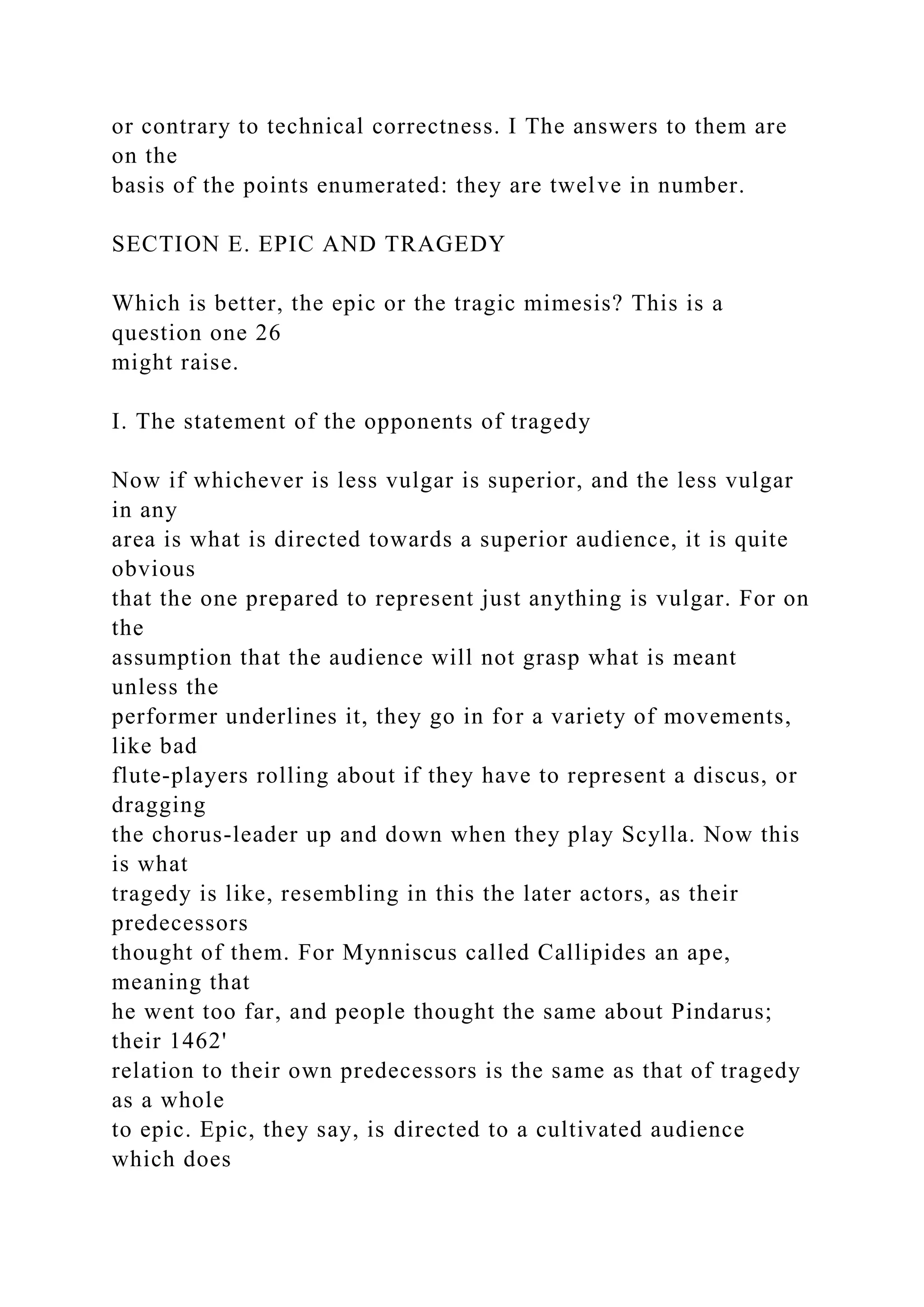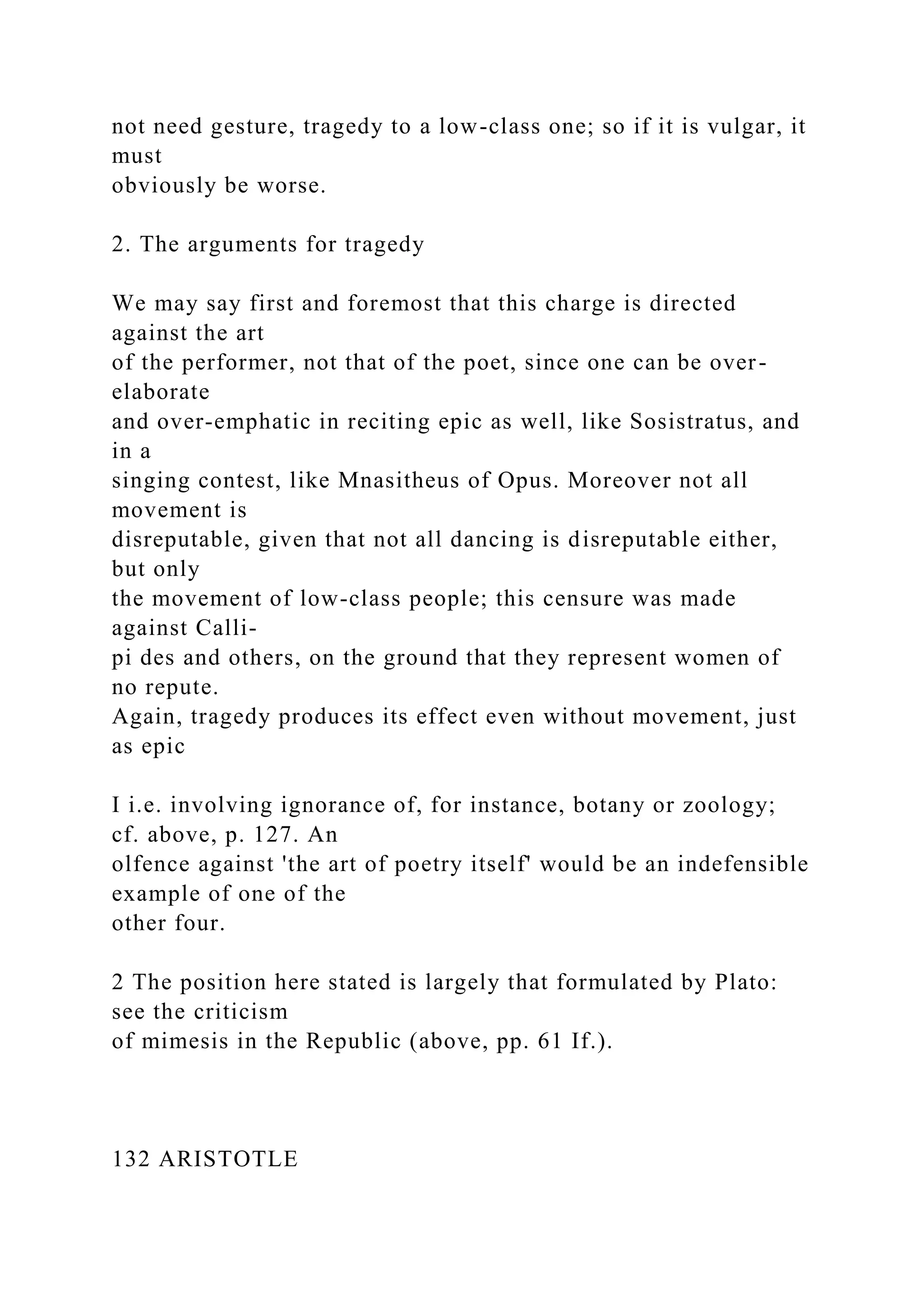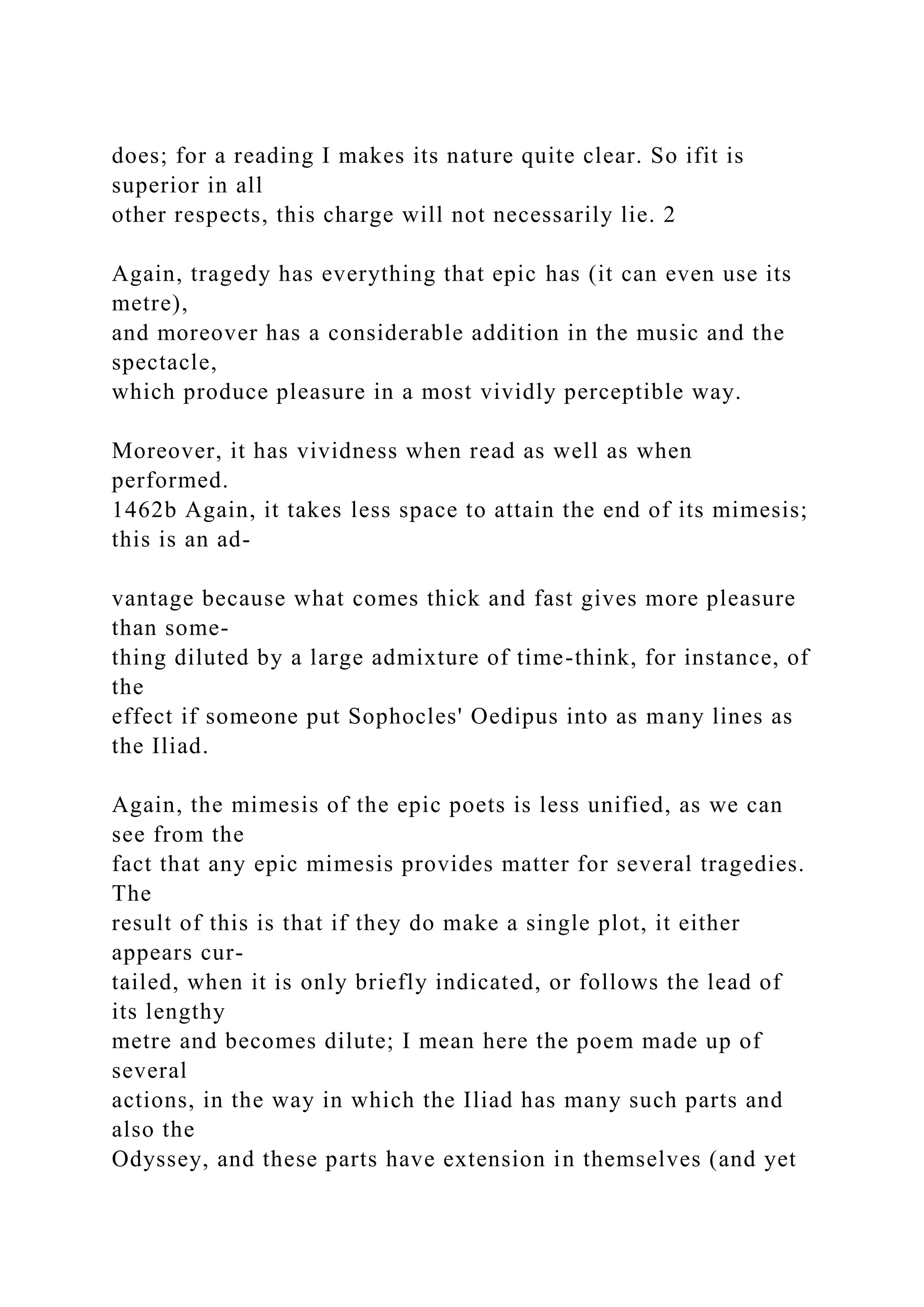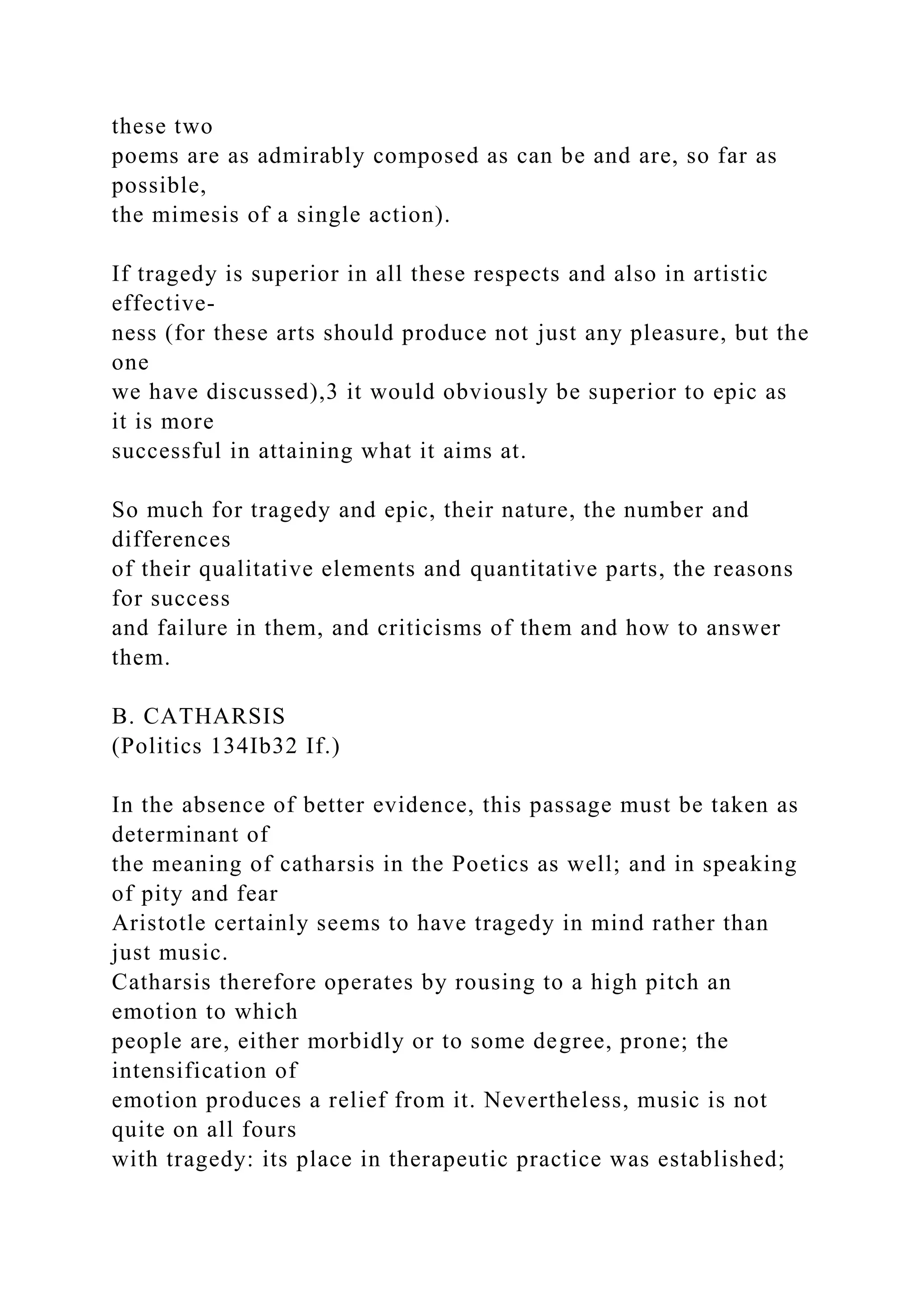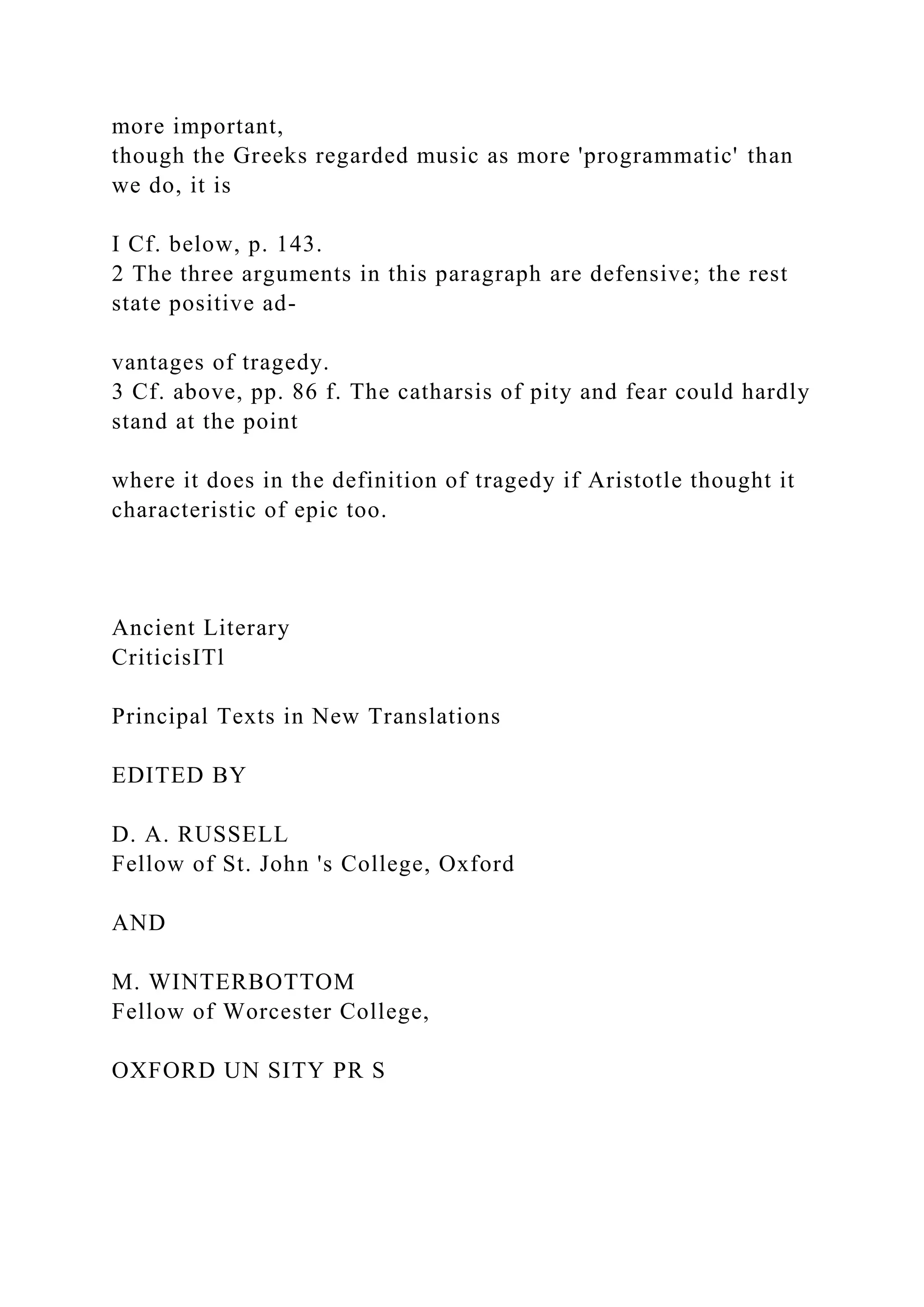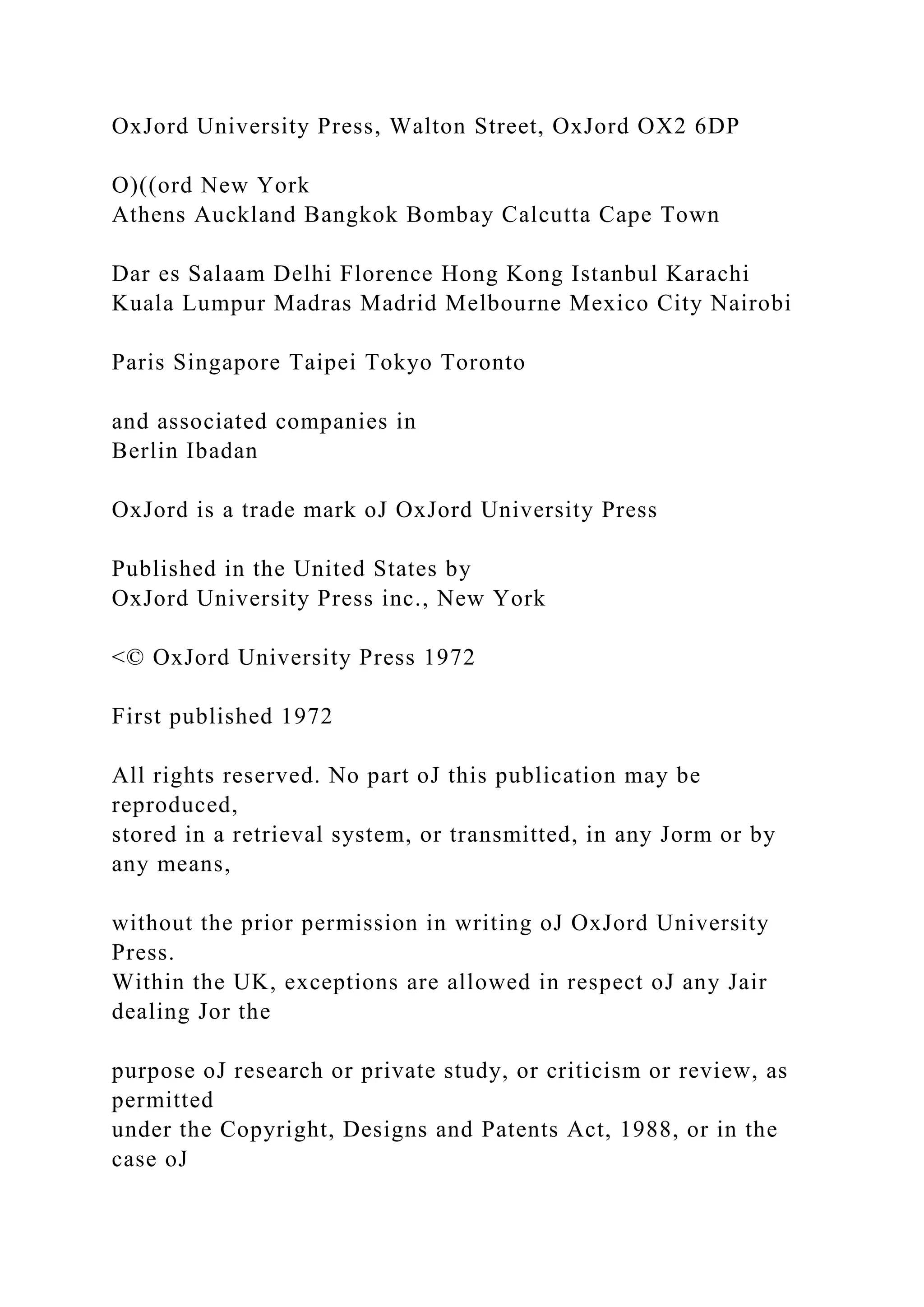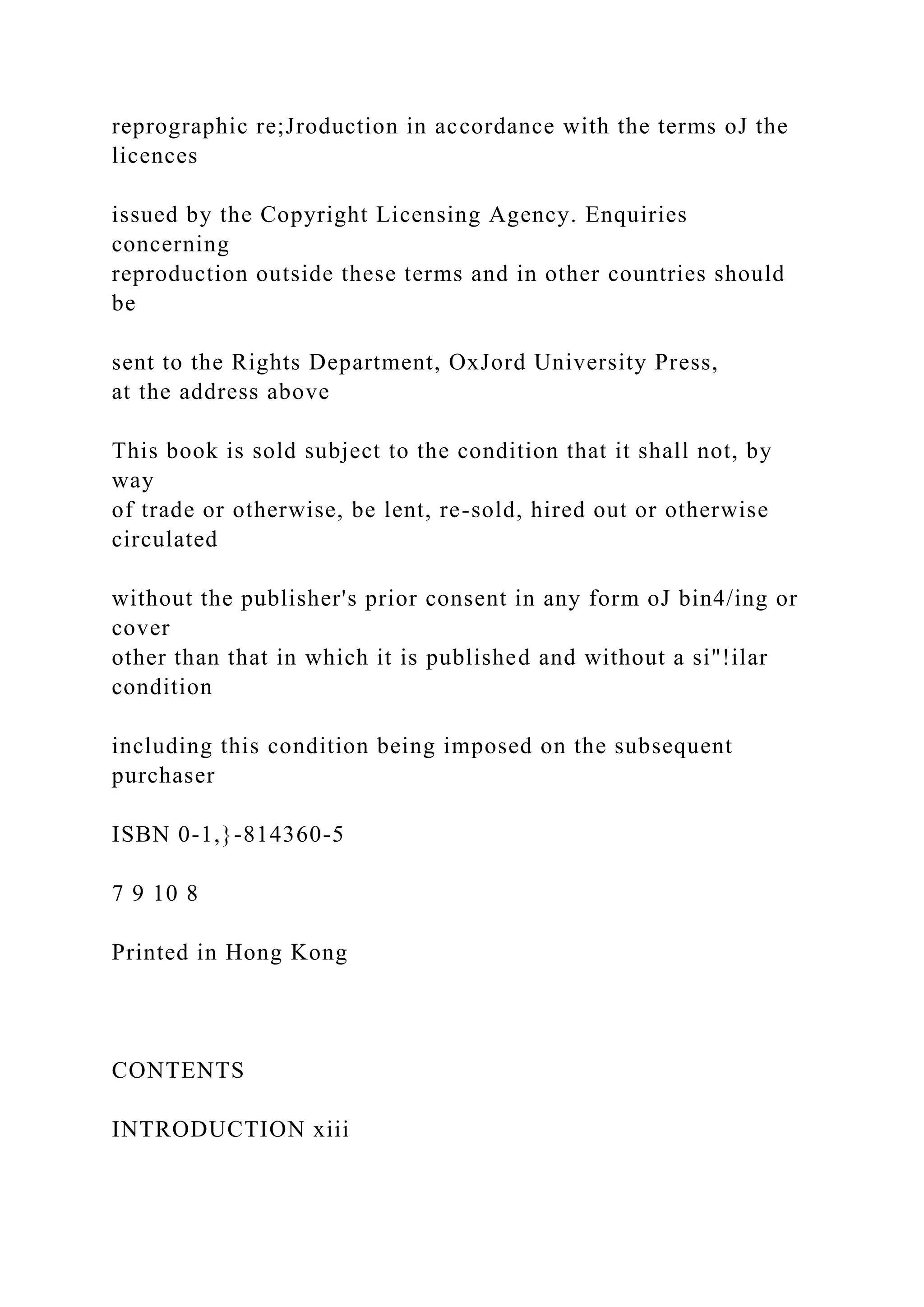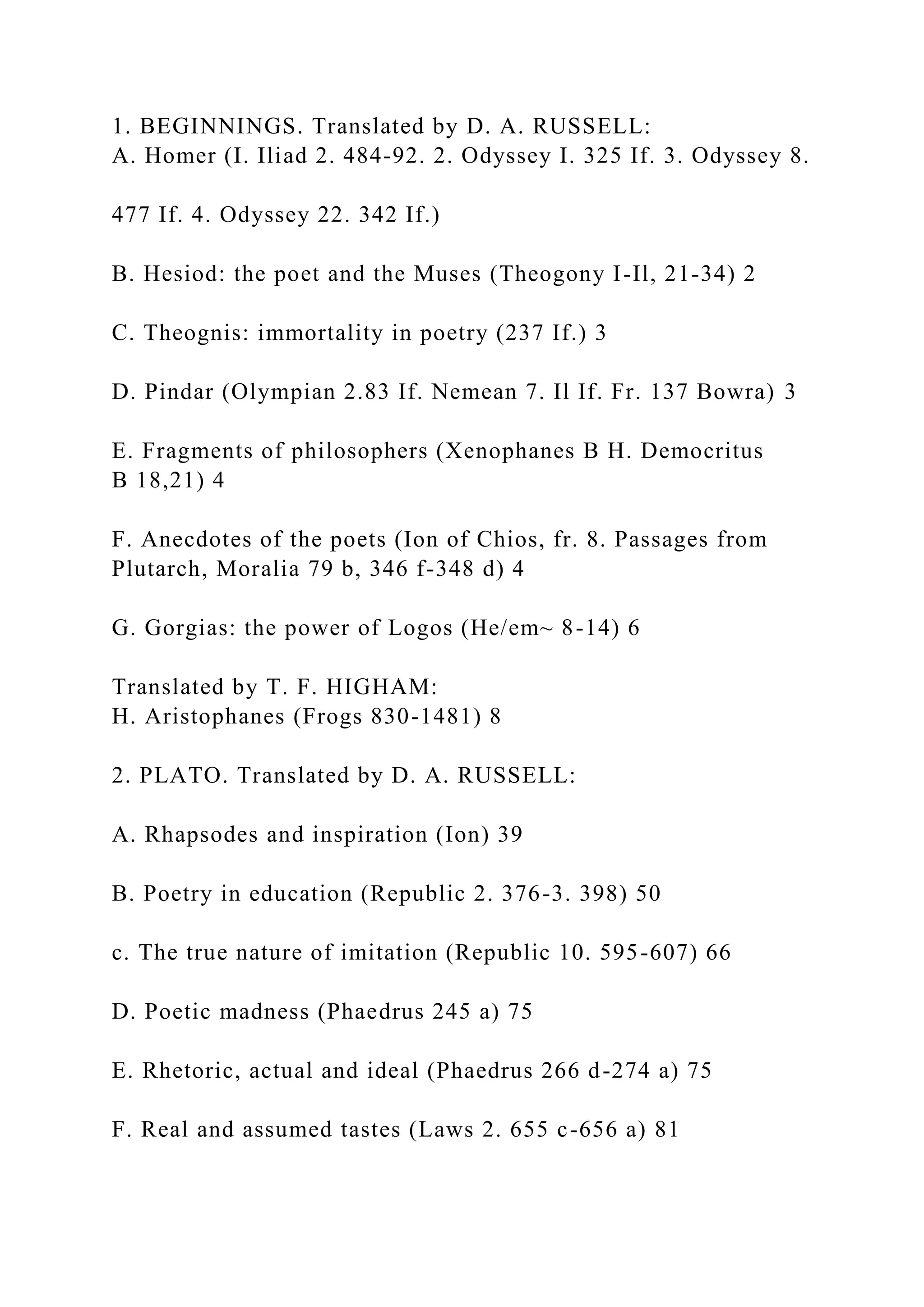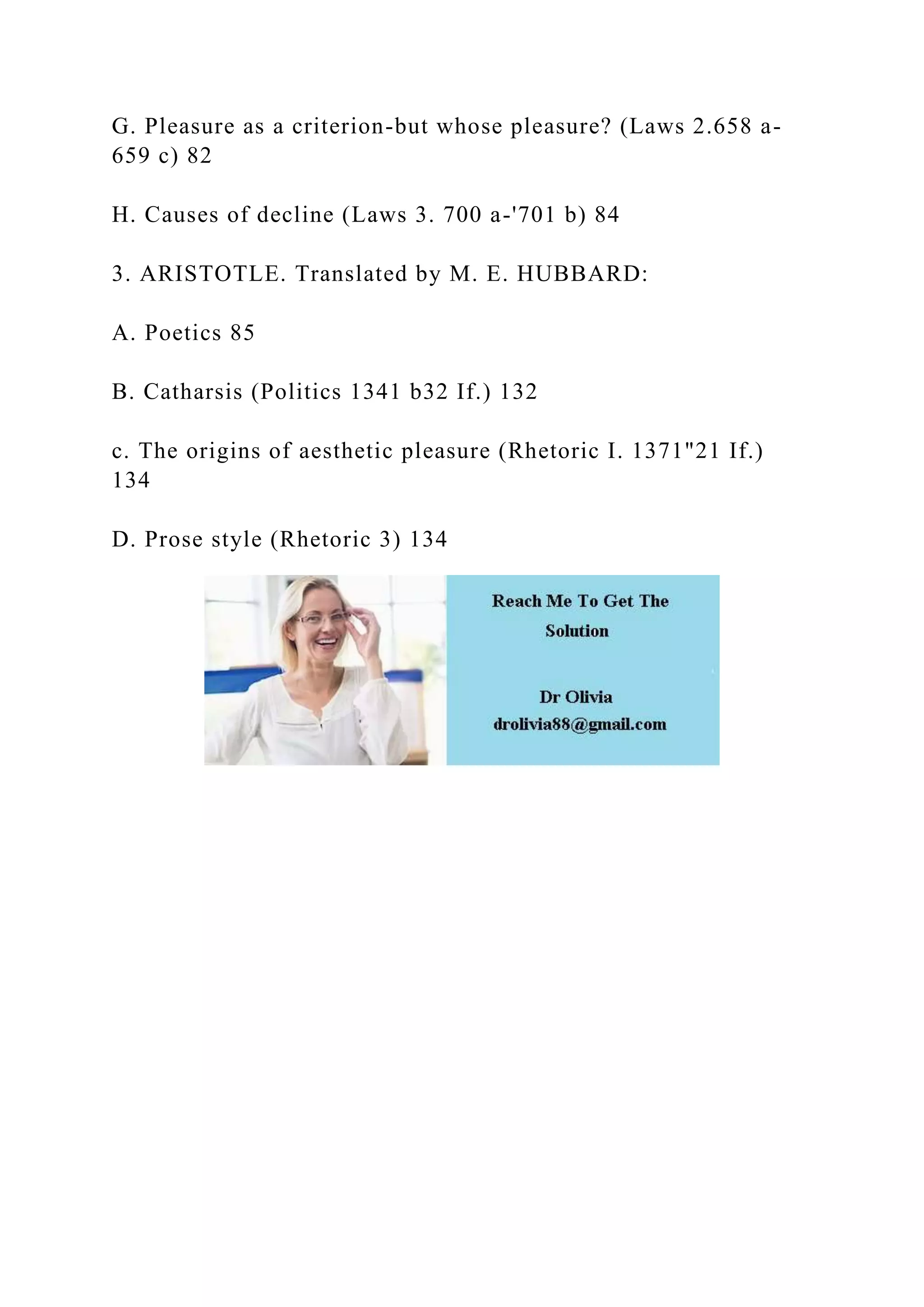The document is a detailed inquiry into Aristotle's 'Poetics', exploring themes such as the relationship between poetry and imitation, the characteristics of tragic and comic poetry, and the concept of catharsis. It poses numerous questions regarding elements of tragedy, the function of poets, and the distinctions between different poetic forms. The inquiry emphasizes the complexity of Aristotle's aesthetic theory and its implications for understanding poetry, philosophy, and rhetoric.
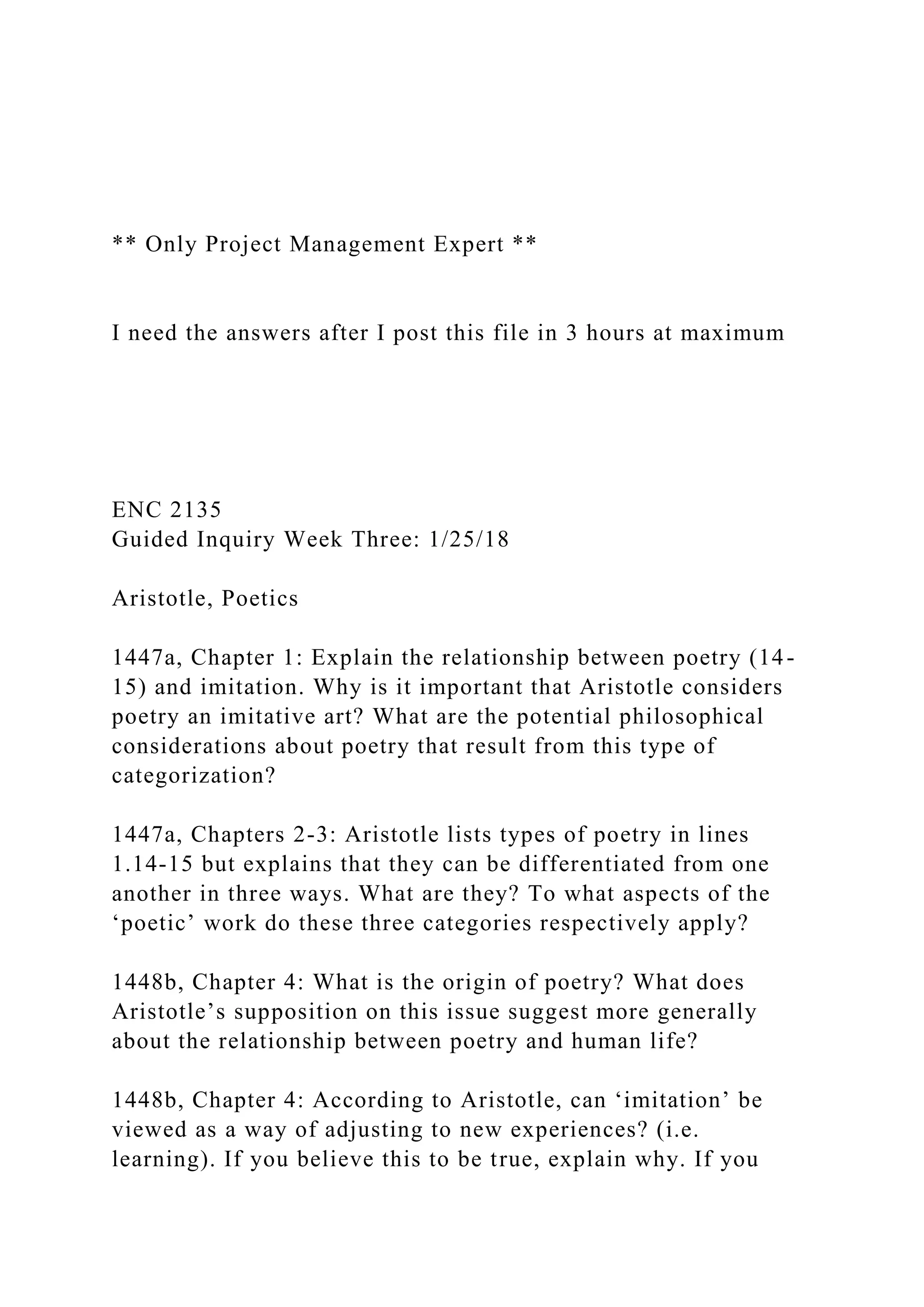
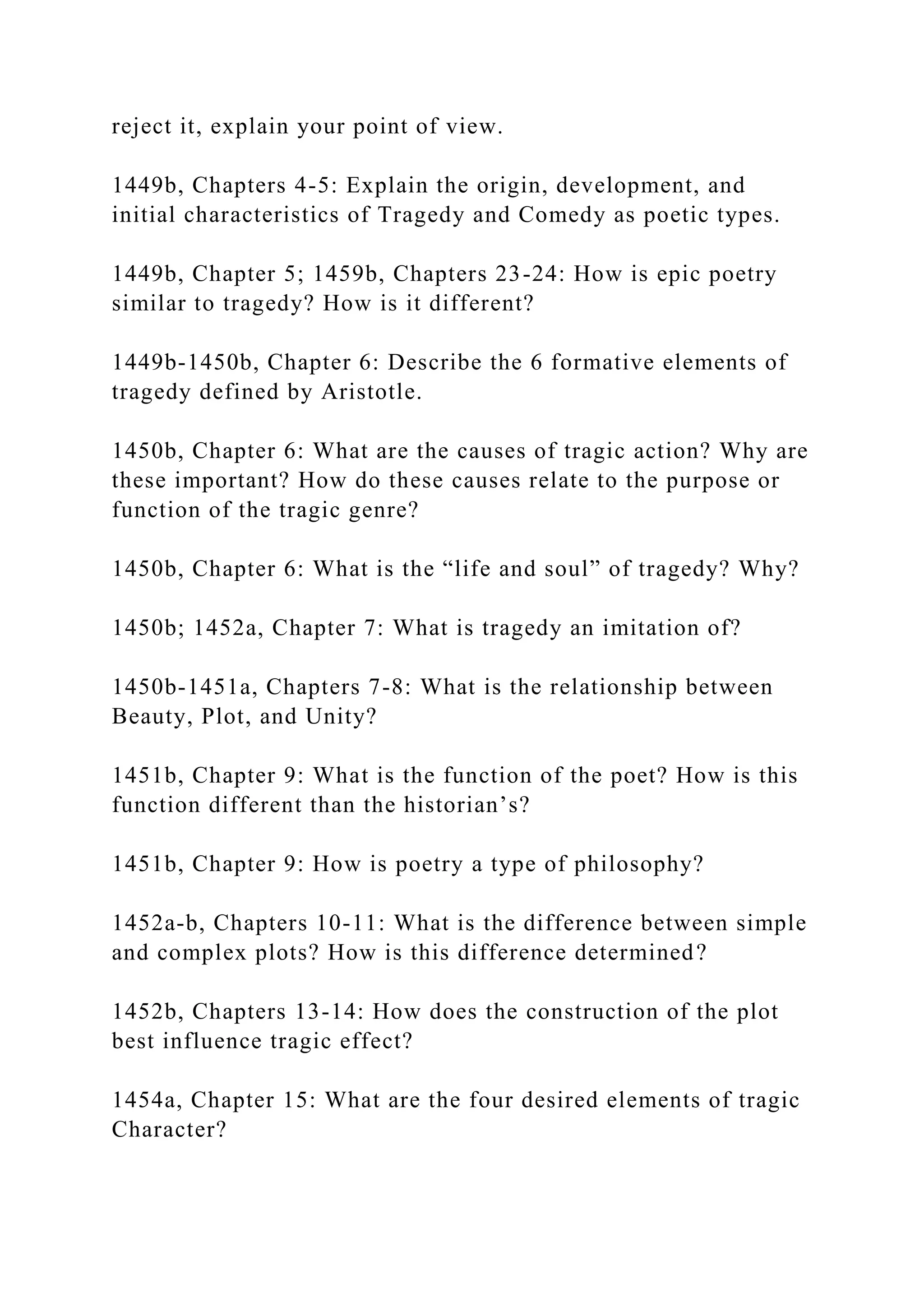
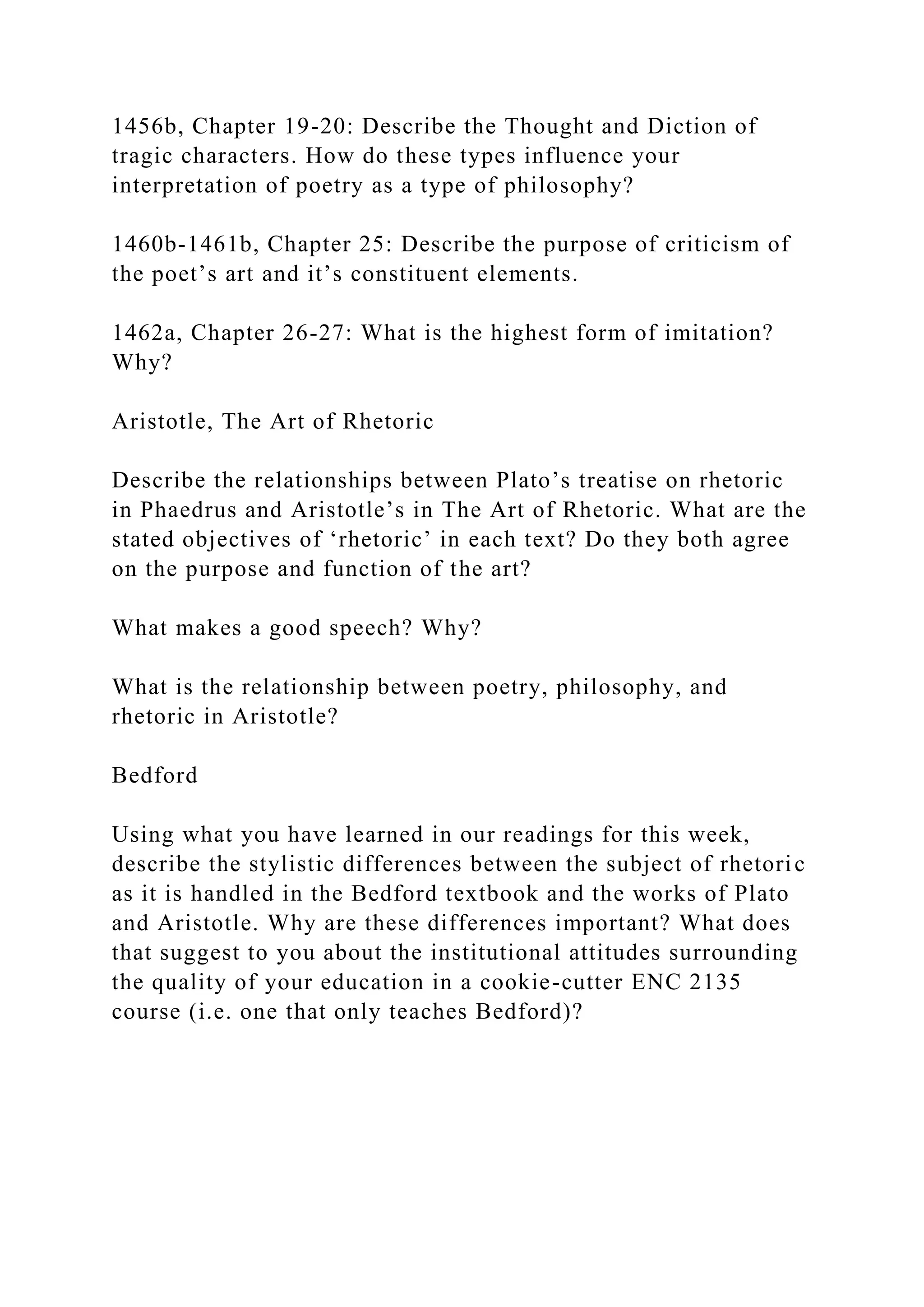

![3
ARISTOTLE
BIBLIOGRAPHY
Poetics
Aristotle Poetics: Introduction, Commentary, and Appendixes
by D. W. Lucas,
Oxford, 1968 (this, the most recent commentary, itself contains
a useful brief
bibliography).
H. House, Aristotle's Poetics, London, 1956.
The translation of T. S. Dorsch in the Penguin volume Classical
Literary
Criticism, 1965, is valuable.
Rhetoric
E. M. Cope, An Introduction to Aristotle's Rhetoric, London and
Cambridge,
1867.
-- The Rhetoric of Aristotle with a Commentary, revised by]. E.
Sandys,
3 vols., Cambridge, 1877.](https://image.slidesharecdn.com/onlyprojectmanagementexpertineedtheanswers-221204163350-5fd2686e/75/Only-Project-Management-Expert-I-need-the-answers-docx-5-2048.jpg)
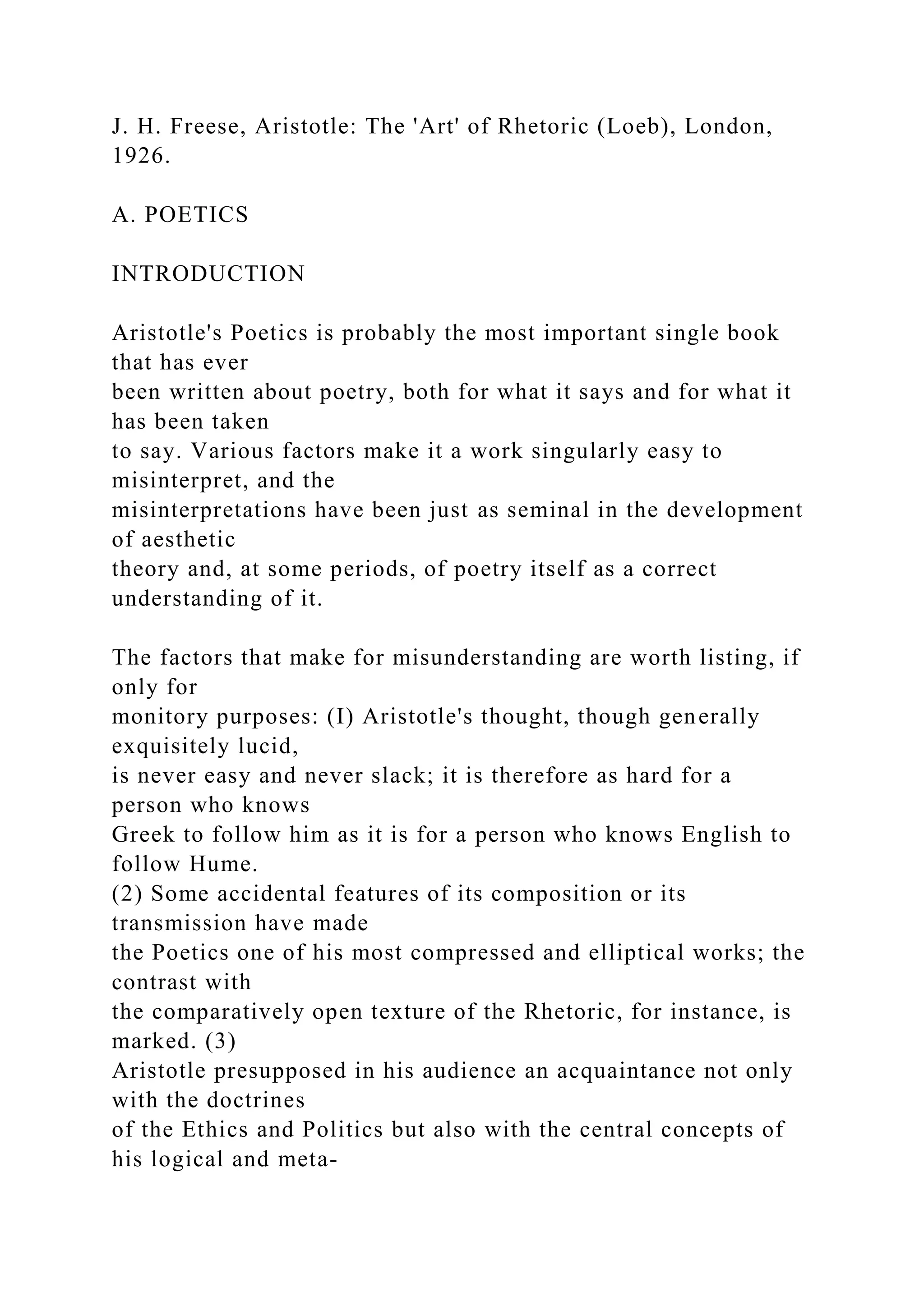
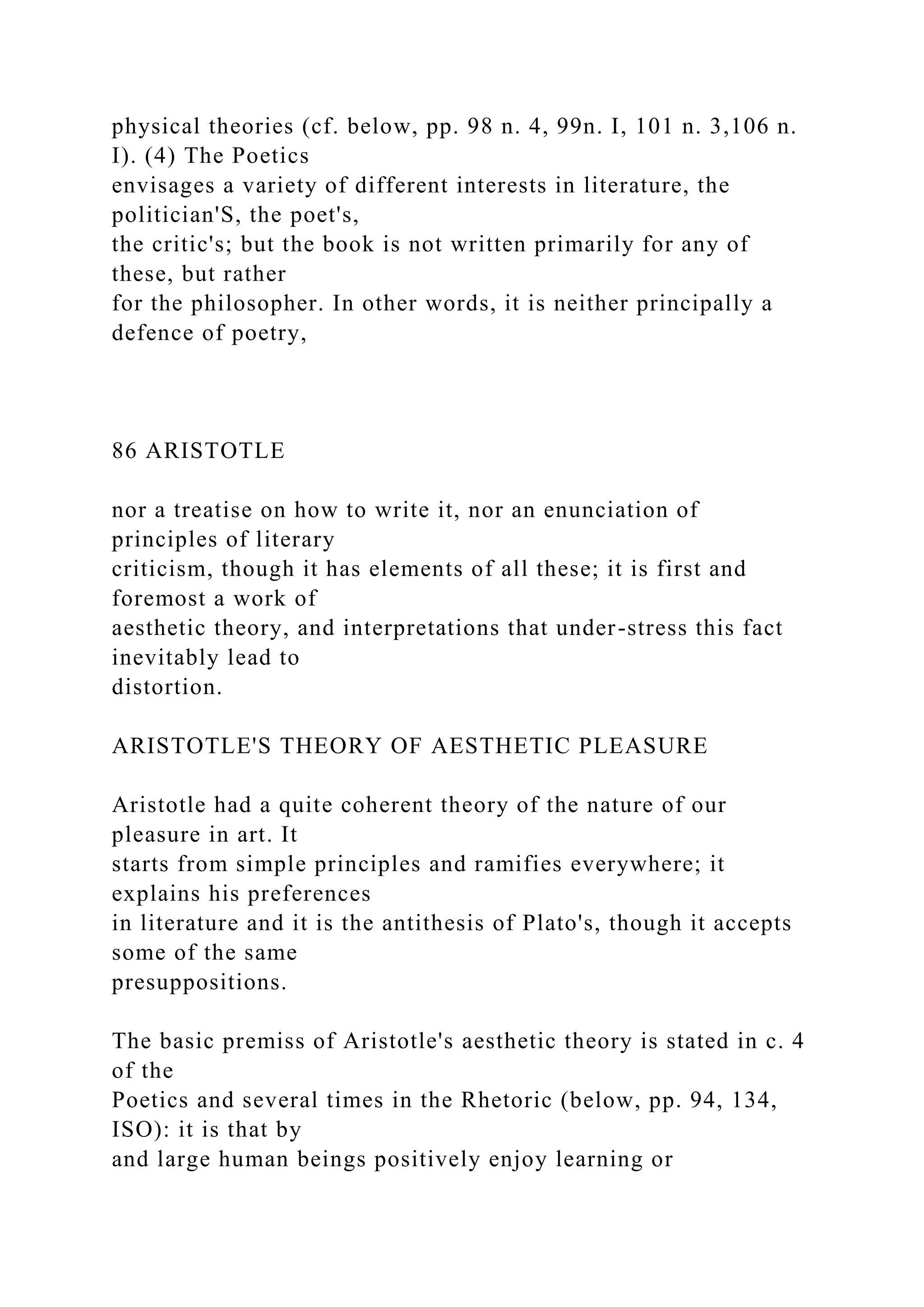
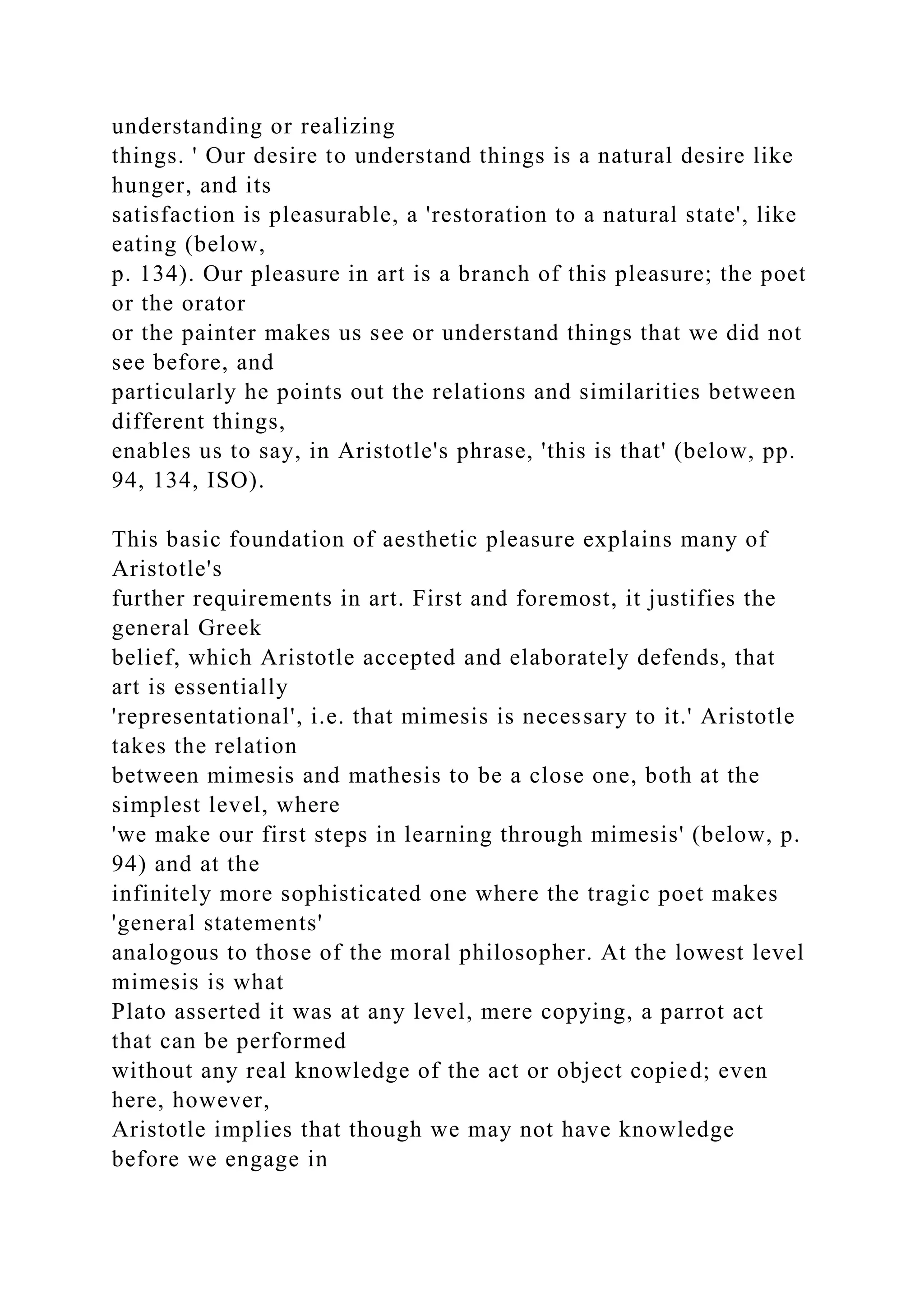
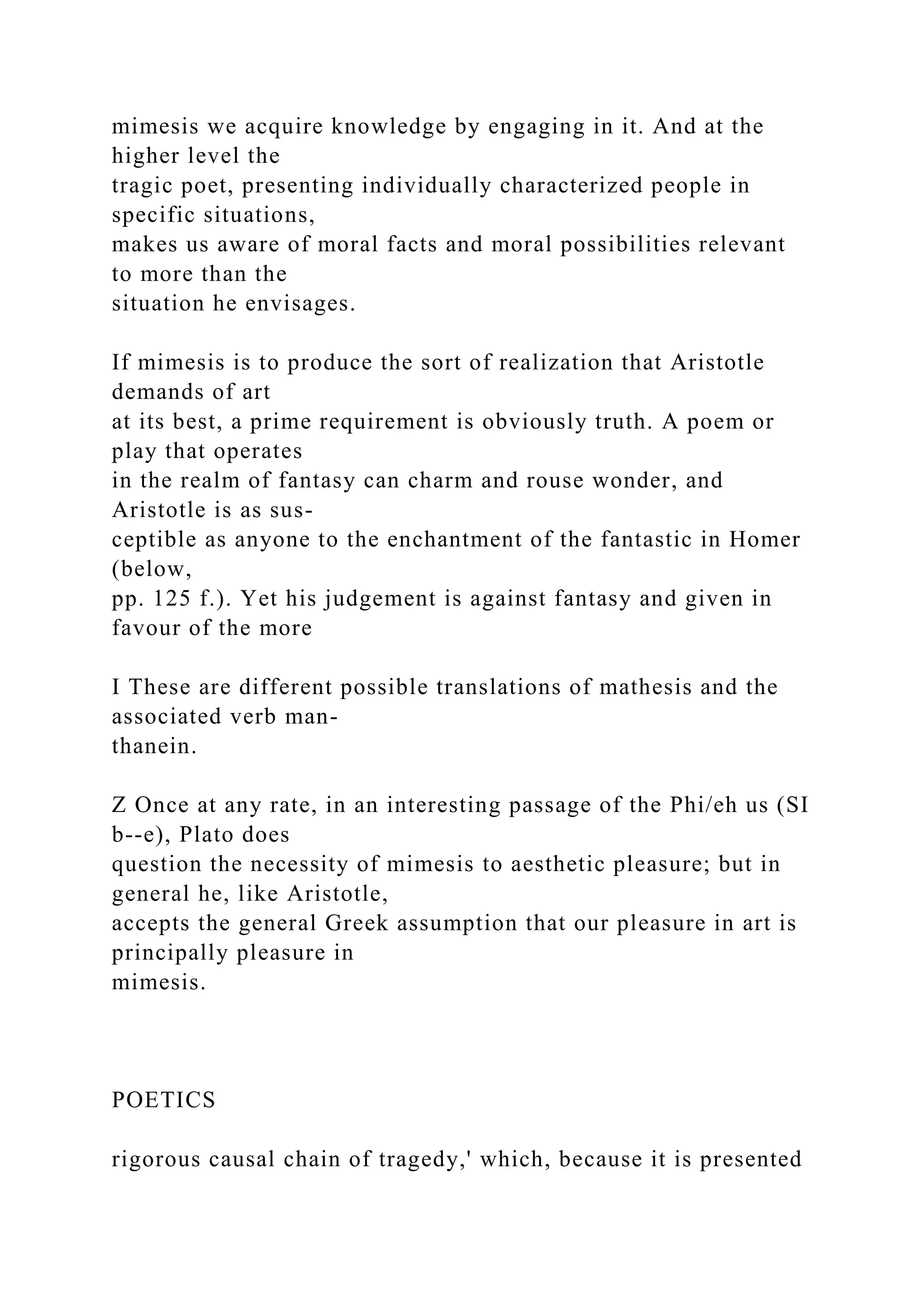
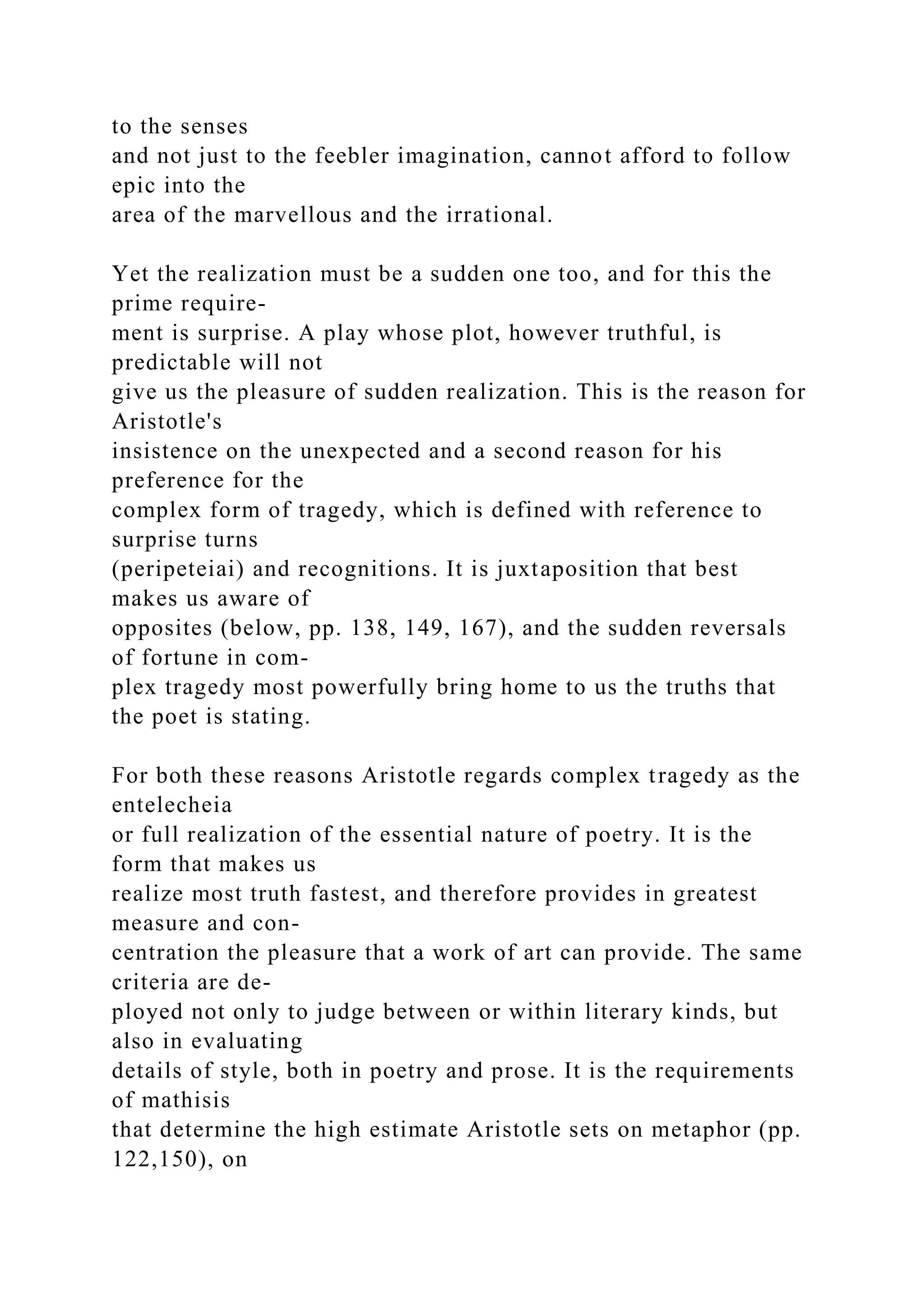
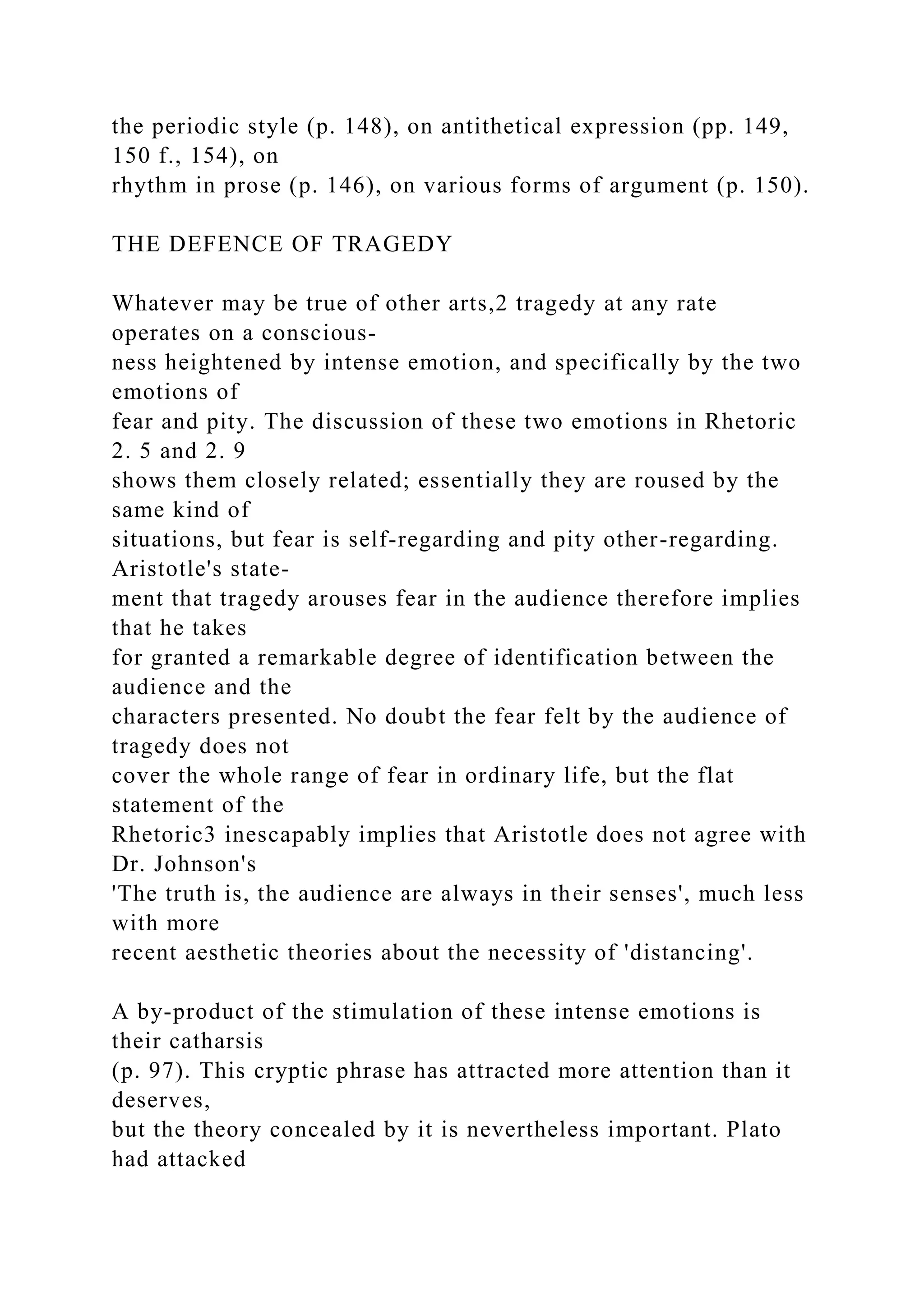
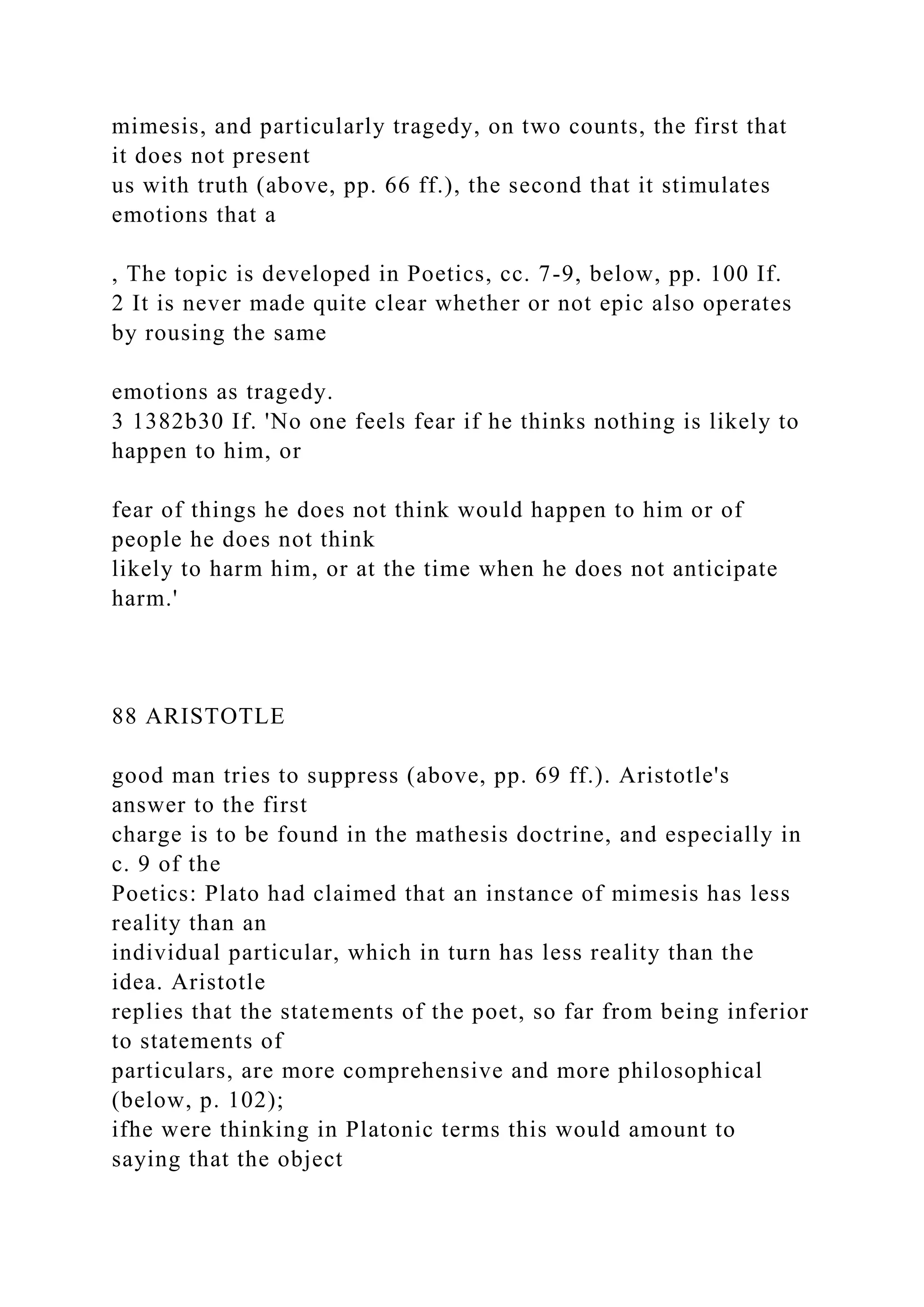
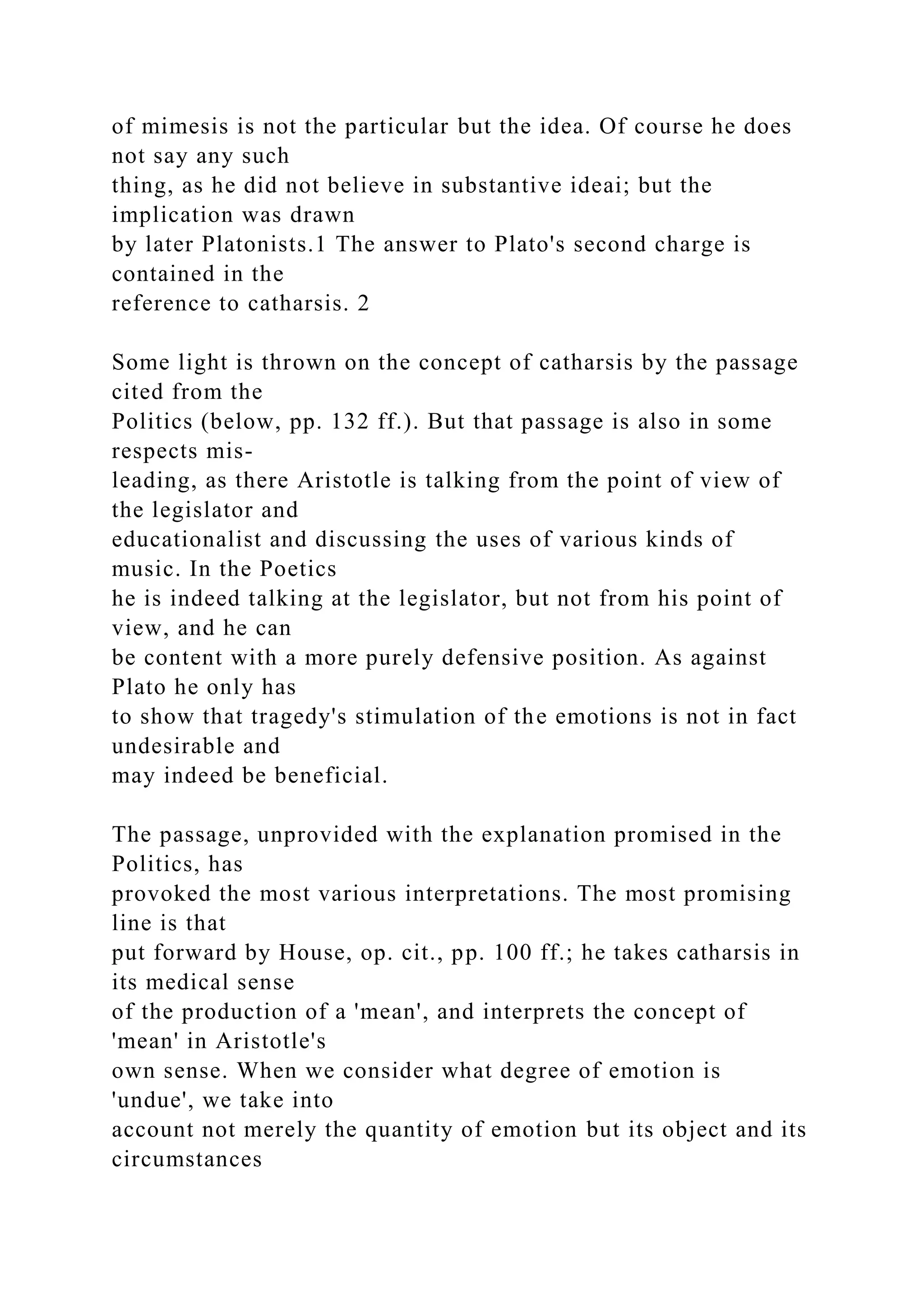
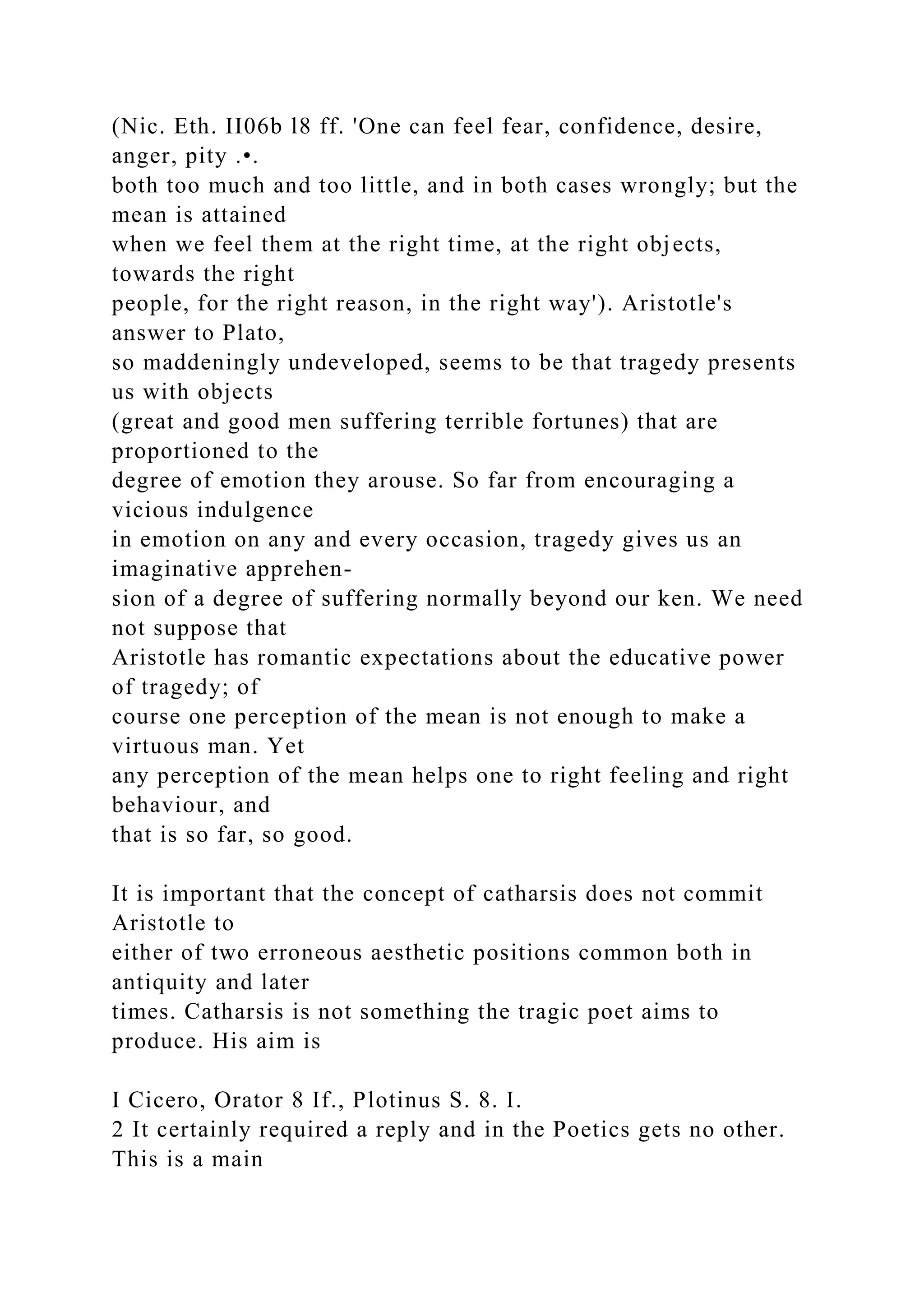
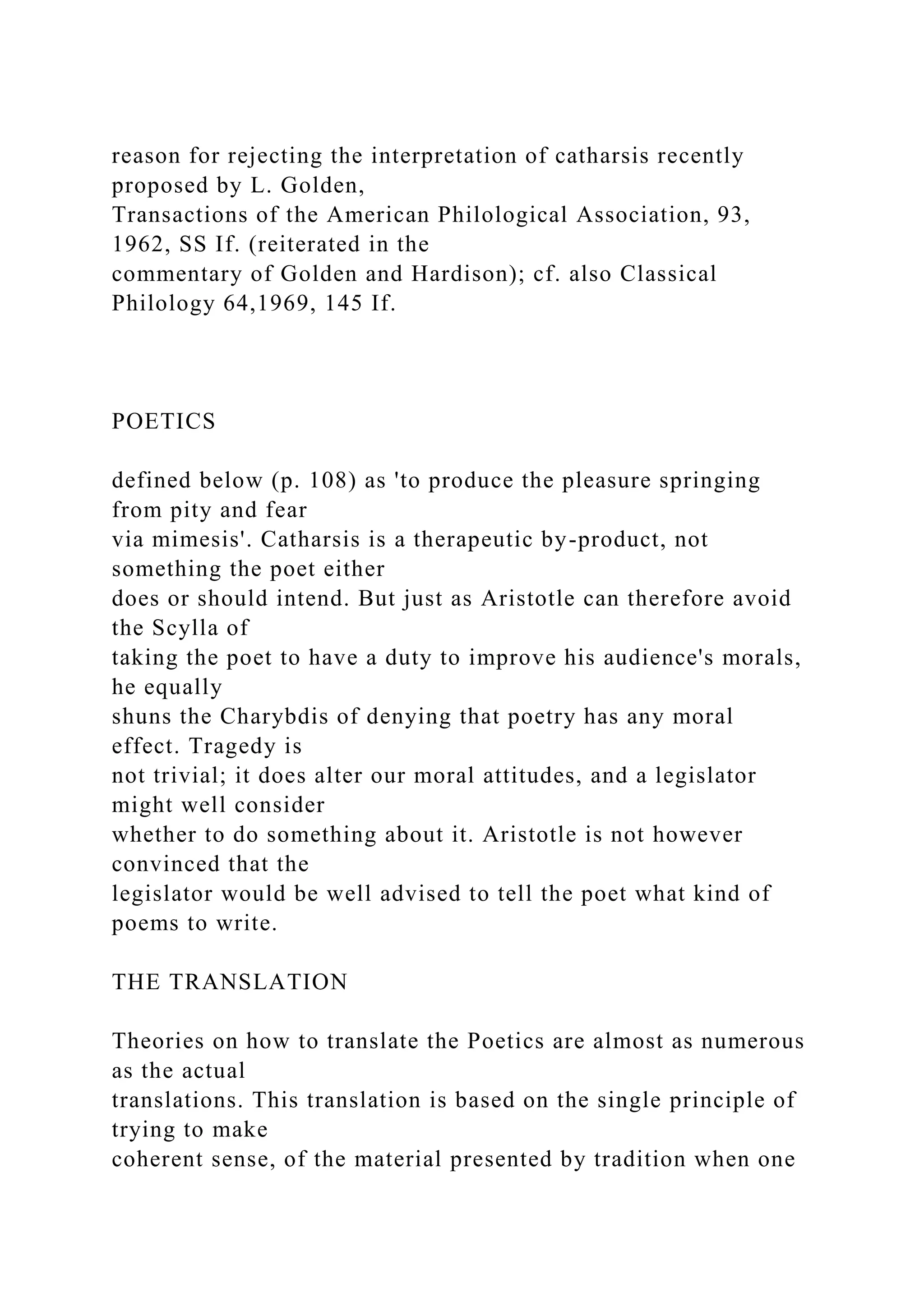
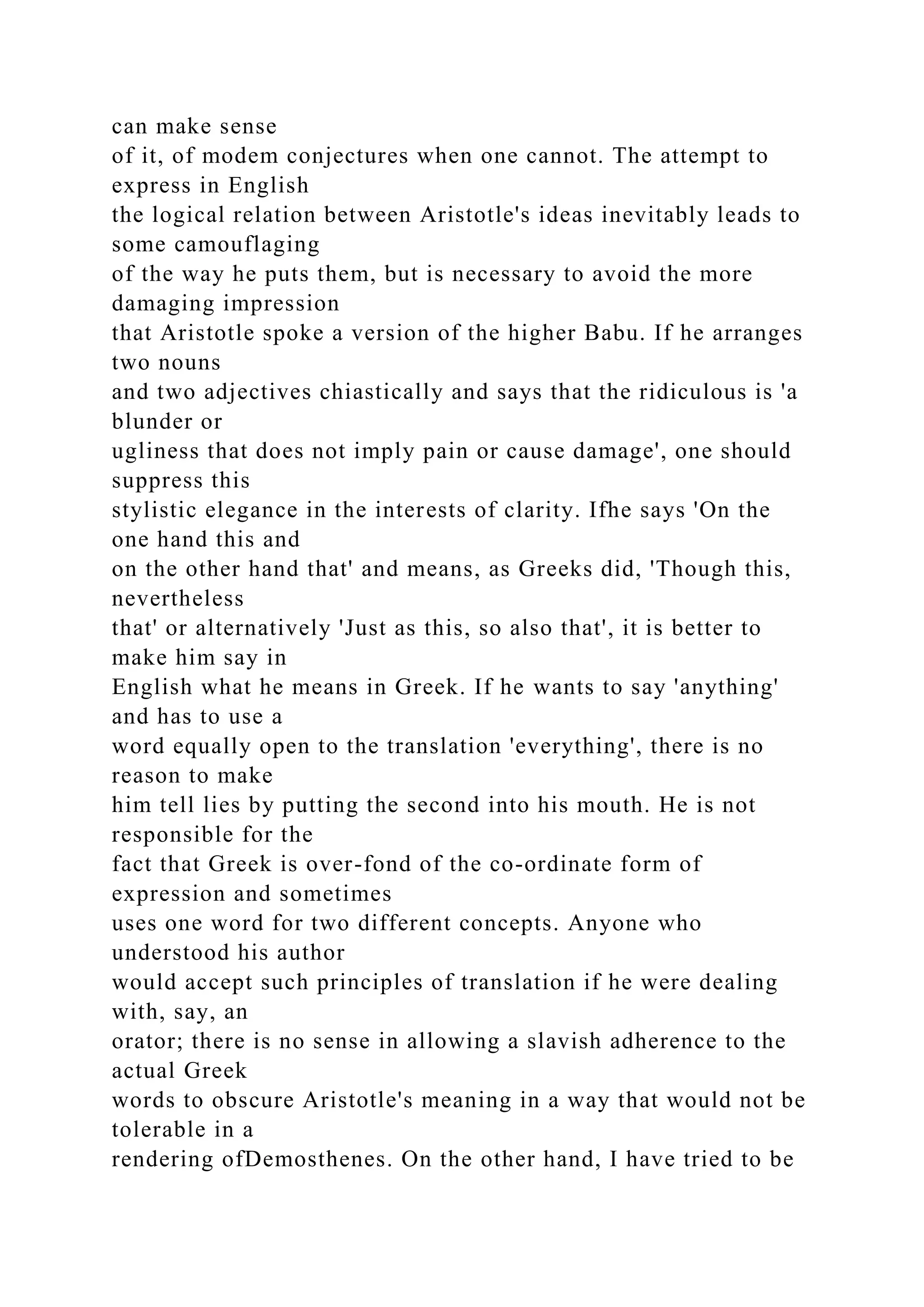

![undervalues the strangeness of the dialect term, while a
scattering of occasional
phrases from Lallans or Mummerset would not be, to English
taste, agreeable.
CHAPTER I
THE PRELIMINARIES TO THE DEFINITION OF TRAGEDY
Contents
1447' The subject I wish us to discuss is poetry itself, its
species with their
1 respective capabilities, the correct way of constructing plots
so that the
work turns out well, the number and nature of the constituent
elements
[of each species], and anything else in the same field of inquiry.
SECTION A. THE DIVISION PER GENUS ET
DIFFERENTIAM
I. The genus we are here concerned with stated!
To follow the natural order and take first things first, epic and
tragic
poetry, comedy and dithyrambic, and most music for the flute or
lyre
are all, generally considered, varieties of mimesis, differing
from each other
in three respects, the media, the objects, and the mode of
mimesis.
['Media' needs explaining]: in some cases where people,
whether by
technical rules or practised facility, produce various mimeseis](https://image.slidesharecdn.com/onlyprojectmanagementexpertineedtheanswers-221204163350-5fd2686e/75/Only-Project-Management-Expert-I-need-the-answers-docx-18-2048.jpg)
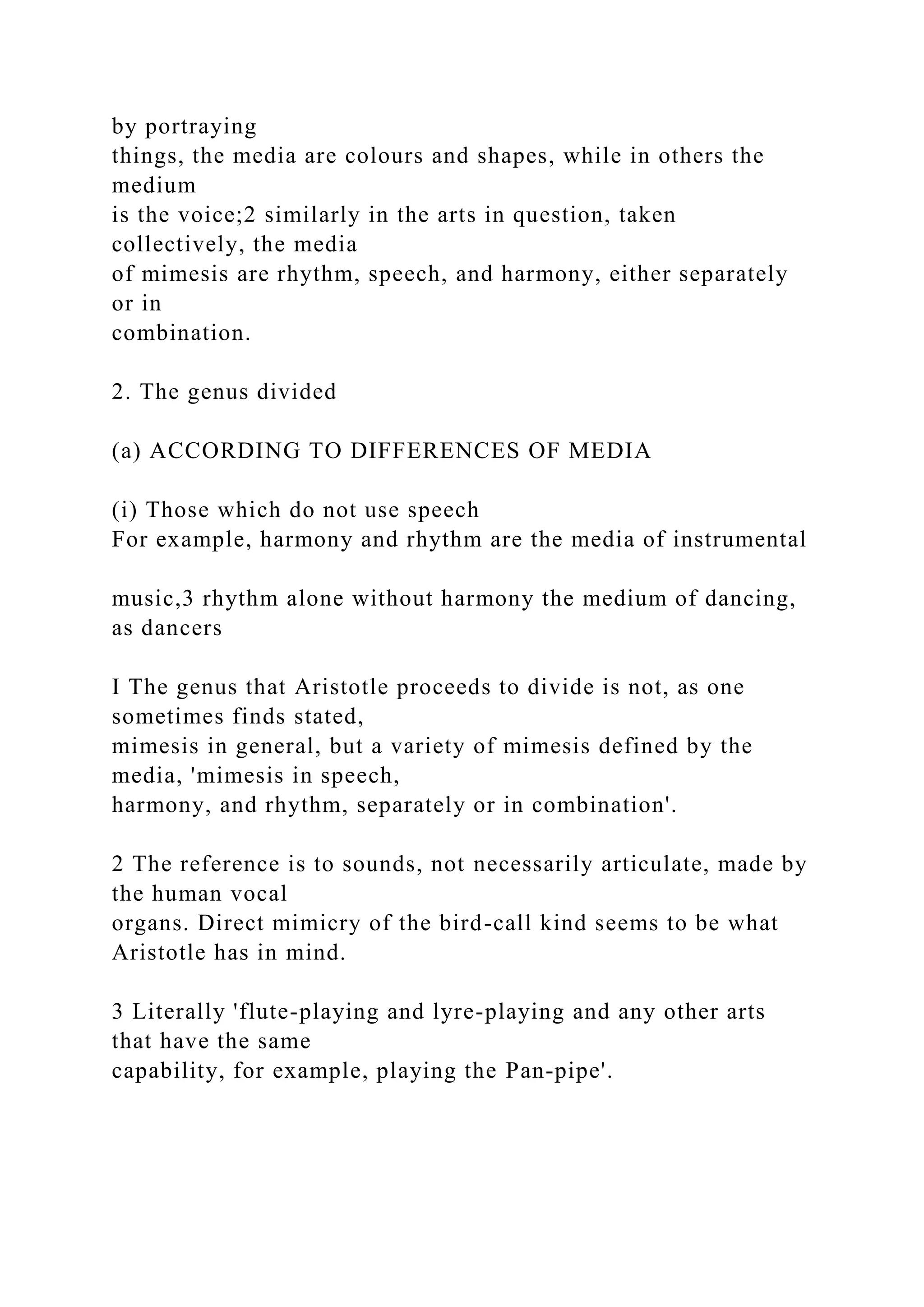
![POETICS 91
represent characters, passions, I and actions by rhythmic
movement and
postures.
(ii) Those which do use speech (i.e. the poetic kinds)2
The art that uses only speech by itself or verse [that is,
rhythmical
speech], the verses being homogeneous or of different kinds,
has as yet 1447b
no name;3 for we have no common term to apply to the [prose]
mimes of
Sophron and Xenarchus and to the Socratic dialogues, nor any
common
term for mimeseis produced in verse, whether iambic trimeters
or elegiacs
or some other such metre. True, people do attach the making
[that is the
root of the word poietes] to the name of a metre and speak of
elegiac-
makers and hexameter-makers; they think, no doubt, that
'makers' is
applied to poets not because they make mimeseis but as a
general term
meaning 'verse-makers', since they call 'poets' or 'makers' even
those
who publish a medical or scientific theory in verse. But [this is
open to
two objections]: (I) as Homer and Empedocles have nothing in
common
except their metre, the latter had better be called a scientific
writer, not
a poet, if we are to use 'poet' of the former; (2) similarly, if we
suppose](https://image.slidesharecdn.com/onlyprojectmanagementexpertineedtheanswers-221204163350-5fd2686e/75/Only-Project-Management-Expert-I-need-the-answers-docx-20-2048.jpg)
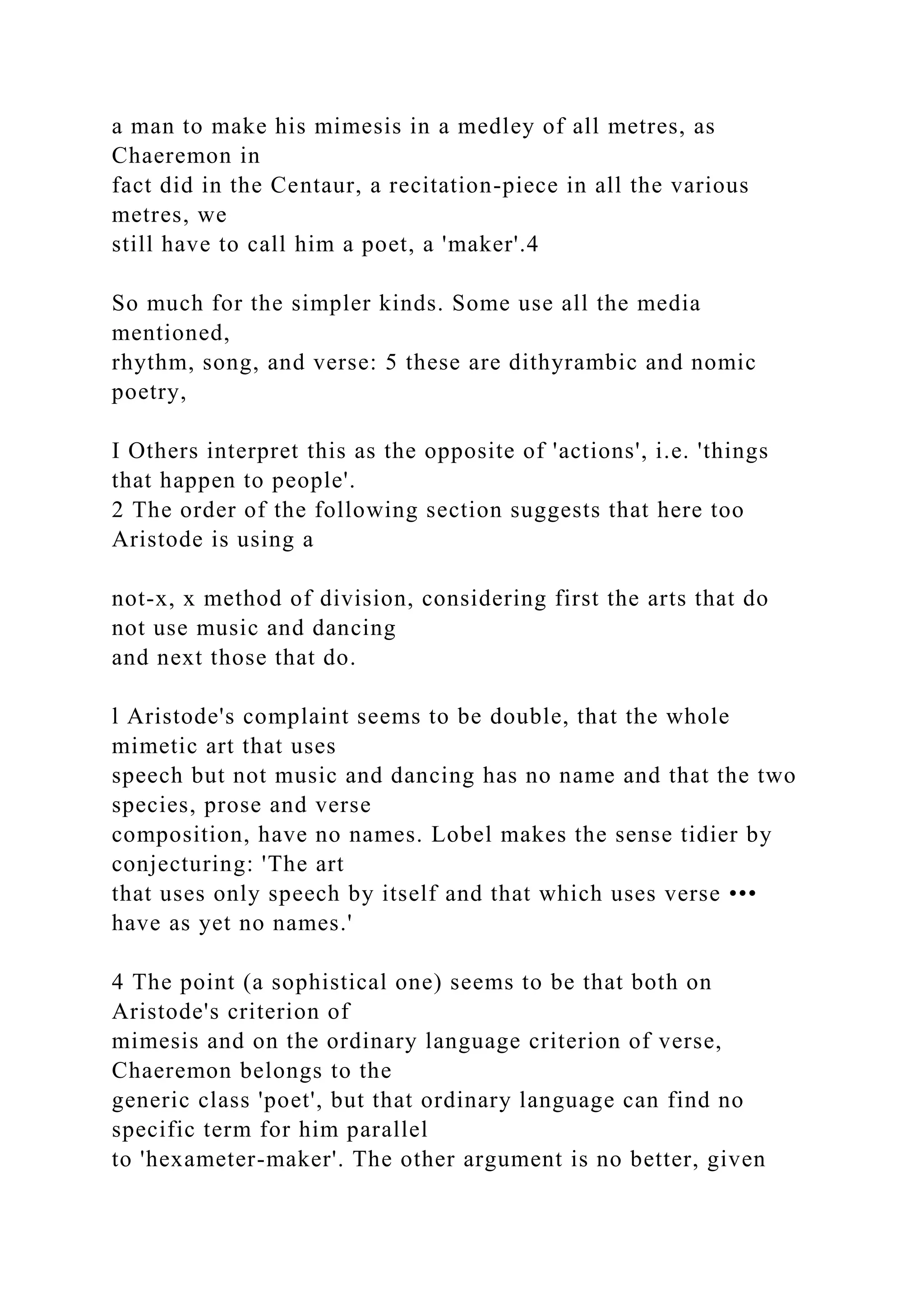
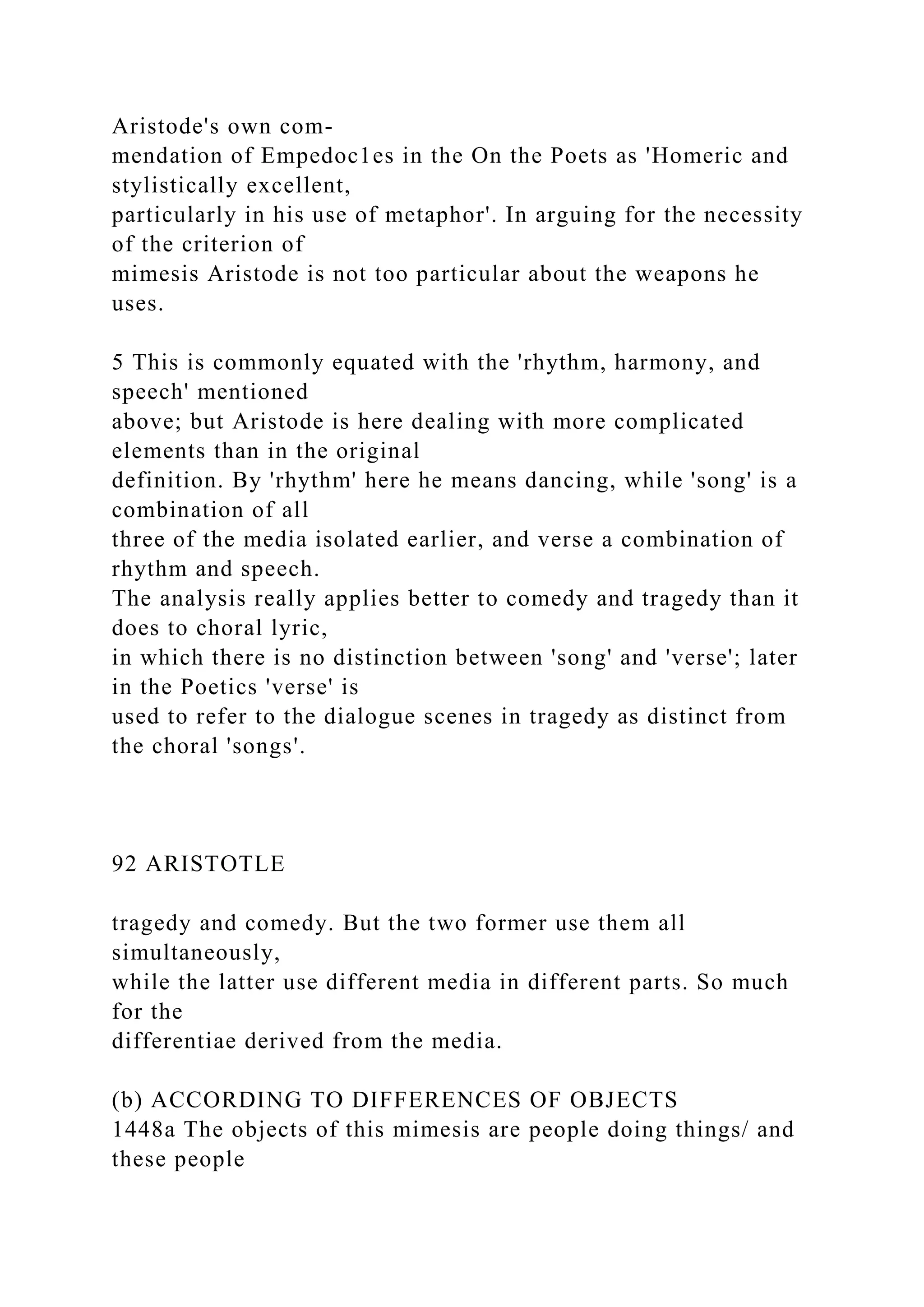
![2 [as represented] must necessarily be either good or bad, this
being,
generally speaking, the only line of divergence between
characters, since
differences of character just are differences in goodness and
badness, or
else they must be better than are found in the world or worse or
just the
same, as they are represented by the painters, Polygnotus
portraying
them as better, Pauson as worse, and Dionysius as they are;z
clearly
therefore each of the varieties of mimesis in question will
exhibit these
differences, and one will be distinguishable from another in
virtue of
presenting things as different in this way.
These dissimilarities can in fact be found in dancing and
instrumental
music, and in the arts using speech and unaccompanied verse:
Homer
for instance represents people as better and Cleophon as they
are, while
Hegemon of Thasos, the inventor of parodies, and Nicochares,
the author
of the Deiliad, represent them as worse; the same is true of
dithyrambs
and nomes, where the mimesis can differ as ... ,3 and as that of
the Cyclopes
does in Timotheus and PhiIoxenus; this is also the differentia
that marks
off tragedy from comedy, since the latter aims to represent
people as
worse, the former as better, than the men of the present day.](https://image.slidesharecdn.com/onlyprojectmanagementexpertineedtheanswers-221204163350-5fd2686e/75/Only-Project-Management-Expert-I-need-the-answers-docx-23-2048.jpg)
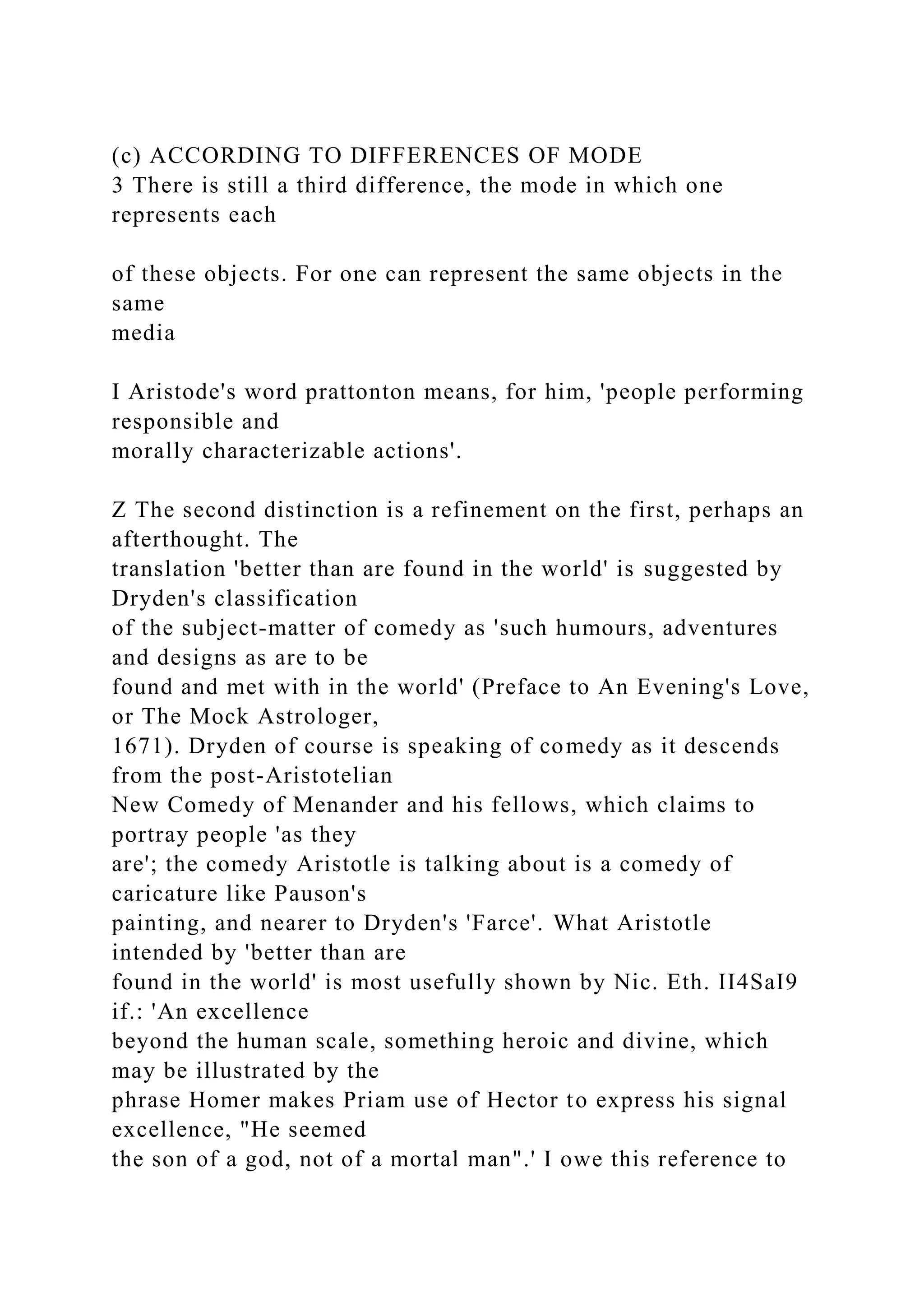
![Miss G. M. Matthews.
3 Text defective.
POETICS 93
(i) sometimes in narration and sometimes becoming someone
else, as
Homer does, or
(ii) speaking in one's own person without change, or
(iii) with all the people engaged in the mimesis actually doing
things.!
These three then, media, objects, and mode, are, as I said at the
begin-
ning, the differentiae of poetic mimesis. So, if we use one of
them [to
separate poets into classes], Sophocles will be in the same class
as Homer,
since both represent people as good, and if we use another, he
will be in
the same class as Aristophanes, since they both represent people
as
actively doing things.
Digression on the etymological fancies of the Dorians2
Some people say that this verb dran, 'to do', is why plays are
called
dramas, because such poets represent people as doing things;
and this
is the ground on which the Dorians claim the invention of both
tragedy](https://image.slidesharecdn.com/onlyprojectmanagementexpertineedtheanswers-221204163350-5fd2686e/75/Only-Project-Management-Expert-I-need-the-answers-docx-25-2048.jpg)
![and comedy. Comedy is claimed by the Megarians, both by
those of
mainland Greece, who say it arose when their democracy was
established,3
and by those of [Megara Hyblaea in] Sicily, the home of
Epicharmus,
who lived well before Chionides and Magnes.4 Tragedy is
claimed by some
of the Peloponnesians. In each case they found their claim on
etymology:
they say that while they call outlying villages komai, the
Athenians call
them demoi, and they take 'comedy' to be derived not from
komazein, 'to
revel', but from the fact that the comic actors wandered among
the
villages because driven in contempt from the city; and they say
that they 1448b
use the word dran of doing, while the Athenians say prattein.
Conclusion
So much for the number and nature of the differentiae of poetic
mimesis.
I The Greek is perhaps defective and also admits the
interpretation '(i) sometimes in
narration, either becoming someone else, as Homer does, or
speaking in one's own
person without change, or (ii) with all the people .. .'. The
threefold classification given
in the translation is in accordance with Plato's view (Rep. 392 d
If.); more important,
it agrees better with Aristode's own insistence on the
uniqueness of Homer (pp. 94 f.,
101 f., 123, 125 f.).](https://image.slidesharecdn.com/onlyprojectmanagementexpertineedtheanswers-221204163350-5fd2686e/75/Only-Project-Management-Expert-I-need-the-answers-docx-26-2048.jpg)
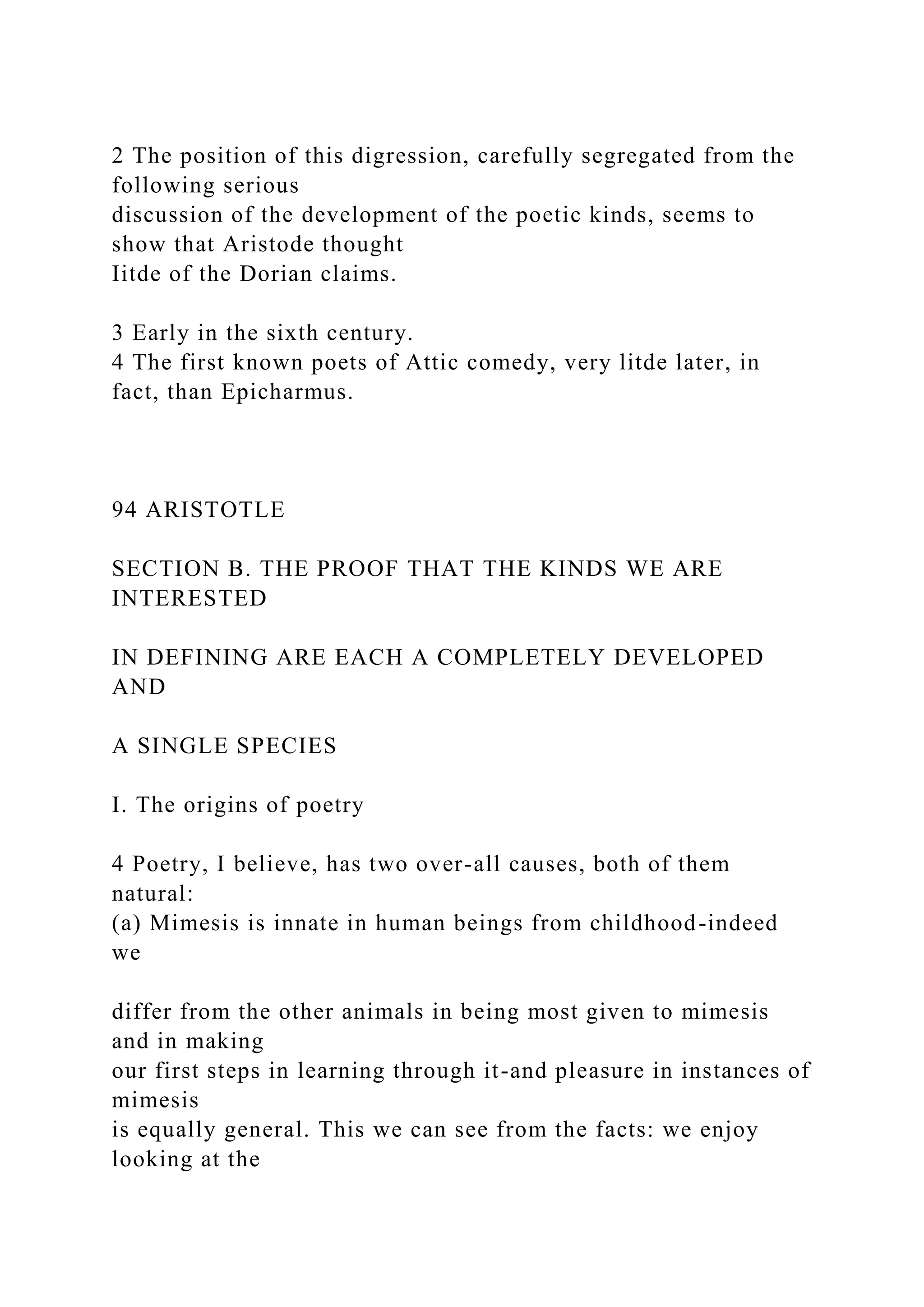
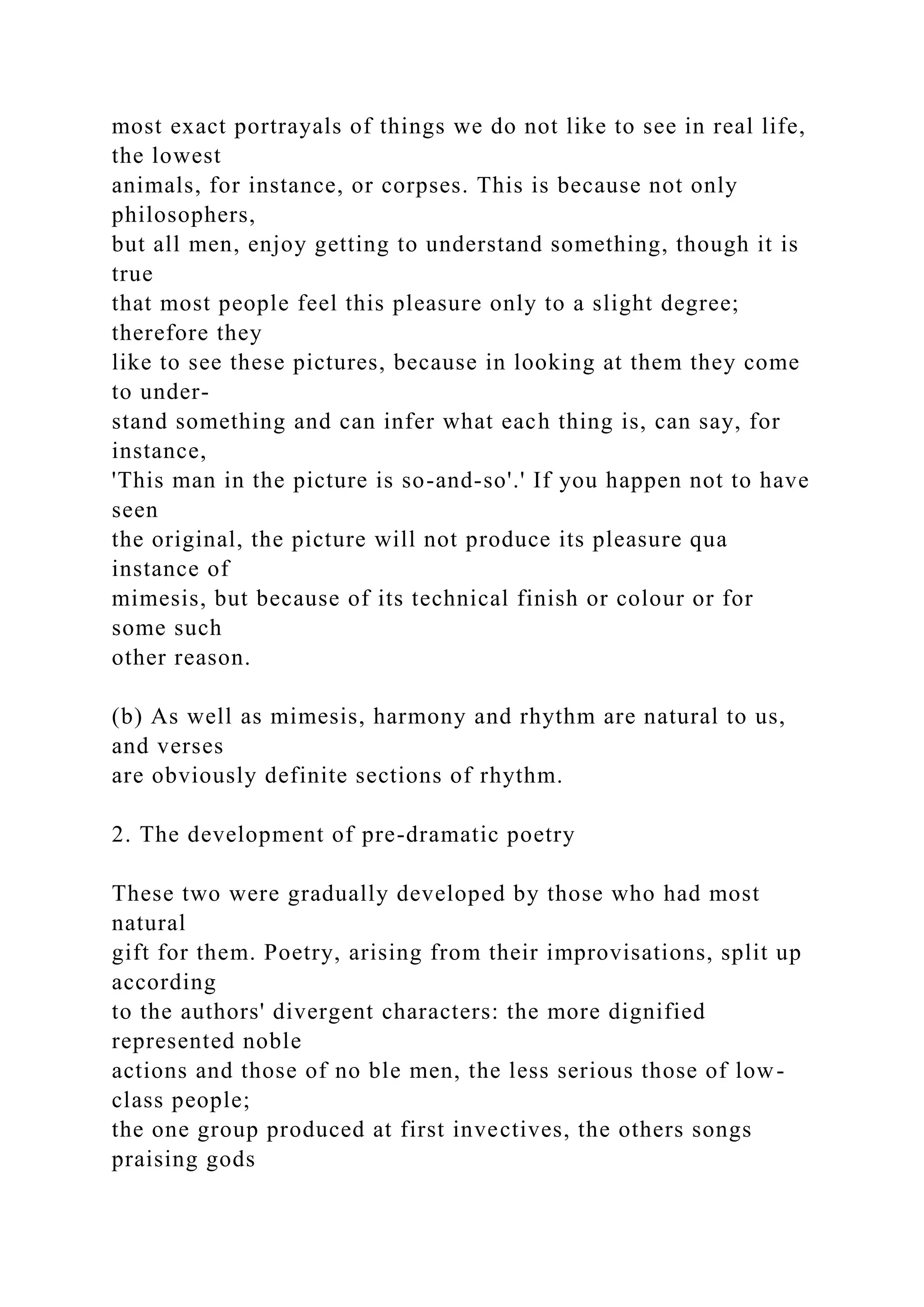
![and men. We cannot name any author of a poem of the former
kind before
Homer's time, though there were probably many of them, but
from
Homer on we do find such poems-his own Margites, for
instance, and
others of the kind. These introduced the metre that suited them,
stilI
called 'iambic' (from iambizein, 'to lampoon'), because it was
the metre of
their lampoons on each other. So some of the ancients produced
heroic
[i.e. hexameter] verse and the others iambics.
As well as being the most creative poet of high actions,2 his
mimeseis
I The pleasure of understanding and realizing something is for
Aristotle basic to
aesthetic pleasure; cf. the fuller discussion in Rhet. I. I37Ia2I
ff. (below, p. I34) and
pp. 86 f.
2 The translation is borrowed from Milton (P.R. 4. 266); the
word is translated 'good'
POETICS 95
in this kind being the only ones that are not only well done but
essentially
dramatic, Homer also first adumbrated the form of comedy by
dramatizing
the ridiculous instead of producing invectives; his Margites
bears the](https://image.slidesharecdn.com/onlyprojectmanagementexpertineedtheanswers-221204163350-5fd2686e/75/Only-Project-Management-Expert-I-need-the-answers-docx-29-2048.jpg)
![same relation to comedy as the Iliad and Odyssey do to tragedy.'
1449a
On the subsequent appearance of tragedy and comedy, those
whose
natural bent made lampooners of them turned to comedy, while
those
naturally inclined to epic became tragedians, because the new
forms were
more ample and more highly esteemed than the old.
3. The development of tragedy
To inquire whether even tragedy [as distinct from epic] is
sufficiently
elaborated in its qualitative elements, judging it in itself and in
its relation
to the audience, is another story.2 At any rate, after originating
in the
improvisations of the leaders of the dithyramb, as comedy did in
those
of the leaders of the phallic songs still customary in many.
Greek cities,
tragedy gradually grew to maturity, as people developed the
capacities
they kept discovering in it, and after many changes it stopped
altering,
since it had attained its full growth. The main changes were:
(i) in the number of actors, raised from one to two by
Aeschylus, who
made the choral part less important and gave speech the leading
role;
Sophocles added a third-and also scene-painting;
(ii) in amplitude: as tragedy developed from the satyr-style, its](https://image.slidesharecdn.com/onlyprojectmanagementexpertineedtheanswers-221204163350-5fd2686e/75/Only-Project-Management-Expert-I-need-the-answers-docx-30-2048.jpg)
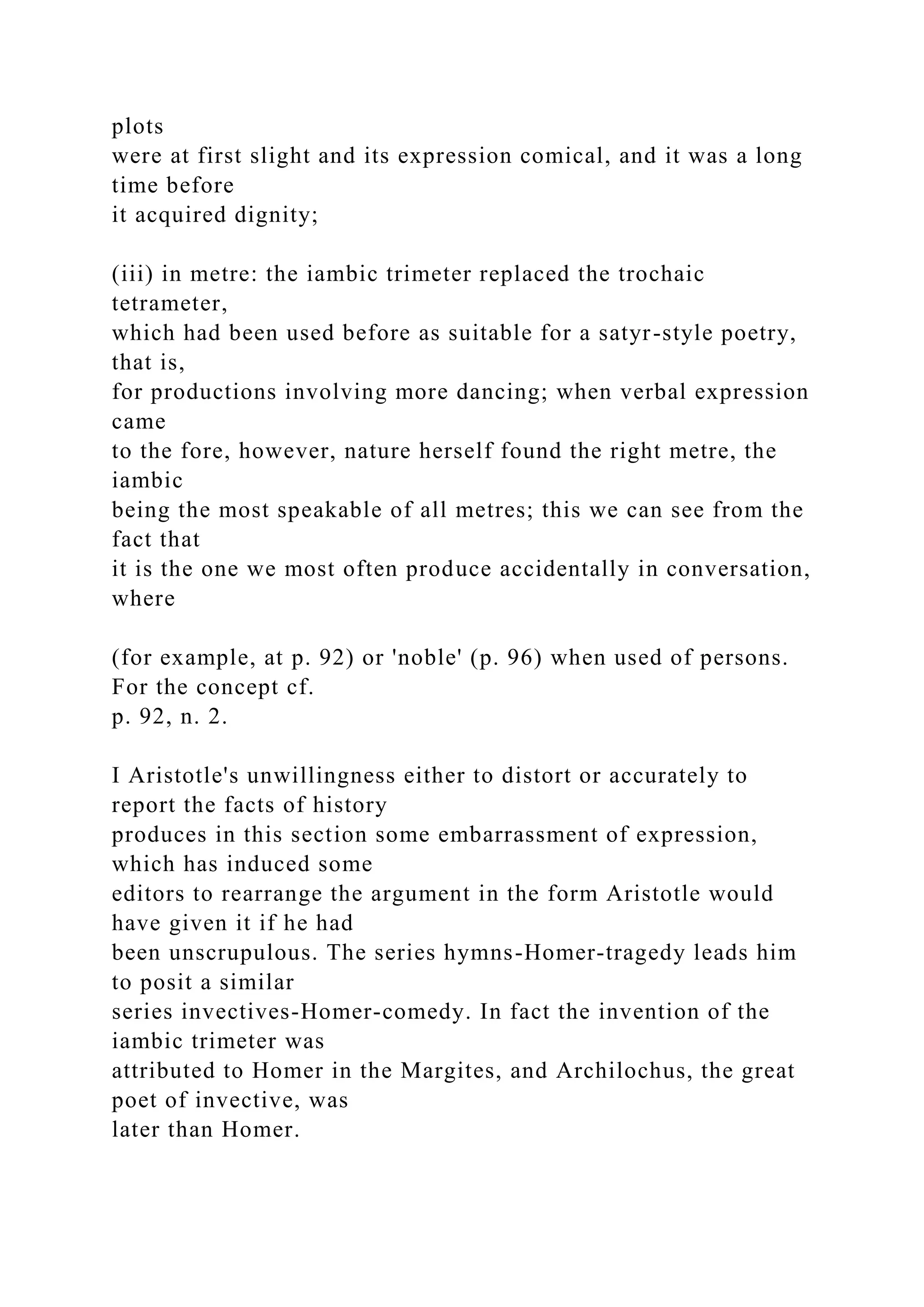
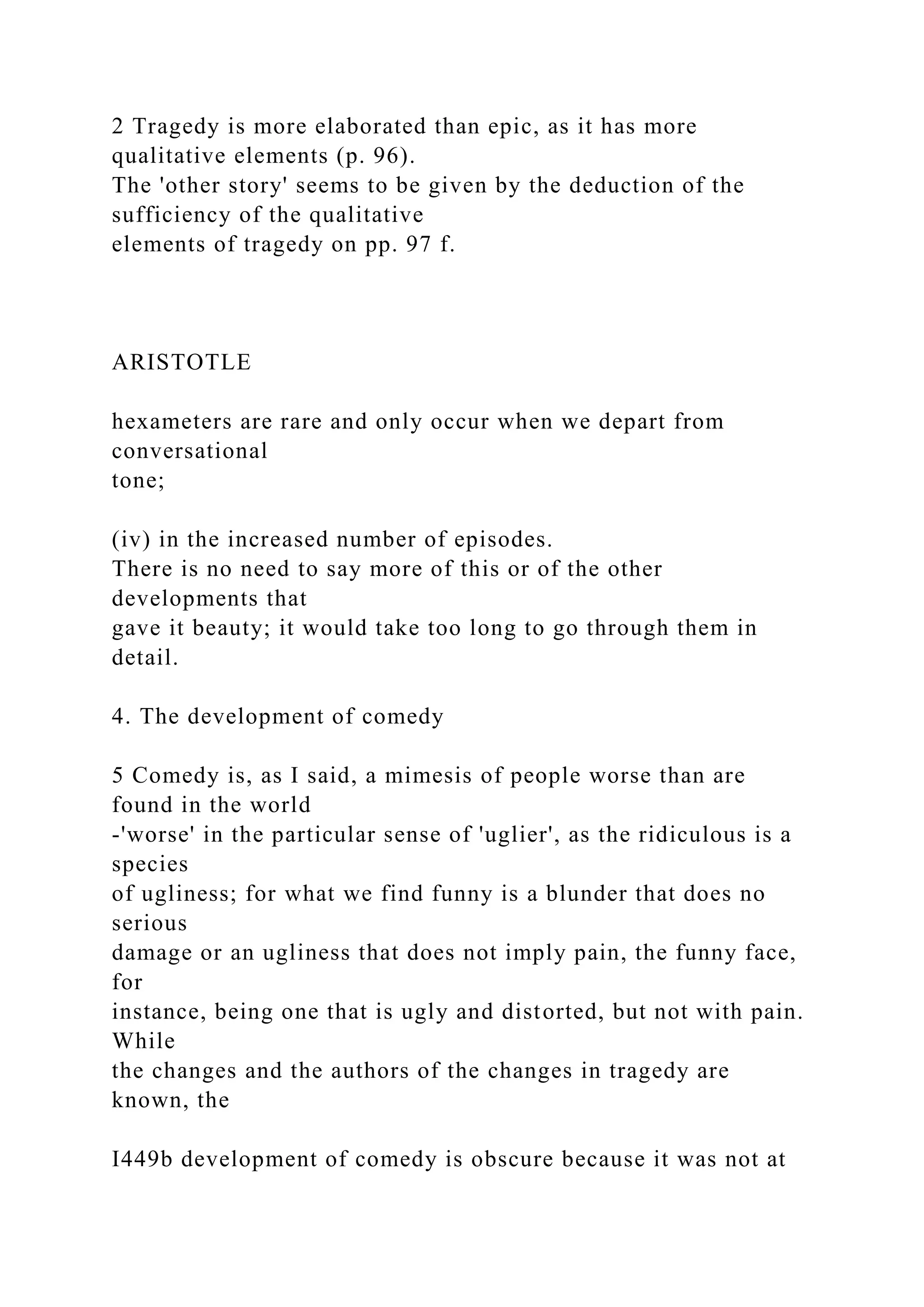
![first taken
seriously; the chorus, for instance, were for a long time
volunteers, and
not provided officially by the archon. The form was already
partly fixed
before the first recorded comic poets, and so we do not know
who intro-
duced masks, prologues, numerous actors, and so on; the
making of
plots, however, certainly came first from Sicily, Crates being
the first
Athenian to drop the lampoon form and construct generalized
stories or
plots.
SECTION C. APOLOGY FOR POSTPONING THE
TREATMENT OF EPIC,
IN DEFIANCE OF CHRONOLOGY
Epic, in so far as it is a sizeable! mimesis in verse of noble
personages,
goes along with tragedy, but differs from it in using metre alone
[without
music] and in being in narrative form; it also differs in length,
tragedy
attempting so far as possible to keep to the limit of one
revolution of
the sun or not much more or less, while epic is unfixed in time.
This
differentiates them now, but at first tragic practice was the same
as epic.
Of their elements some are the same, some peculiar to tragedy,
so that any
judge of excellence in tragedy can judge of epic too, since
tragedy has](https://image.slidesharecdn.com/onlyprojectmanagementexpertineedtheanswers-221204163350-5fd2686e/75/Only-Project-Management-Expert-I-need-the-answers-docx-33-2048.jpg)
![everything that epic has, while epic lacks some of tragedy's
elements.
6 I shall deal later with the art of mimesis in hexameters and
with comedy;
here I want to talk about tragedy, picking up the definition of
its essential
nature that results from what I have said.
I The text is corrupt and the 'sizeable' is a conjecture.
POETICS
CHAPTER 11
THE NATU.RE OF TRAGEDY
SECTION A. THE NATURE OF TRAGEDY ACCORDING TO
THE
CATEGORY OF SUBSTANCE
97
Well then, a tragedy is a mimesis of a high, complete action
('complete' in
the sense that implies amplitude), in speech pleasurably
enhanced, the
different kinds [of enhancement] occurring in separate sections,
in
dramatic, not narrative form, effecting through pity and fear the
catharsis'
of such emotions. By 'speech pleasurably enhanced' I mean that
involving](https://image.slidesharecdn.com/onlyprojectmanagementexpertineedtheanswers-221204163350-5fd2686e/75/Only-Project-Management-Expert-I-need-the-answers-docx-34-2048.jpg)
![rhythm and harmony or song, by 'the different kinds separately'
that
some parts are in verse alone and others in song.
SECTION B. THE NATURE OF TRAGEDY ACCORDING TO
THE
CATEGORY OF QUALITY
1. The deduction of the qualitative elements of tragedy
One can deduce as necessary elements of tragedy Ca) [from the
mode] the
designing of the spectacle, since the mimesis is produced by
people doing
things; (b) [from the media] song-writing and verbal expression,
the
media of tragic mimesis; by 'verbal expression' I mean the
composition of
the verse-parts, 2 while the meaning of 'song-writing' is obvious
to any-
body. [Others can be inferred from (c) the objects of the
mimesis:] A
tragedy is a mimesis of an action; action implies people
engaged in it;
these people must have some definite moral and intellectual
qualities,
since it is through a man's qualities that we characterize his
actions,3 1450'
and it is of course with reference to their actions that men are
said to
succeed or fail. We therefore have (i) the mimesis of the action,
the plot,
by which I mean the ordering of the particular actions; (ii) [the
mimesis of]
the moral characters of the personages, namely that [in the play]](https://image.slidesharecdn.com/onlyprojectmanagementexpertineedtheanswers-221204163350-5fd2686e/75/Only-Project-Management-Expert-I-need-the-answers-docx-35-2048.jpg)
![which
makes us say that the agents have certain moral qualities; (iii)
[the
mimesis of] their intellect, namely those parts [of the play] in
which they
demonstrate something in speech or deliver themselves of some
general
maxim. 4
I Cf. below, pp. 132 ff. 2 i.e. of the dialogue parts.
3 The manuscripts add 'to explain actions we refer to the moral
character and
intellect of the person doing them'; this is sensible enough in
itself, but it disrupts the
sentence and is clearly an intrusive gloss to explain the
preceding clause.
• Throughout the rest of the treatise 'mimesis of character' and
'mimesis of intellect'
are used without square brackets to translate ethos and dianoia
in this technical sense.
8143591 H
ARISTOTLE
So tragedy as a whole will necessarily have six elements, the
possession
of which makes tragedy qualitatively distinct [from other
literary kinds]:
they are plot, the mimesis of character, verbal expression, the
mimesis of
intellect, spectacle, and song-writing. The media of mimesis are](https://image.slidesharecdn.com/onlyprojectmanagementexpertineedtheanswers-221204163350-5fd2686e/75/Only-Project-Management-Expert-I-need-the-answers-docx-36-2048.jpg)
![two, the
mode one, the objects three, and there are no others. Not a few
tragedians
do in fact use these as qualitative elements; indeed virtually I
every play
has spectacle, the mimesis of character, plot, verbal expression,
song, and
the mimesis of intellect.
2. The qualitattve elements ranged in order of importance
(a) THE ARGUMENTS FOR THE PRE-EMINENCE OF PLOT
The most important of these elements is the arrangement of the
particular
actions [as the following arguments show]:
(a) A tragedy is [by definition] a mimesis not of people but of
their
actions and life. Both success and ill success are success and ill
success
in action-in other words the end and aim of human life2 is doing
some-
thing, not just being a certain sort of person; and though we
consider
people's characters in deciding what sort of persons they are, we
call
them successful or unsuccessful only with reference to their
actions. 3
So far therefore from the persons in a play acting as they do in
order to
represent their characters, the mimesis of their characters is
only included
along with and because of their actions. So the particular
actions, the plot,
are what the rest of the tragedy is there for,4 and what the rest](https://image.slidesharecdn.com/onlyprojectmanagementexpertineedtheanswers-221204163350-5fd2686e/75/Only-Project-Management-Expert-I-need-the-answers-docx-37-2048.jpg)
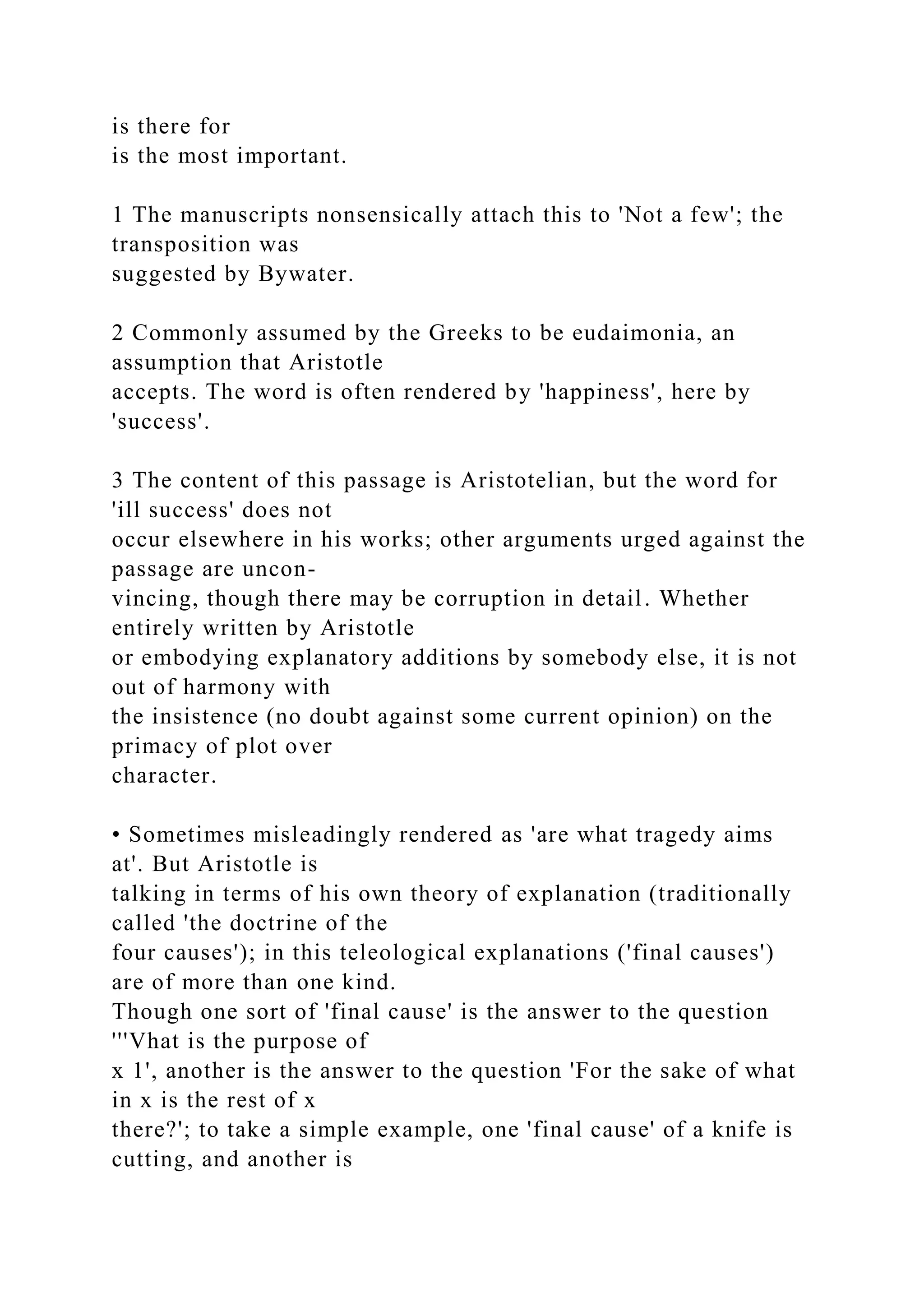
![the cutting edge. The argument here plainly shows that plot is
the 'final cause' of tragedy
in the second sense, not in the first. The purpose of tragedy is
stated on p. 108, 'the
poet's job is to produce the pleasure springing from pity and
fear via mimesis'.
POETICS 99
Cb) [By definition] a work could not be a tragedy if there were
no
action. But there could be a tragedy without mimesis of
character,
and the tragedies of most of the modems are in fact deficient in
it; the
same is true of many other poets, and of painters for that matter,
of
Zeuxis, for instance, in comparison with Polygnotus: the latter
is good
at depicting character, while Zeuxis' painting has no mimesis of
character
to speak of.
(c) If you put down one after another speeches that depicted
character,
finely expressed and brilliant in the mImesis of intellect, that
would not
do the job that, by definition, tragedy does do, while a tragedy
with a
plot, that is, with an ordered series of particular actions, though
deficient
in these other points, would do its job much better.
(d) The most attractive things in tragedy, peripeteiai and](https://image.slidesharecdn.com/onlyprojectmanagementexpertineedtheanswers-221204163350-5fd2686e/75/Only-Project-Management-Expert-I-need-the-answers-docx-39-2048.jpg)
![recognition
scenes, are parts of the plot.
(e) Novices in poetry attain perfection in verbal expression and
in the
mimesis of character much earlier than in the ordering of the
particular
actions; this is also true of almost all early poets.
(b) THE STATEMENT OF THE ORDER
The plot therefore is the principle, or one might say the
principle of
life,' in tragedy, while the mimesis of character comes second in
impor-
tance, a relation similar to one we find in painting, where the
most beautiful I4S0b
colours, if smeared on at random, would give less pleasure than
an un-
coloured oudine that was a picture of something. A tragedy, I
repeat,
is a mimesis of an action, and it is only because of the action
that it is a
mimesis of the people engaged in it. Third comes the mimesis of
their
intellect, by which I mean their ability to say what the situation
admits
and requires; to do this in speeches is the job of political sense
and rhetoric,
since the older poets made their people speak as the former
directs, while
the modems make them observe the rules of rhetoric. Of these
two, the
mimesis of character is that [in the play] which makes plain the
nature of
the moral choices the personages make,2 so that those speeches](https://image.slidesharecdn.com/onlyprojectmanagementexpertineedtheanswers-221204163350-5fd2686e/75/Only-Project-Management-Expert-I-need-the-answers-docx-40-2048.jpg)
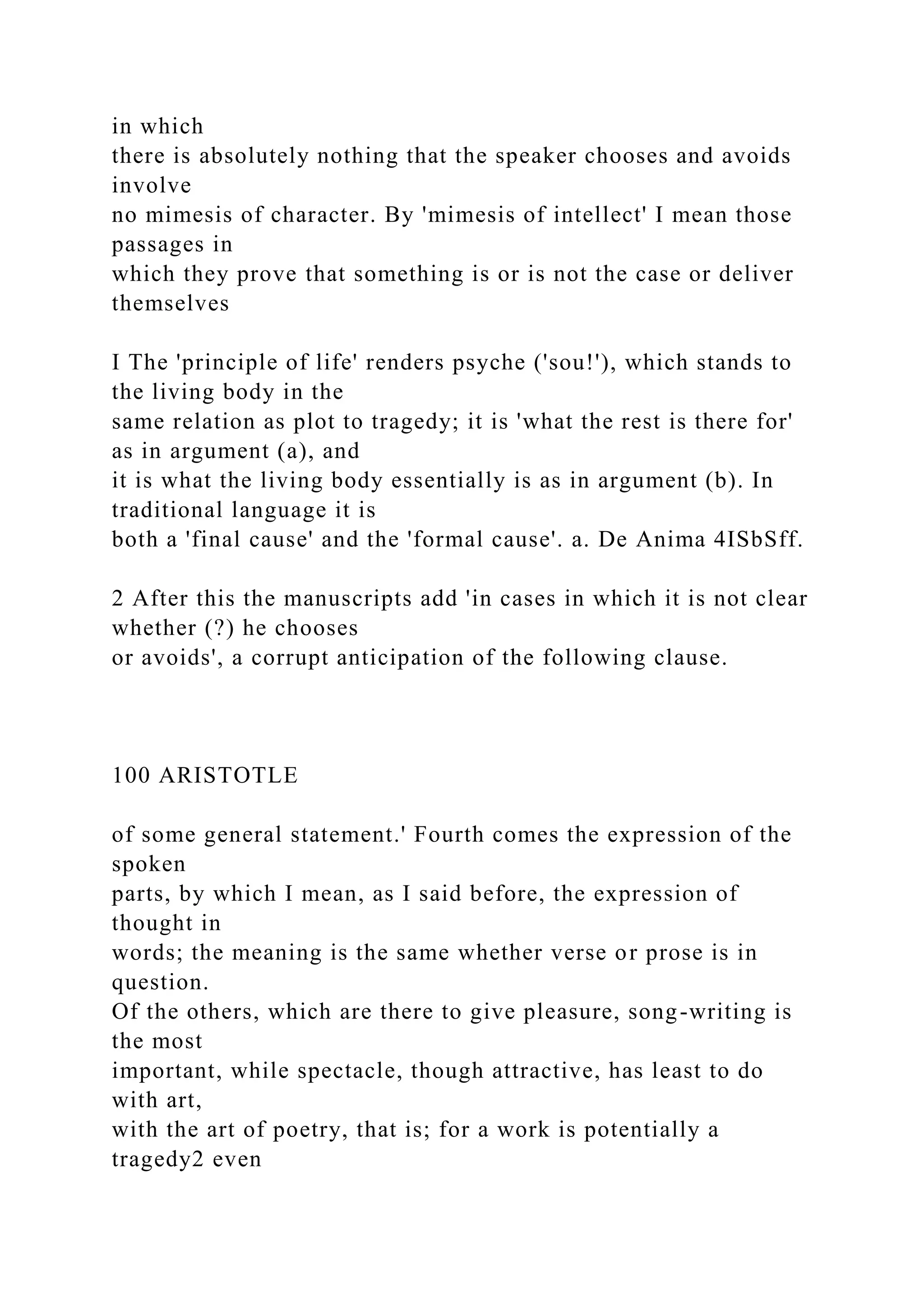
![without public performance and players, and the art of the
stage-designer
contributes more to the perfection of spectacle than the poet's
does.
3. Closer analysis of plop
(a) THE ESSENTIAL CHARACTERISTICS OF A PLOT, WITH
REFERENCE
TO ITS DEFINITION AS THE MIMESIS OF A WHOLE
ACTION4
(i) The first implication of wholeness: order
7 Now that these definitions are out of the way, I want to
consider what the
arrangement of the particular actions should be like, since that
is the
prime and most important element of tragedy.
Now, we have settled that a tragedy is a mimesis of a complete,
that is,
of a whole action, 'whole' here implying some amplitude (there
can be a
whole without amplitude).
By 'whole' I mean 'with a beginning, a middle, and an end'. By
'beginning' [in this context] I mean 'that which is not
necessarily the
consequent of something else, but has some state or happening
naturally
consequent on it', by 'end' 'a state that is the necessary or usual
consequent
of something else, but has itself no such consequent', by
'middle' 'that
which is consequent and has consequents'. Well-()rdered plots,](https://image.slidesharecdn.com/onlyprojectmanagementexpertineedtheanswers-221204163350-5fd2686e/75/Only-Project-Management-Expert-I-need-the-answers-docx-42-2048.jpg)
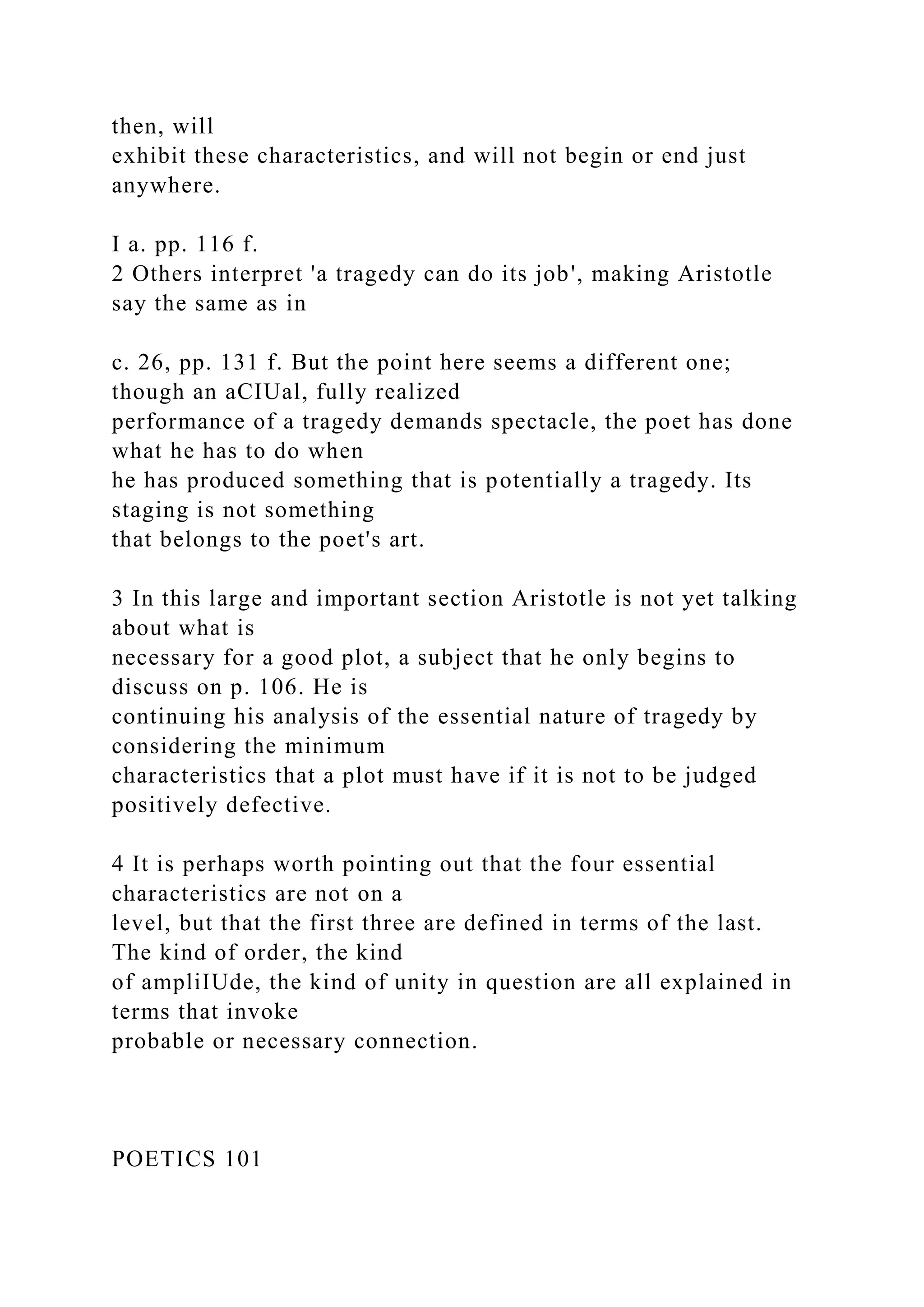
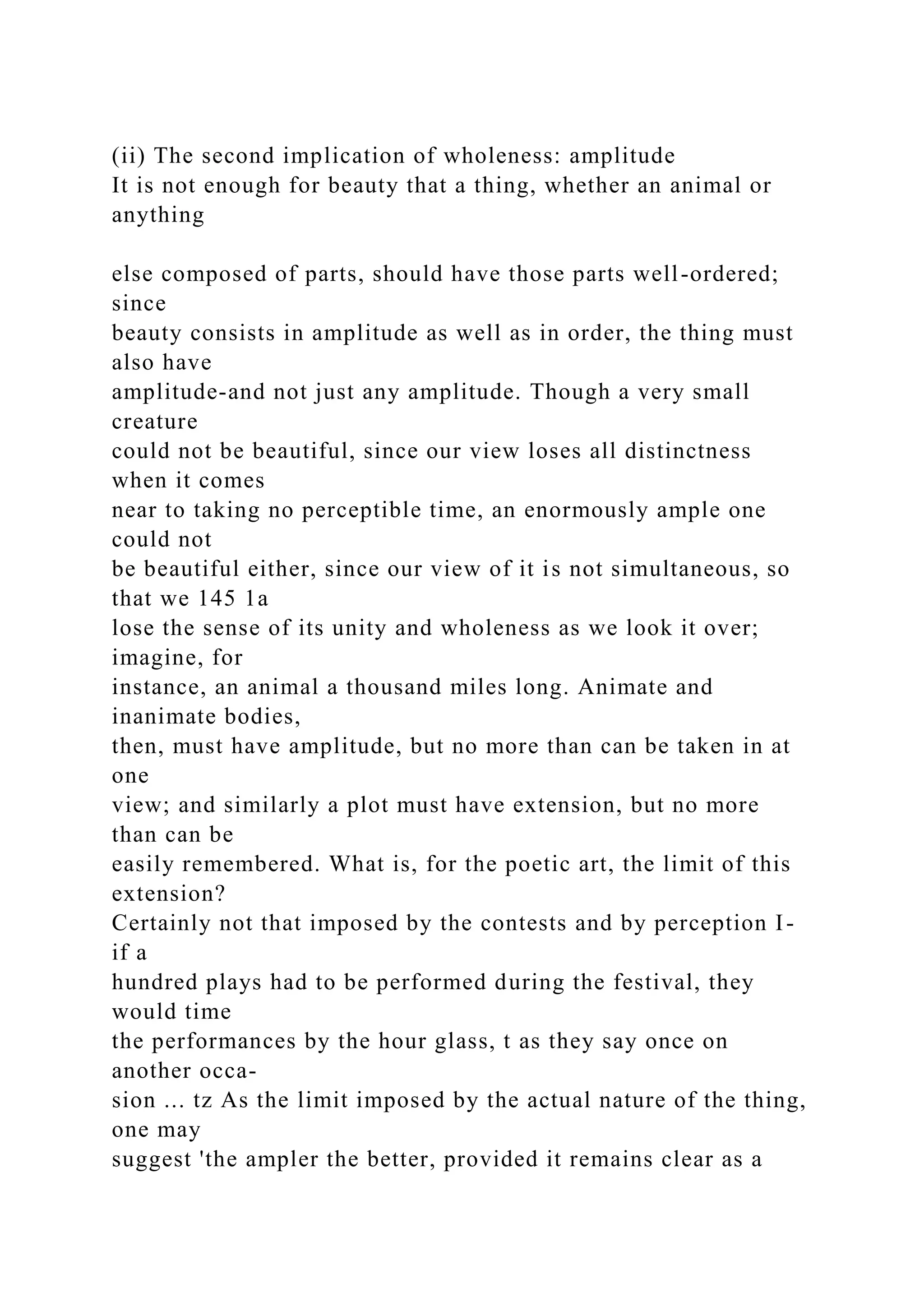
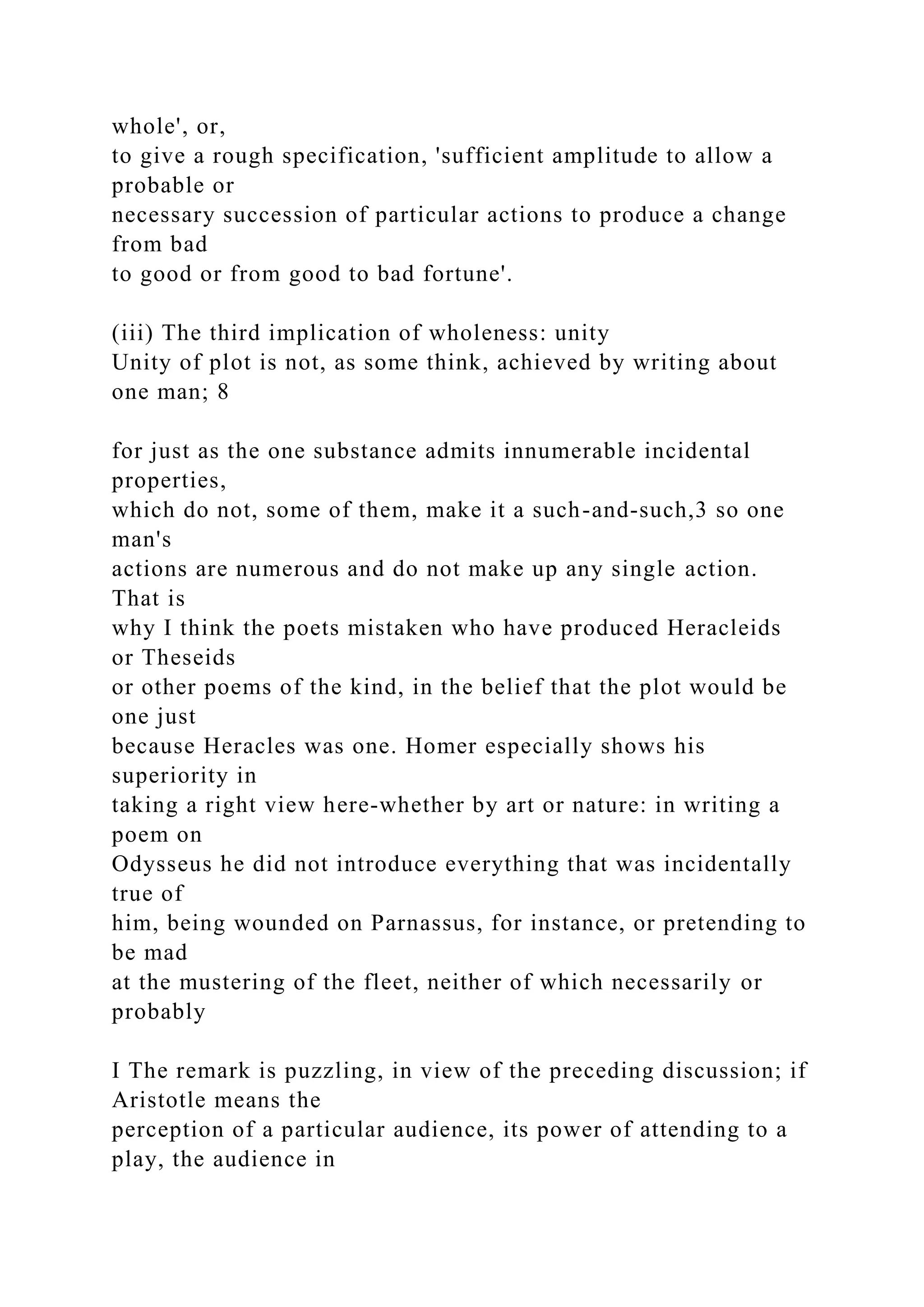
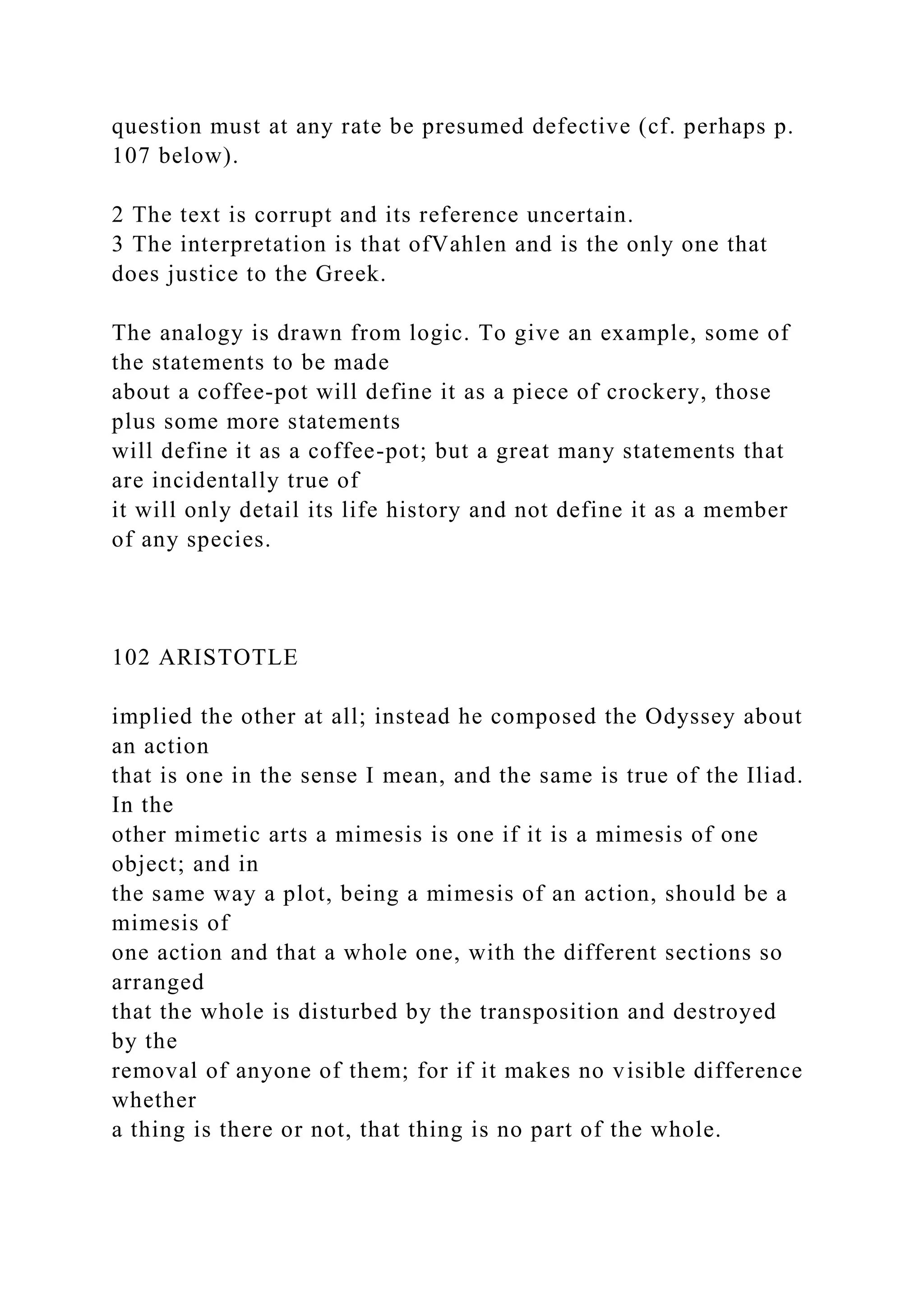
![(iv) The fourth implication of wholeness: probable and
necessary connection
9 What I have said also makes plain that the poet's job is saying
not what
did happen but the sort of thing that would happen, that is, what
can
happen in a strictly probable or necessary sequence. The
difference
145Ib between the historian and the poet is not merely that one
writes verse
and the other prose-one could turn Herodotus' work into verse
and it
would be just as much history as before; the essential difference
is that
the one tells us what happened and the other the sort of thing
that would
happen. That is why poetry is at once more like philosophy and
more
worth while than history, since poetry tends to make general
statements,
while those of history are particular. A 'general statement'
means [in this
context] one that tells us what sort of man would, probably or
necessarily,
say or do what sort of thing, and this is what poetry aims at,
though it
attaches proper names; a particular statement on the other hand
tells us
what Alcibiades, for instance, did or what happened to him.!
That poetry does aim at generality has long been obvious in the
case of
comedy, where the poets make up the plot from a series of
probable](https://image.slidesharecdn.com/onlyprojectmanagementexpertineedtheanswers-221204163350-5fd2686e/75/Only-Project-Management-Expert-I-need-the-answers-docx-47-2048.jpg)
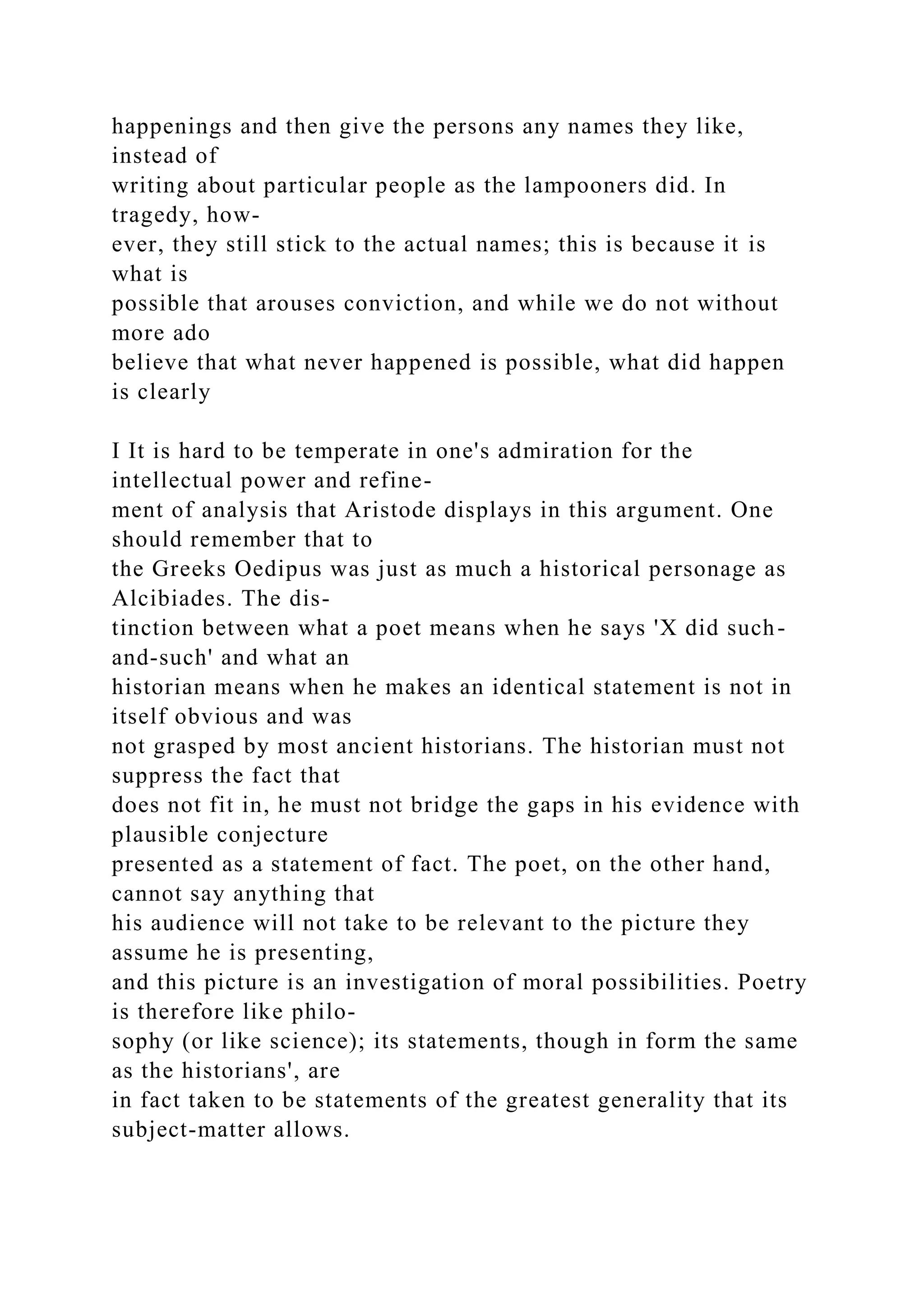
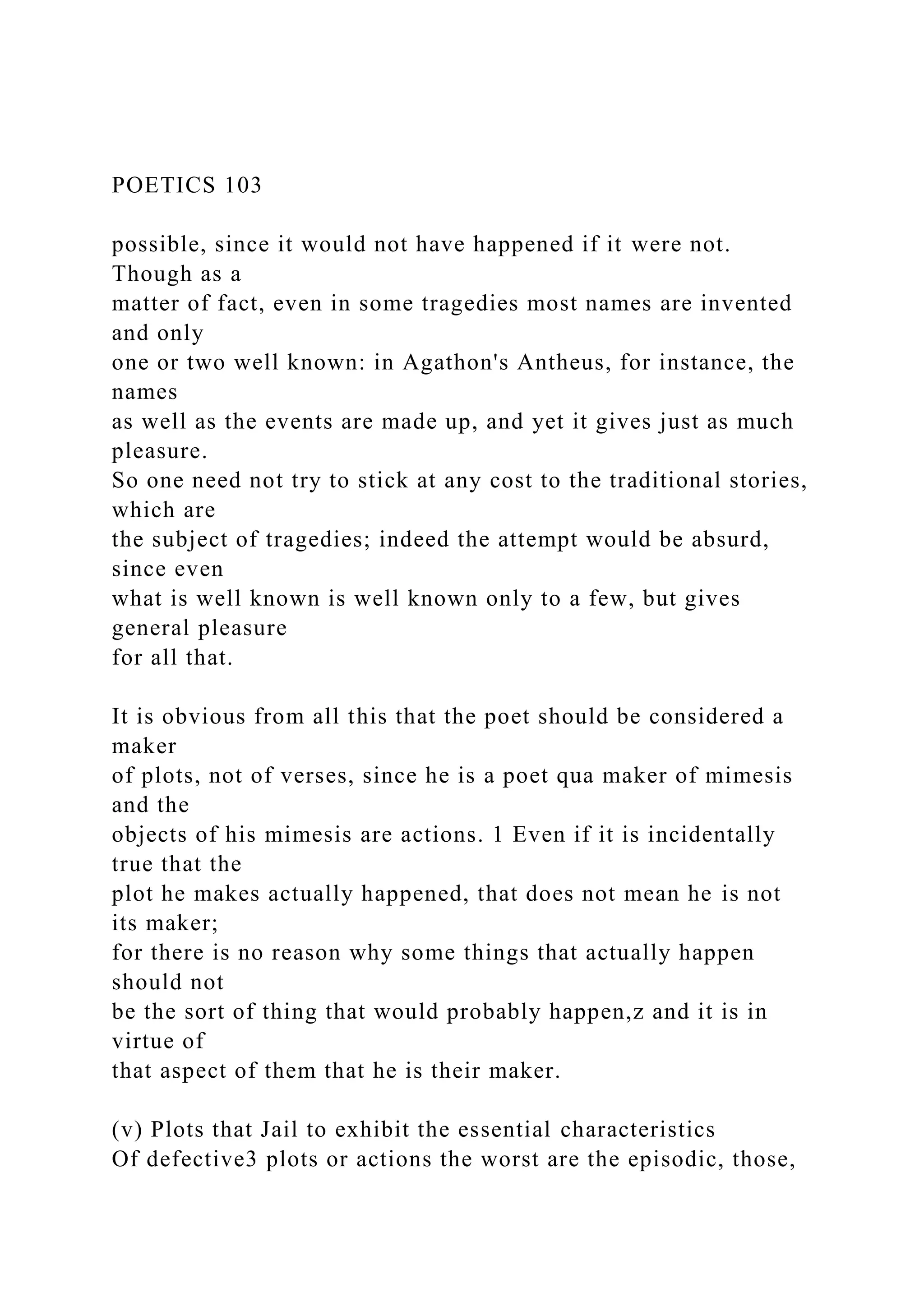
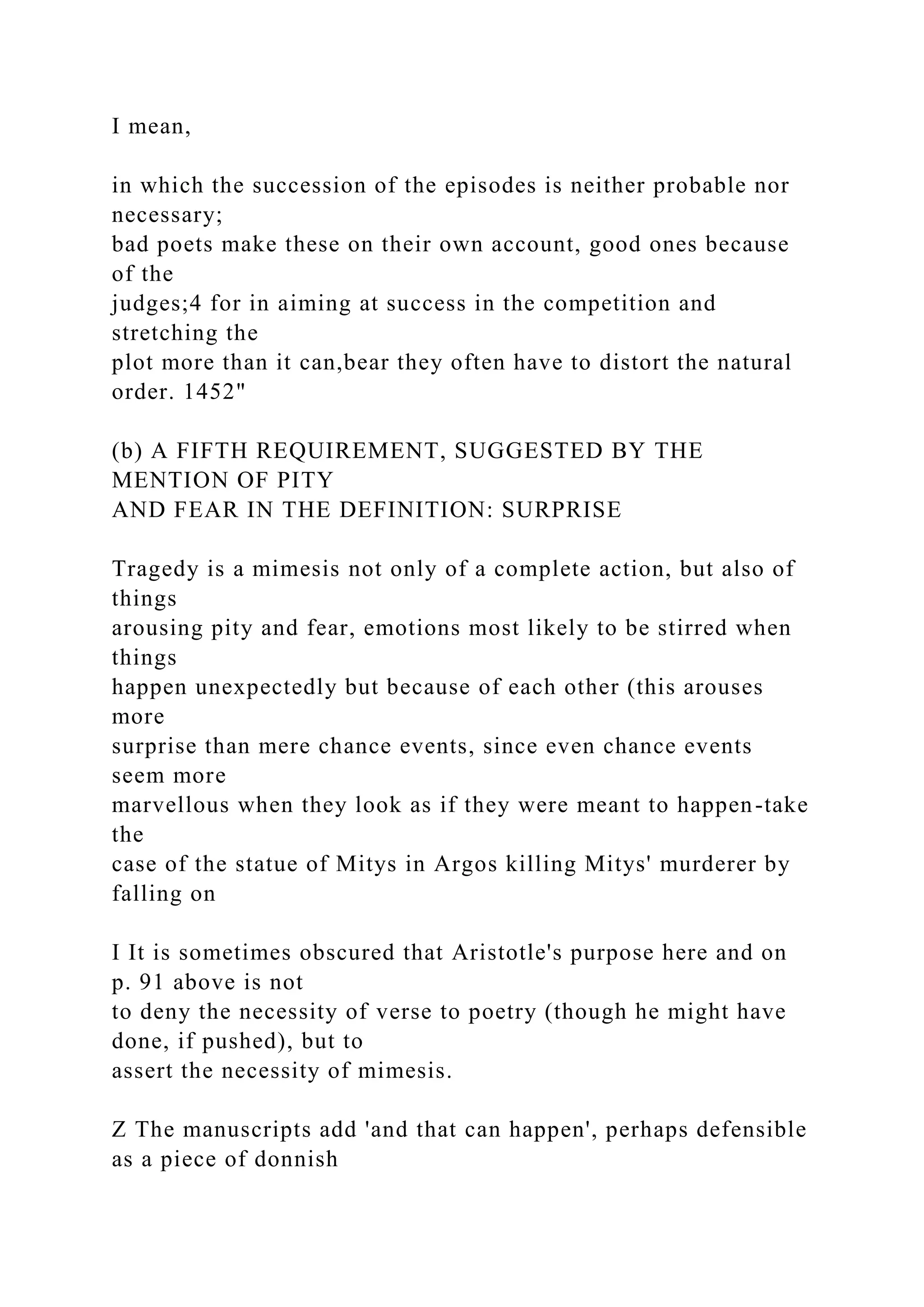
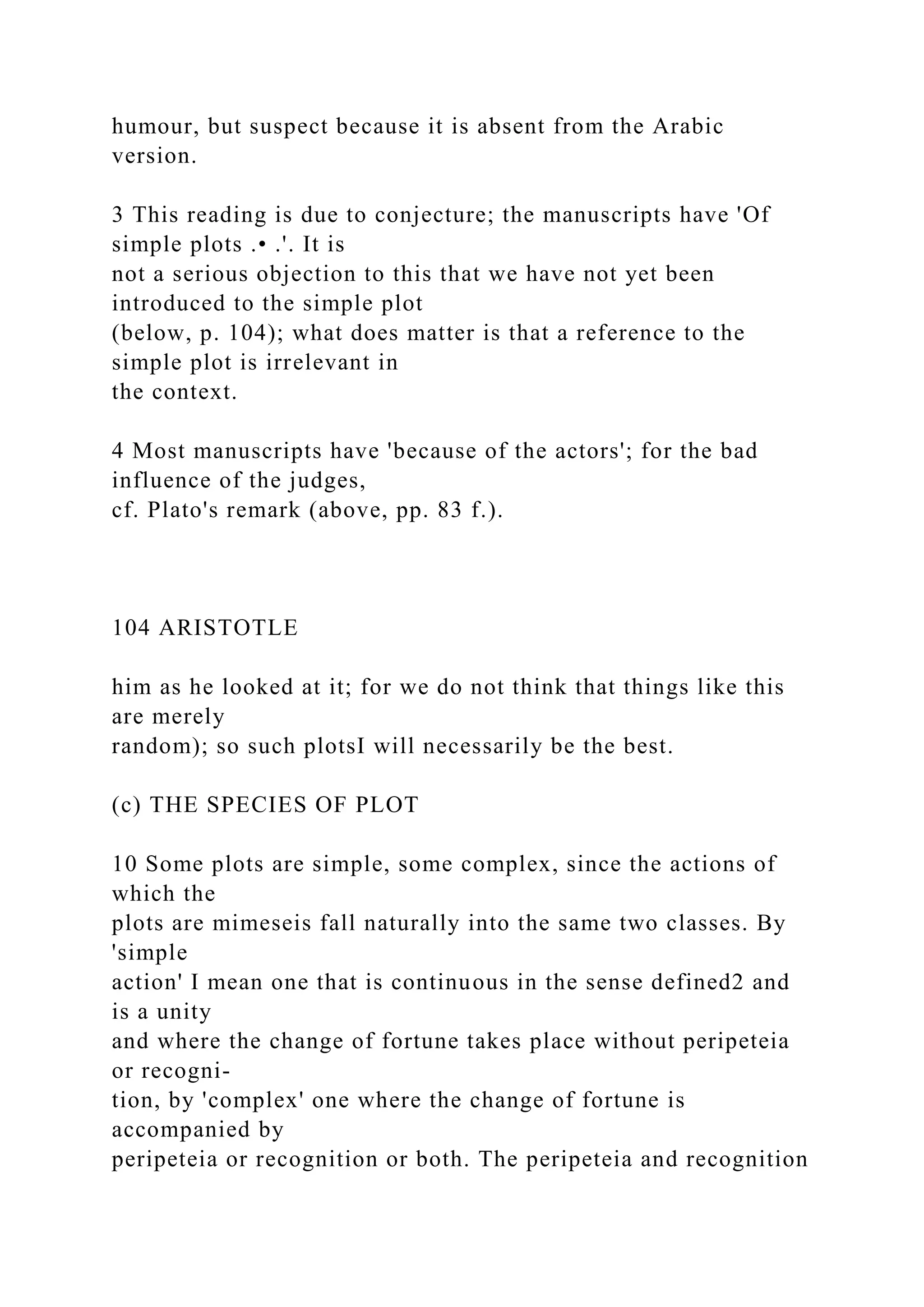
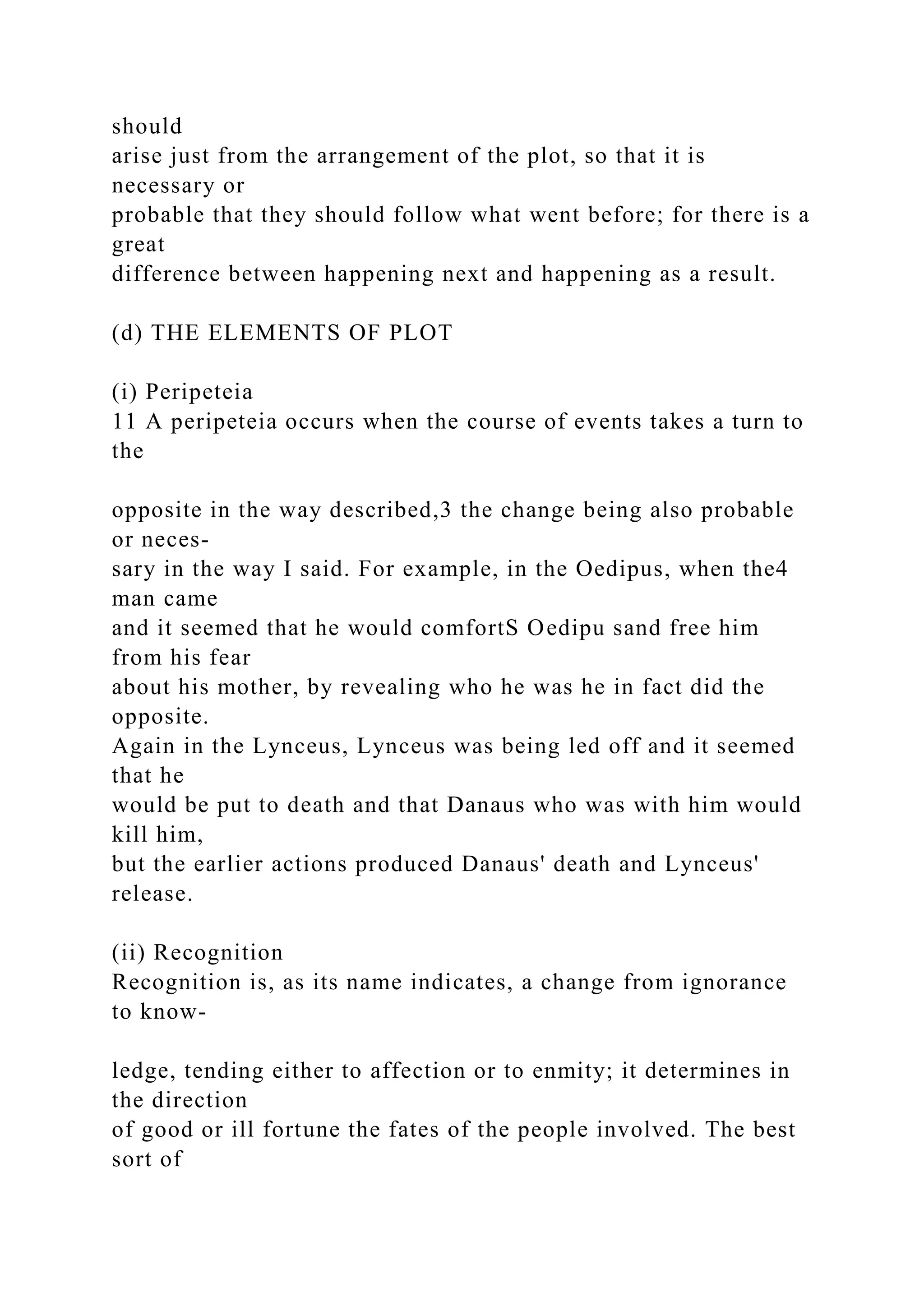
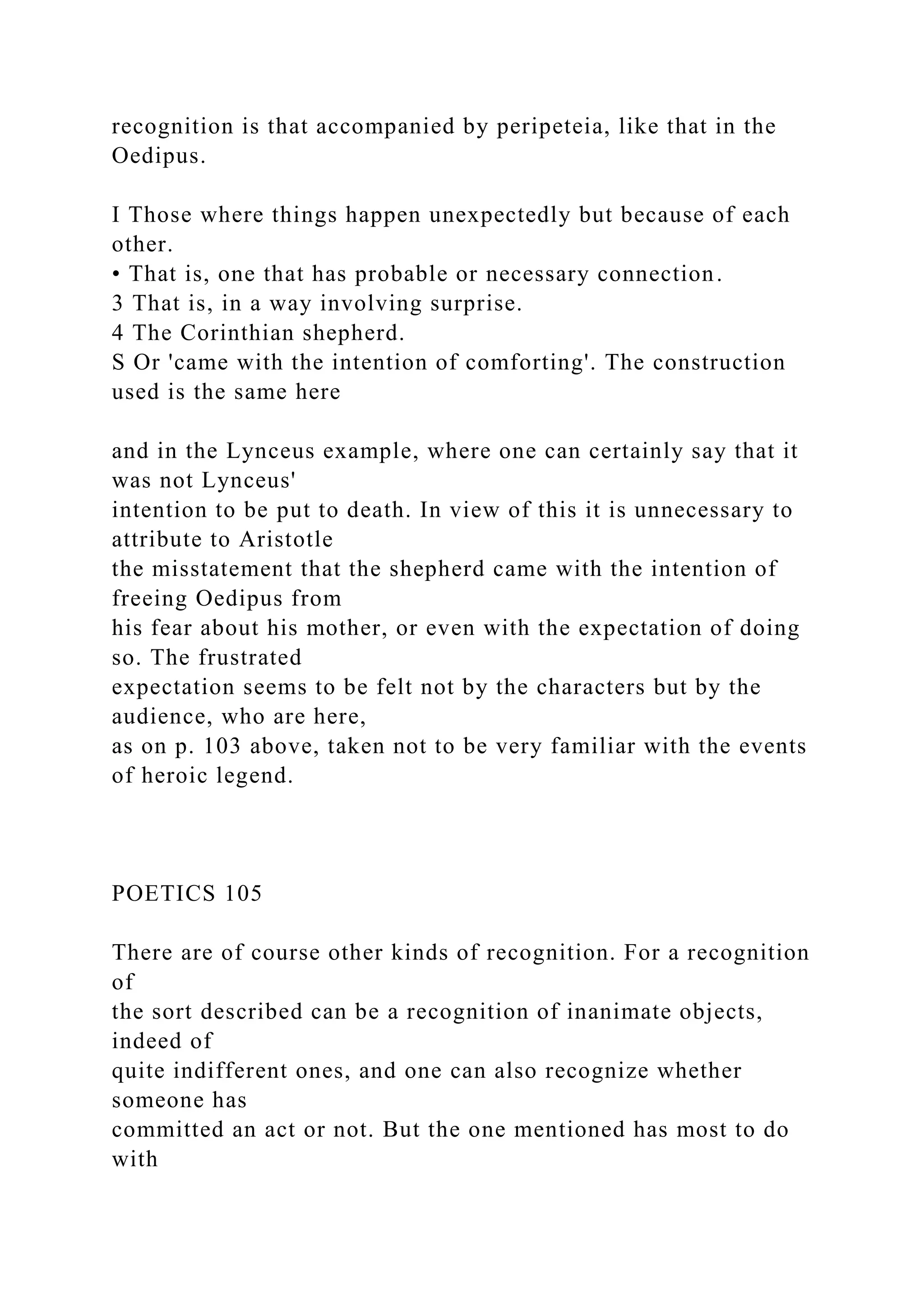
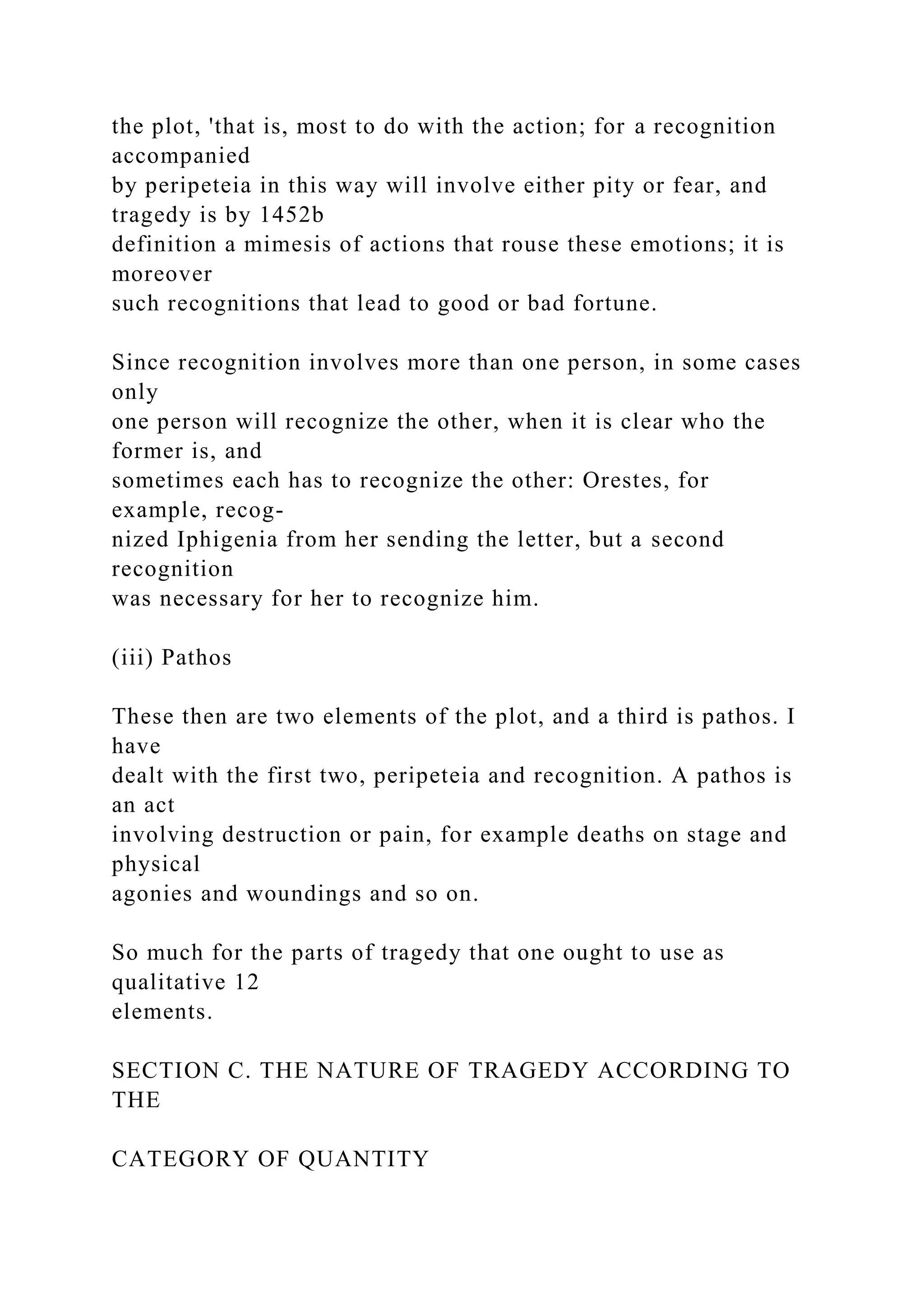
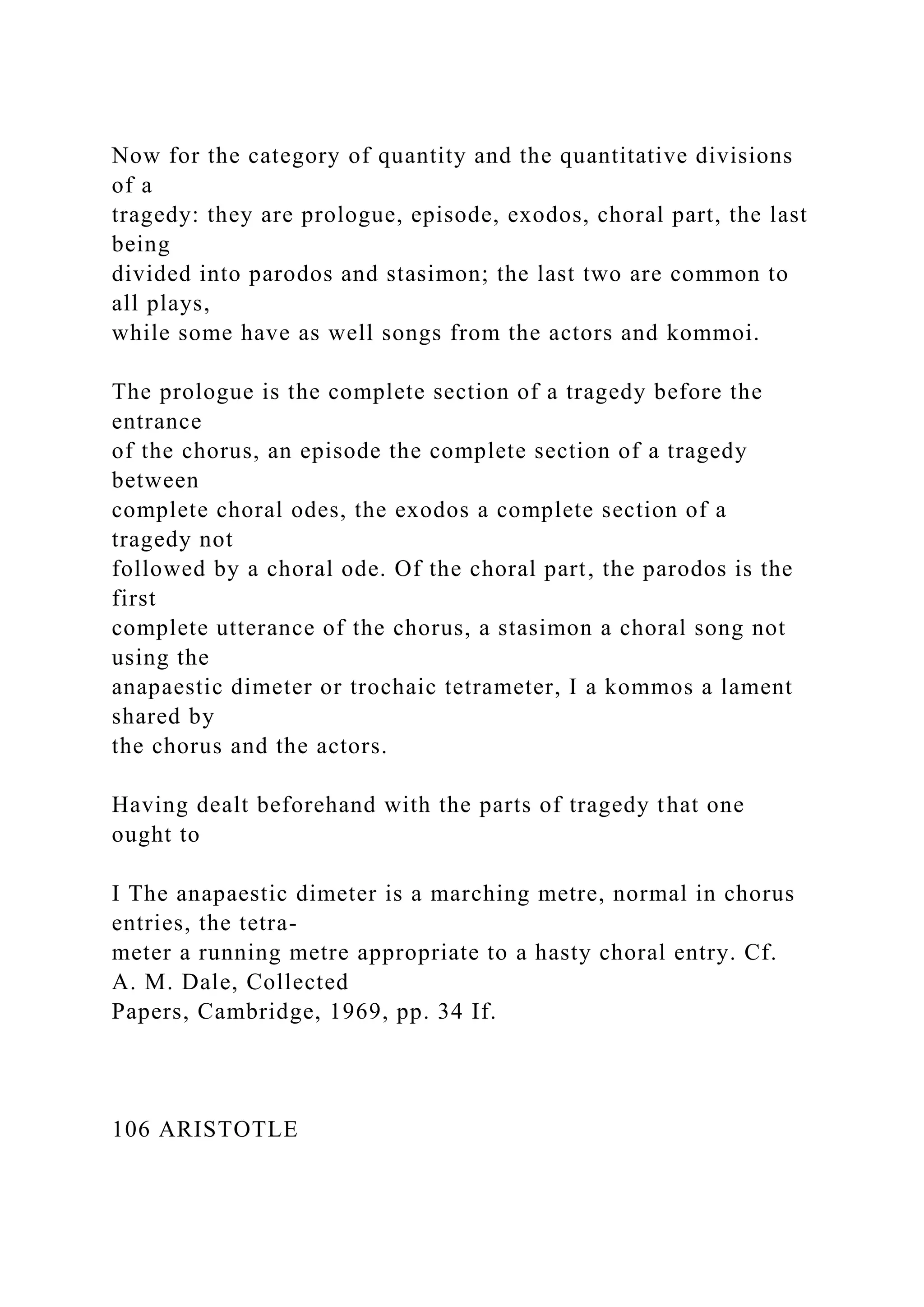
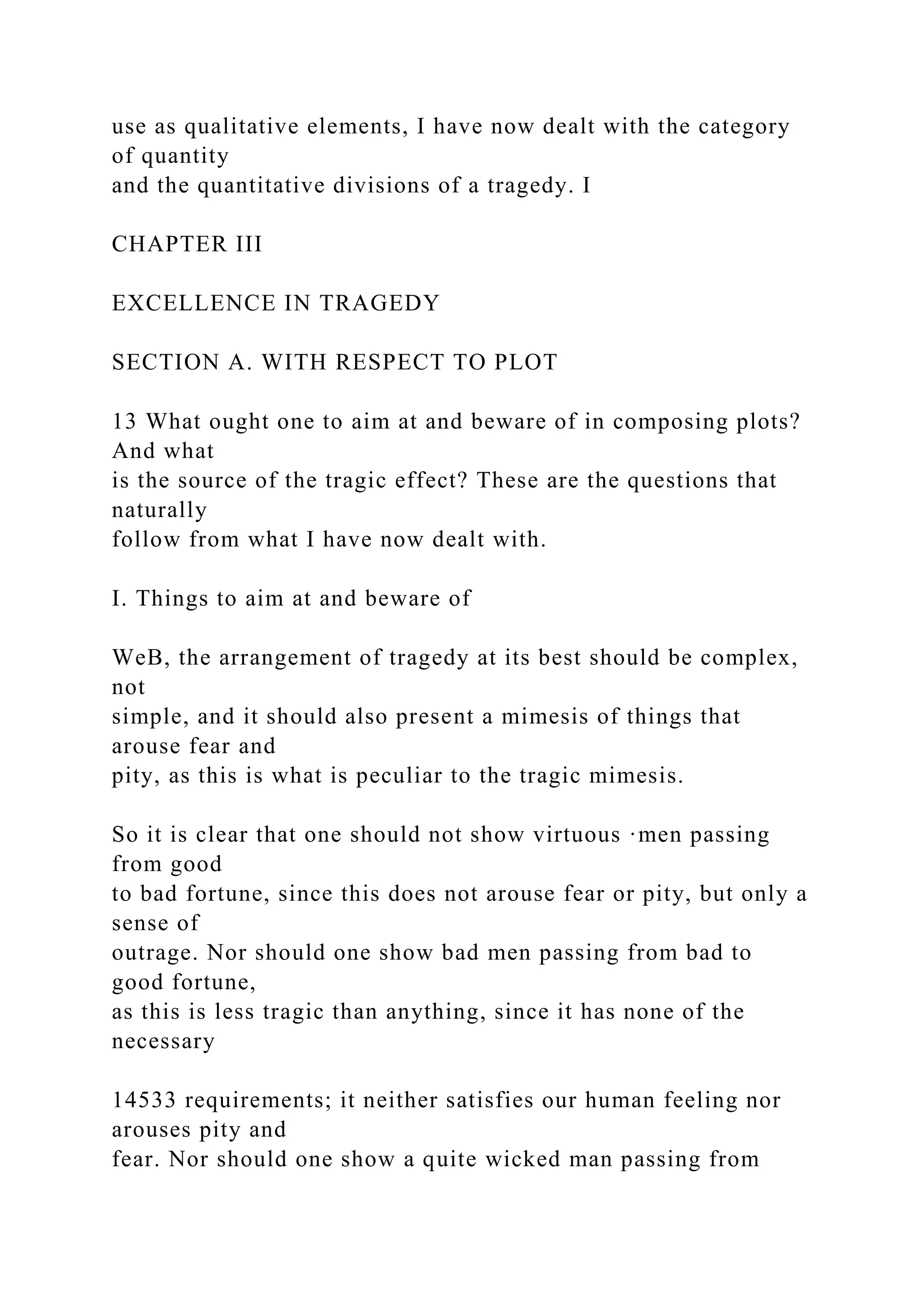
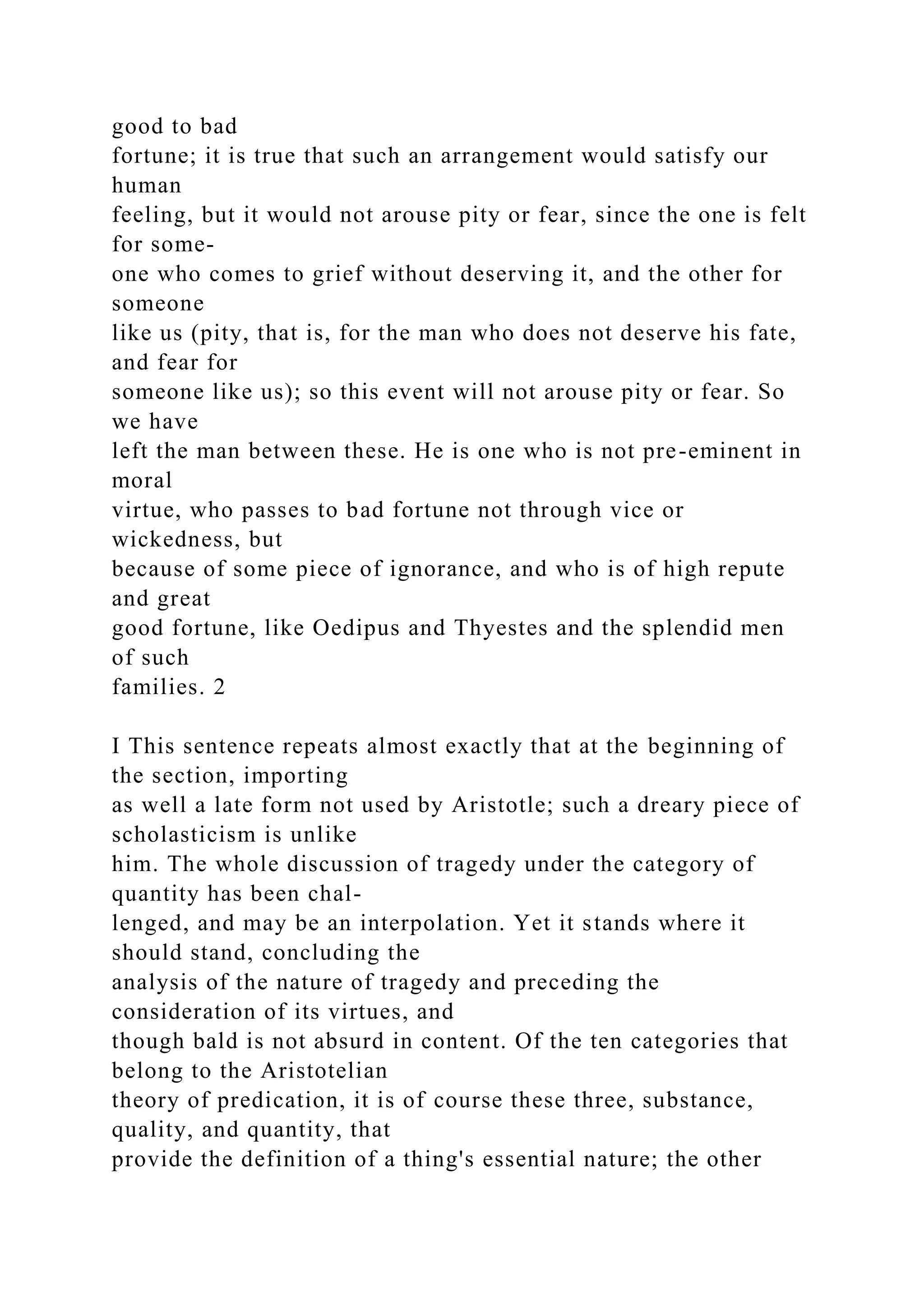
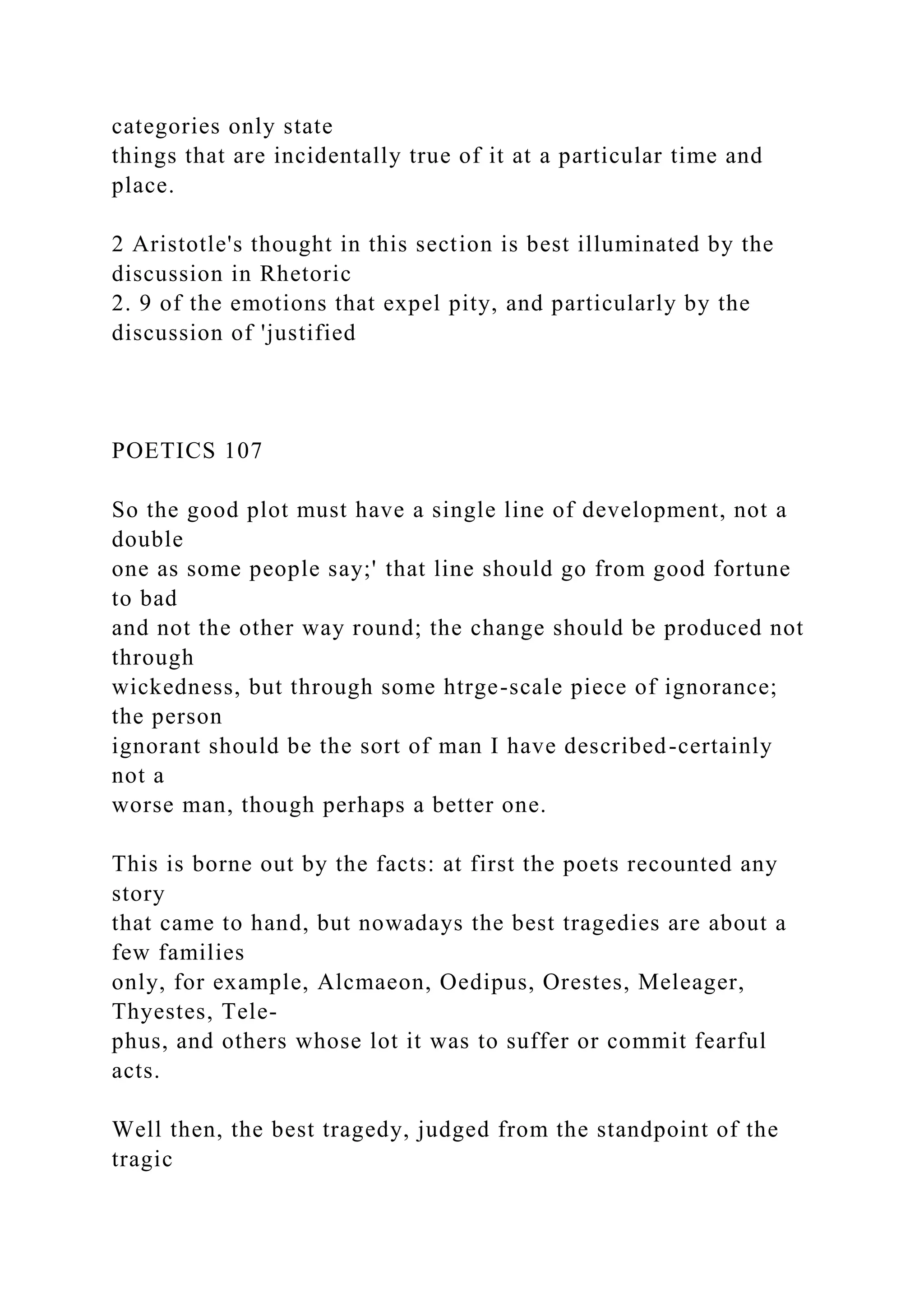
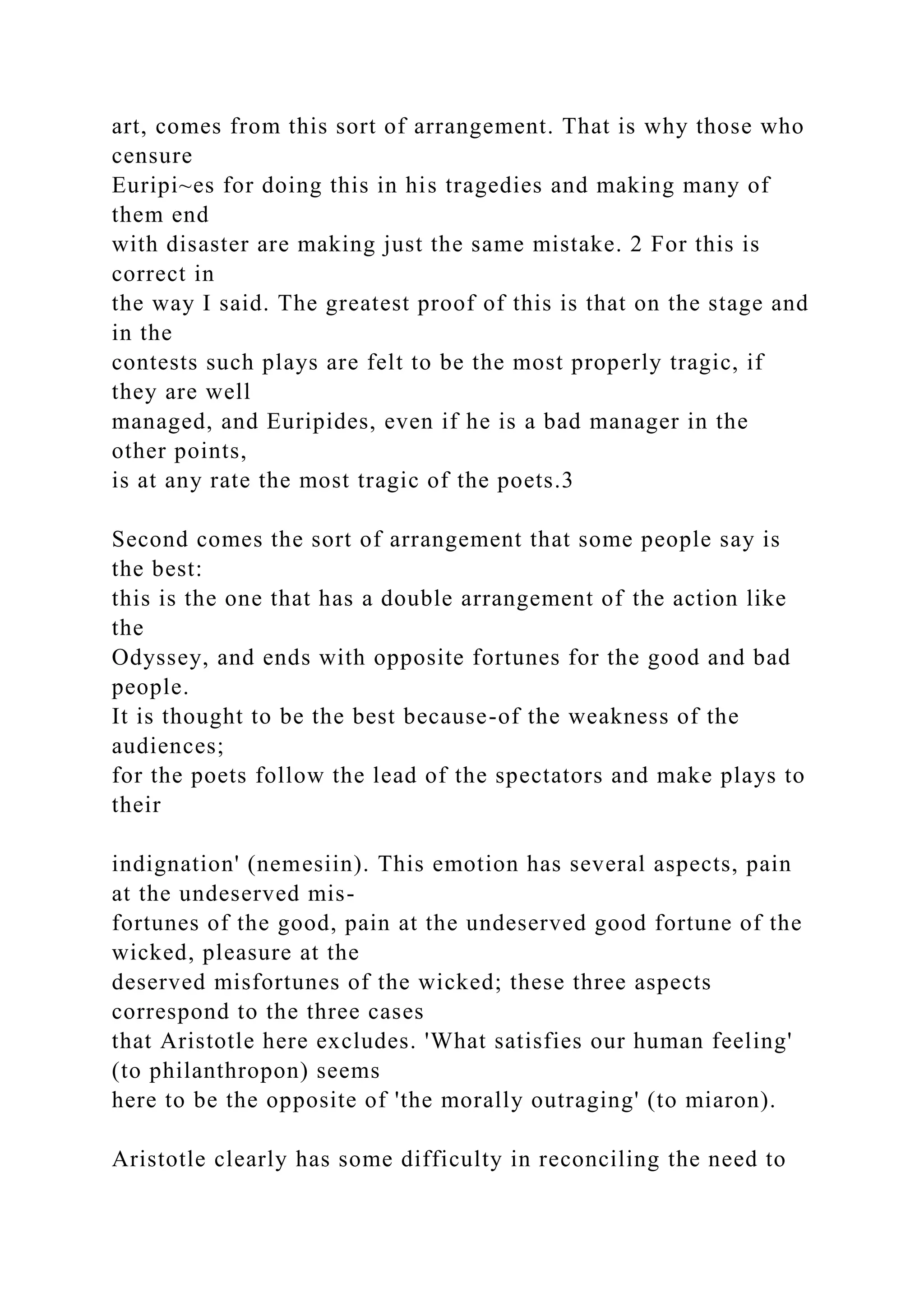
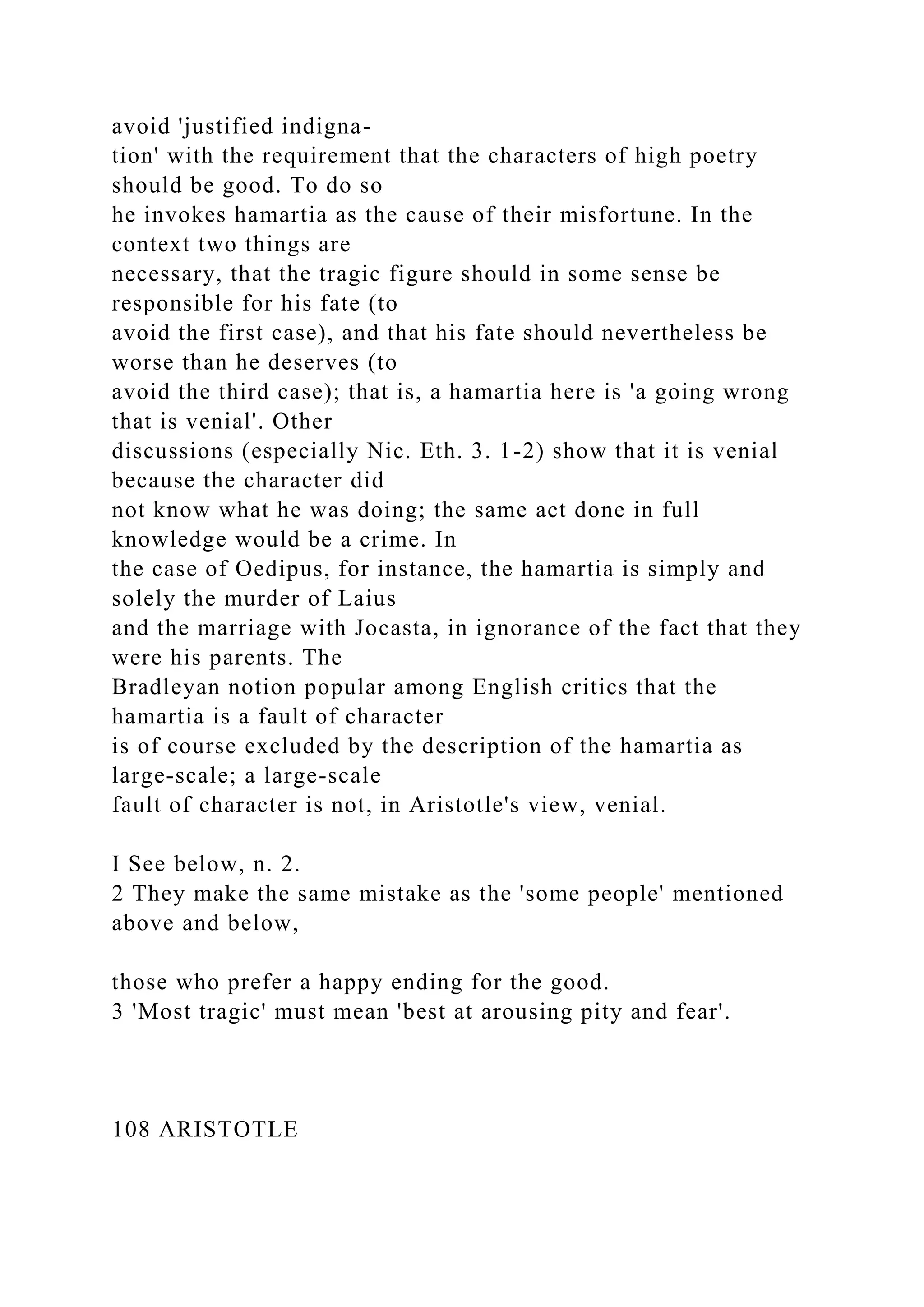
![specifications. But this is not the pleasure proper to tragedy, but
rather
belongs to comedy; for in comedy those who are most bitter
enemies
throughout the plot, as it might be Orestes and Aegisthus, I are
reconciled
at the end and go off and nobody is killed by anybody.
2. The source of the tragic effect
1453b Now though pity and fear can be elicited by the
spectacle, they can also
14 be elicited just by the arrangement of the particular actions
[that make
up the plot], and this is a prior consideration2 and the sign of a
better
poet. For the plot ought to be so composed that even without
seeing the
action, a man who just hears what is going on shudders and
feels pity
because of what happens; this one would feel on hearing the
plot of the
Oedipus, for instance. But to produce this effect via the
spectacle has
less to do with the art of tragedy and needs external aids. To go
further
and use the spectacle to produce something that is merely
monstrous,
instead of something that rouses fear, is to depart entirely from
tragedy.
For one should look to tragedy for its own pleasure, not just any
pleasure;
and since the poet's job is to produce the pleasure springing
from pity
and fear via mimesis, this clearly ought to be present in the](https://image.slidesharecdn.com/onlyprojectmanagementexpertineedtheanswers-221204163350-5fd2686e/75/Only-Project-Management-Expert-I-need-the-answers-docx-61-2048.jpg)
![elements of
the action.
What sort of events, then, do seem apt to rouse fear, or [rather]
pity?
This is my next subject. In such actions, people must do
something to
those closely connected with them, or to enemies, or to people
to whom
they are indifferent. Now, if it is a case of two enemies, this
arouses no
particular pity, whether the one damages the other or only
intends to;
or at least, pity is felt only at the pathos3 considered in itself.
The same
is true in the case when people are indifferent to each other. The
cases
we must look for are those where the pathos involves people
closely
connected, for instance where brother kills brother, son father,
mother
son, or son mother---or if not kills, then means to kill, or does
some other
act of the kind.
Well, one cannot interfere with the traditional stories, cannot,
for
instance, say that Clytaemestra was not killed by Orestes or
Eriphyle by
Alcmaeon; what one should do is invent for oneself and use the
traditional
material well. Let me explain more clearly what I mean by
'well'. One
can make the act be committed as the ancient poets did, that is,
with the](https://image.slidesharecdn.com/onlyprojectmanagementexpertineedtheanswers-221204163350-5fd2686e/75/Only-Project-Management-Expert-I-need-the-answers-docx-62-2048.jpg)
![I In tragedy, naturally. Aristotle is denied his joke by those who
either hunt solemnly
for a comedy on the topic of Orestes and Aegisthus or take this
to be a reference to a
hypothetical third form of tragedy, with a happy ending for
everybody.
• Prior both in time and in importance, as it belongs to the
poetic art proper; the
point is the same as that made about spectacle on p. 100 above.
3 Cf. above, p. 105.
POETICS log
agents knowing and aware [whom they are damaging]; even
Euripides has
the example of Medea killing her children with full knowledge.
[And
they can have knowledge and not act].' Or they can commit the
deed that
rouses terror without knowing to whom they are doing it, and
later
recognize the connection, like Sophocles' Oedipus; this indeed
happens
outside the play, but we have examples in the tragedy itself, for
example,
Astydamas' Alcmaeon and Telegonus in the Wounded Odysseus.
2 Again,
apart from these one might through ignorance intend to do
something
irreparable, and then recognize the victim-to-be before doing it.
These
are the only possible ways, as they must either do it or not, and](https://image.slidesharecdn.com/onlyprojectmanagementexpertineedtheanswers-221204163350-5fd2686e/75/Only-Project-Management-Expert-I-need-the-answers-docx-63-2048.jpg)
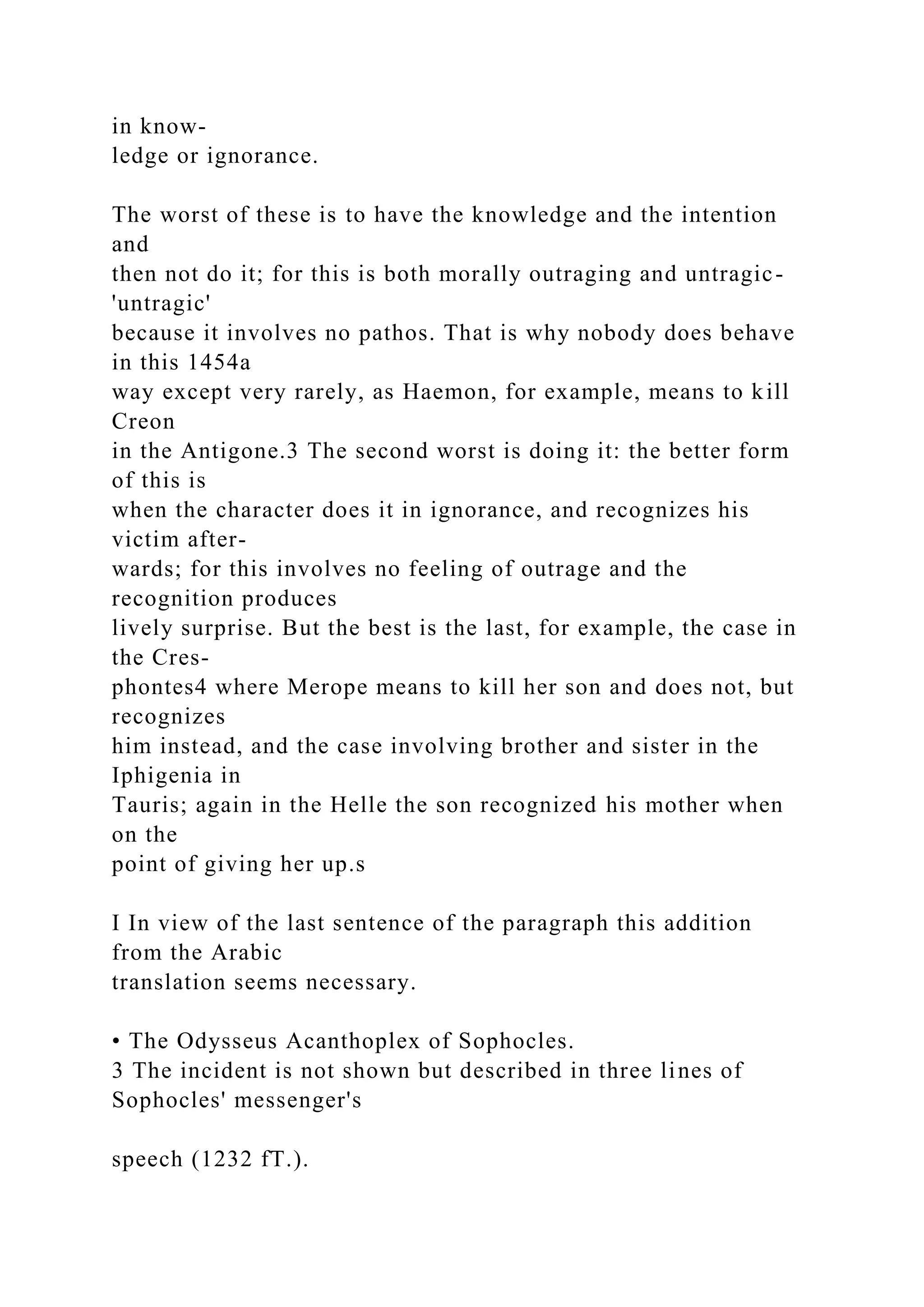
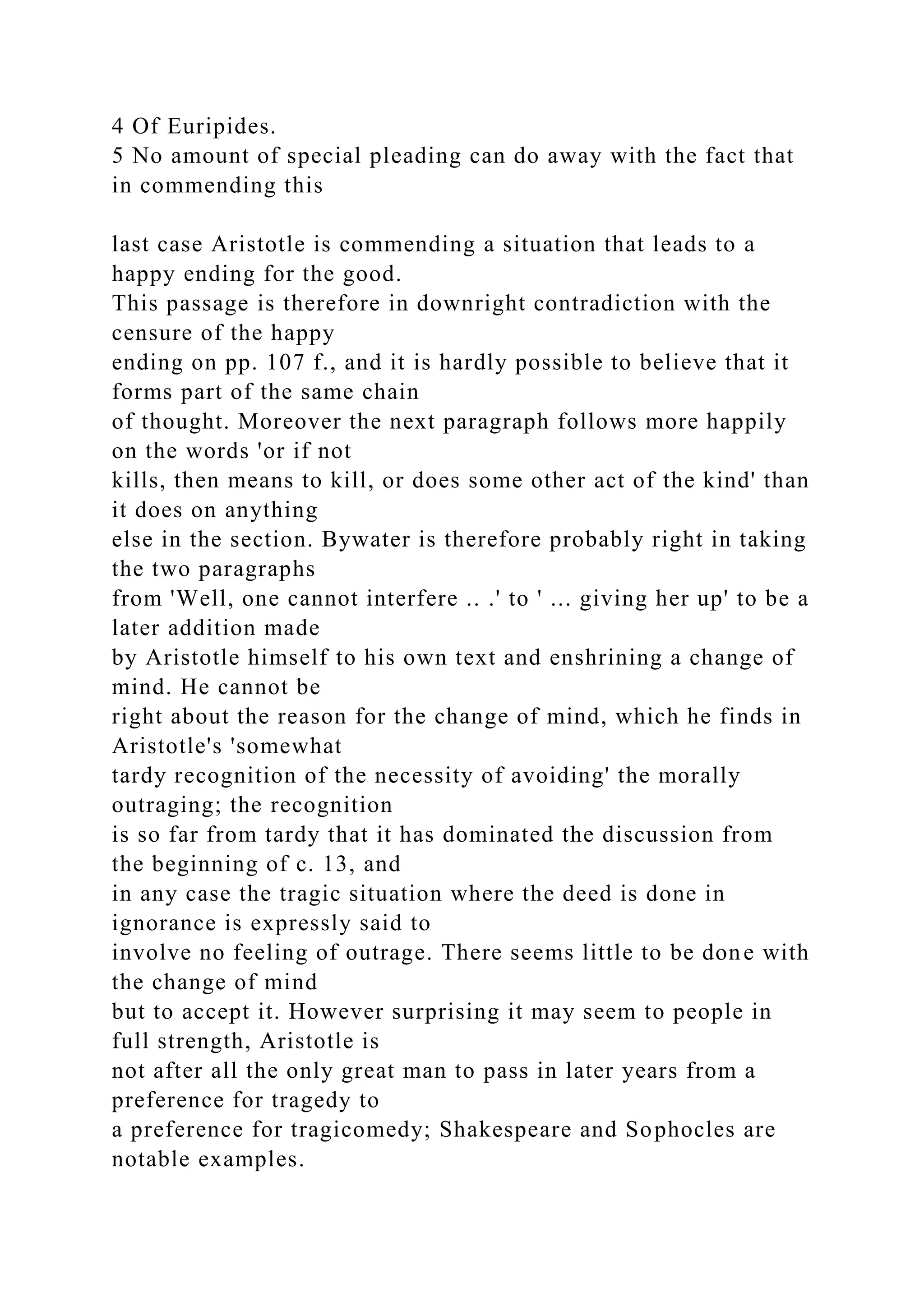
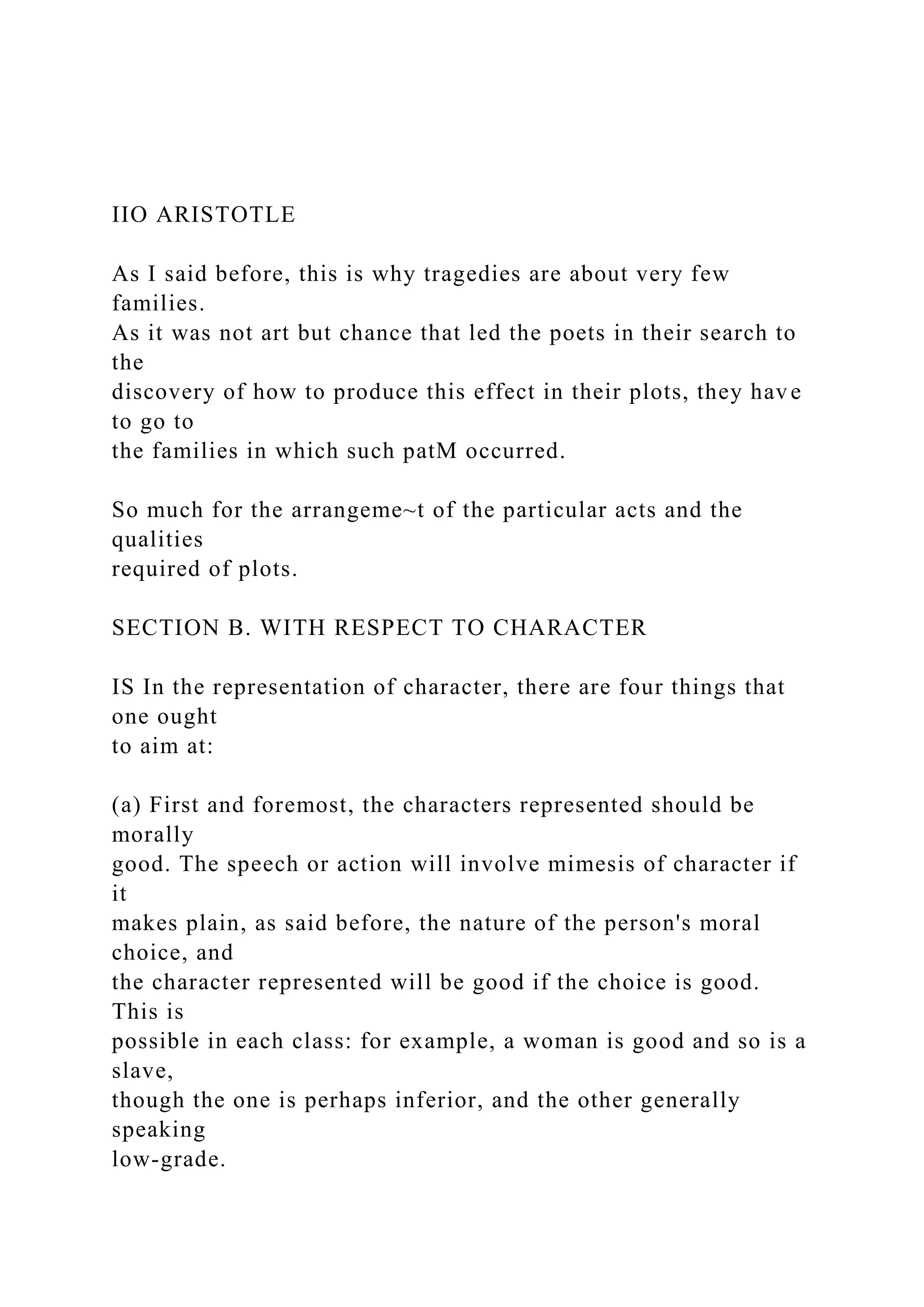
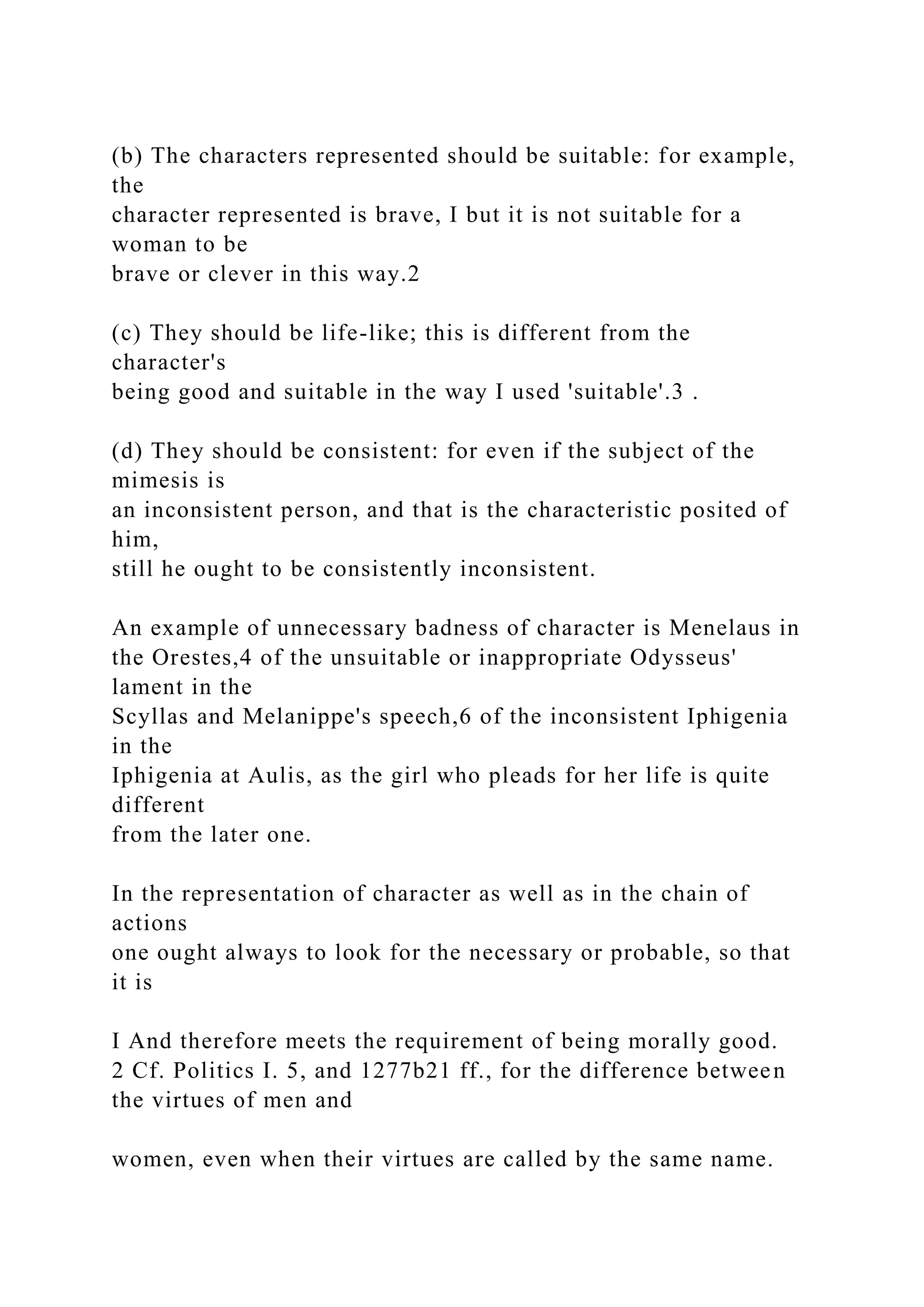
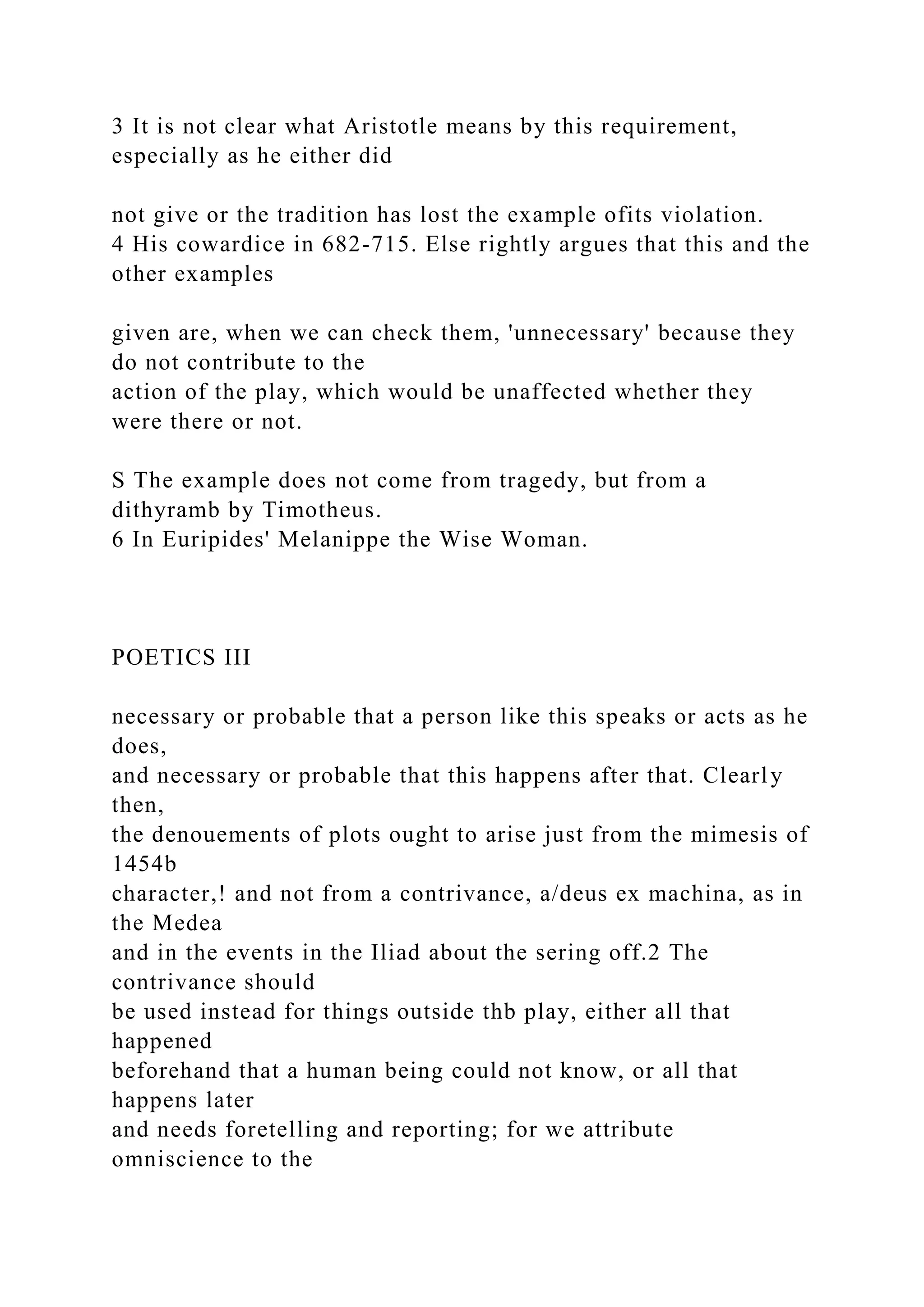
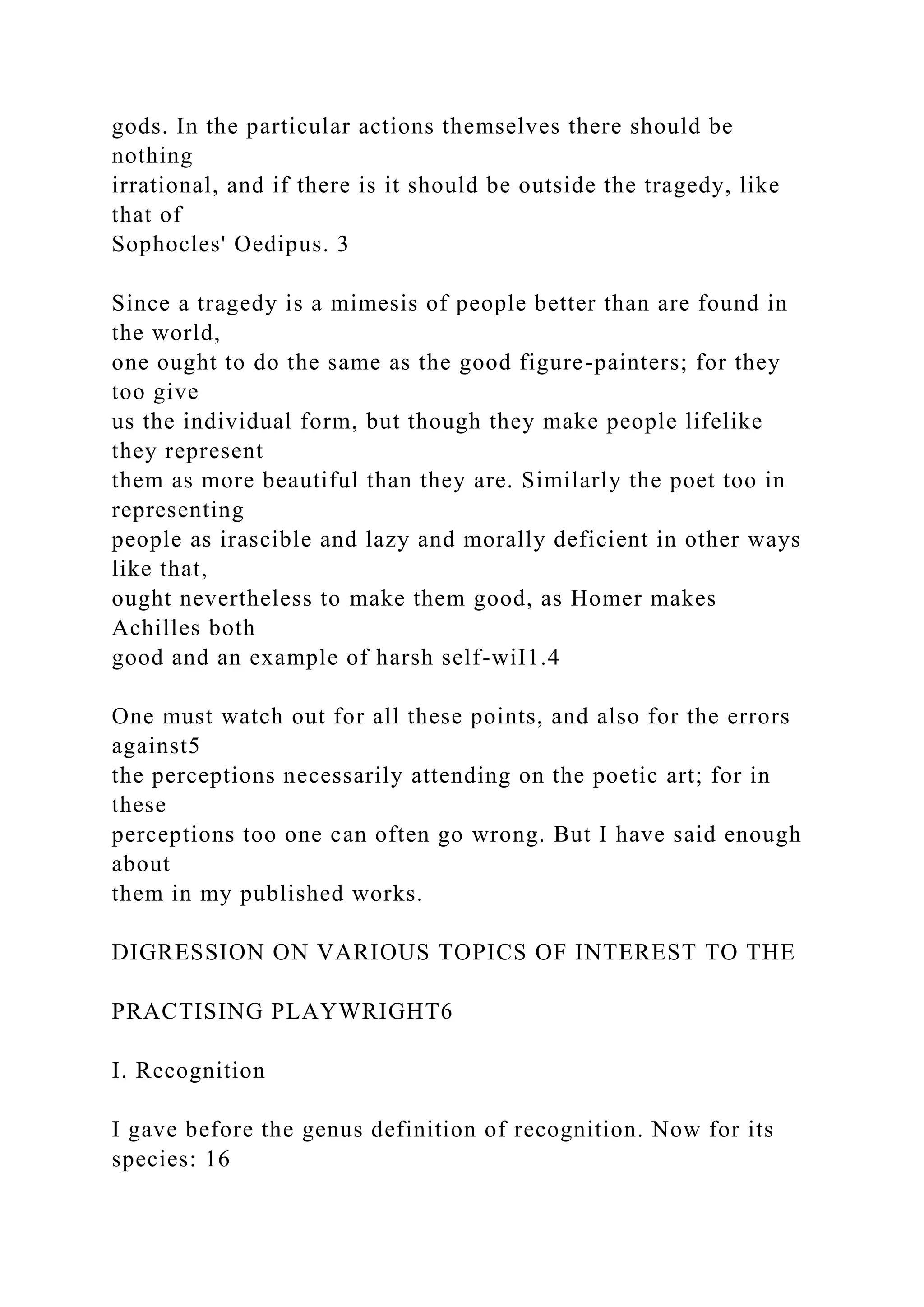
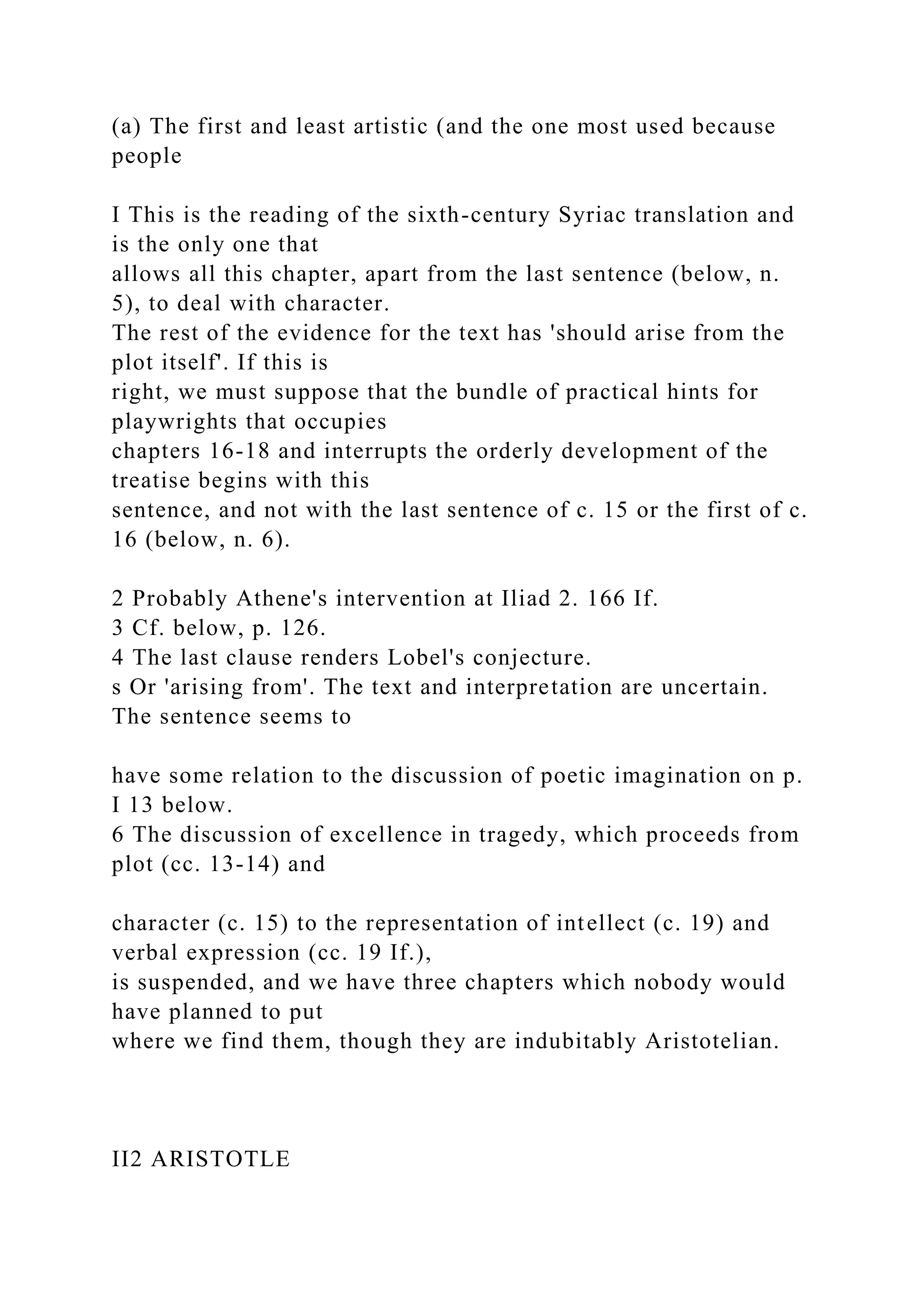
![can think of nothing better) is recognition by visible signs.
These signs
may be birthmarks, like 'the spear the earth-born bear' or stars
like those
Carcinus supposed in his Thyestes, or acquired after birth; there
are two
kinds of the latter, bodily onesJike scars, or external ones, like
necklaces
and the recognition by means of the cradle in Sophocles' Tyro.
Even
such signs can be well or badly handled: for example, Odysseus'
scar
leads to his being recognized in one way by his nurse and in
another by
the swineherds; recognitions like the latter, which are just
meant to
convince [the other characters in the poem], are less artistic,
and so are all
others similarly contrived; those that spring from a peripeteia,
like that
in the Bath episode, are better.!
(b) The next are those manufactured by the poet: this makes
them
inartistic. An example is Orestes' making himself known in the
Iphigenia
in Tauris; for she herself was recognized by means of her letter,
but
Orestes says without more ado what the poet wants him to say,
not what
the plot demands. So this is quite near the previous fault, since
it would
have been possible for him to bring some tokens too. There is
also the
'voice of the shuttle' in Sophocles' Tereus. 2](https://image.slidesharecdn.com/onlyprojectmanagementexpertineedtheanswers-221204163350-5fd2686e/75/Only-Project-Management-Expert-I-need-the-answers-docx-71-2048.jpg)
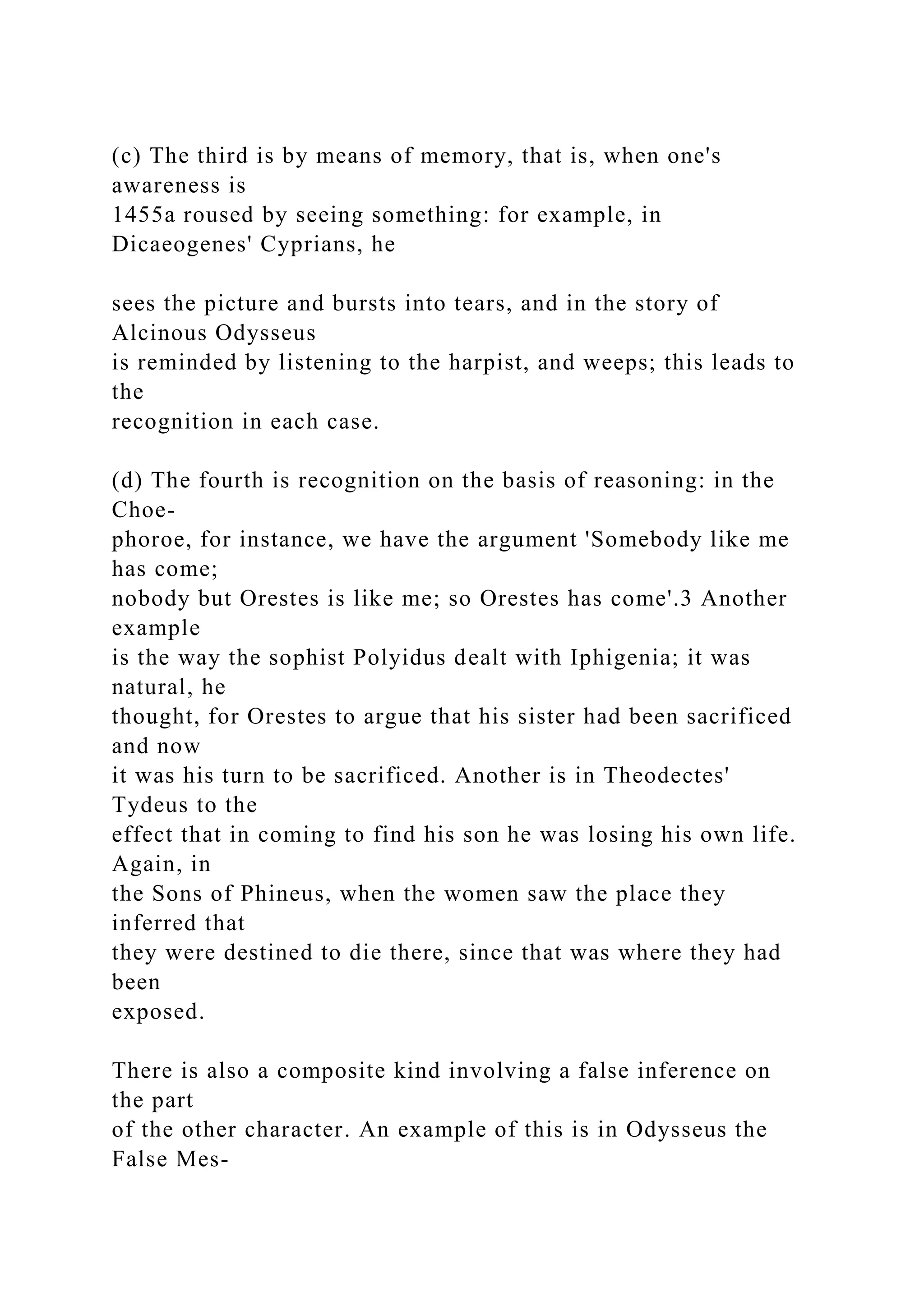
![senger. For that Odysseus and only he can string the bow is
something
I The Bath episode is the recognition by Eurycleia in Odyssey
19.
2 Philomela told her story by weaving it, as her tongue had been
cut out.
3 Electra does not use this dubious bit of reasoning to help her
recognize Orestes; he
recognizes her because he hears her producing it in lines 164 if.
Her recognition of him
is 'manufactured by the poet', i.e. he simply declares who he is
(219) and also produces
tokens (225 if.: the lock fits the place on his head from which it
was cut and he has a
robe that Electra embroidered). Editors have failed to see this.
POETICS II3
manufactured by the poet, and there is a hypothesis 'If he said
that he
would know the bow that he has not seen', I but to construct the
plot so
that it looks as if he will recognize him through this [false
inference] is
[the case of] paralogism [being described].z
(e) The best kind of all is that which arises from the actions
alone,
with the surprise developing through a series of likelihoods;
examples are
that in Sophodes' Oedipus and Euripides' Iphigenia in Tauris;
for it was](https://image.slidesharecdn.com/onlyprojectmanagementexpertineedtheanswers-221204163350-5fd2686e/75/Only-Project-Management-Expert-I-need-the-answers-docx-73-2048.jpg)
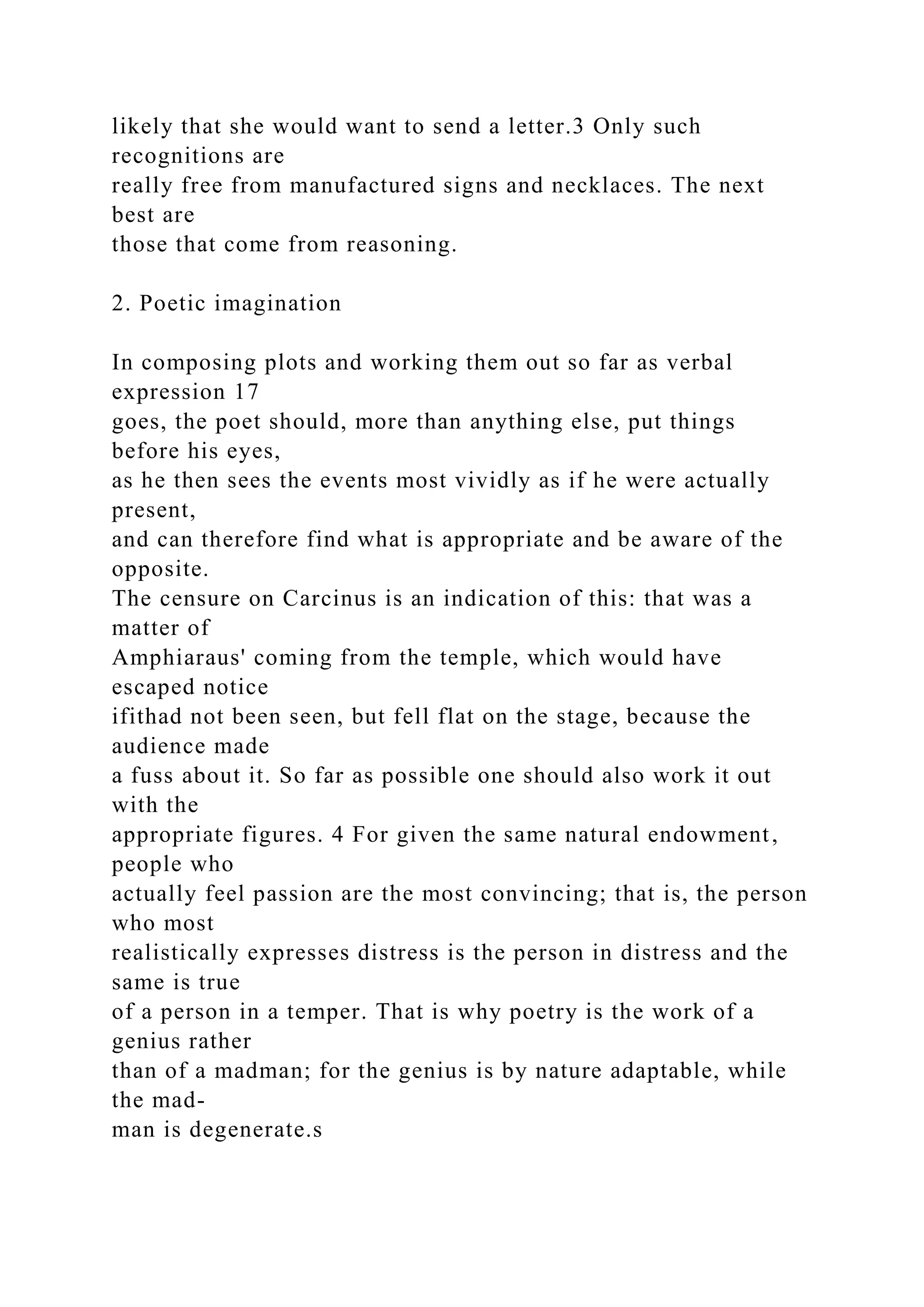
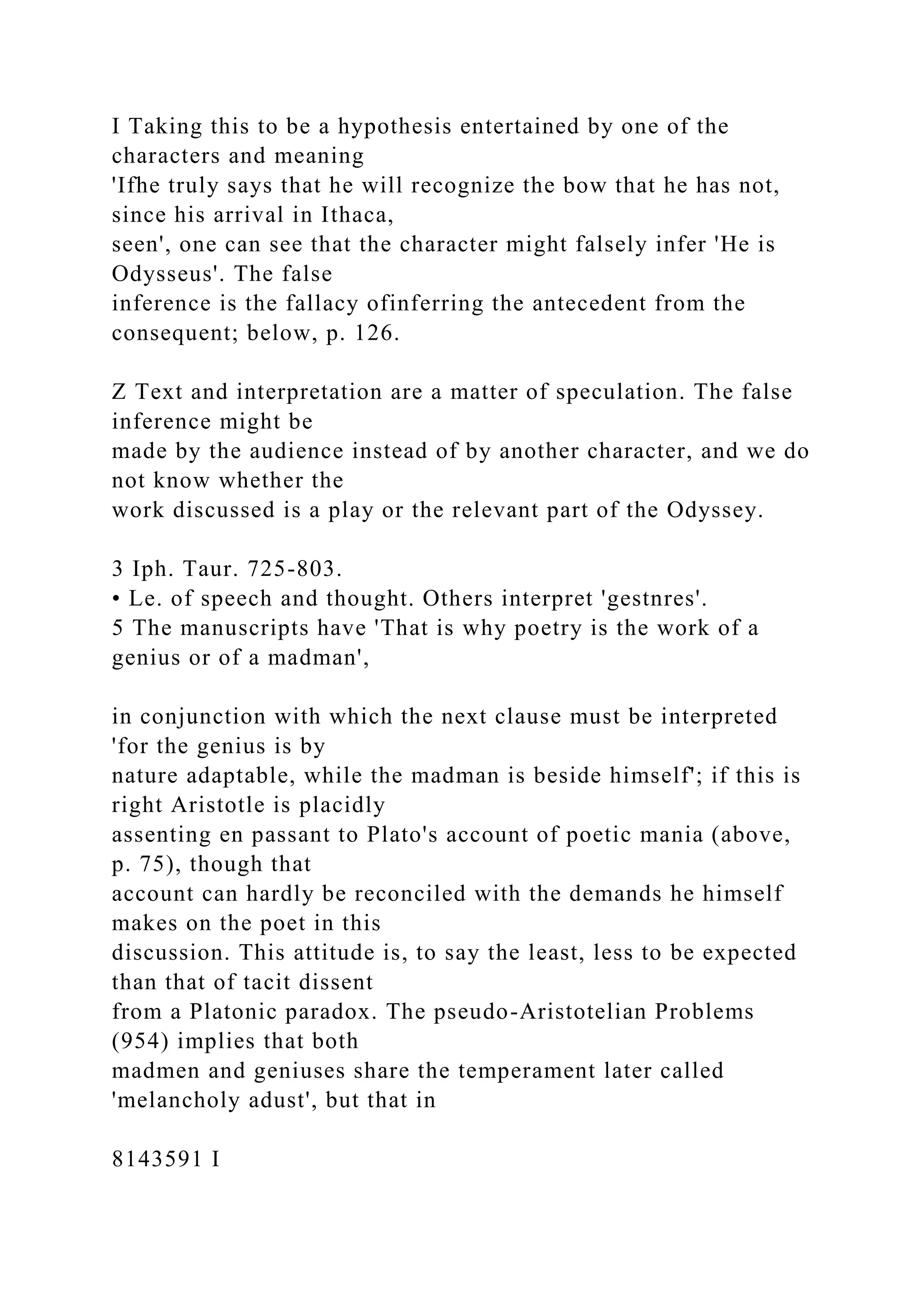
![ARISTOTLE
Whether the argument of a play is pre-existent or whether one is
I455b inventing it oneself, one should set it out in general
terms, and only
then make it into episodes and extend it. By 'setting it out in
general
terms' I mean, to take the case of the Iphigenia in Tauris:
[before the
action proper begins] a girl was sacrificed and disappeared
without the
sacrificers knowing what had happened to her, and she was
settled in
another country where there was a law that ont,! sacrificed
strangers to
the goddess; she was installed as priestess of this rite ; [then in
the action
proper] it came about later that the priestess's brother arrived
(that he
came because of an oracle and his purpose in coming are things
outside
the action); anyway he came and was captured and when on the
point
of being sacrificed disclosed himself, either as in Euripides'
poem or
as in Polyidus,I saying, that is, as was natural, that it turned out
that he
was destined to be sacrificed as well as his sister; and this
recognition
produced his rescue. After this one should come to adding the
names
and making the episodes. Take care that the episodes are](https://image.slidesharecdn.com/onlyprojectmanagementexpertineedtheanswers-221204163350-5fd2686e/75/Only-Project-Management-Expert-I-need-the-answers-docx-76-2048.jpg)
![relevant; for
example, in the case of Orestes in the Iphigenia such episodes
are the fit
of madness that led to his capture, and his escape through being
purified.
In plays episodes are brief, but epic uses them to increase its
length.
The Odyssey, for instance, has a very brief argument: [as
preliminary to
the action] a man is away from home for many years and
jealously
watched by Poseidon and has lost his followers; moreover at
home his
affairs are such that his property is being wasted by suitors and
plots
laid against his· son; [and in the action proper] he comes home
in dire
distress and after disclosing himself makes an attack and
destroys his
enemies without being killed himself. This is what is proper to
the
action; the rest of the poem is episodes.
the genius 'the excessive heat has sunk to a moderate amount'; it
also contains the signi-
ficant remark that 'Maracus the Syracusan was even a better
poet when he was mad',
an example so remote from the main stream of poetry and so
cautious in expression that
it is clear that the author of the Problems, at any rate, did not
think poetic mania very
common. The manuscript tradition has been challenged by three
people in whose
company it is a comfort to be, Castelvetro, Dryden, and
Tyrwhitt; there is also a passage
in which Coleridge, though without reference to Aristotle,](https://image.slidesharecdn.com/onlyprojectmanagementexpertineedtheanswers-221204163350-5fd2686e/75/Only-Project-Management-Expert-I-need-the-answers-docx-77-2048.jpg)
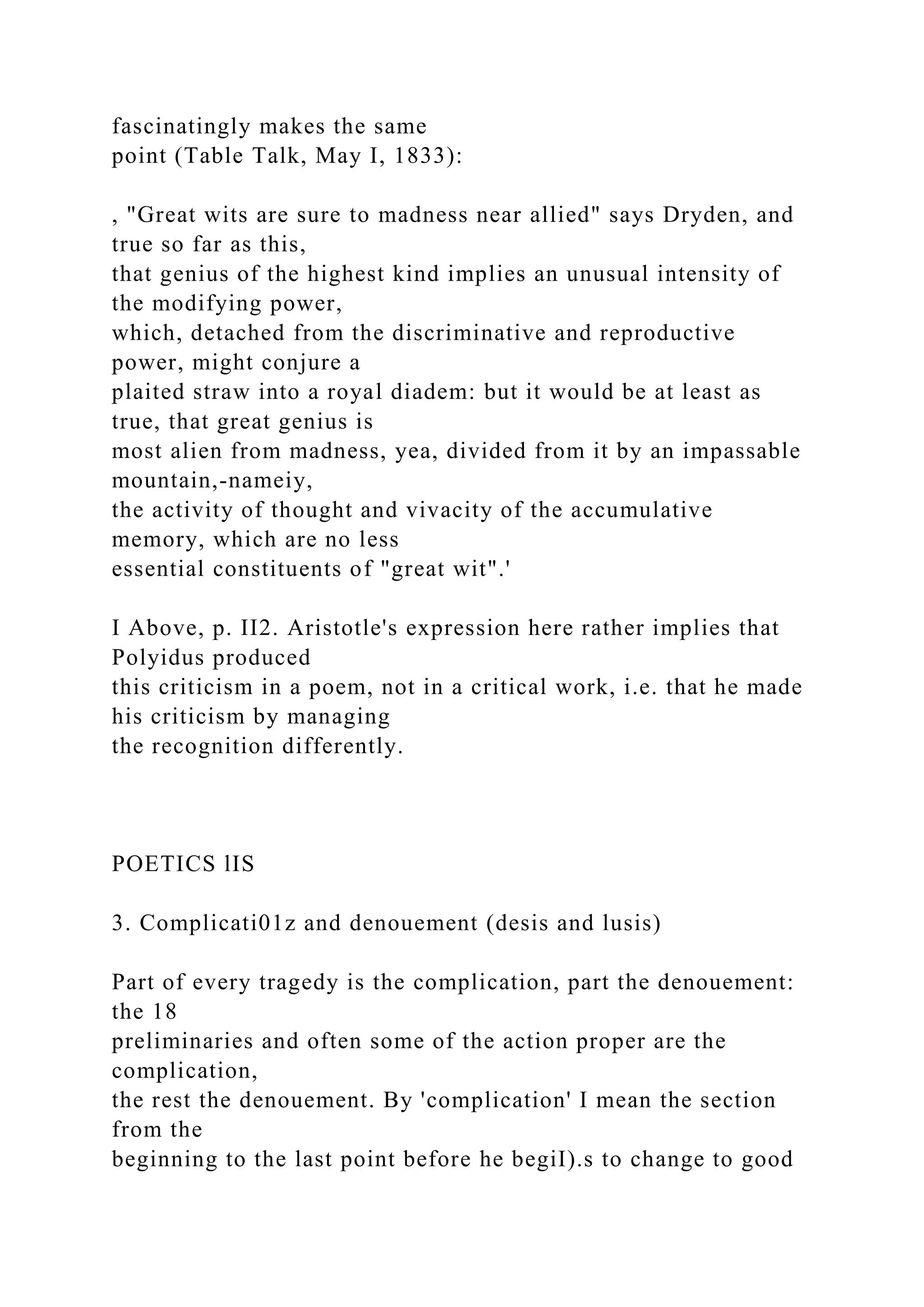
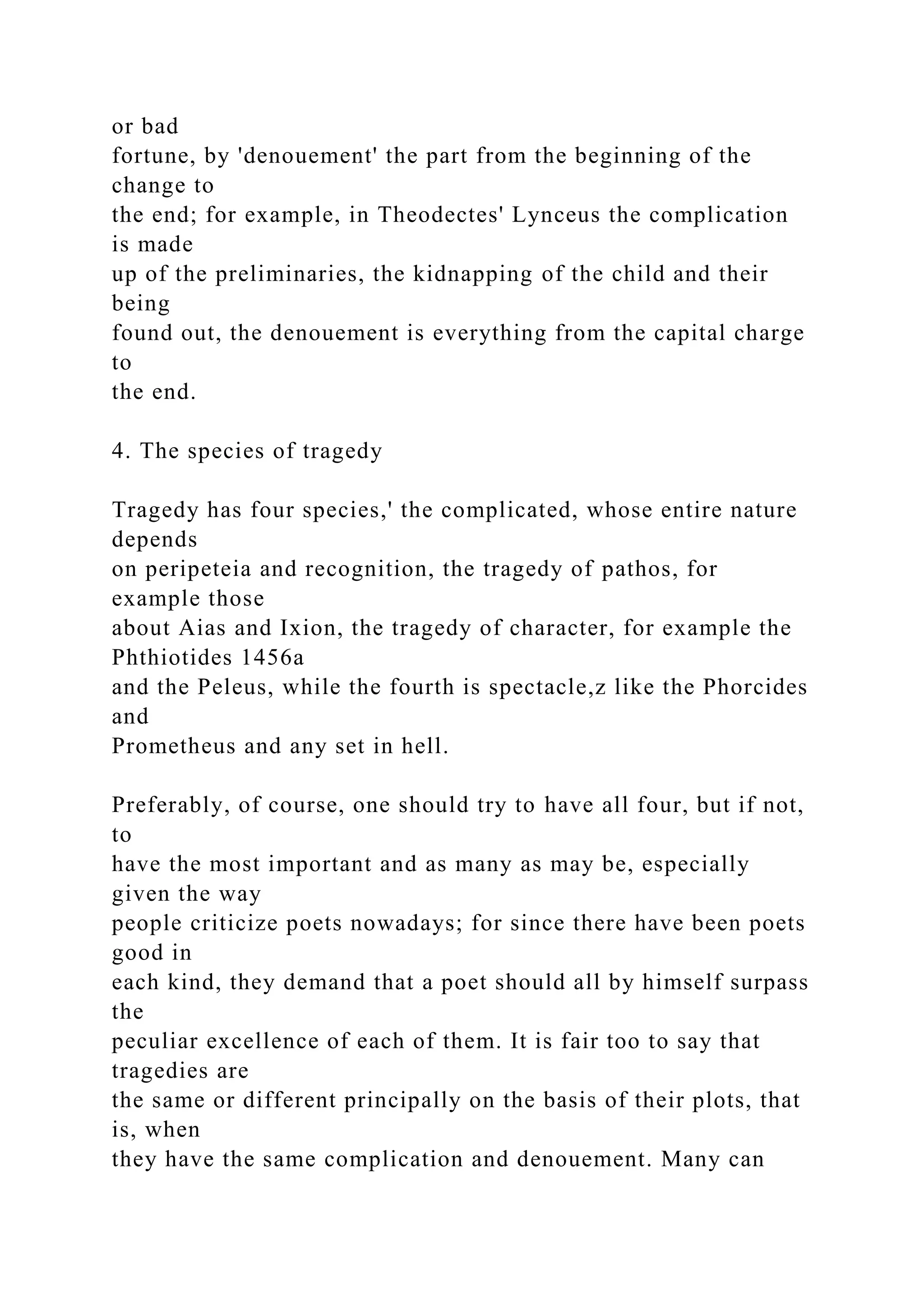
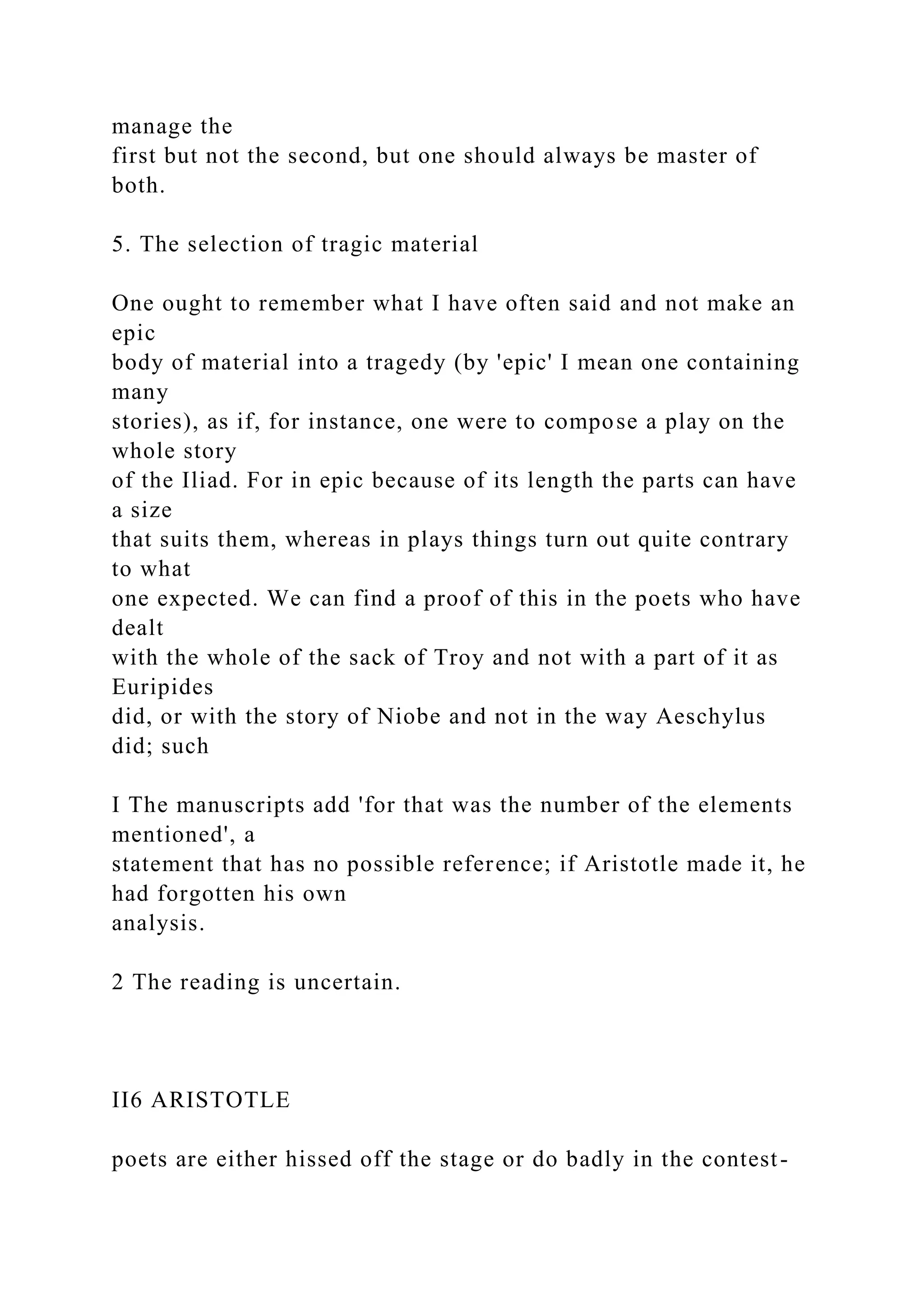
![even
Agathon was hissed off just for this reason.
6. The element of surprise
In peripeteiai and also in simple plots poets aim at the effects
they want
by means of surprise, I as surprise is tragic and satisfies our
human feelin g. Z
This happens when a clever scoundrel is deceived, like
Sisyphus, and a
courageous wrongdoer worsted. For this is not only surprising
but likely
in the way described by Agathon, when he said it is likely that
many
things should happen contrary to likelihood.
7. The treatment of the chorus
One should regard the chorus too as one of the actors, and as a
part of the
whole and taking part in the action; that is, one should follow
Sophocles'
practice rather than Euripides'. In poets apart from these,3 the
songs
have no more to do with the plot than with some quite other
tragedy; this
is why they [nowadays] sing interpolated songs (the first who
began this
practice was Agathon). But it is absurd, for there is no
difference between
singing interpolated songs and transferring a speech or a whole
episode
from one play to another.
SECTION C. WITH RESPECT TO THE MIMESIS OF](https://image.slidesharecdn.com/onlyprojectmanagementexpertineedtheanswers-221204163350-5fd2686e/75/Only-Project-Management-Expert-I-need-the-answers-docx-81-2048.jpg)
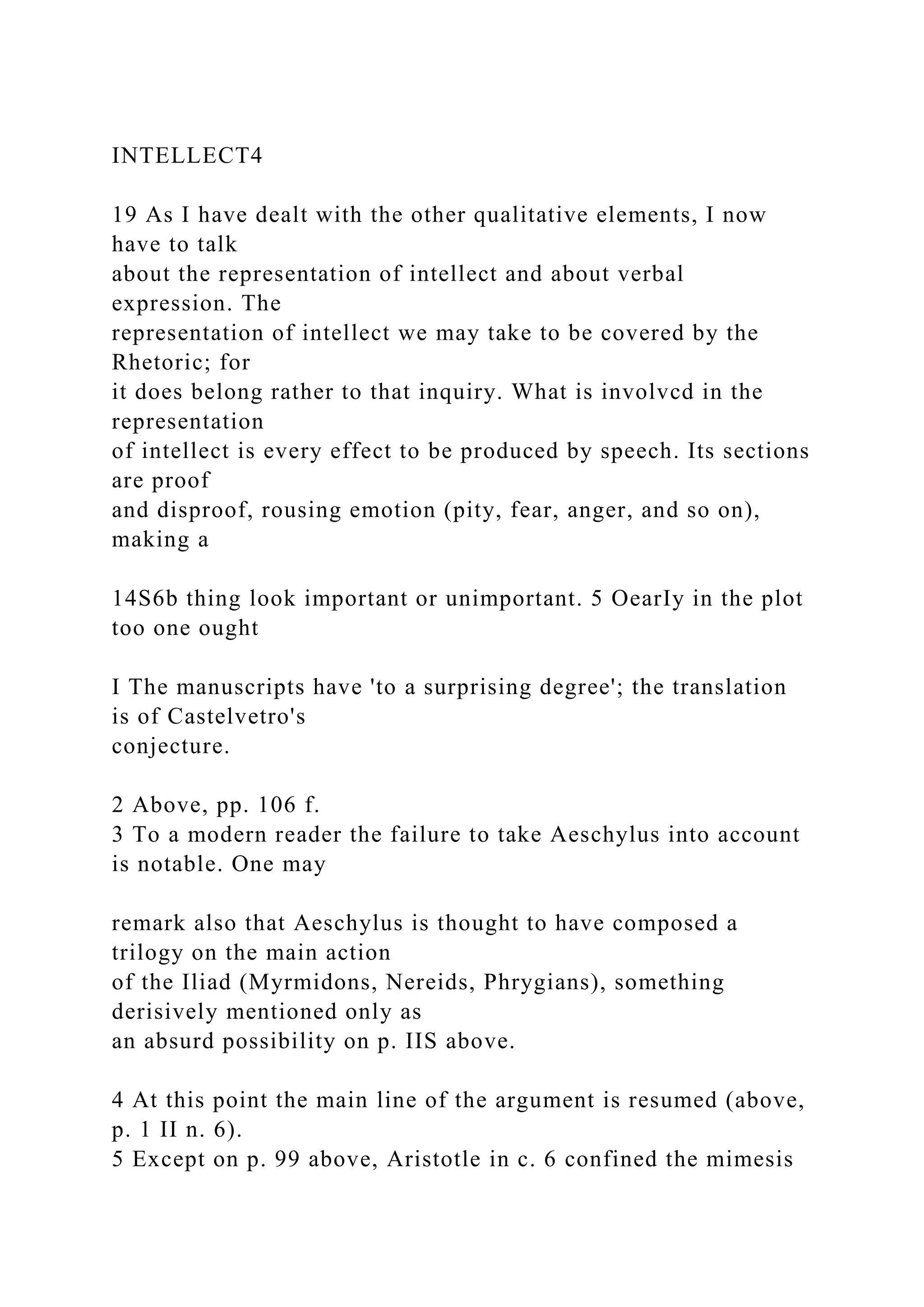
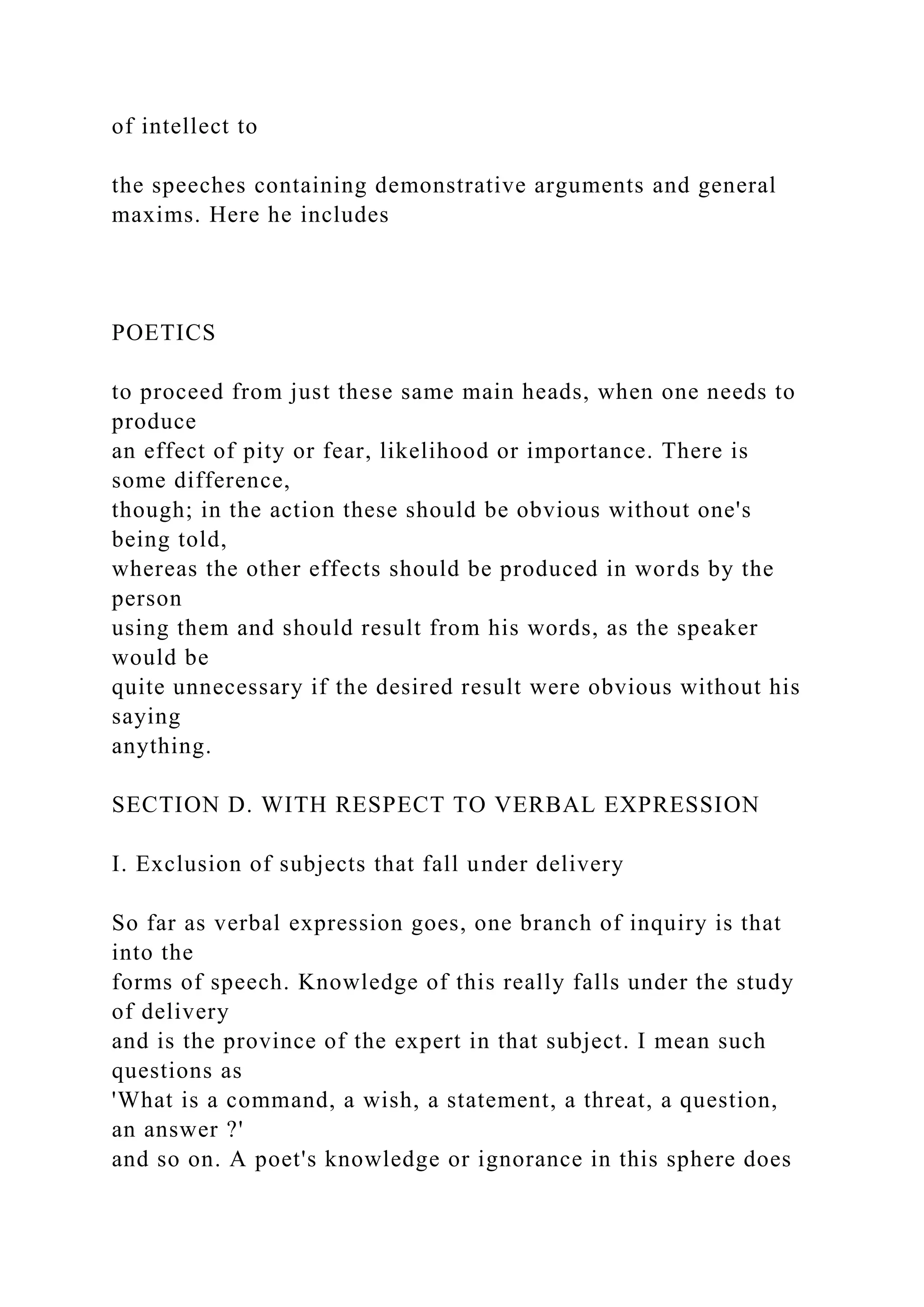
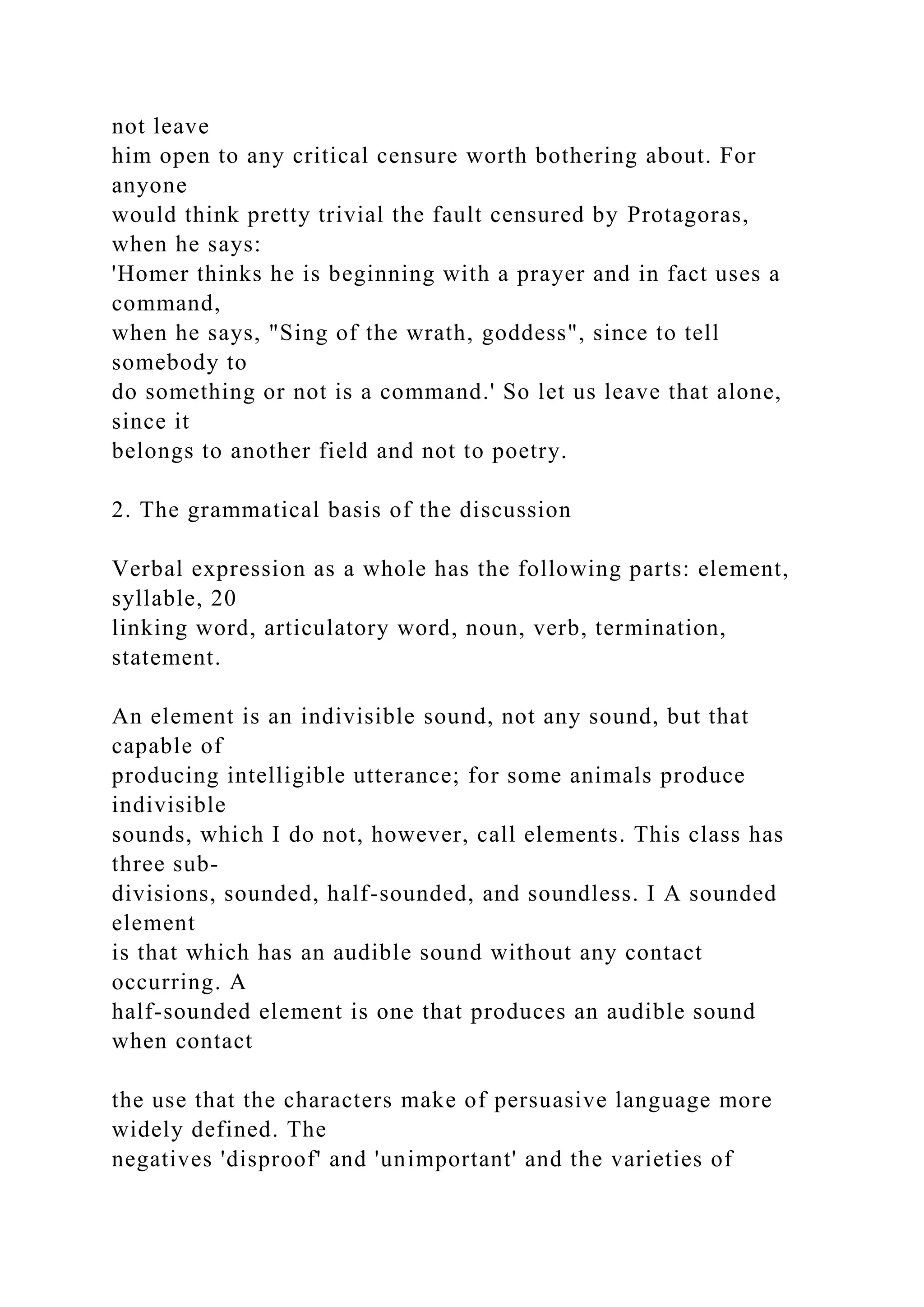
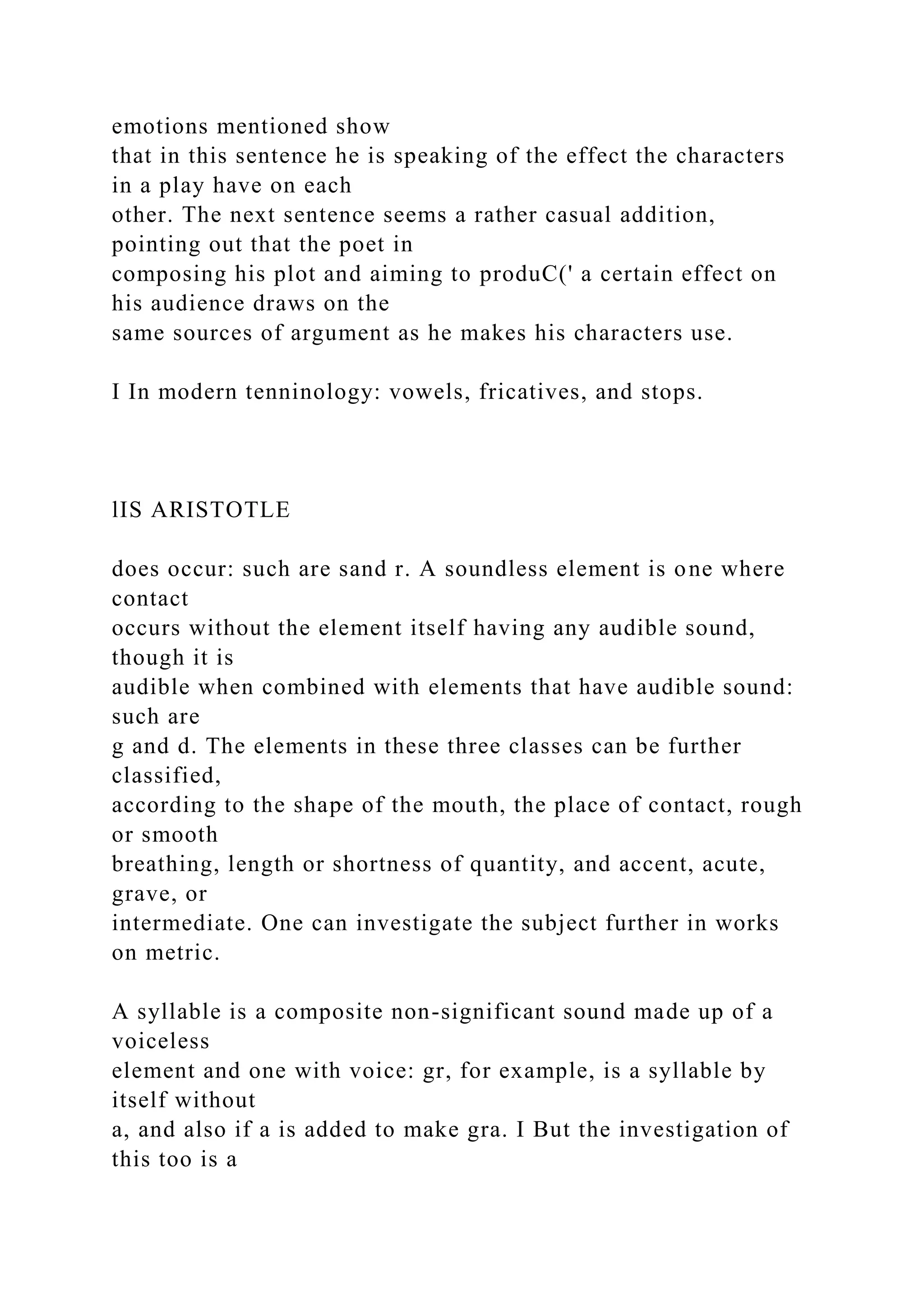
![matter of metric.
1457' A linking word is (a) a non-significant sound which
neither prevents
nor produces the formation from a number of sounds of one
significant
utterance; it ought not to stand alone at the beginning of a
statement:
examples are men, toi, de, de [the linking particles]; (b) a non-
significant
sound that naturally produces from a plurality of sounds that
nevertheless
signify one thing a single significant utterance: examples are
amphi, peri,
and the rest [of the prepositionsJ.2
An articulatory word (arthron) is a non-significant sound that
indicates
the beginning or end or dividing point of a statement; it is
naturally
put at either end (?) of a statement or in the middle. 3
A noun is a composite significant sound with no temporality,
and made
up of parts not in themselves significant. For in compound
words we
do not take the parts to be significant in themselves; in
Theodorus, for
example, the doron has no significance.
A verb is a composite significant sound with temporality, and,
like a
noun, is made up of parts not in themselves significant; by 'with
tem-
porality' I mean that, while 'man' and 'white' do not signify
when, 'walks'](https://image.slidesharecdn.com/onlyprojectmanagementexpertineedtheanswers-221204163350-5fd2686e/75/Only-Project-Management-Expert-I-need-the-answers-docx-86-2048.jpg)
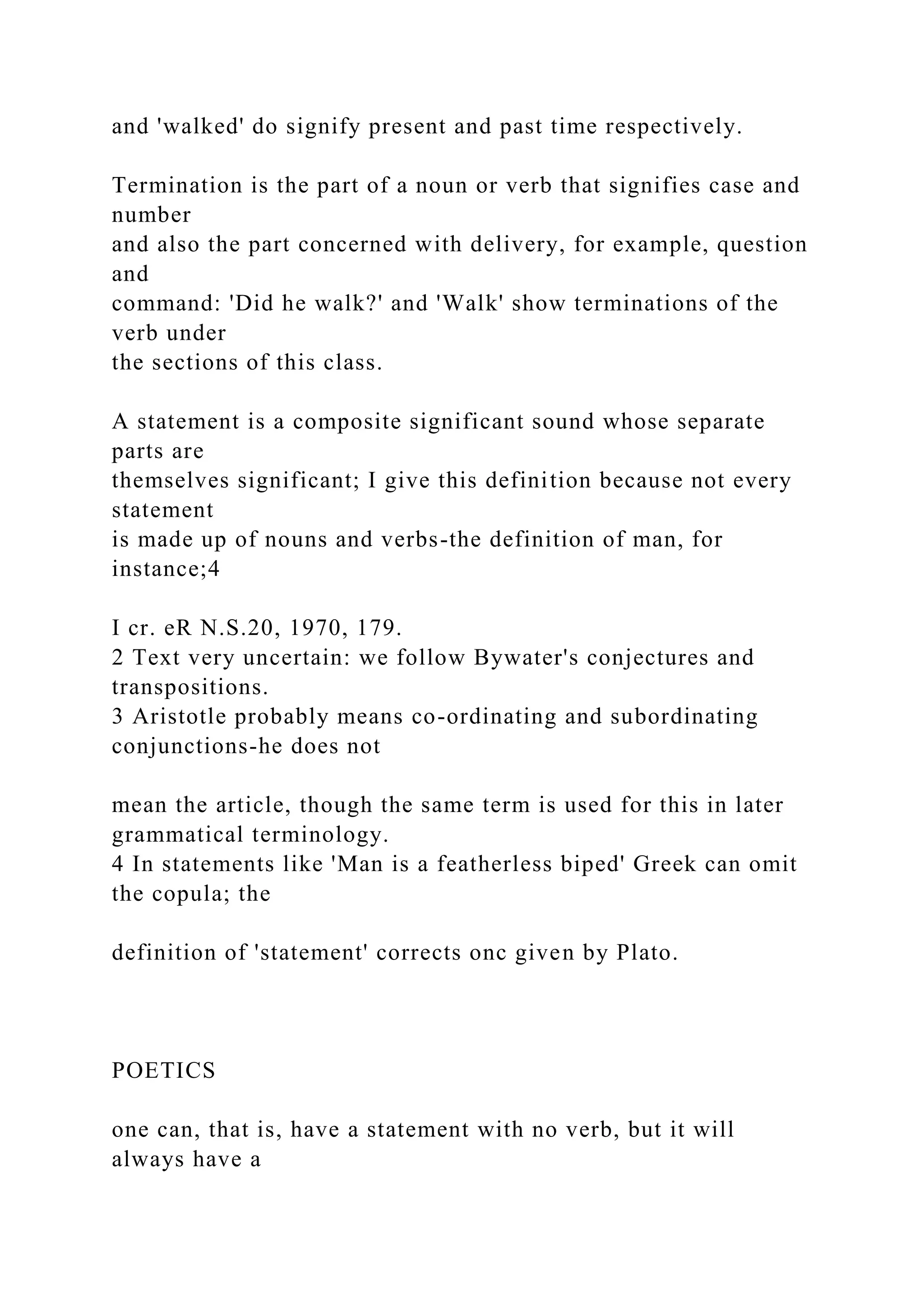
![significant part.! A statement is one statement in two senses: (a)
as signi-
fying one thing, (b) by being composed of a plurality of
statements: the
Iliad, for example, is one as being composite, and the definition
of man as
signifying one thing.
3. Different ways of classifying nouns2
The species of nouns are: (a) simple: by this I mean 'not
composed of 21
significant parts', for example, 'earth'; (b) double: this has two
varieties:
(i) composed of a significant element and a non-significant
element [e.g.
prepositional compounds]; one must qualify this by saying that
they are
not significant and non-significant in the word;3 (ii) composed
of signi-
ficant elements; (c) possible species are also triple, quadruple,
and indeed
multiple, like most aggrandized words,4 'Hermocaicoxanthus' . .
. 1457b
Nouns may also be divided into standard terms, dialect terms,
metaphorical terms, decorative terms,S neologisms, lengthened
words,
shortened words, altered words.
By 'standard term' I mean that used by any society.
By 'dialect term' I mean one used by another people. The same
word
can obviously be both a standard term and a dialect term,
though not in](https://image.slidesharecdn.com/onlyprojectmanagementexpertineedtheanswers-221204163350-5fd2686e/75/Only-Project-Management-Expert-I-need-the-answers-docx-88-2048.jpg)
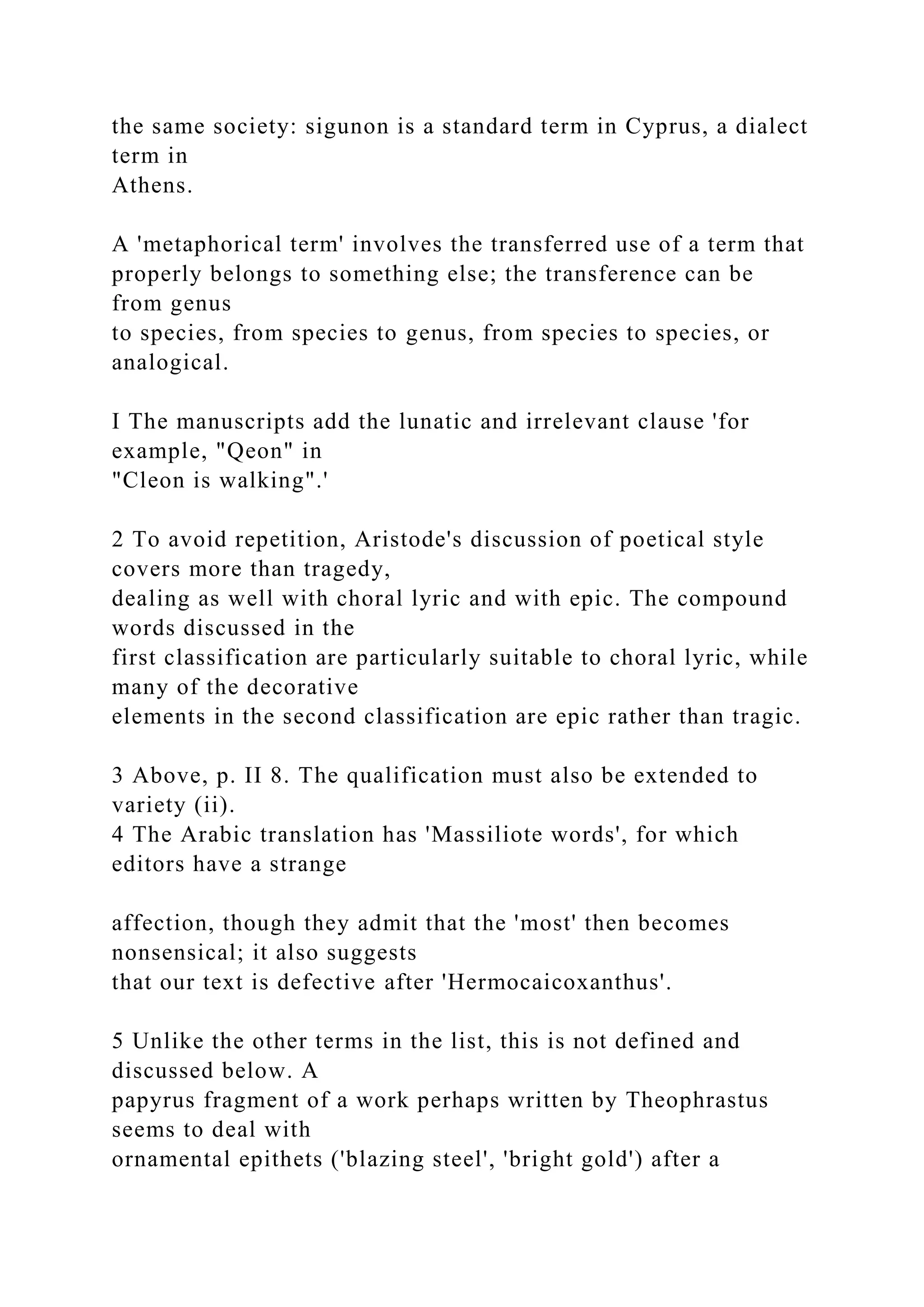
![discussion of metaphor akin
to ours. Others have thought of synonymous terms and have
tried to provide the treat-
ment of 'decorative terms' from fr. 3: 'Aristode says in his
Poetics that things are
synonymous if they have more than one name but the same
definition, that is, things
that have several names, for example, topion and himation and
pharos (all words for
"cloak").'
120 ARISTOTLE
By 'from genus to species' I mean, for example, 'Here my ship is
still"I
as lying at anchor is a species of being still. By 'from species to
genus',
'Odysseus conferred ten thousand benefits',2 as 'ten thousand' is
a specific
example of plurality and he uses this instead of 'many'. By
'species to
species', 'drawing the life with the bronze' and 'cutting off [the
water]
with the unwearying bronze';3 in these examples 'drawing' is
used for
'cutting off' and 'cutting off' for 'drawing', and both are species
of the
genus 'removing'. By 'analogical' I mean where the second term
is related
to the first as the fourth is to the third; for then the poet will use
the
fourth to mean the second and vice versa. And sometimes they
add the
term relative to the one replaced: I mean, for example, the cup](https://image.slidesharecdn.com/onlyprojectmanagementexpertineedtheanswers-221204163350-5fd2686e/75/Only-Project-Management-Expert-I-need-the-answers-docx-90-2048.jpg)
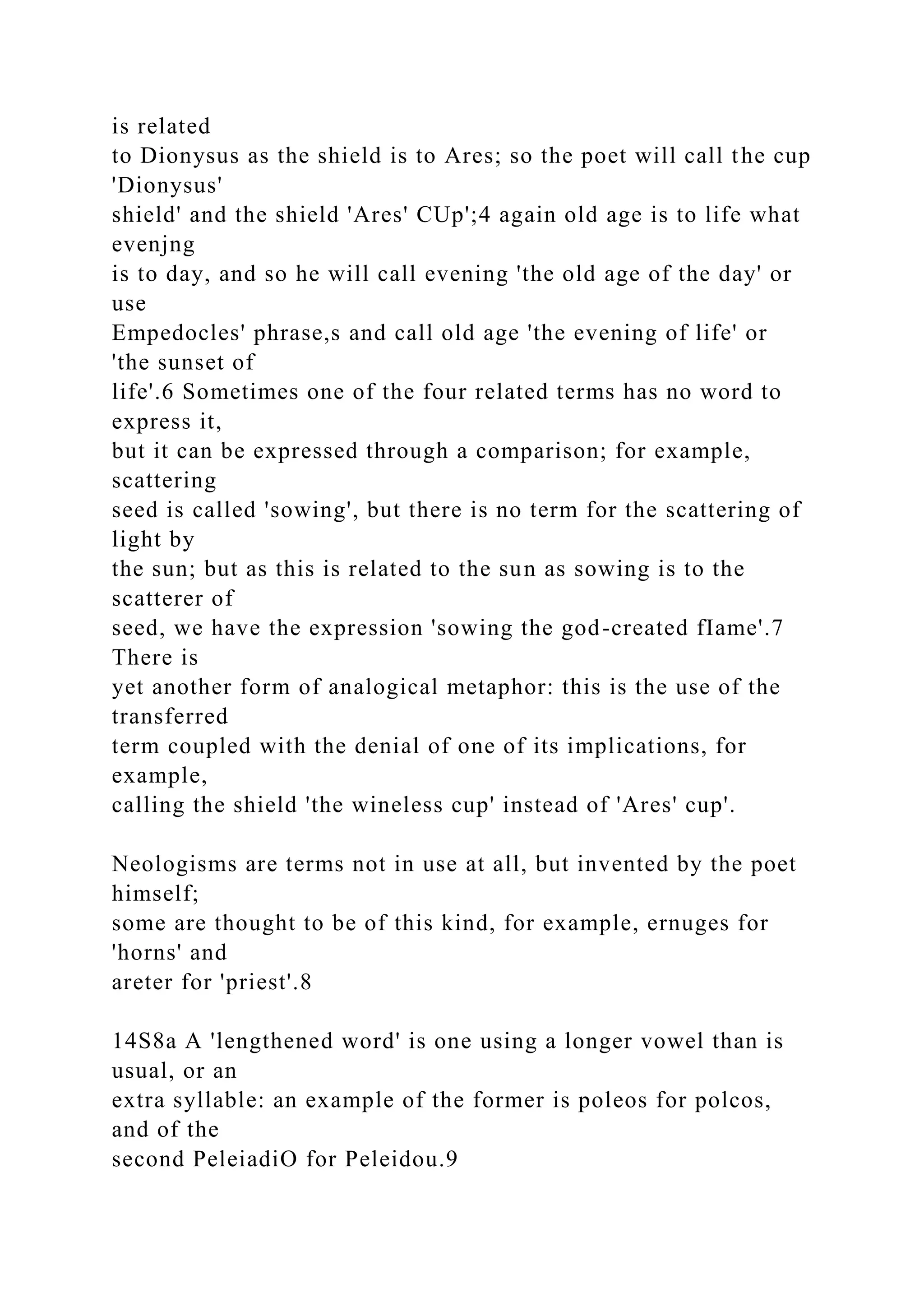
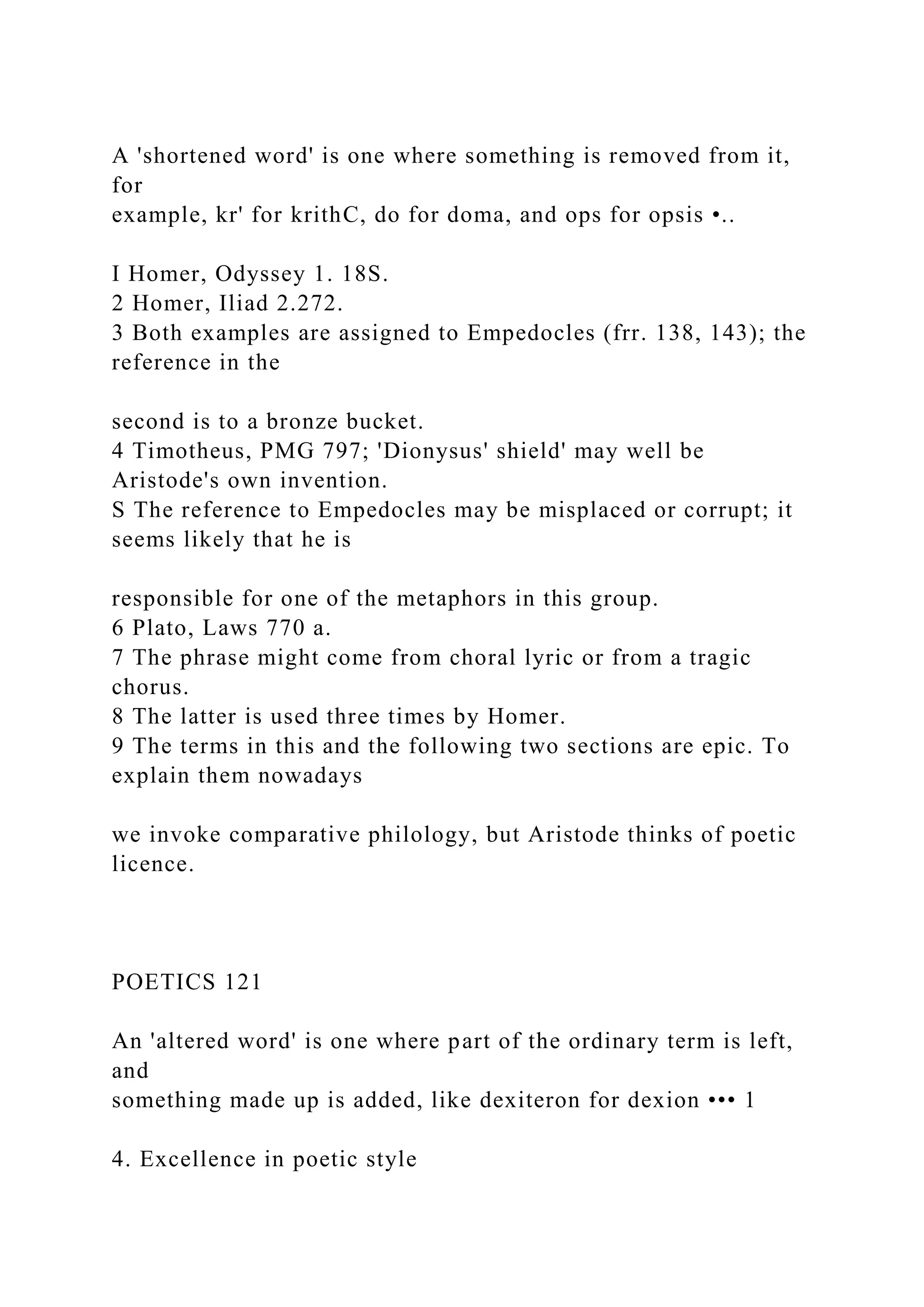
![[In poetry] verbal expression is good if it is clear without being
mean.z 22
The clearest is of course that made up of standard words, but it
is mean:
an example is the poetry of Oeophon and Sthenelus. The style
that uses
strange expressions is solemn and out of the ordinary; by
'strange
expressions' 1 mean dialect terms, metaphor, lengthening, and
everything
over and above standard words. But if anyone made an entire
poem like
this, it would be either a riddle or gibberish, a riddle if it were
entirely
metaphorical, gibberish if all composed of dialect terms. For it
is the
nature of a riddle that one states facts by linking impossibilities
together
(of course, one cannot do this by putting the actual words for
things
together, but one can if one uses metaphor), for example 'I saw
a man
welding bronze on a man with fire'3 and so on. And a poem
wholly made
up of dialect terms is gibberish. So there ought to be a sort of
admixture
of these, as the one element will prevent the style from being
ordinary
and mean, that is, dialect, metaphor, decorative terms, and the
other
species 1 mentioned, while standard terms will make it clear.
Q!Jite a large contribution to a style both clear and out of the
ordinary 1458b
is made by lengthenings, shortenings, and alterations of words.](https://image.slidesharecdn.com/onlyprojectmanagementexpertineedtheanswers-221204163350-5fd2686e/75/Only-Project-Management-Expert-I-need-the-answers-docx-93-2048.jpg)
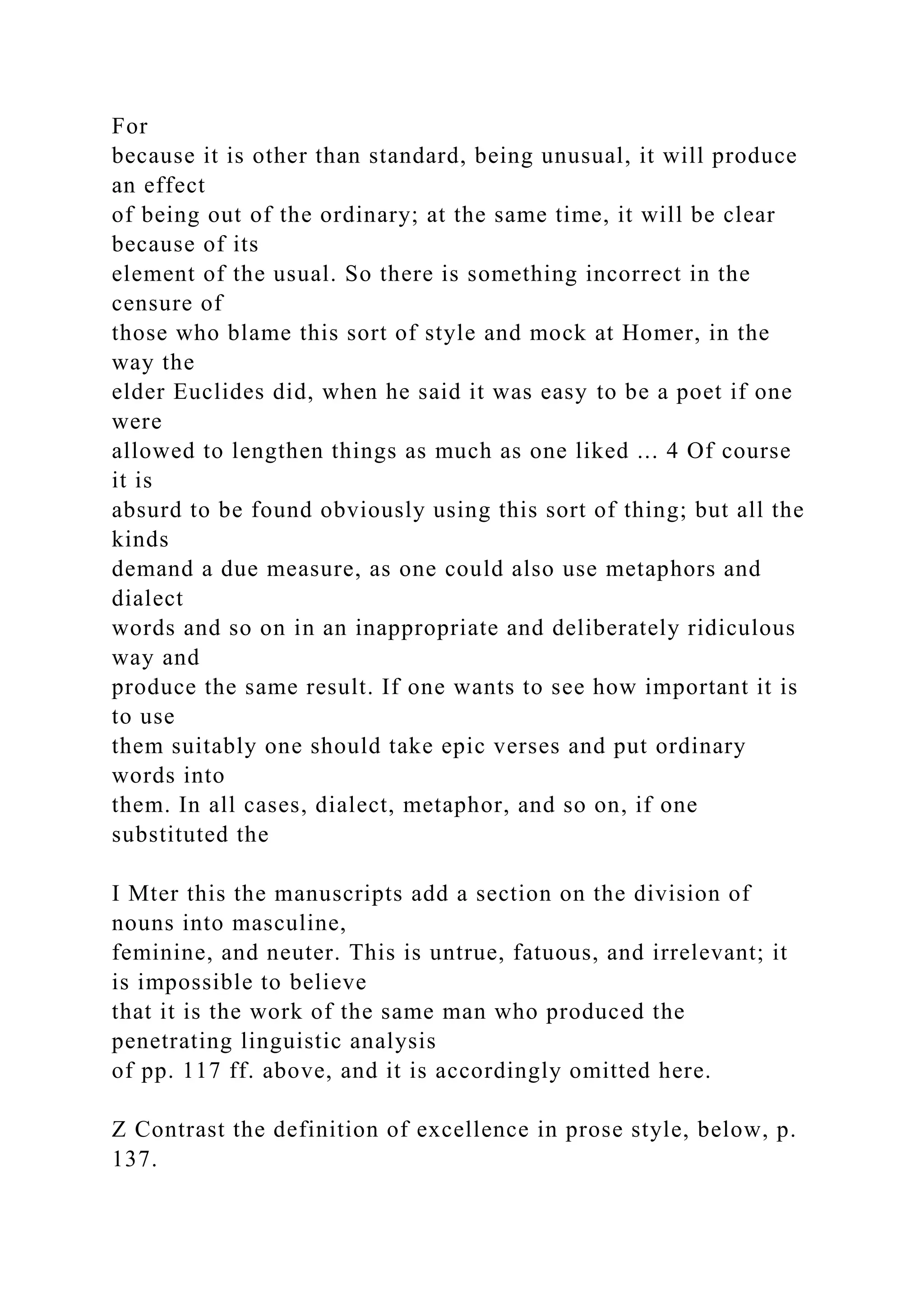
![3 Cf. below, p. 139 .
.. Aristode here quotes two hexameters in which Euclides
parodied Homer's occa-
sional irrational lengthening of short syllables.
122 ARISTOTLE
standard word, one would easily see the truth of what I am
saying. For
example, Aeschylus and Euripides produced the same iambic
line,1 with
the change of a single word, as Euripides put a dialect term for
the stan-
dard word, and so produced a beautiful line instead of an
unimpressive
one; for Aeschylus in his Philoetetes said 'The canker that eats
the flesh
of my foot', while Euripides substituted thoiniitai for [the
standard verb]
esthiei. Again, take the line 'being little (oligos) and no worth
(outidanos)
and hideous (aeikes)' and substitute the standard words mikros,
asthenikos,
aeides;2 and for 'putting down a poor (aeikelion) chair and little
(oligen)
table'3 put mochtheron (poor) and mikran (little);4 and for
etones booosins
(,the shores shout') put ei"ones krazousin. 6
Ariphrades mocked the tragedians as well for using expressions
that
1459" nobody would use in conversation ... 7 Wrongly, for all
such expressions,](https://image.slidesharecdn.com/onlyprojectmanagementexpertineedtheanswers-221204163350-5fd2686e/75/Only-Project-Management-Expert-I-need-the-answers-docx-95-2048.jpg)
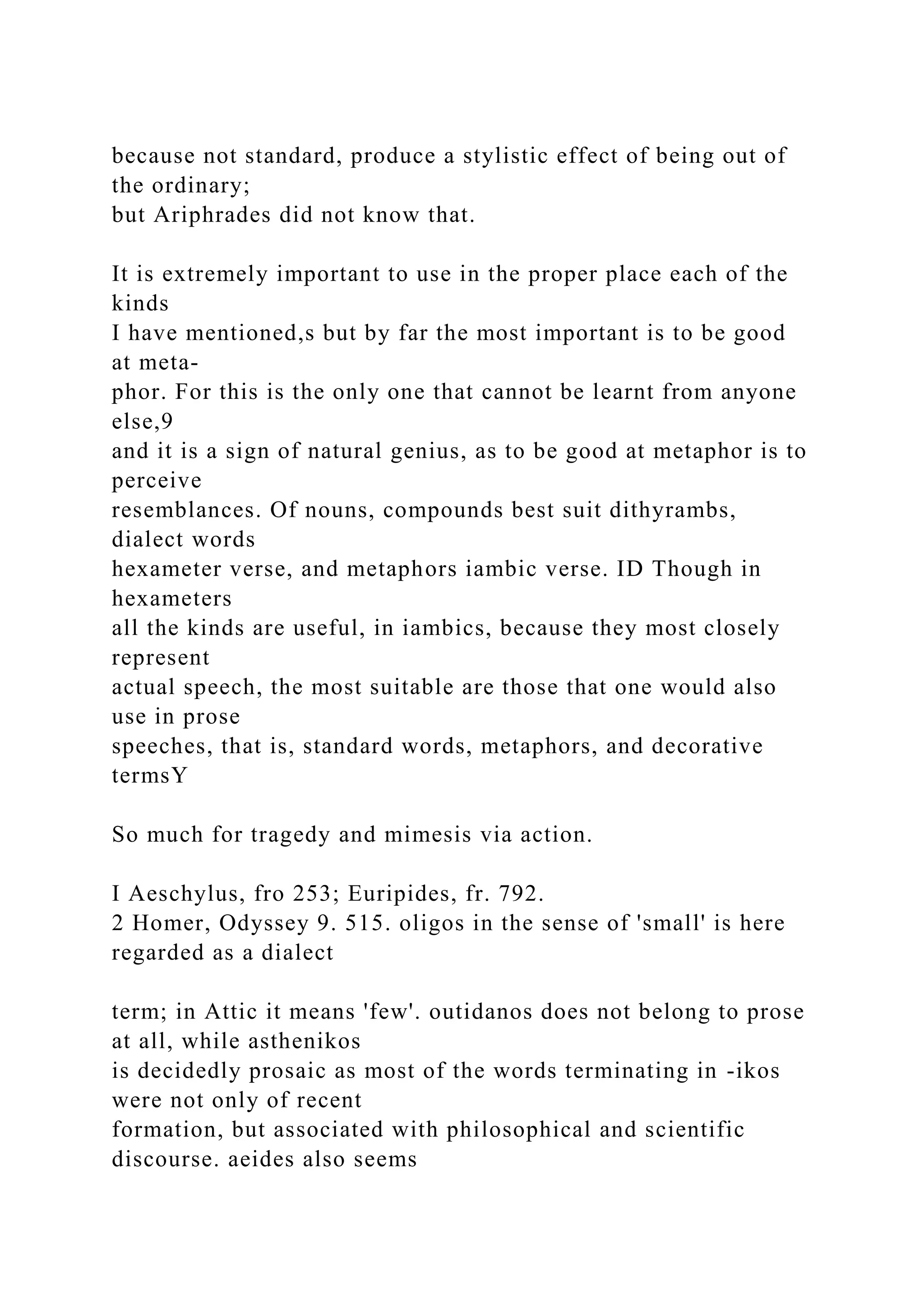
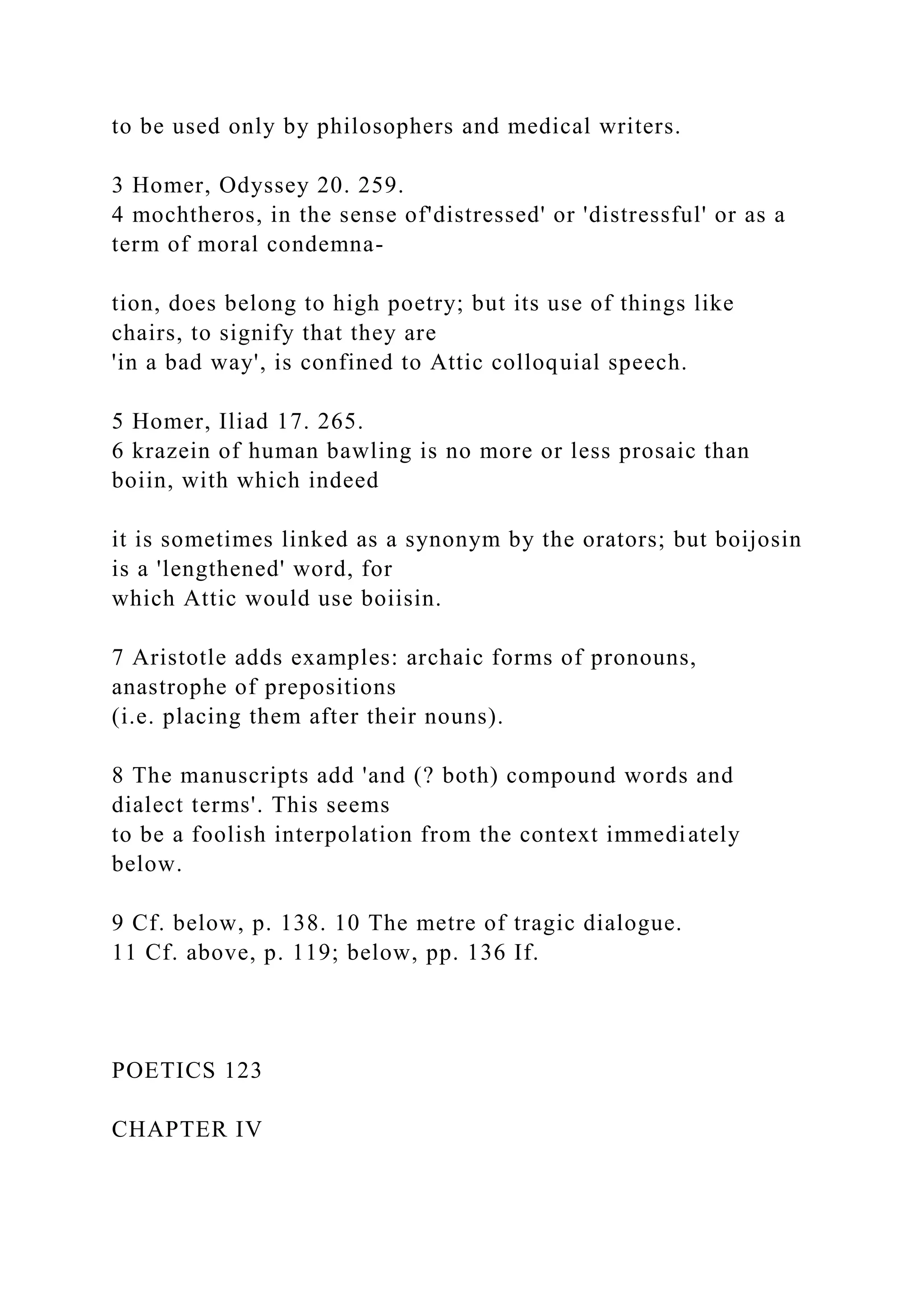
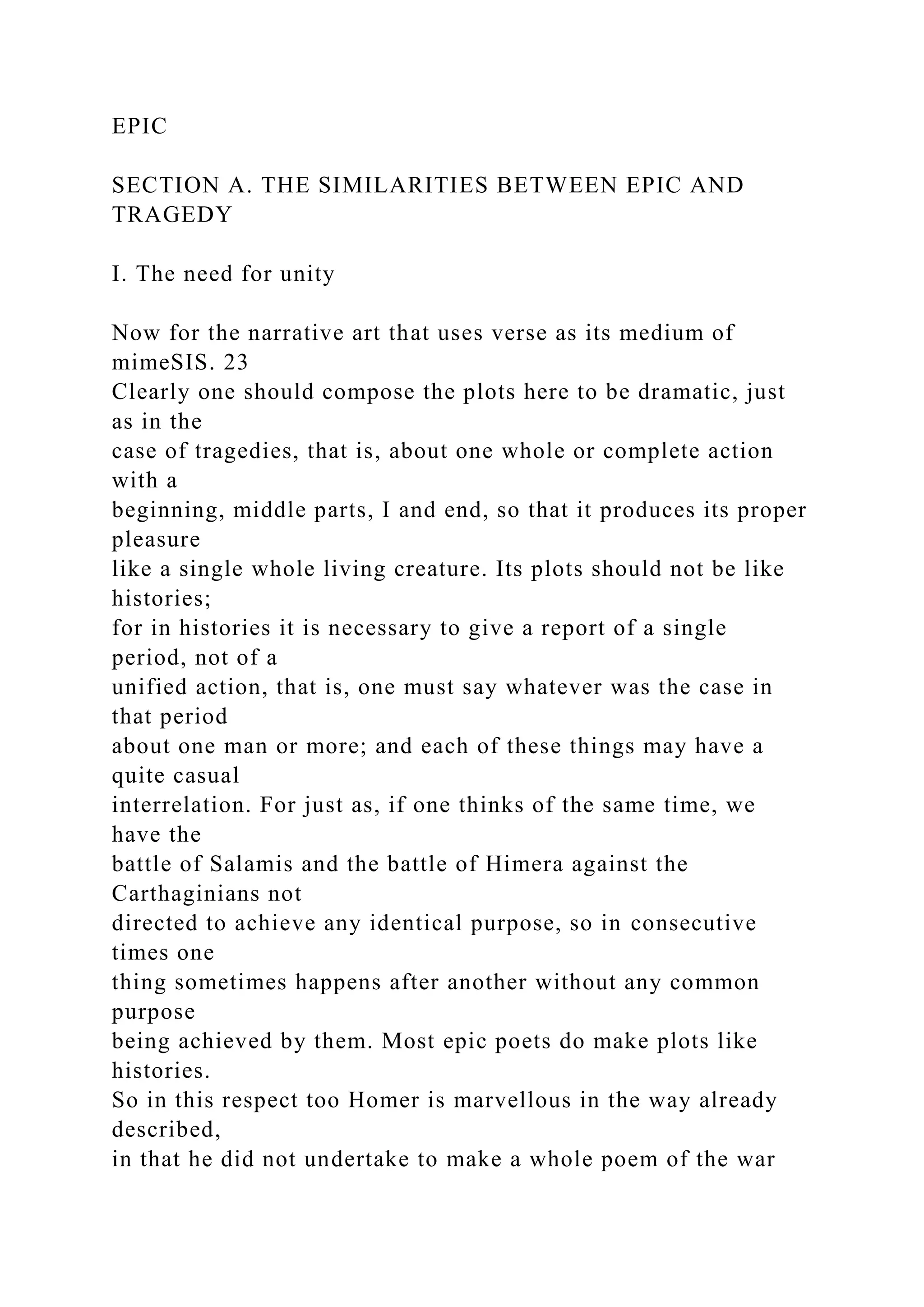
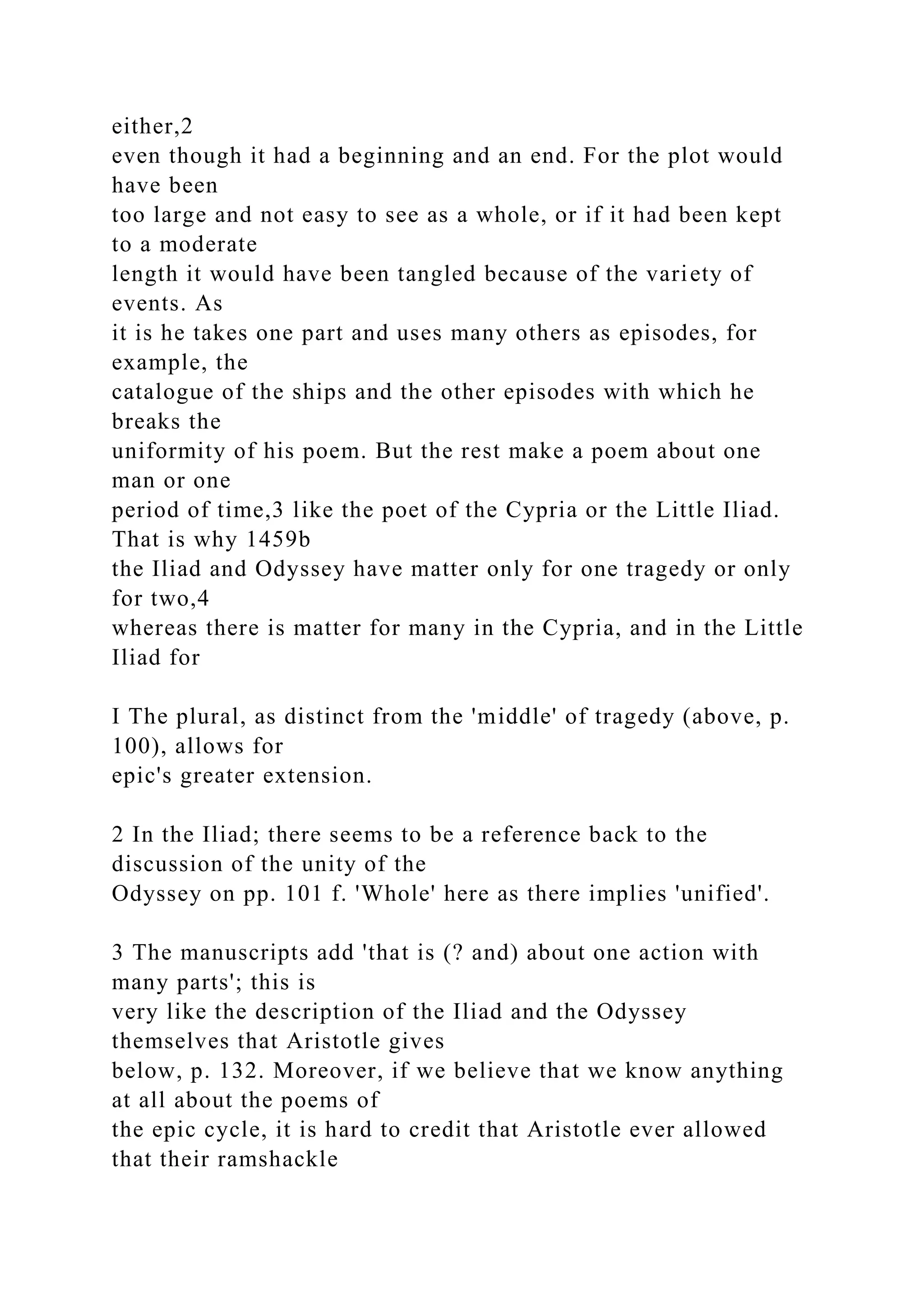
![structures dealt with 'one action', however polymerous.
4 The reference is to the principal action of the poems, not to
the episodes, like that
ofBellerophon, which provided material for more tragedies; for
the neglect of Aeschylus,
cf. above, p. 1I6 n. 3.
124 ARISTOTLE
more than eight, for example, The Adjudgement of the Arms,
Philoctetes,
Neoptolemus, Eurypylus, Odysseus as a Beggar, The Lacolliall
Women, The
Sack of Troy, The Departure, plus the Sinon and the Trojan
Women.!
2. The species of epic
24 Moreover, epic must have the same species as tragedy, that
is, must be
simplez or complex, a story of character or one of pathos. [And
the
elements are the same except for music and spectacle.] And it
needs
peripeteiai and recognitions and pathe. [Moreover its mimesis
of in-
tellect and its verbal expression should be good.] All of these
Homer
was the first to use and his use of them is exemplary. For in the
case of
each of the poems, the composition of the Iliad is simple and
full of
pathos, that of the Odyssey complex, as there are recognitions](https://image.slidesharecdn.com/onlyprojectmanagementexpertineedtheanswers-221204163350-5fd2686e/75/Only-Project-Management-Expert-I-need-the-answers-docx-100-2048.jpg)
![throughout,
and full of character. [And in addition he is pre-eminent in his
verbal
expression and mimesis of intellect.]3
SECTION B. THE DIFFERENCES BETWEEN EPIC
AND TRAGEDY
Epic differs from tragedy in the length of its plot and in its
metre.
I. Length
The above mentioned limit oflength4 is an adequate guide: that
is, one
should be able to get a synoptic view of the beginning and the
end. This
will be the case if the poems are shorter than those of the
ancients,S and
about as long as the number of tragedies offered at one sitting.
Epic has a peculiar characteristic in that its size can be
considerably
I Probably not everything in this list is due to Aristotle.
2 Cf. above, p. II5. 'Simple' here corresponds to what should
probably be 'spectacle'
there.
3 F. Soimsen, CQ 29, 1935, 195, was probably correct in
arguing that a series of
remarks about the qualitative parts (here enclosed in double
brackets) has been super-
imposed on a straightforward discussion of the species of epic.](https://image.slidesharecdn.com/onlyprojectmanagementexpertineedtheanswers-221204163350-5fd2686e/75/Only-Project-Management-Expert-I-need-the-answers-docx-101-2048.jpg)
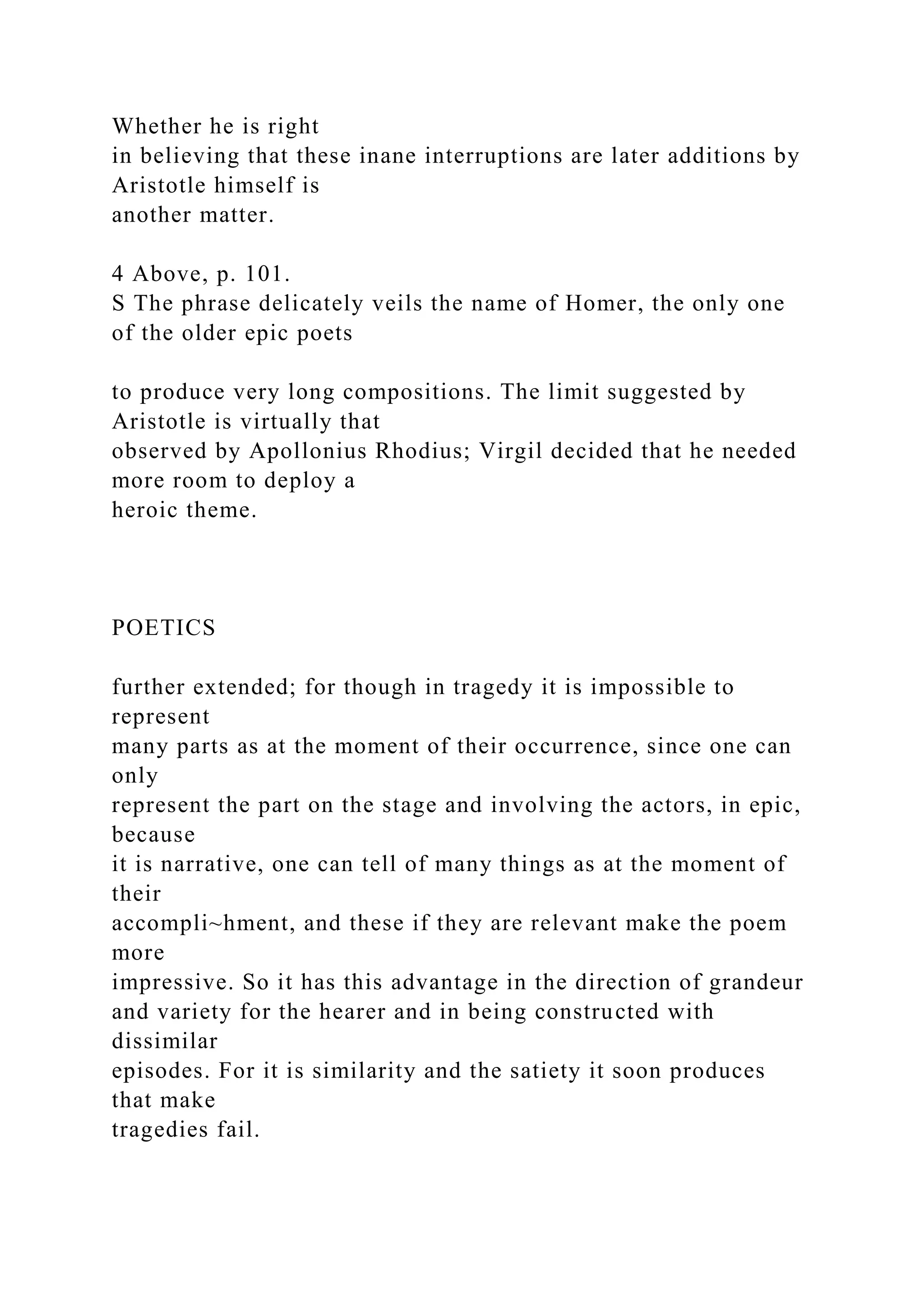
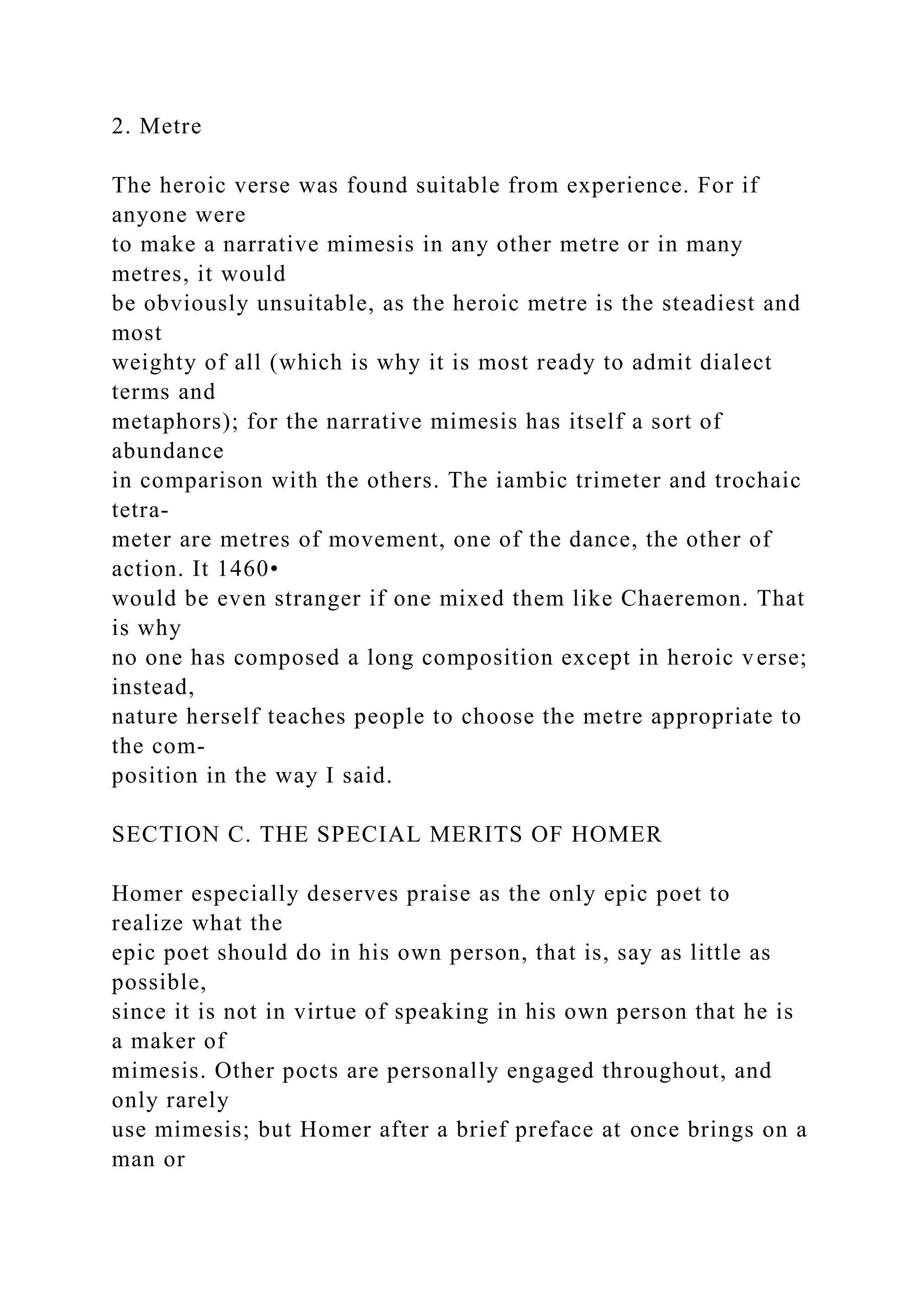
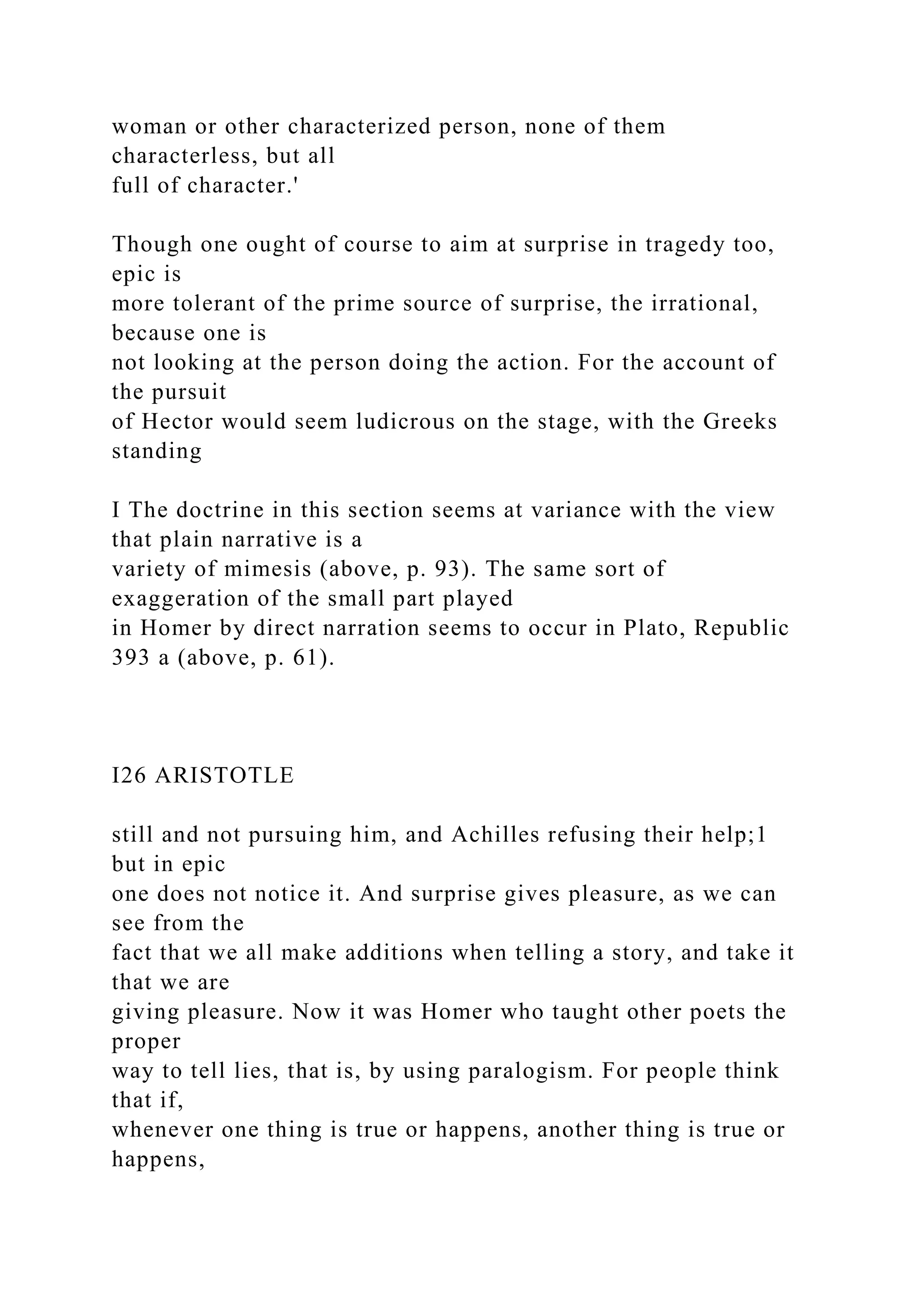
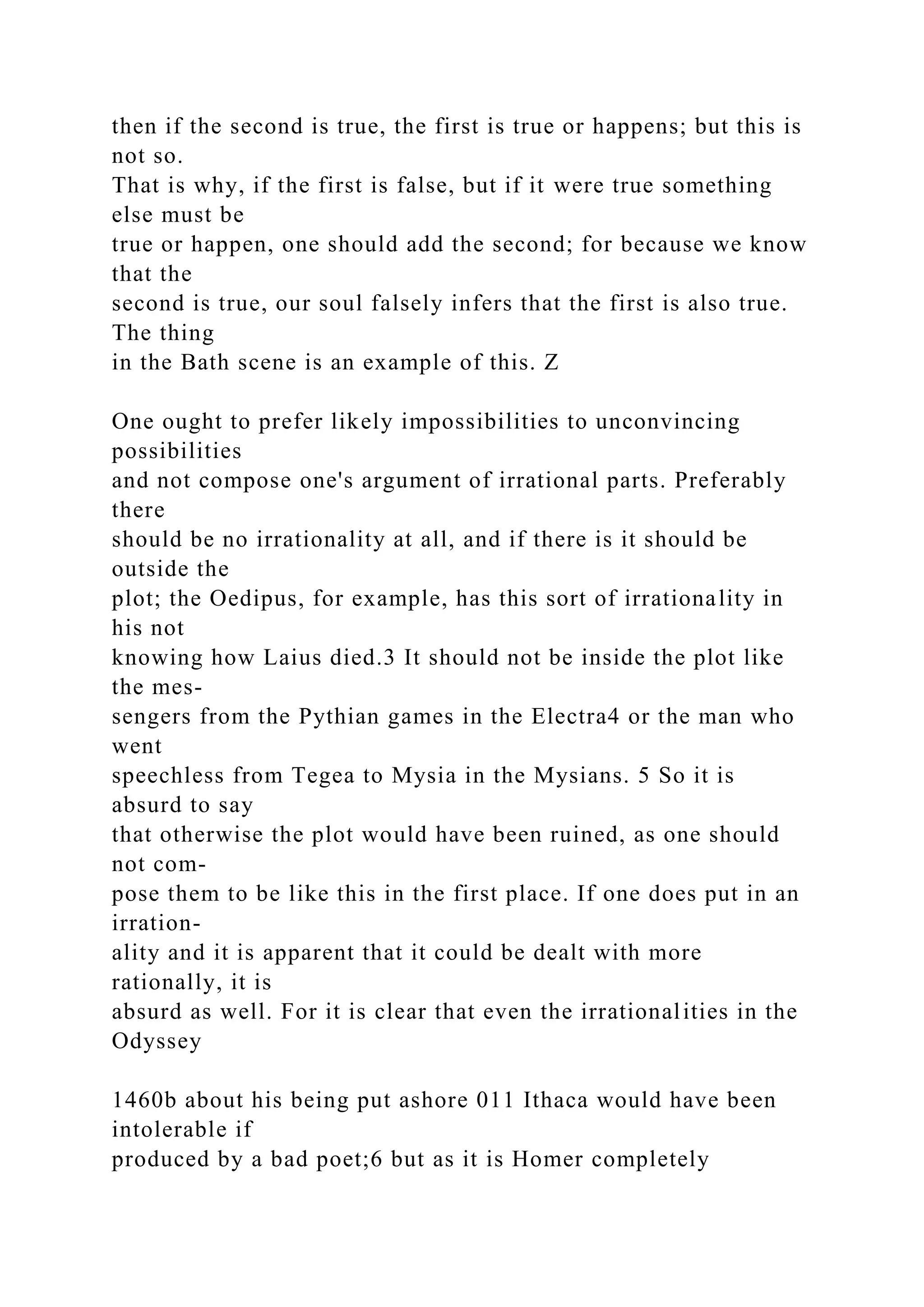
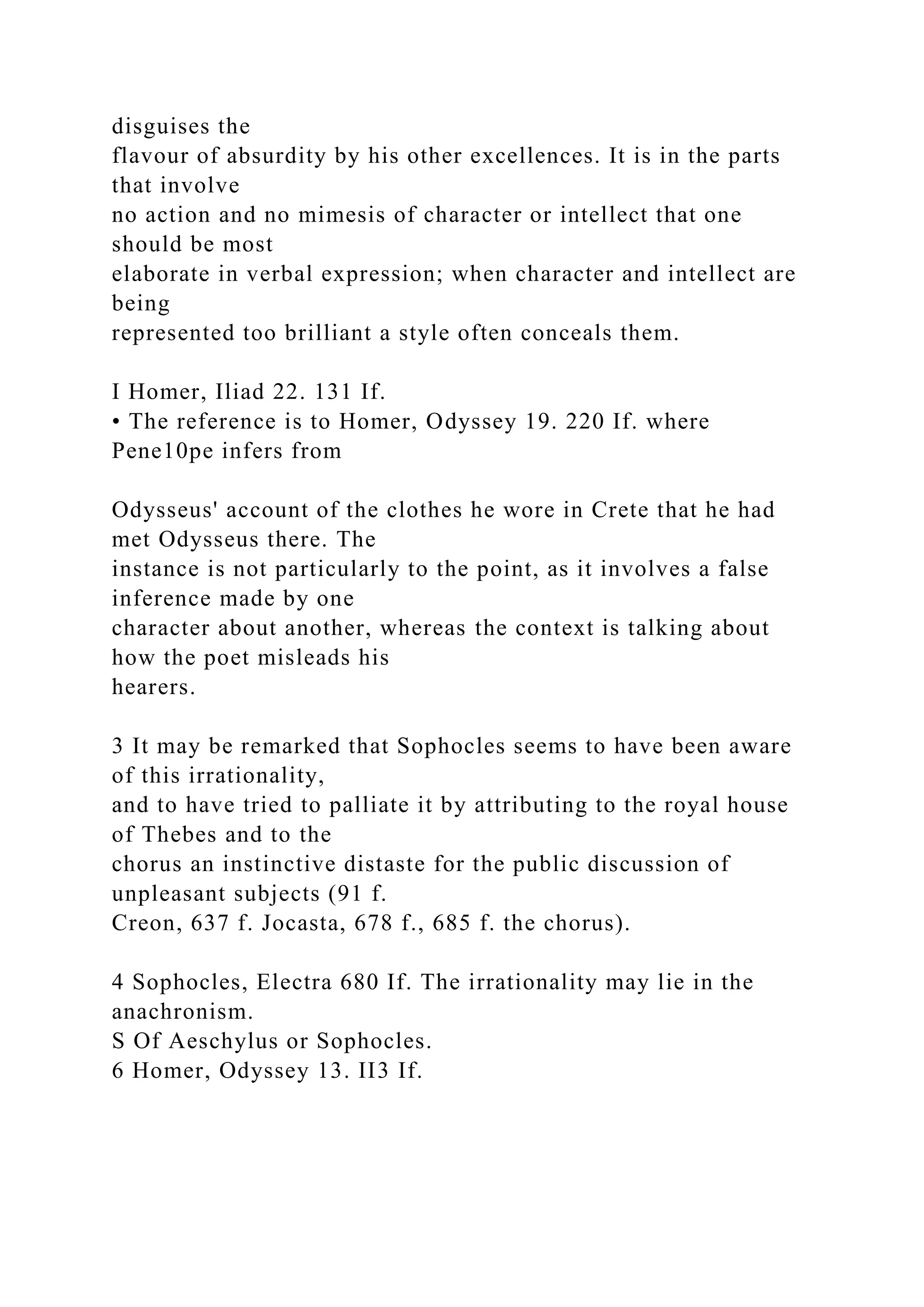
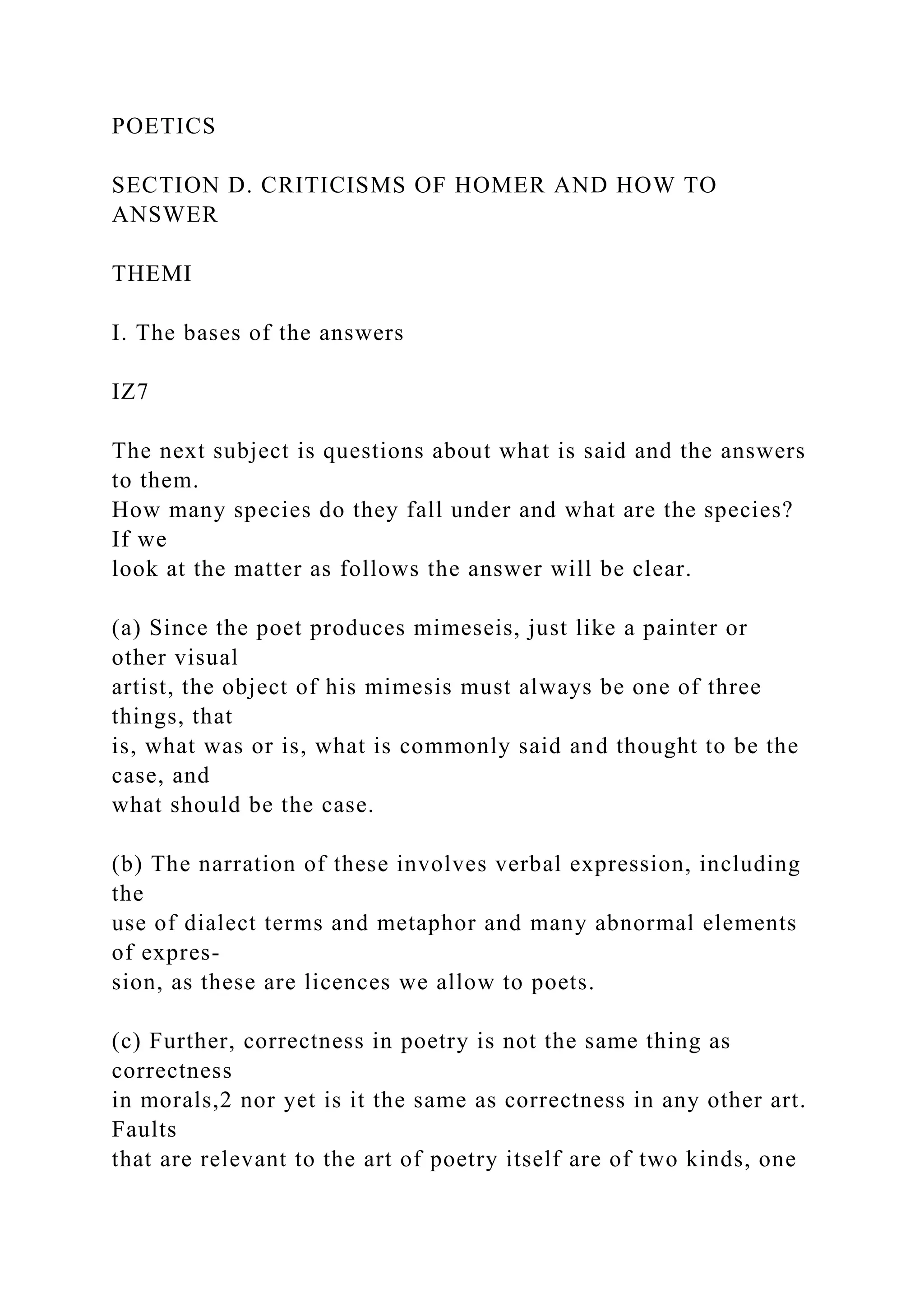
![involving
its essential nature, and the other incidental. If the poet is
incapable of
representing what he set out to represent, this is an error
involving the
essential nature of poetry. If the error arises through the poet's
setting
out to represent something incorrectly, for example,
representing a horse
with both its right legs forward,3 and this is the reason why we
find
in the poem either a mistake with reference to any particular art
(for
example, medicine or some other art) or, more generally, any
other im-
possibility, this does not involve the essential nature of poetry.4
So one should use these principles in examining and answering
the
questions raised.
2. The twelve sorts of answer
(a) ANSWERS DERIVED FROM BASIS (c)
Let us take first of all the errors that involve the art of poetry
itself:
1. If the poem contains[, for instance,] an impossibility,s that is
a
fault; but it is all right if the poem thereby achieves what it
aims at (what
I This discussion is extremely difficult and compressed,
presumably because it is
an epitome of the four books that Aristotle wrote on Homeric](https://image.slidesharecdn.com/onlyprojectmanagementexpertineedtheanswers-221204163350-5fd2686e/75/Only-Project-Management-Expert-I-need-the-answers-docx-108-2048.jpg)
![Problems.
2 This curt phrase is a very important part of Aristotle's answer
to Plato.
3 Photography has shown that horses do sometimes employ this
gait.
4 The English reader may recall the justified censure of Milton's
botany in Lycidas.
5 It is important to realize that though Aristotle takes an
impossibility as an example,
he could equally well have chosen something irrational, morally
damaging, or self-
contradictory (below, p. 131).
128 ARISTOTLE
it aims at I have already discussed), that is, if in this way the
surprise
produced either by that particular passage or by another is more
striking.
An example is the pursuit of Hector. However, if it was possible
for the
aim to be attained either more or no less without any error in
the art
[essentially] concerned, it is not all right; for, if possible, there
should be
no error at all.
2. Secondarily, one should consider whether the error involves
the
essential nature of poetry or something incidental, as it is a
lesser fault
not to know that a hind has no antlers than to paint it in a way](https://image.slidesharecdn.com/onlyprojectmanagementexpertineedtheanswers-221204163350-5fd2686e/75/Only-Project-Management-Expert-I-need-the-answers-docx-109-2048.jpg)
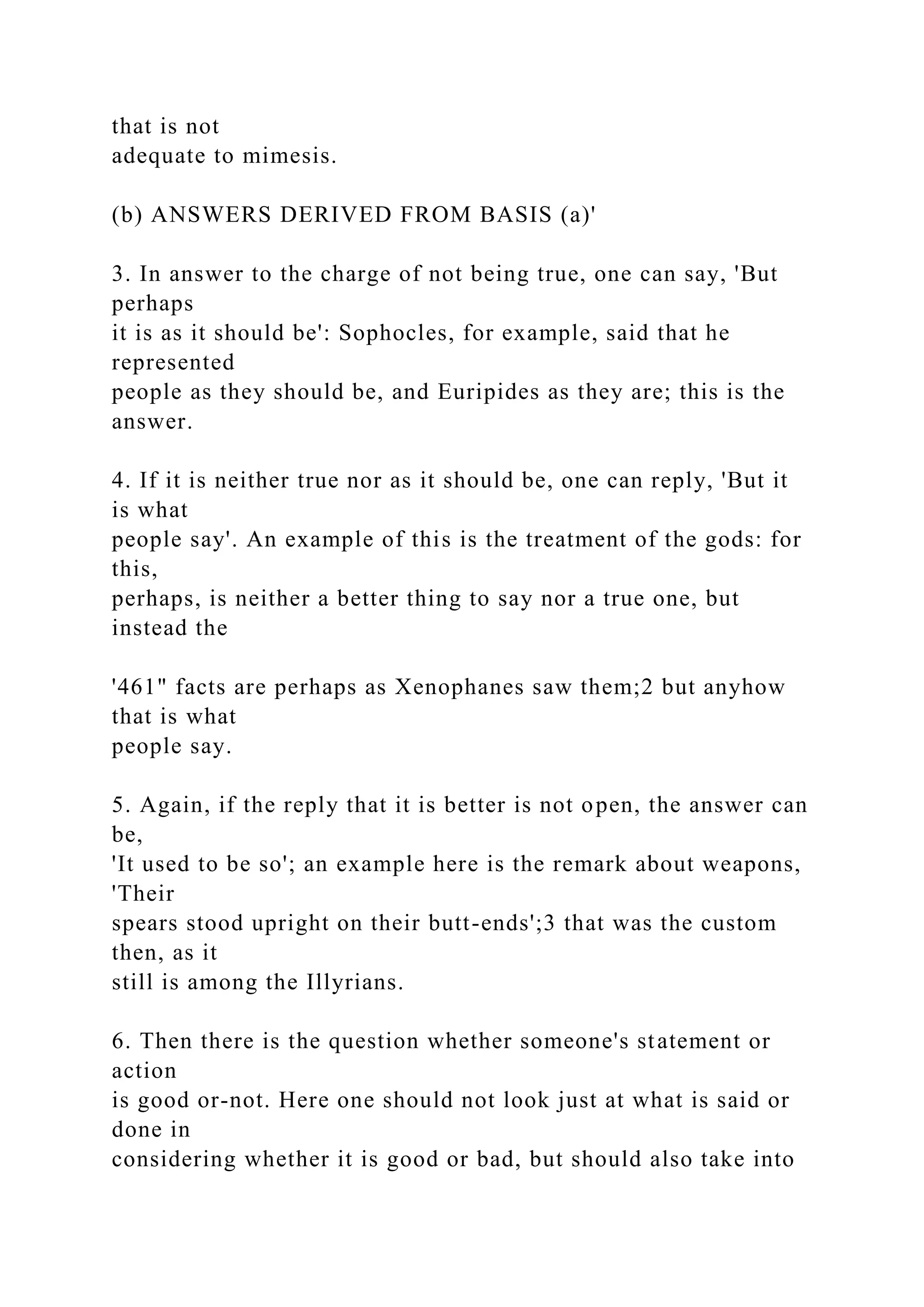
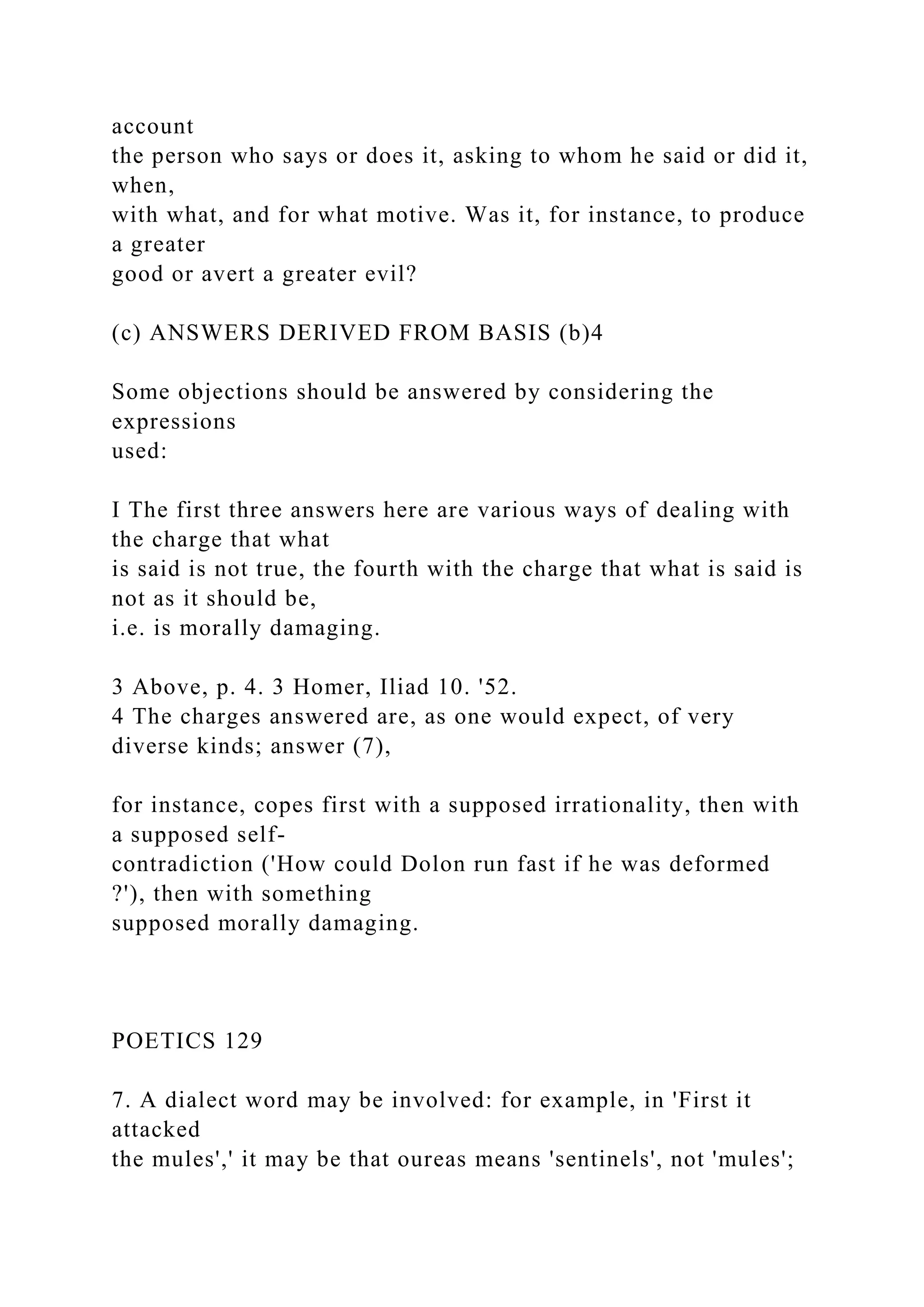
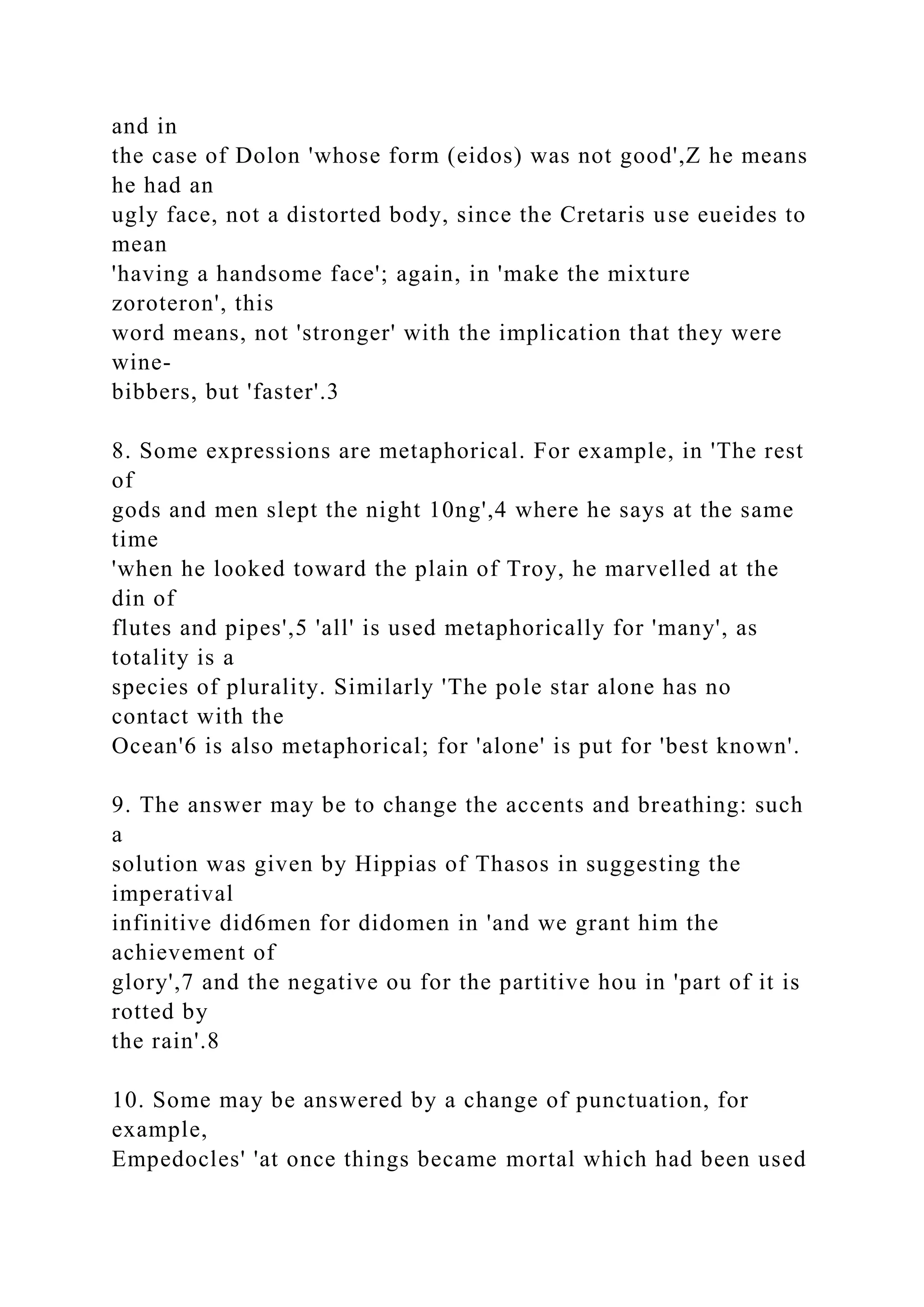
![to be
immortal, and things unmixed formerly mixed'.9
II. Another reply is that the expression is ambiguous, for
example, in
'more of the night was past than two thirds; the third was
left';1O here
pleo, 'more', is ambiguous [and may mean 'full'].
12. Some things are a matter of usage. We call wine and water
'wine',
and by analogy with this Homer says 'greaves of new.,forged
tin'.lI And
we call iron-workers 'bronze-smiths', and on the.analogy of this
Gany-
mede is said to pour wine for Zeus, IZ though gods do not drink
wine; this
could also be explained as an analogical metaphor.
I Homer, Iliad I. 50.
• Ibid. 10. 316.
3 Ibid. 9. 202.
4 Ibid. 10. I f., 2. I f.
5 Ibid. 10. 11-13.
6 Ibid. 18. 489, Odyssey 5. 275; Aristotle gives tlris and some
otlrer of tlre quotations
in this section in a much abbreviated form.
7 Homer, Iliad 21.297 and perhaps in Aristotle's text of Iliad 2.
IS.
8 Ibid. 23. 328.
9 Fr. 35. 14 f. Aristotle means tlrat one should take 'formerly'
witlr 'unmixed' instead
of witlr 'mixed'.
la Homer, Iliad 10. 251 ff.](https://image.slidesharecdn.com/onlyprojectmanagementexpertineedtheanswers-221204163350-5fd2686e/75/Only-Project-Management-Expert-I-need-the-answers-docx-113-2048.jpg)
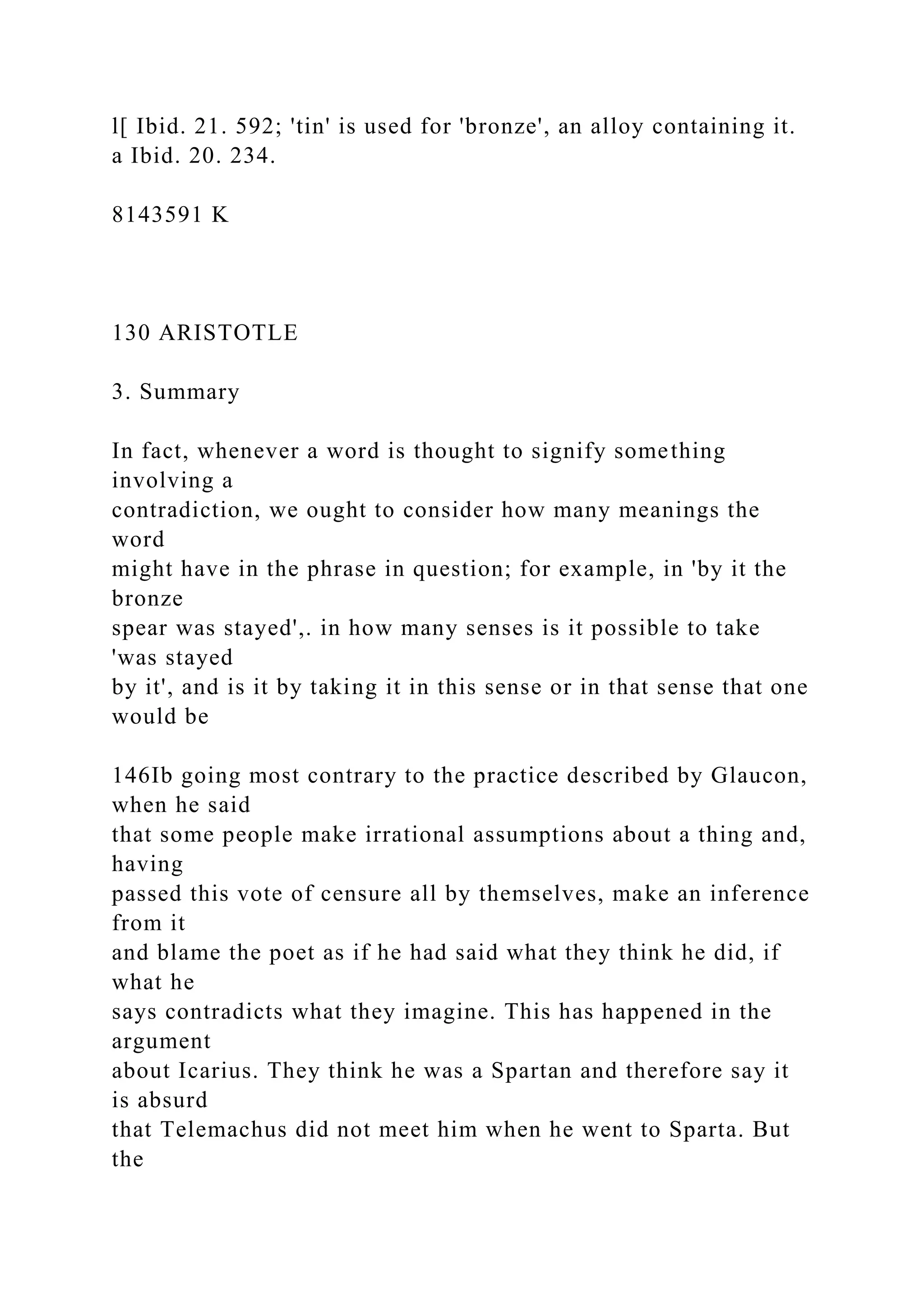
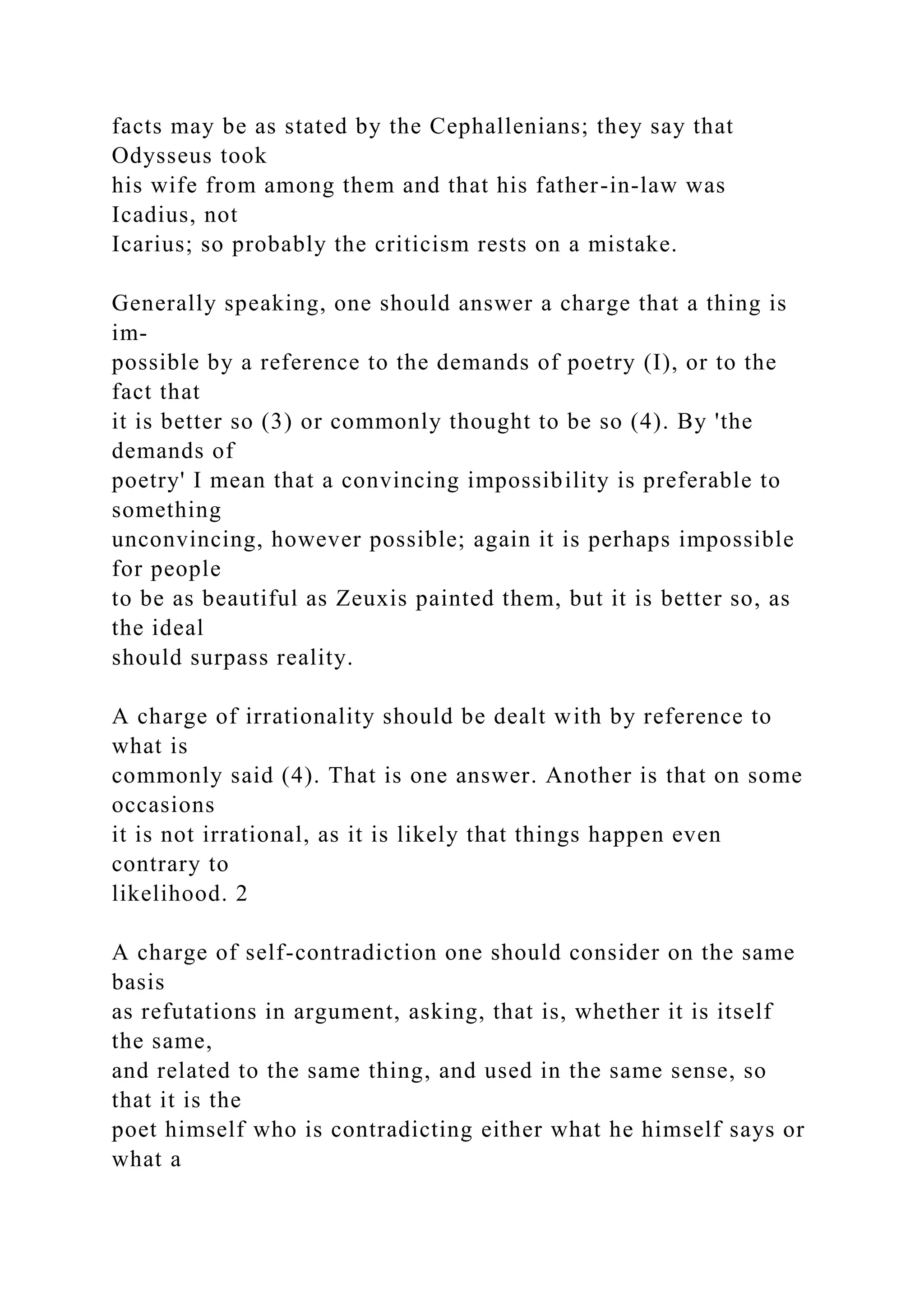
![sensible man assumes.
A charge of irrationality or of representing wickedness is
justified if
there is no necessity for the irrationality or moral wickedness
and no
use is made of it. An example of the former is Euripides'
treatment of
Aegeus [in the Medea], of the latter his treatment of Menelaus
in the
Orestes.J
I Homer, Iliad 20. 272; the problem is how the layer of gold
stopped the spear when
it passed the layers of bronze.
2 Above, p. II6. The figures in round brackets in this and the
preceding paragraph
refer to the relevant 'answers'.
3 Above, p. IIO.
POETICS 13 1
Well then, people produce censures under five heads, claiming
that
things are impossible, irrational, morally dangerous, self-
contradictory,
or contrary to technical correctness. I The answers to them are
on the
basis of the points enumerated: they are twelve in number.
SECTION E. EPIC AND TRAGEDY](https://image.slidesharecdn.com/onlyprojectmanagementexpertineedtheanswers-221204163350-5fd2686e/75/Only-Project-Management-Expert-I-need-the-answers-docx-116-2048.jpg)
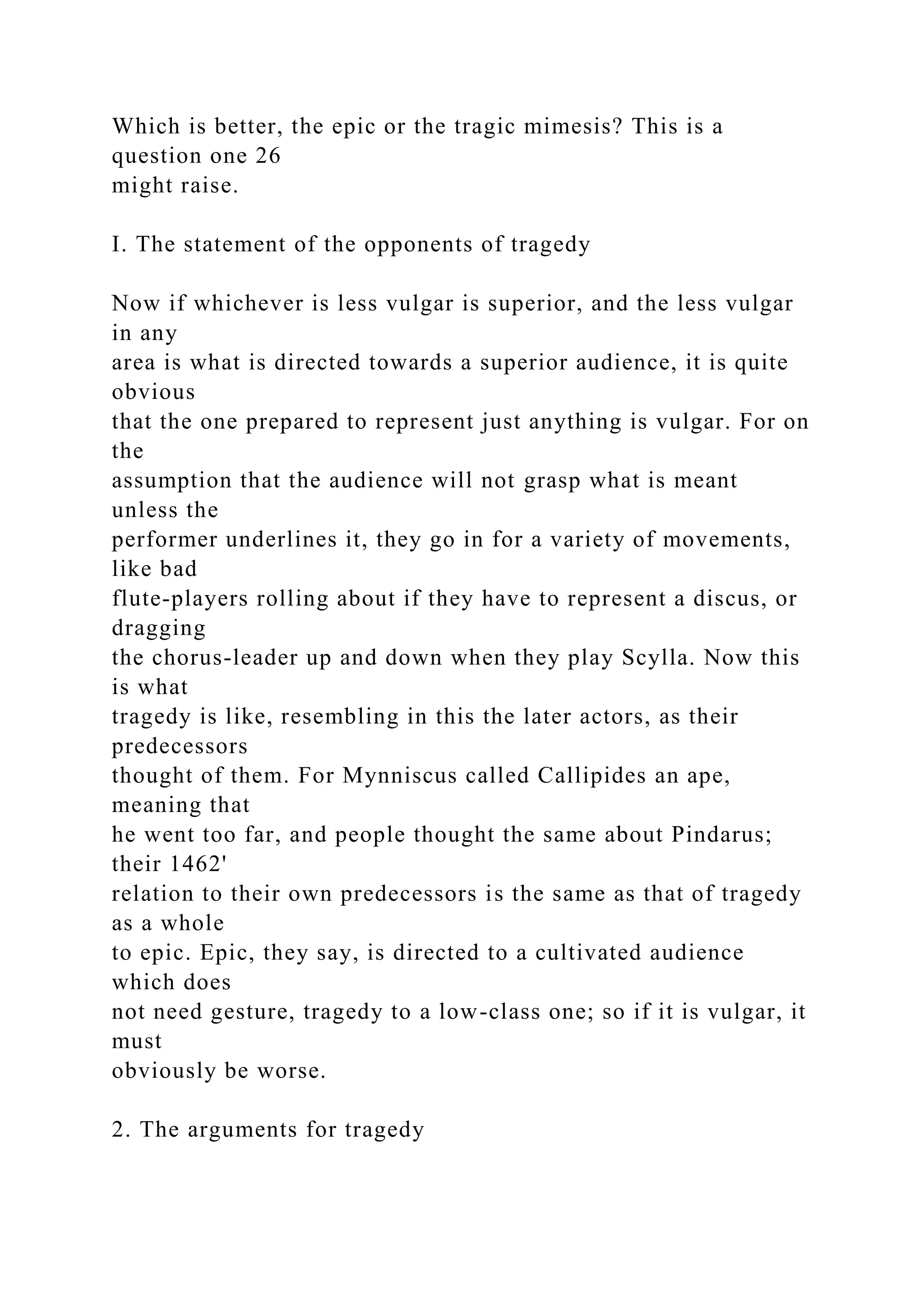
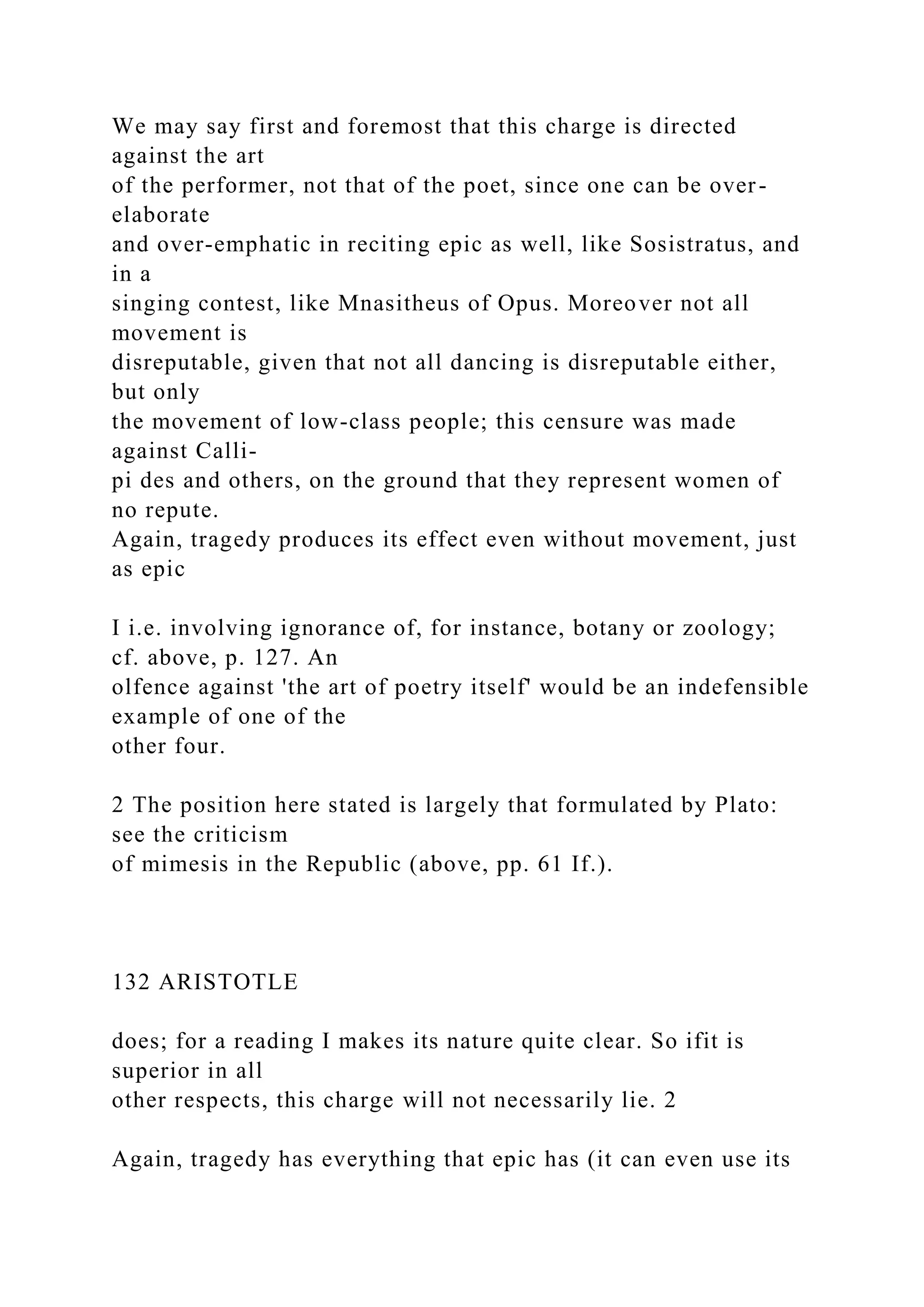
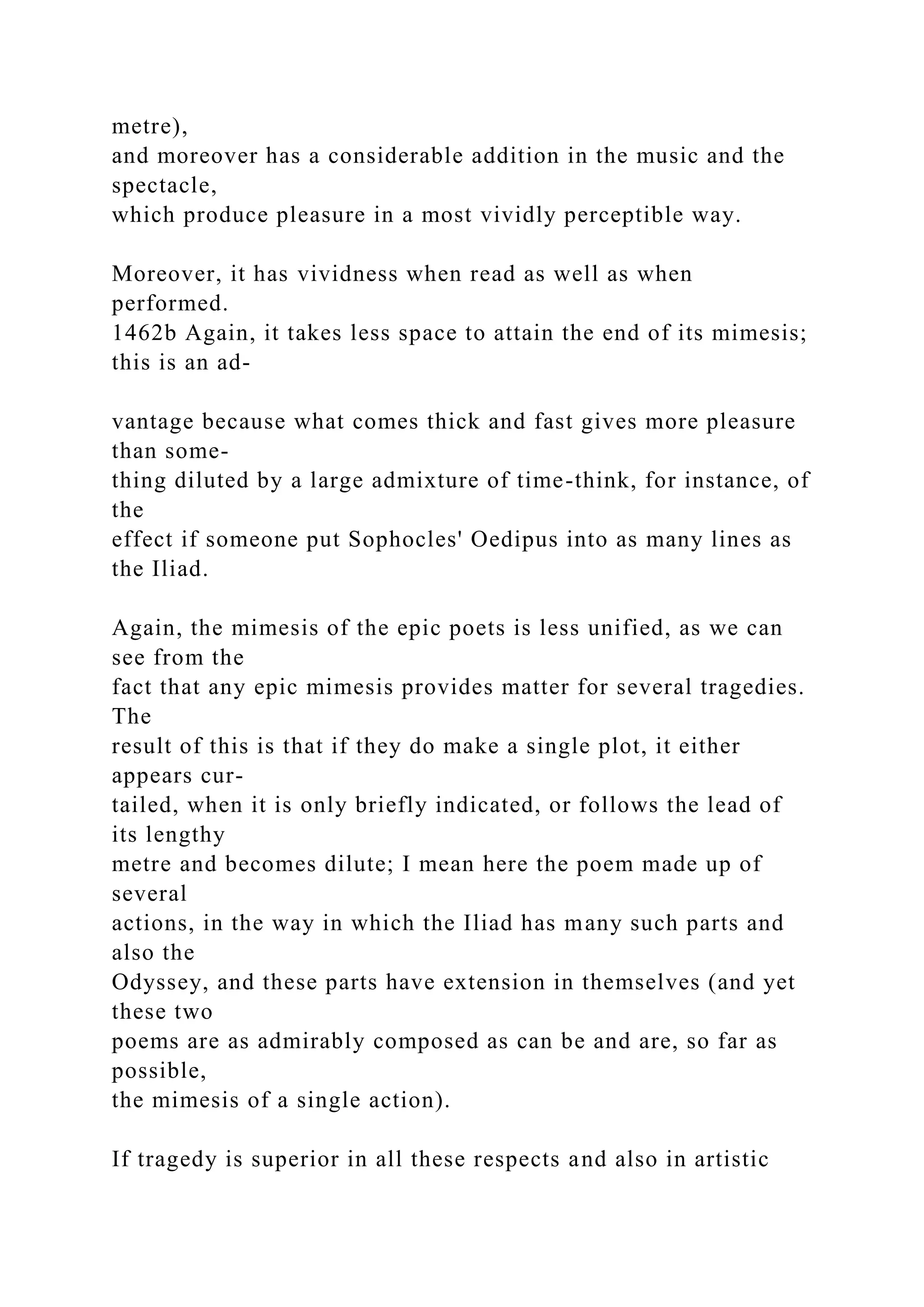
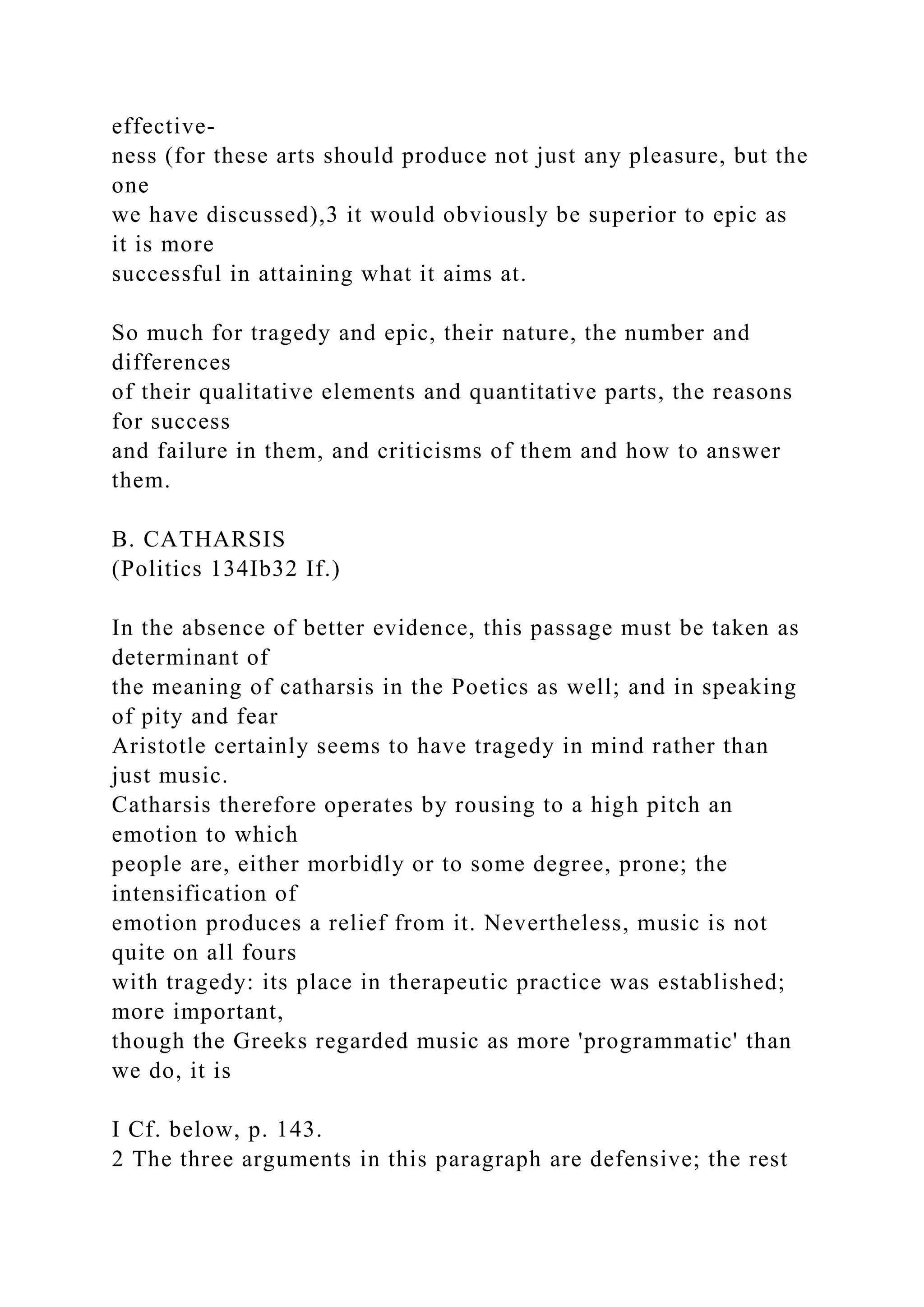
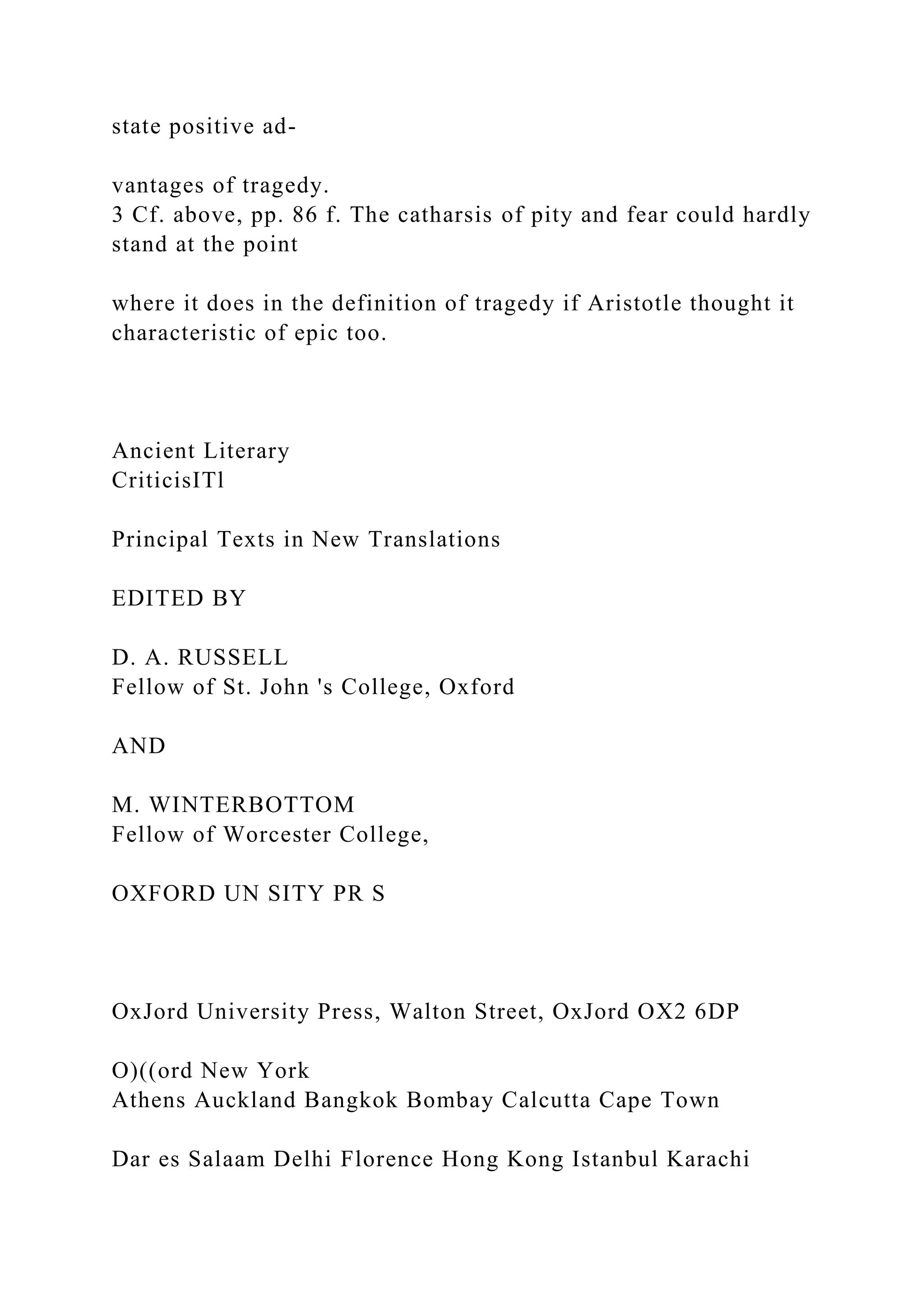
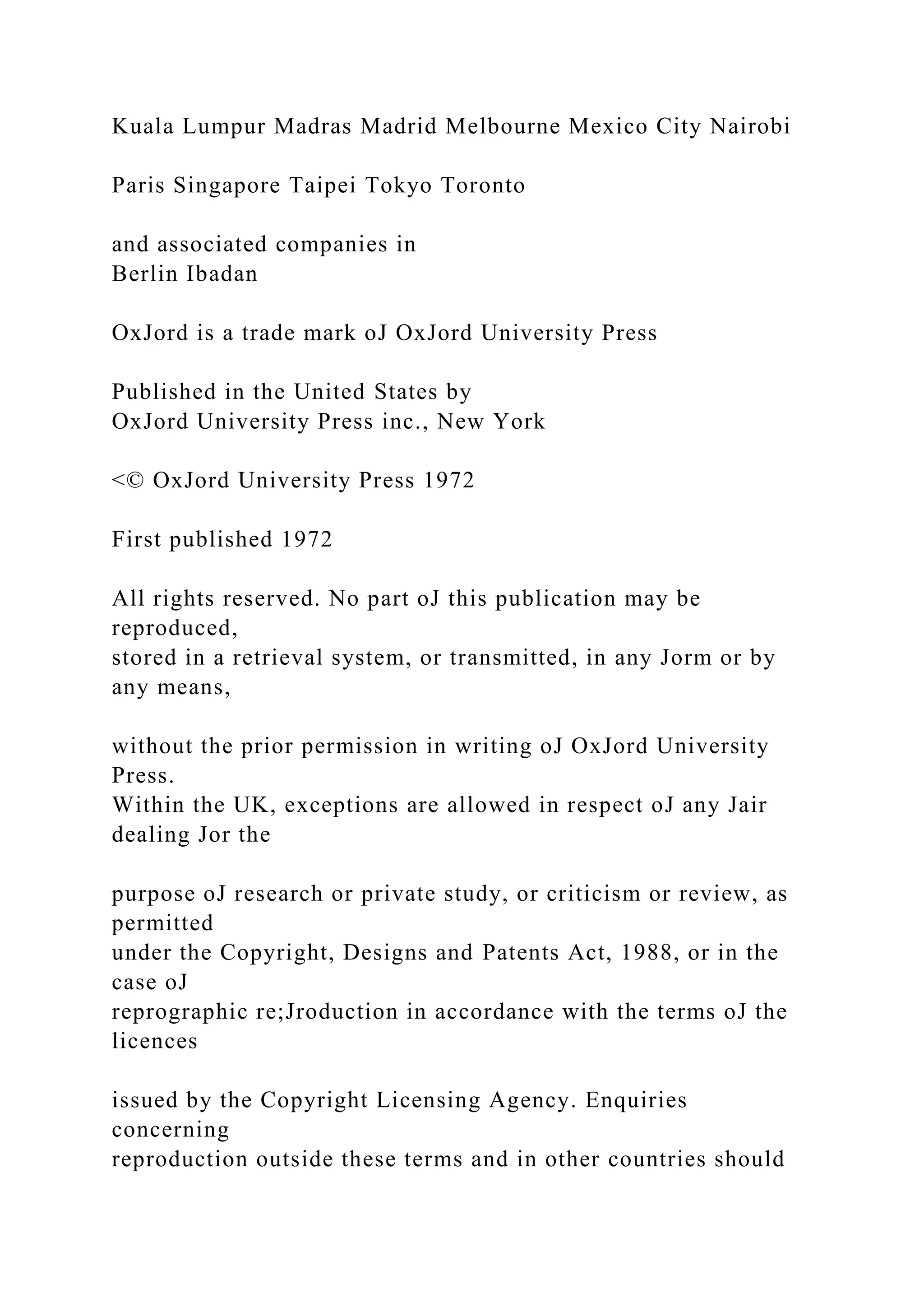
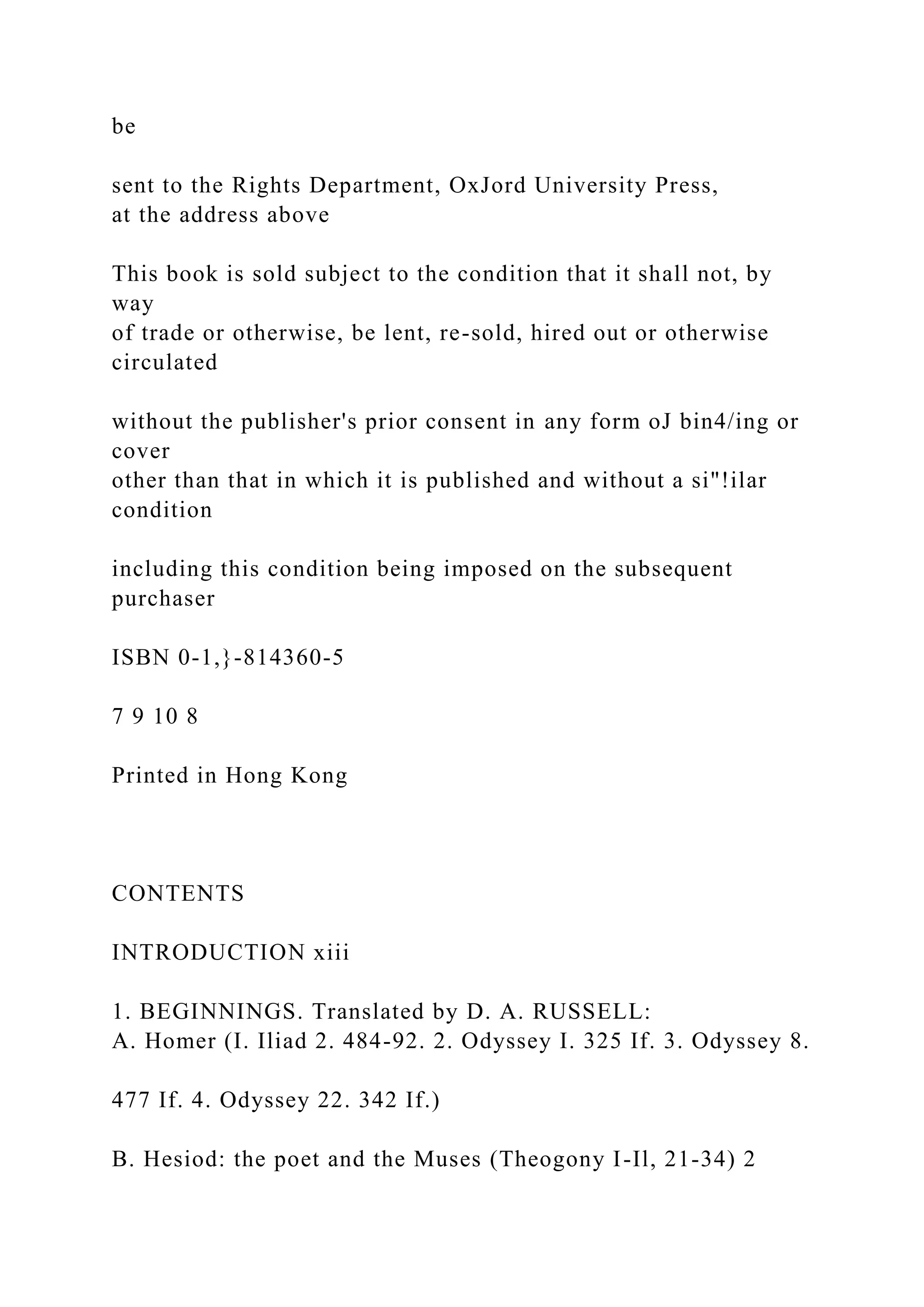
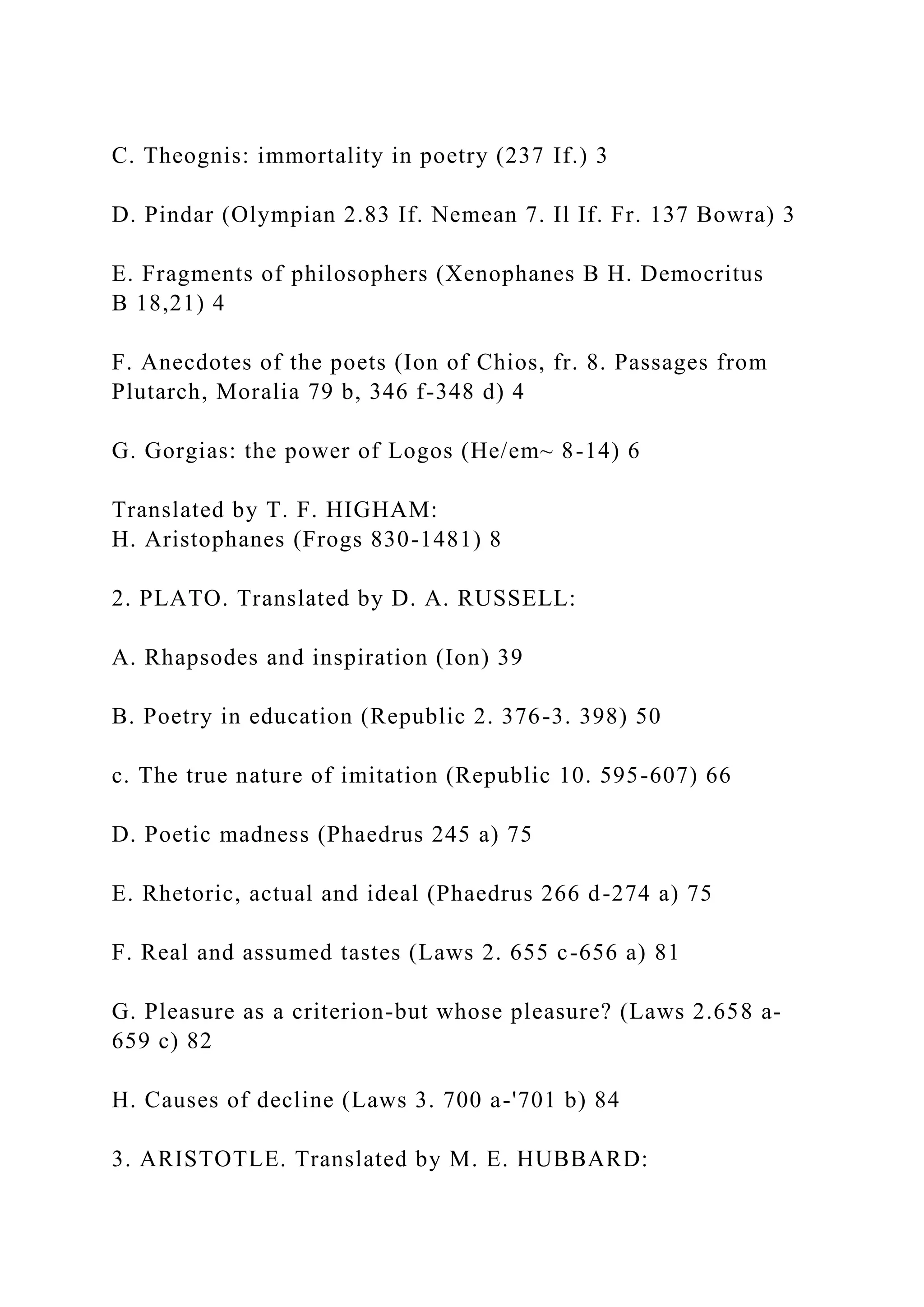
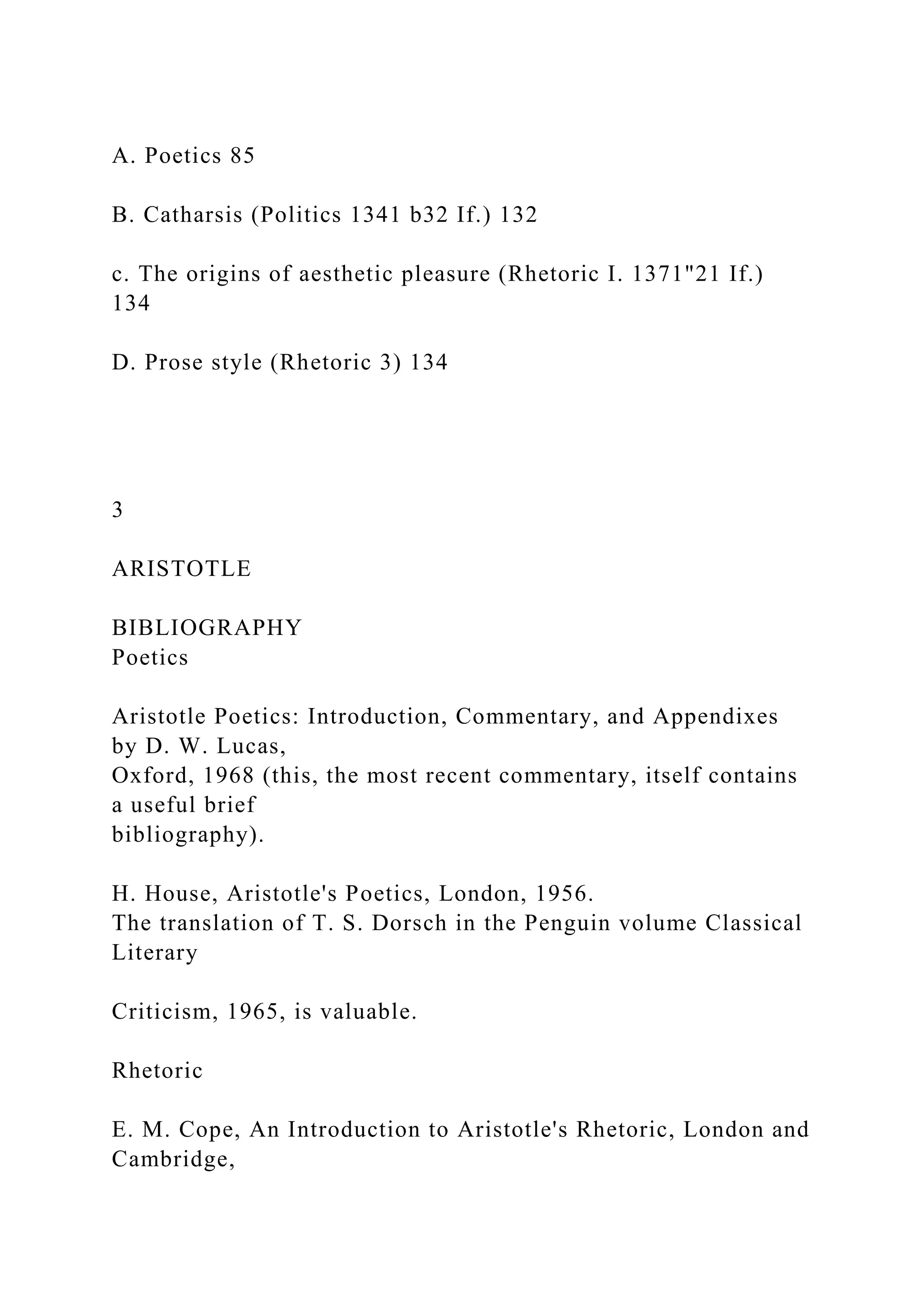
![1867.
-- The Rhetoric of Aristotle with a Commentary, revised by]. E.
Sandys,
3 vols., Cambridge, 1877.
J. H. Freese, Aristotle: The 'Art' of Rhetoric (Loeb), London,
1926.
A. POETICS
INTRODUCTION
Aristotle's Poetics is probably the most important single book
that has ever
been written about poetry, both for what it says and for what it
has been taken
to say. Various factors make it a work singularly easy to
misinterpret, and the
misinterpretations have been just as seminal in the development
of aesthetic
theory and, at some periods, of poetry itself as a correct
understanding of it.
The factors that make for misunderstanding are worth listing, if
only for
monitory purposes: (I) Aristotle's thought, though generally
exquisitely lucid,
is never easy and never slack; it is therefore as hard for a
person who knows
Greek to follow him as it is for a person who knows English to
follow Hume.
(2) Some accidental features of its composition or its
transmission have made
the Poetics one of his most compressed and elliptical works; the
contrast with](https://image.slidesharecdn.com/onlyprojectmanagementexpertineedtheanswers-221204163350-5fd2686e/75/Only-Project-Management-Expert-I-need-the-answers-docx-126-2048.jpg)
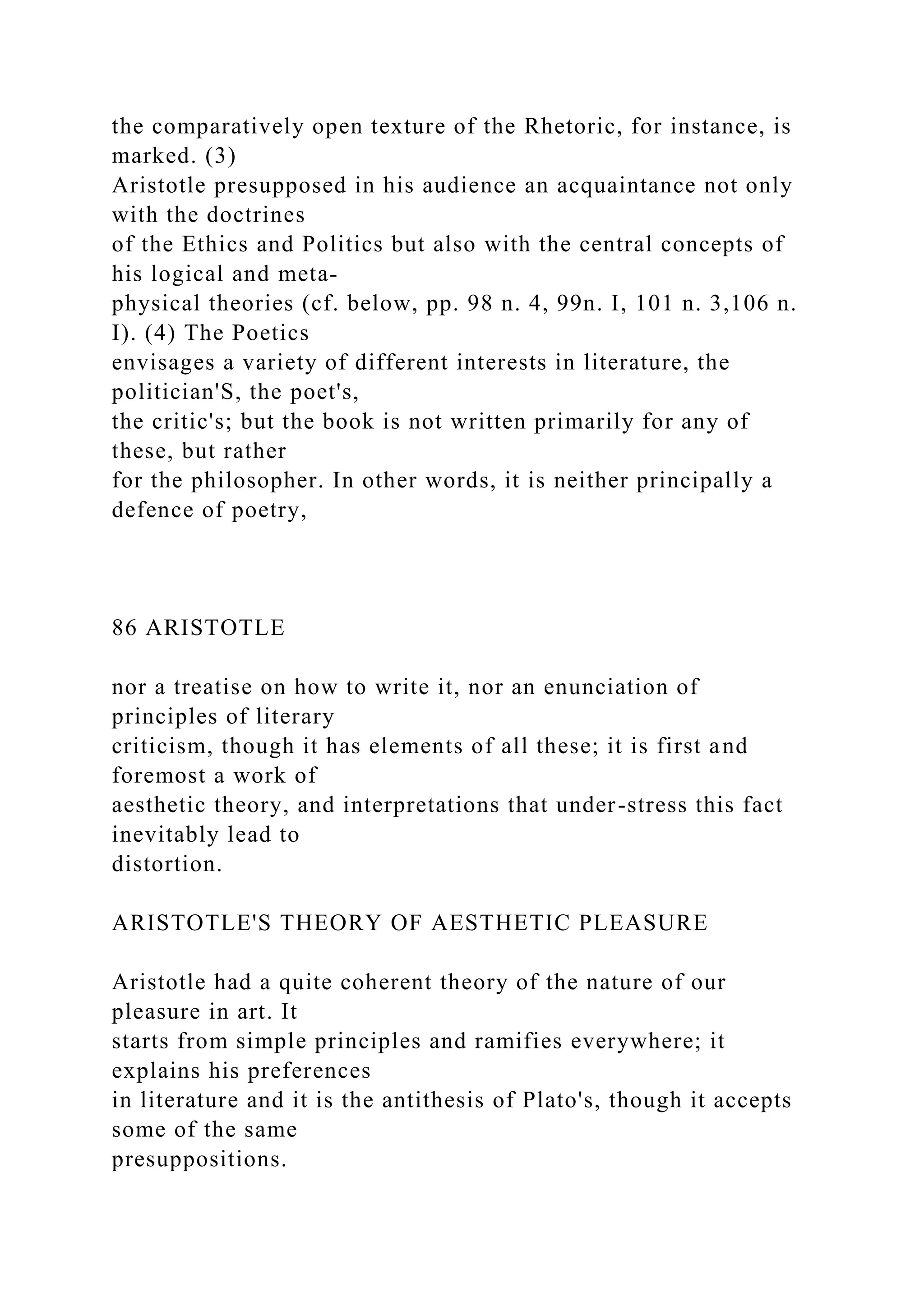

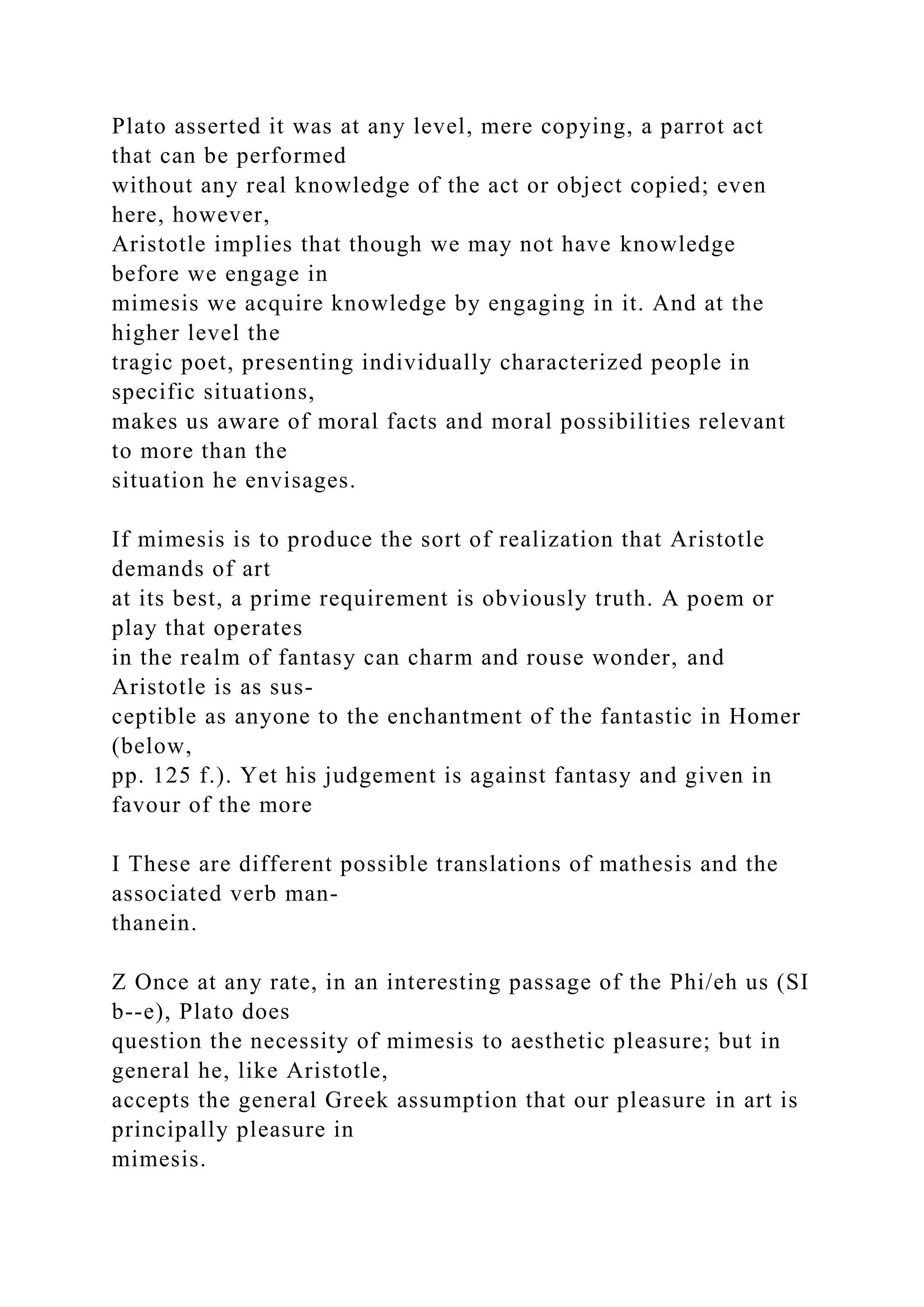
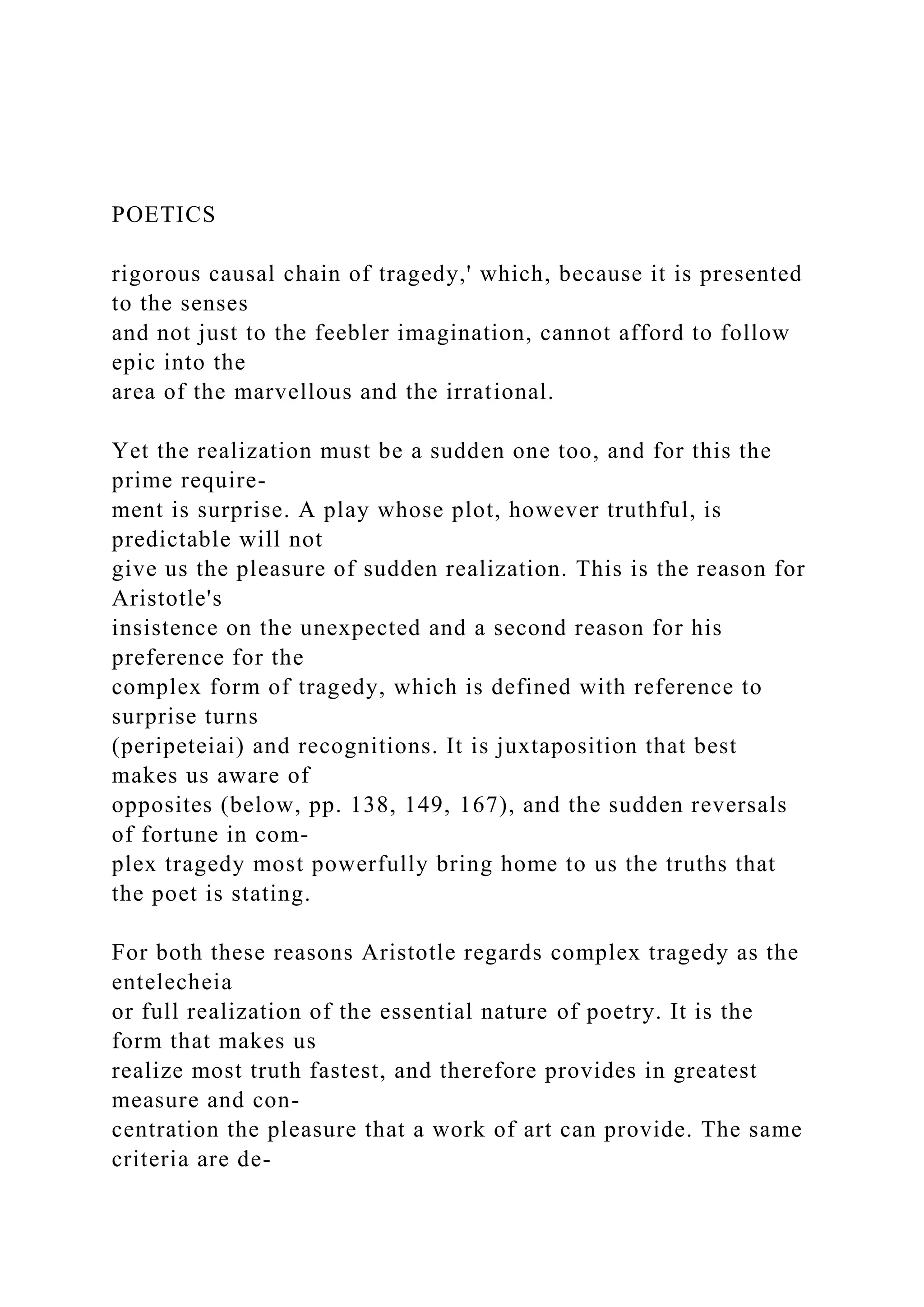
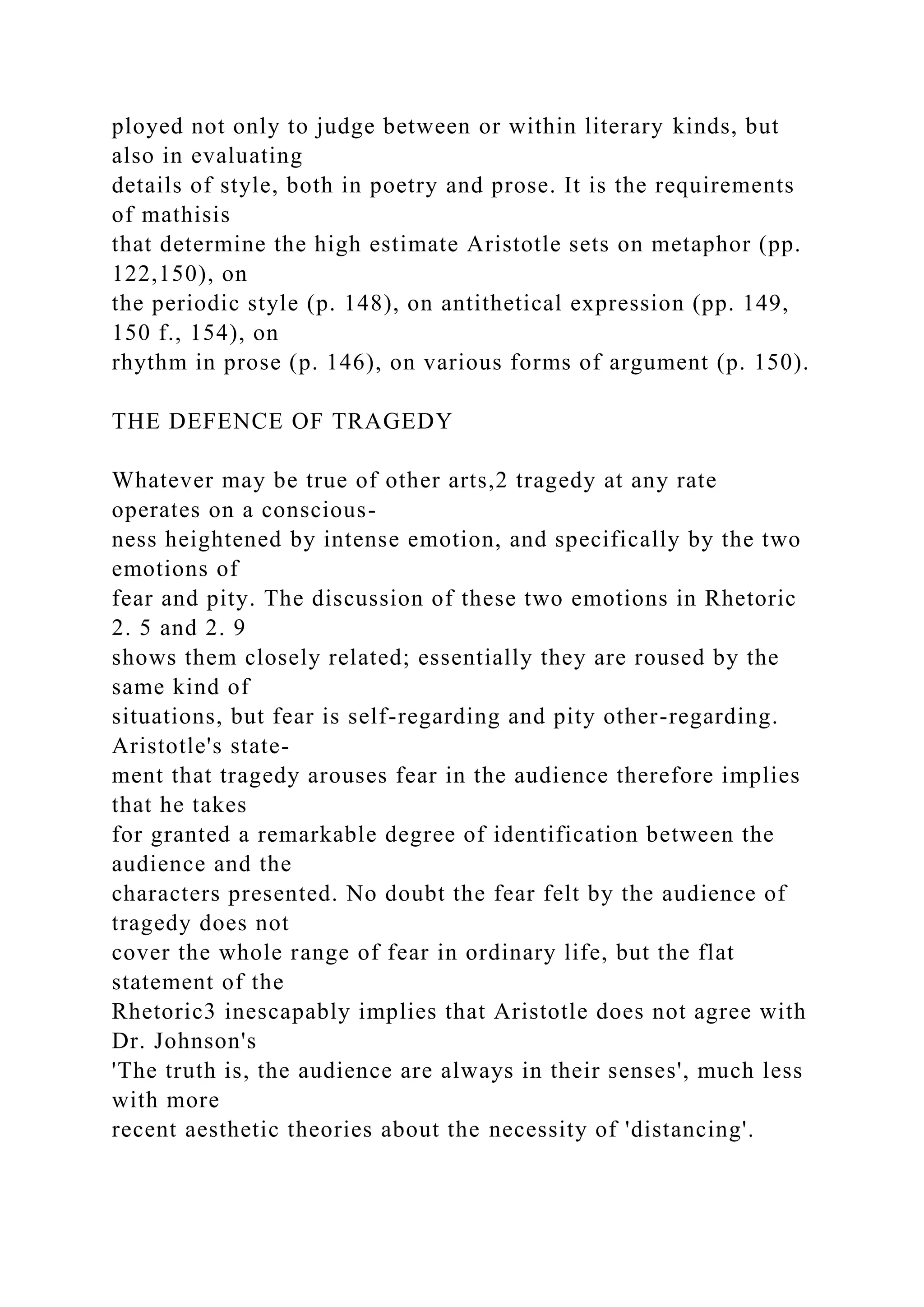
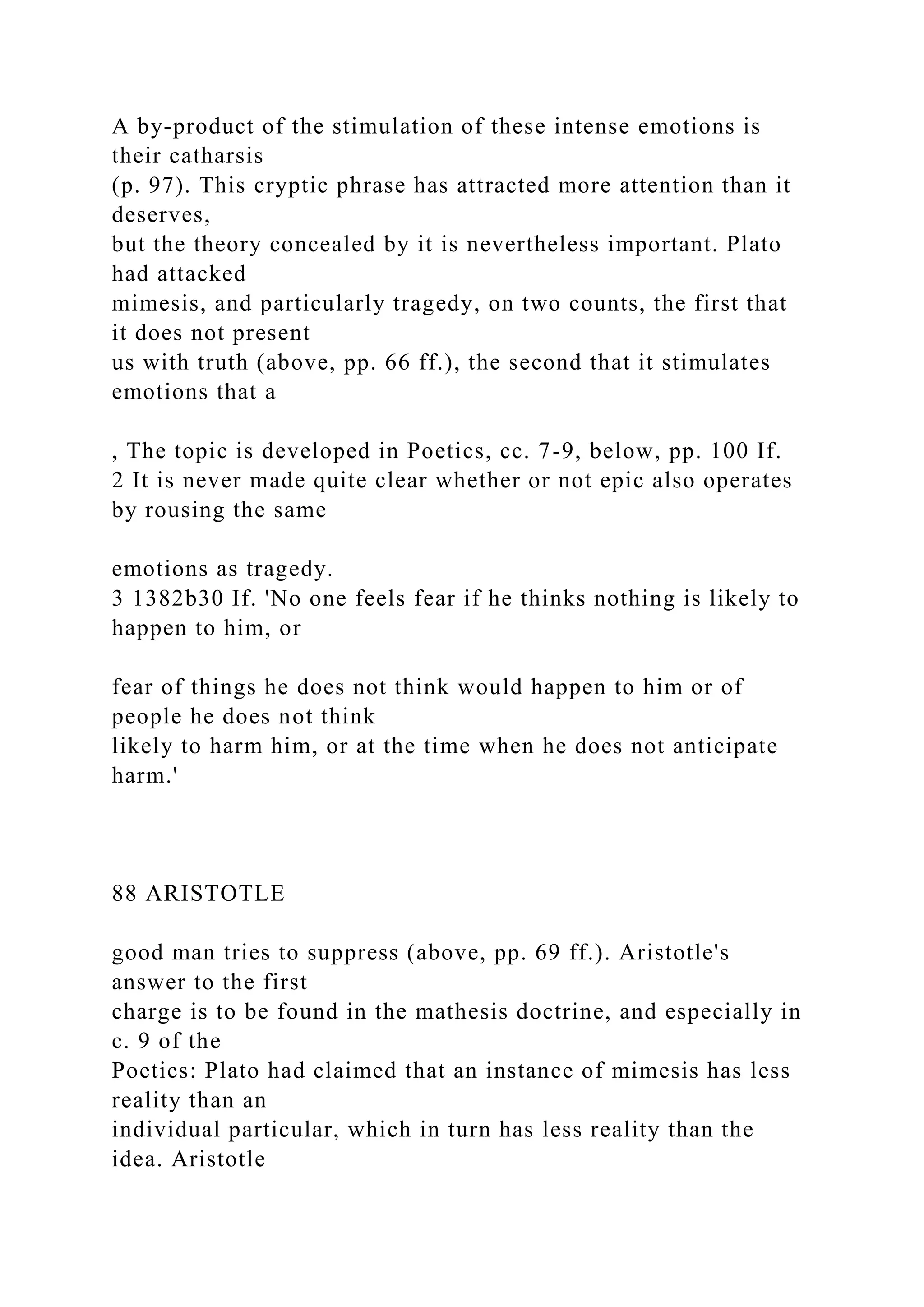
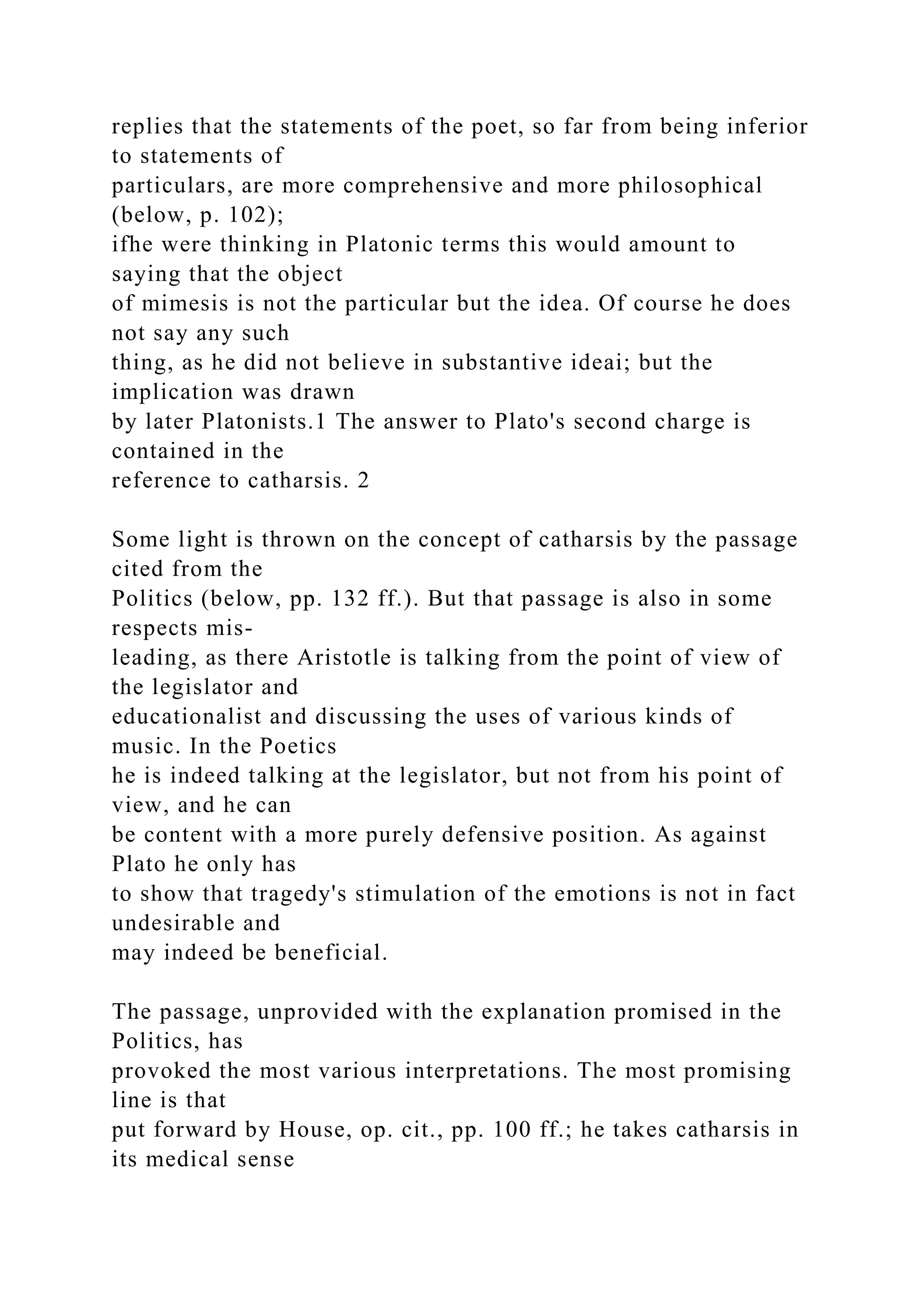
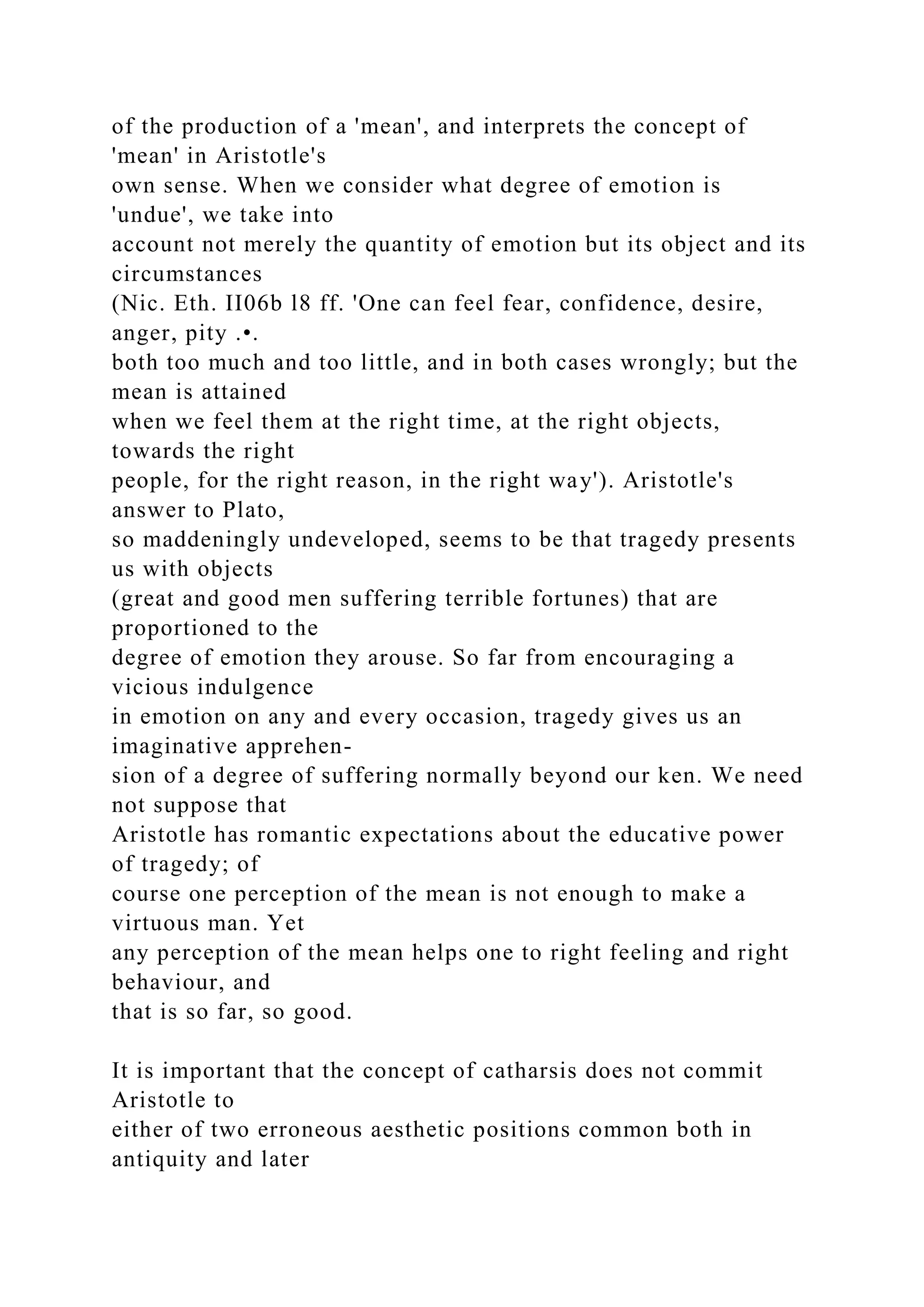
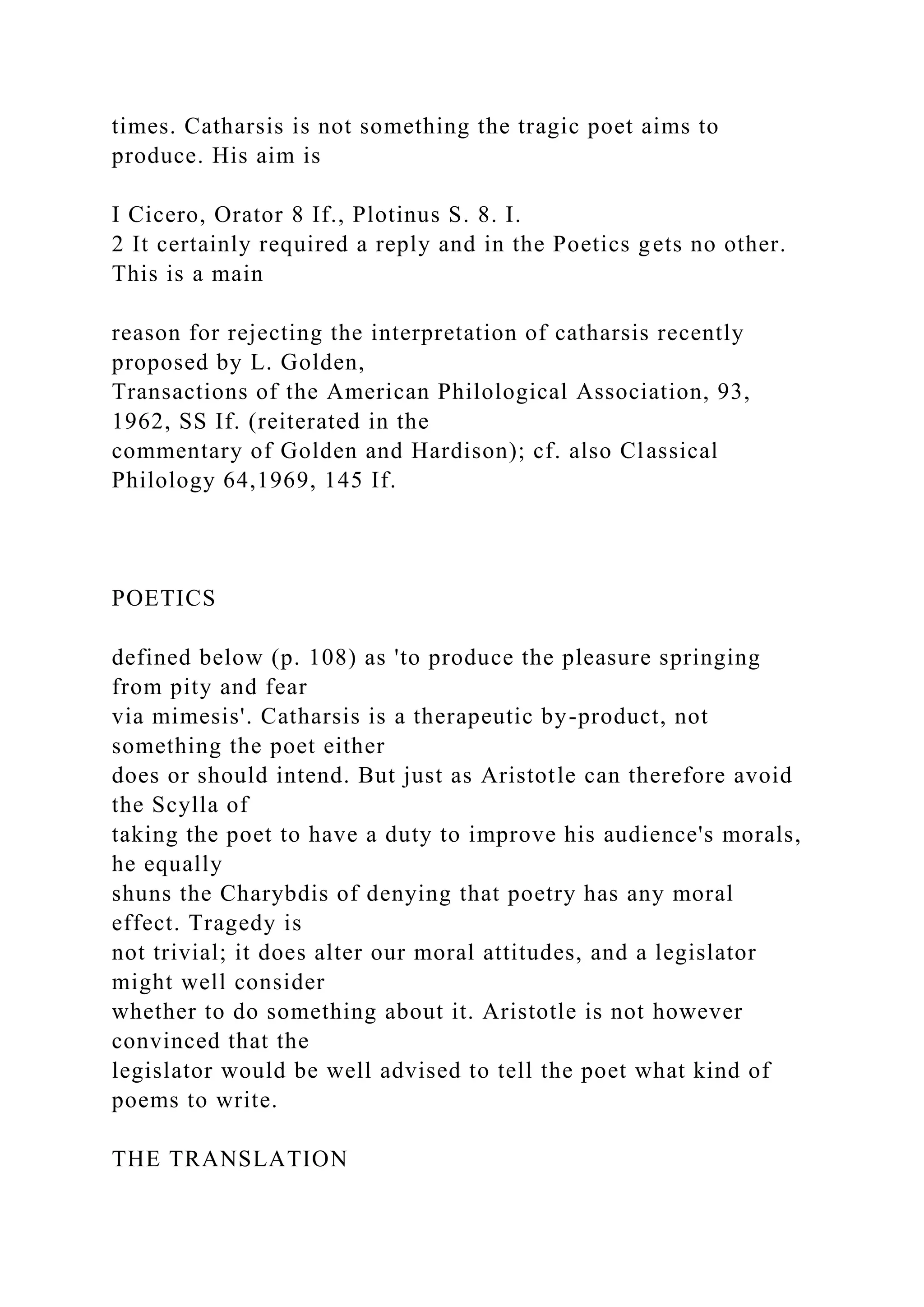
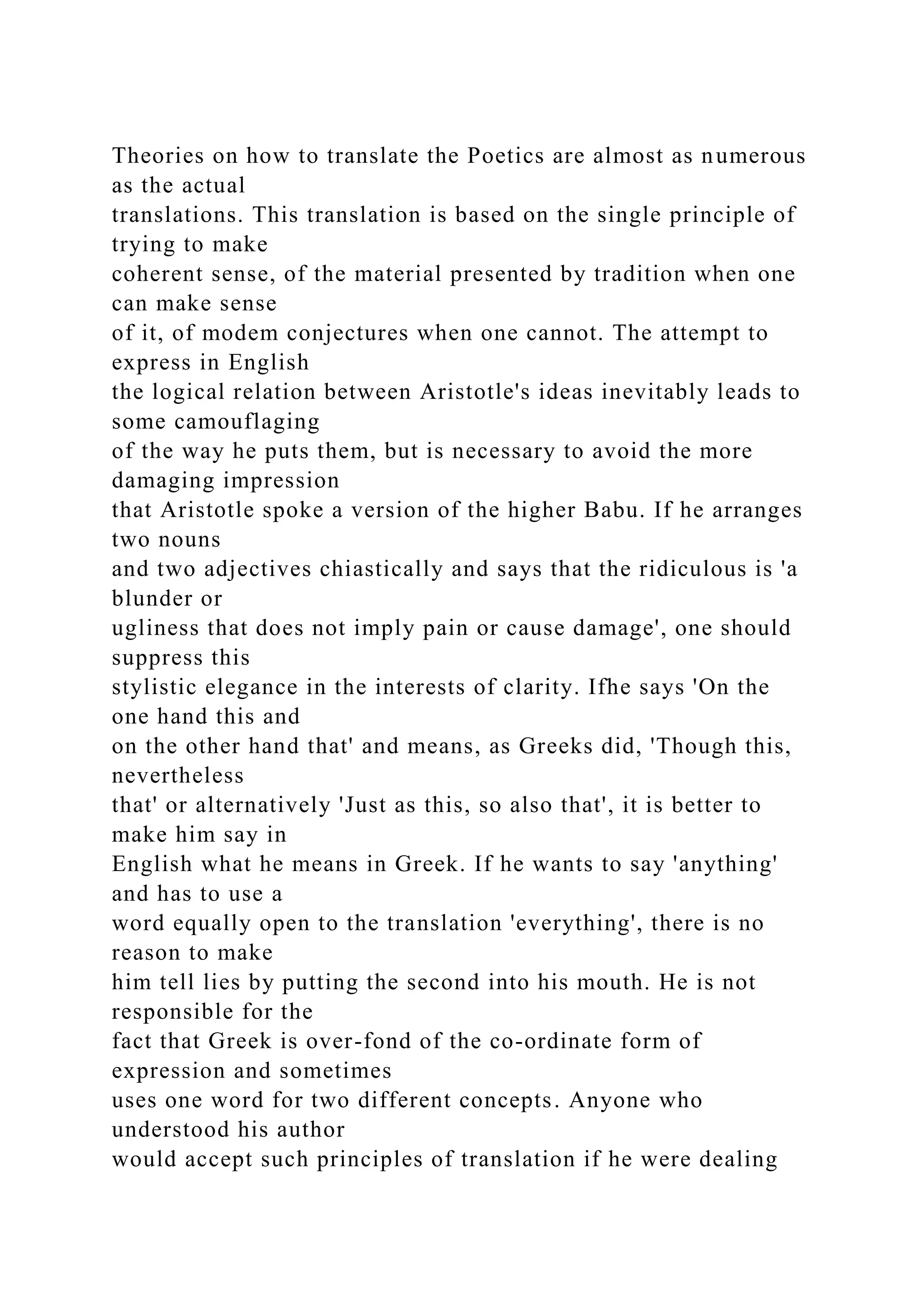
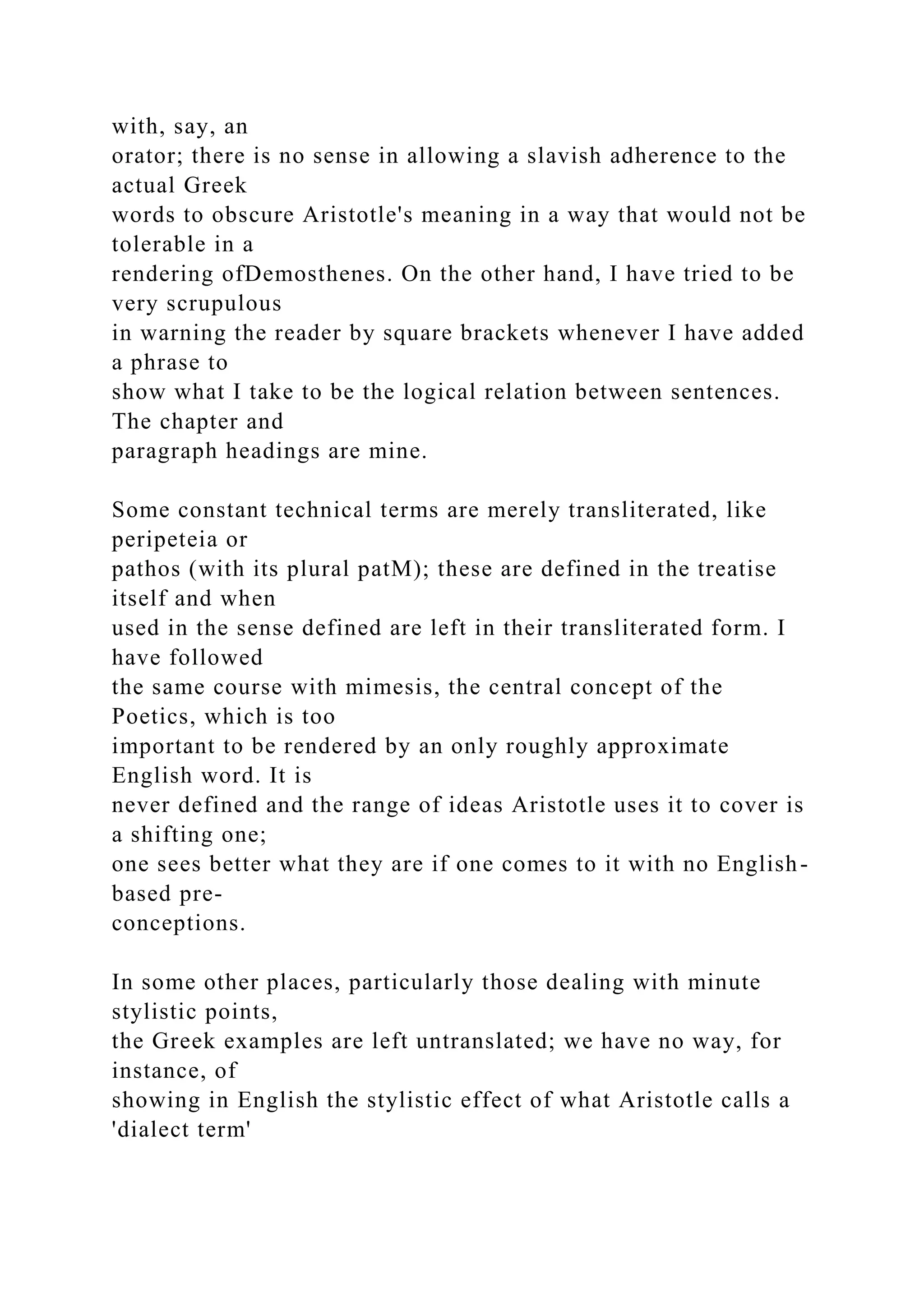
![90 ARISTOTLE
(below p. 119). Merely to render it by a stronger, though
current, English word
undervalues the strangeness of the dialect term, while a
scattering of occasional
phrases from Lallans or Mummerset would not be, to English
taste, agreeable.
CHAPTER I
THE PRELIMINARIES TO THE DEFINITION OF TRAGEDY
Contents
1447' The subject I wish us to discuss is poetry itself, its
species with their
1 respective capabilities, the correct way of constructing plots
so that the
work turns out well, the number and nature of the constituent
elements
[of each species], and anything else in the same field of inquiry.
SECTION A. THE DIVISION PER GENUS ET
DIFFERENTIAM
I. The genus we are here concerned with stated!
To follow the natural order and take first things first, epic and
tragic
poetry, comedy and dithyrambic, and most music for the flute or
lyre
are all, generally considered, varieties of mimesis, differing](https://image.slidesharecdn.com/onlyprojectmanagementexpertineedtheanswers-221204163350-5fd2686e/75/Only-Project-Management-Expert-I-need-the-answers-docx-138-2048.jpg)
![from each other
in three respects, the media, the objects, and the mode of
mimesis.
['Media' needs explaining]: in some cases where people,
whether by
technical rules or practised facility, produce various mimeseis
by portraying
things, the media are colours and shapes, while in others the
medium
is the voice;2 similarly in the arts in question, taken
collectively, the media
of mimesis are rhythm, speech, and harmony, either separately
or in
combination.
2. The genus divided
(a) ACCORDING TO DIFFERENCES OF MEDIA
(i) Those which do not use speech
For example, harmony and rhythm are the media of instrumental
music,3 rhythm alone without harmony the medium of dancing,
as dancers
I The genus that Aristotle proceeds to divide is not, as one
sometimes finds stated,
mimesis in general, but a variety of mimesis defined by the
media, 'mimesis in speech,
harmony, and rhythm, separately or in combination'.
2 The reference is to sounds, not necessarily articulate, made by
the human vocal
organs. Direct mimicry of the bird-call kind seems to be what
Aristotle has in mind.](https://image.slidesharecdn.com/onlyprojectmanagementexpertineedtheanswers-221204163350-5fd2686e/75/Only-Project-Management-Expert-I-need-the-answers-docx-139-2048.jpg)
![3 Literally 'flute-playing and lyre-playing and any other arts
that have the same
capability, for example, playing the Pan-pipe'.
POETICS 91
represent characters, passions, I and actions by rhythmic
movement and
postures.
(ii) Those which do use speech (i.e. the poetic kinds)2
The art that uses only speech by itself or verse [that is,
rhythmical
speech], the verses being homogeneous or of different kinds,
has as yet 1447b
no name;3 for we have no common term to apply to the [prose]
mimes of
Sophron and Xenarchus and to the Socratic dialogues, nor any
common
term for mimeseis produced in verse, whether iambic trimeters
or elegiacs
or some other such metre. True, people do attach the making
[that is the
root of the word poietes] to the name of a metre and speak of
elegiac-
makers and hexameter-makers; they think, no doubt, that
'makers' is
applied to poets not because they make mimeseis but as a
general term
meaning 'verse-makers', since they call 'poets' or 'makers' even
those
who publish a medical or scientific theory in verse. But [this is
open to](https://image.slidesharecdn.com/onlyprojectmanagementexpertineedtheanswers-221204163350-5fd2686e/75/Only-Project-Management-Expert-I-need-the-answers-docx-140-2048.jpg)
![two objections]: (I) as Homer and Empedocles have nothing in
common
except their metre, the latter had better be called a scientific
writer, not
a poet, if we are to use 'poet' of the former; (2) similarly, if we
suppose
a man to make his mimesis in a medley of all metres, as
Chaeremon in
fact did in the Centaur, a recitation-piece in all the various
metres, we
still have to call him a poet, a 'maker'.4
So much for the simpler kinds. Some use all the media
mentioned,
rhythm, song, and verse: 5 these are dithyrambic and nomic
poetry,
I Others interpret this as the opposite of 'actions', i.e. 'things
that happen to people'.
2 The order of the following section suggests that here too
Aristode is using a
not-x, x method of division, considering first the arts that do
not use music and dancing
and next those that do.
l Aristode's complaint seems to be double, that the whole
mimetic art that uses
speech but not music and dancing has no name and that the two
species, prose and verse
composition, have no names. Lobel makes the sense tidier by
conjecturing: 'The art
that uses only speech by itself and that which uses verse •••
have as yet no names.'
4 The point (a sophistical one) seems to be that both on](https://image.slidesharecdn.com/onlyprojectmanagementexpertineedtheanswers-221204163350-5fd2686e/75/Only-Project-Management-Expert-I-need-the-answers-docx-141-2048.jpg)
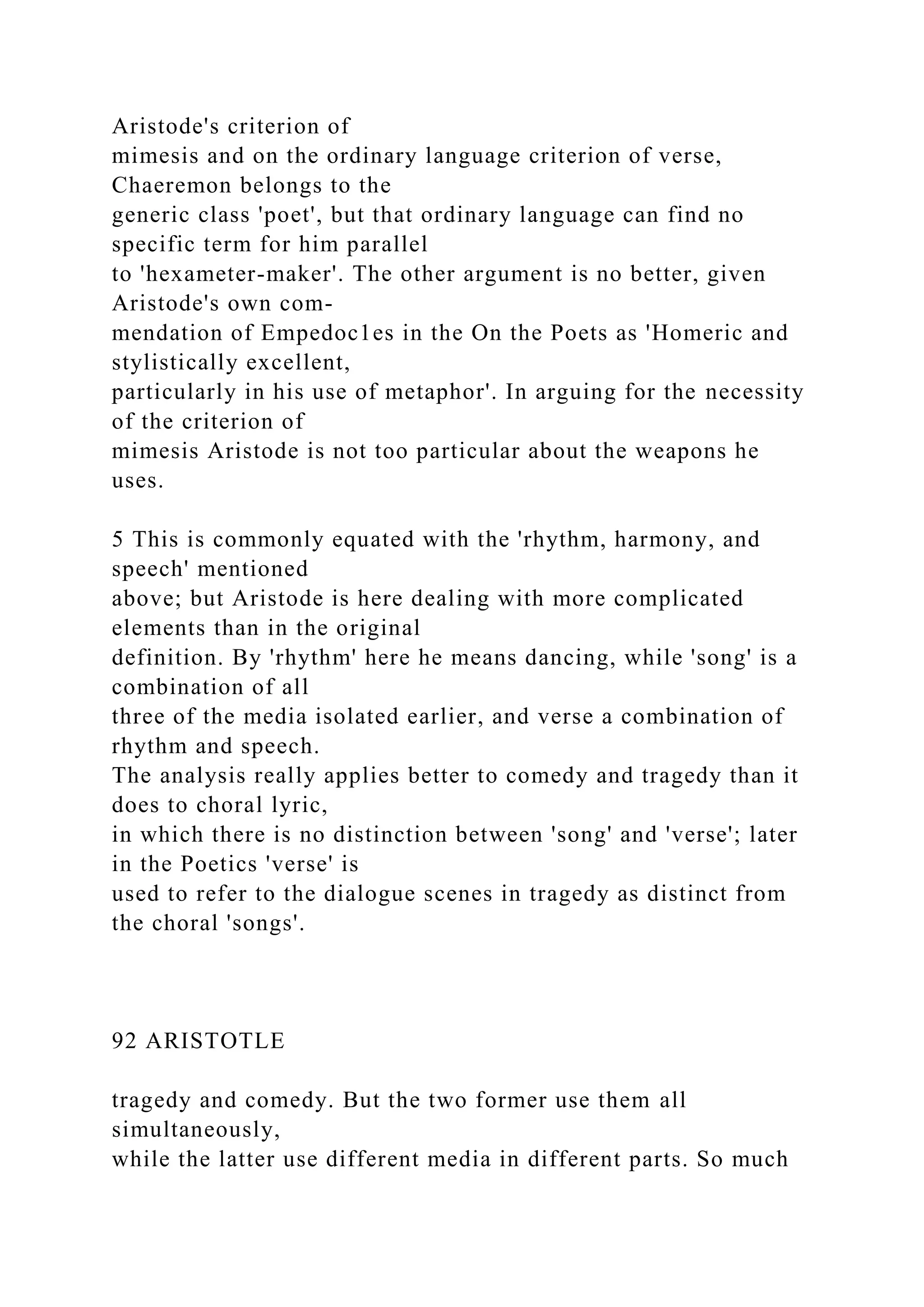
![for the
differentiae derived from the media.
(b) ACCORDING TO DIFFERENCES OF OBJECTS
1448a The objects of this mimesis are people doing things/ and
these people
2 [as represented] must necessarily be either good or bad, this
being,
generally speaking, the only line of divergence between
characters, since
differences of character just are differences in goodness and
badness, or
else they must be better than are found in the world or worse or
just the
same, as they are represented by the painters, Polygnotus
portraying
them as better, Pauson as worse, and Dionysius as they are;z
clearly
therefore each of the varieties of mimesis in question will
exhibit these
differences, and one will be distinguishable from another in
virtue of
presenting things as different in this way.
These dissimilarities can in fact be found in dancing and
instrumental
music, and in the arts using speech and unaccompanied verse:
Homer
for instance represents people as better and Cleophon as they
are, while
Hegemon of Thasos, the inventor of parodies, and Nicochares,
the author
of the Deiliad, represent them as worse; the same is true of
dithyrambs
and nomes, where the mimesis can differ as ... ,3 and as that of](https://image.slidesharecdn.com/onlyprojectmanagementexpertineedtheanswers-221204163350-5fd2686e/75/Only-Project-Management-Expert-I-need-the-answers-docx-143-2048.jpg)
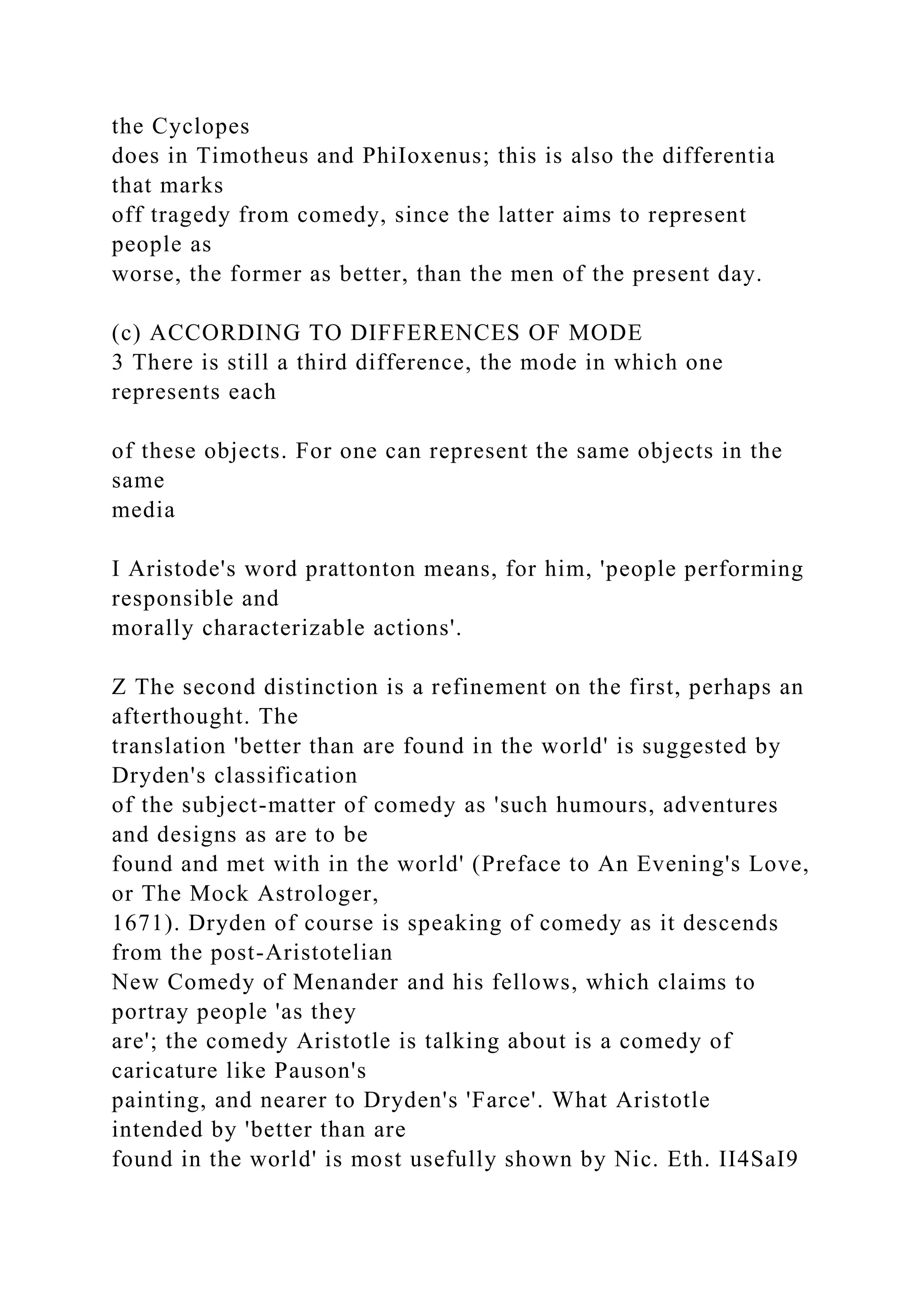
![if.: 'An excellence
beyond the human scale, something heroic and divine, which
may be illustrated by the
phrase Homer makes Priam use of Hector to express his signal
excellence, "He seemed
the son of a god, not of a mortal man".' I owe this reference to
Miss G. M. Matthews.
3 Text defective.
POETICS 93
(i) sometimes in narration and sometimes becoming someone
else, as
Homer does, or
(ii) speaking in one's own person without change, or
(iii) with all the people engaged in the mimesis actually doing
things.!
These three then, media, objects, and mode, are, as I said at the
begin-
ning, the differentiae of poetic mimesis. So, if we use one of
them [to
separate poets into classes], Sophocles will be in the same class
as Homer,
since both represent people as good, and if we use another, he
will be in
the same class as Aristophanes, since they both represent people
as
actively doing things.
Digression on the etymological fancies of the Dorians2](https://image.slidesharecdn.com/onlyprojectmanagementexpertineedtheanswers-221204163350-5fd2686e/75/Only-Project-Management-Expert-I-need-the-answers-docx-145-2048.jpg)
![Some people say that this verb dran, 'to do', is why plays are
called
dramas, because such poets represent people as doing things;
and this
is the ground on which the Dorians claim the invention of both
tragedy
and comedy. Comedy is claimed by the Megarians, both by
those of
mainland Greece, who say it arose when their democracy was
established,3
and by those of [Megara Hyblaea in] Sicily, the home of
Epicharmus,
who lived well before Chionides and Magnes.4 Tragedy is
claimed by some
of the Peloponnesians. In each case they found their claim on
etymology:
they say that while they call outlying villages komai, the
Athenians call
them demoi, and they take 'comedy' to be derived not from
komazein, 'to
revel', but from the fact that the comic actors wandered among
the
villages because driven in contempt from the city; and they say
that they 1448b
use the word dran of doing, while the Athenians say prattein.
Conclusion
So much for the number and nature of the differentiae of poetic
mimesis.
I The Greek is perhaps defective and also admits the
interpretation '(i) sometimes in
narration, either becoming someone else, as Homer does, or
speaking in one's own
person without change, or (ii) with all the people .. .'. The](https://image.slidesharecdn.com/onlyprojectmanagementexpertineedtheanswers-221204163350-5fd2686e/75/Only-Project-Management-Expert-I-need-the-answers-docx-146-2048.jpg)
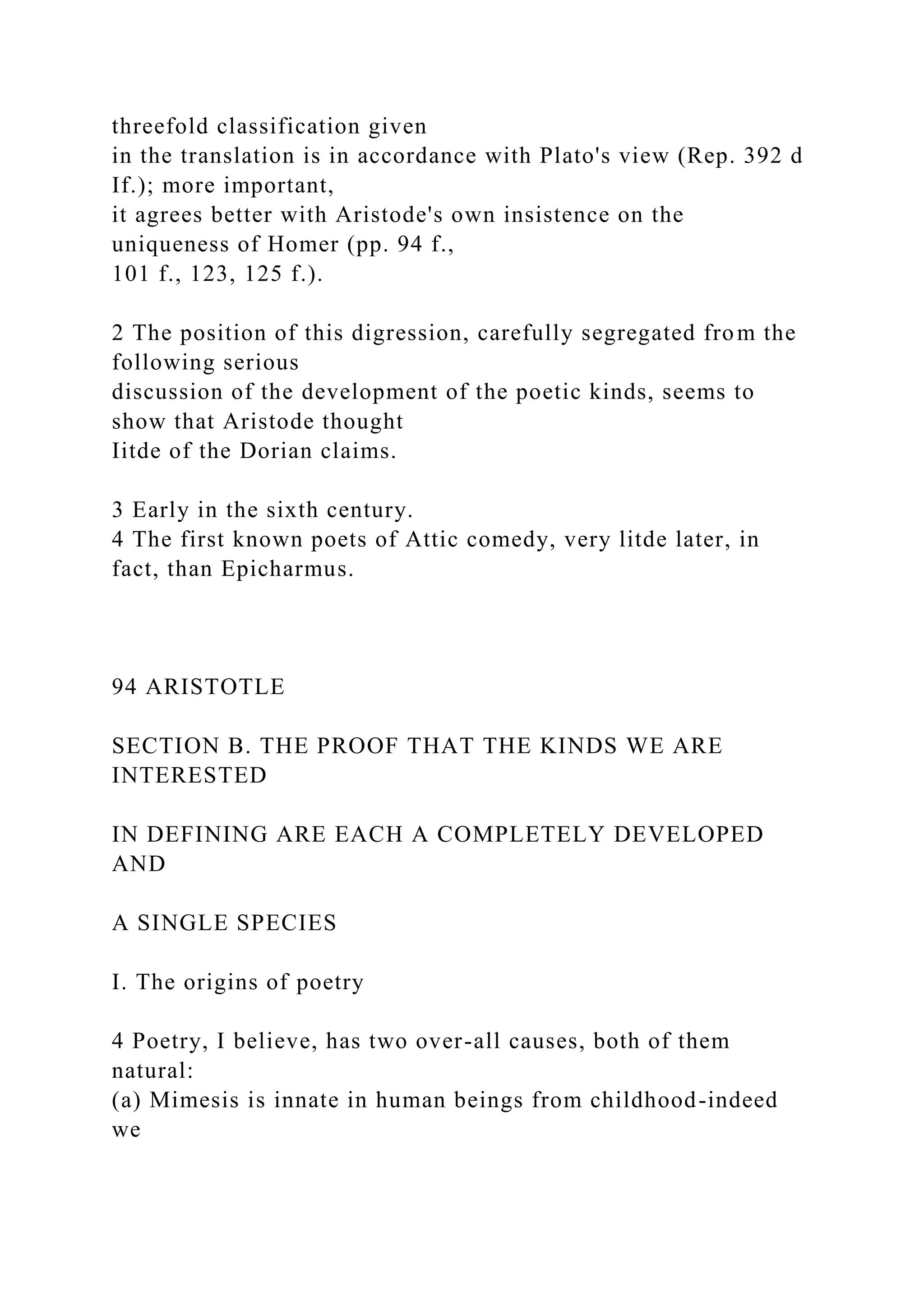
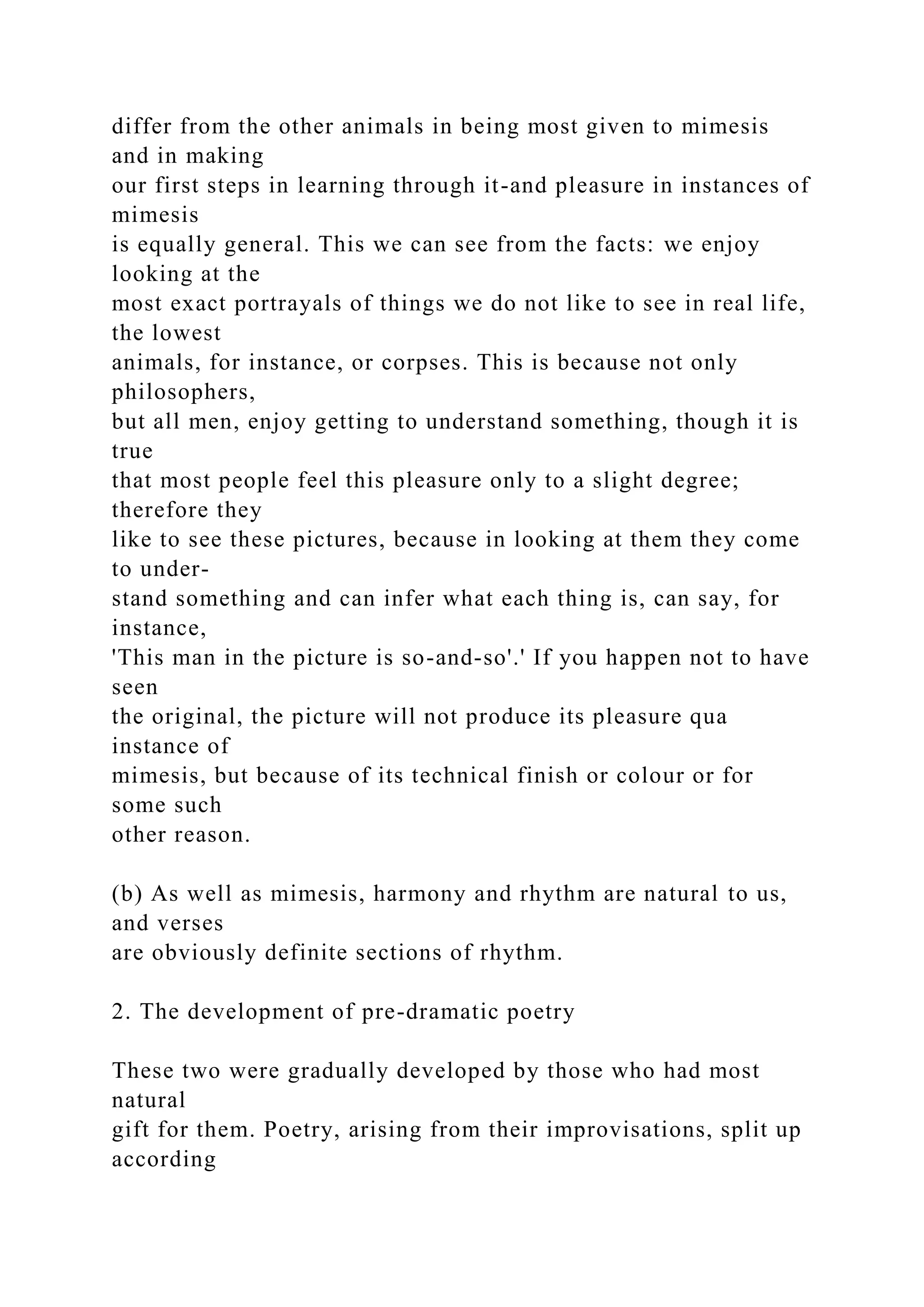
![to the authors' divergent characters: the more dignified
represented noble
actions and those of no ble men, the less serious those of low-
class people;
the one group produced at first invectives, the others songs
praising gods
and men. We cannot name any author of a poem of the former
kind before
Homer's time, though there were probably many of them, but
from
Homer on we do find such poems-his own Margites, for
instance, and
others of the kind. These introduced the metre that suited them,
stilI
called 'iambic' (from iambizein, 'to lampoon'), because it was
the metre of
their lampoons on each other. So some of the ancients produced
heroic
[i.e. hexameter] verse and the others iambics.
As well as being the most creative poet of high actions,2 his
mimeseis
I The pleasure of understanding and realizing something is for
Aristotle basic to
aesthetic pleasure; cf. the fuller discussion in Rhet. I. I37Ia2I
ff. (below, p. I34) and
pp. 86 f.
2 The translation is borrowed from Milton (P.R. 4. 266); the
word is translated 'good'
POETICS 95](https://image.slidesharecdn.com/onlyprojectmanagementexpertineedtheanswers-221204163350-5fd2686e/75/Only-Project-Management-Expert-I-need-the-answers-docx-149-2048.jpg)
![in this kind being the only ones that are not only well done but
essentially
dramatic, Homer also first adumbrated the form of comedy by
dramatizing
the ridiculous instead of producing invectives; his Margites
bears the
same relation to comedy as the Iliad and Odyssey do to tragedy.'
1449a
On the subsequent appearance of tragedy and comedy, those
whose
natural bent made lampooners of them turned to comedy, while
those
naturally inclined to epic became tragedians, because the new
forms were
more ample and more highly esteemed than the old.
3. The development of tragedy
To inquire whether even tragedy [as distinct from epic] is
sufficiently
elaborated in its qualitative elements, judging it in itself and in
its relation
to the audience, is another story.2 At any rate, after originating
in the
improvisations of the leaders of the dithyramb, as comedy did in
those
of the leaders of the phallic songs still customary in many.
Greek cities,
tragedy gradually grew to maturity, as people developed the
capacities
they kept discovering in it, and after many changes it stopped
altering,
since it had attained its full growth. The main changes were:
(i) in the number of actors, raised from one to two by](https://image.slidesharecdn.com/onlyprojectmanagementexpertineedtheanswers-221204163350-5fd2686e/75/Only-Project-Management-Expert-I-need-the-answers-docx-150-2048.jpg)
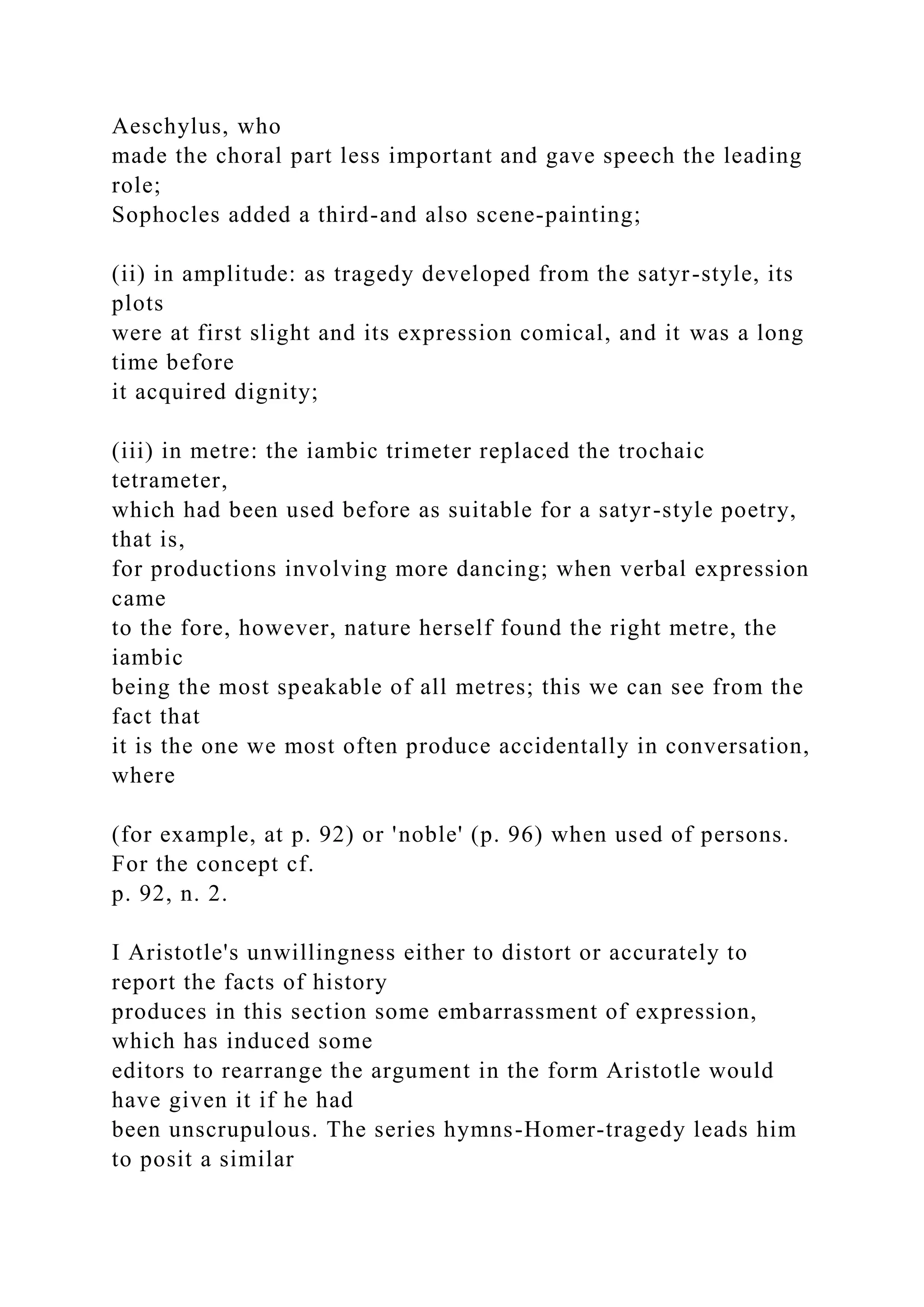
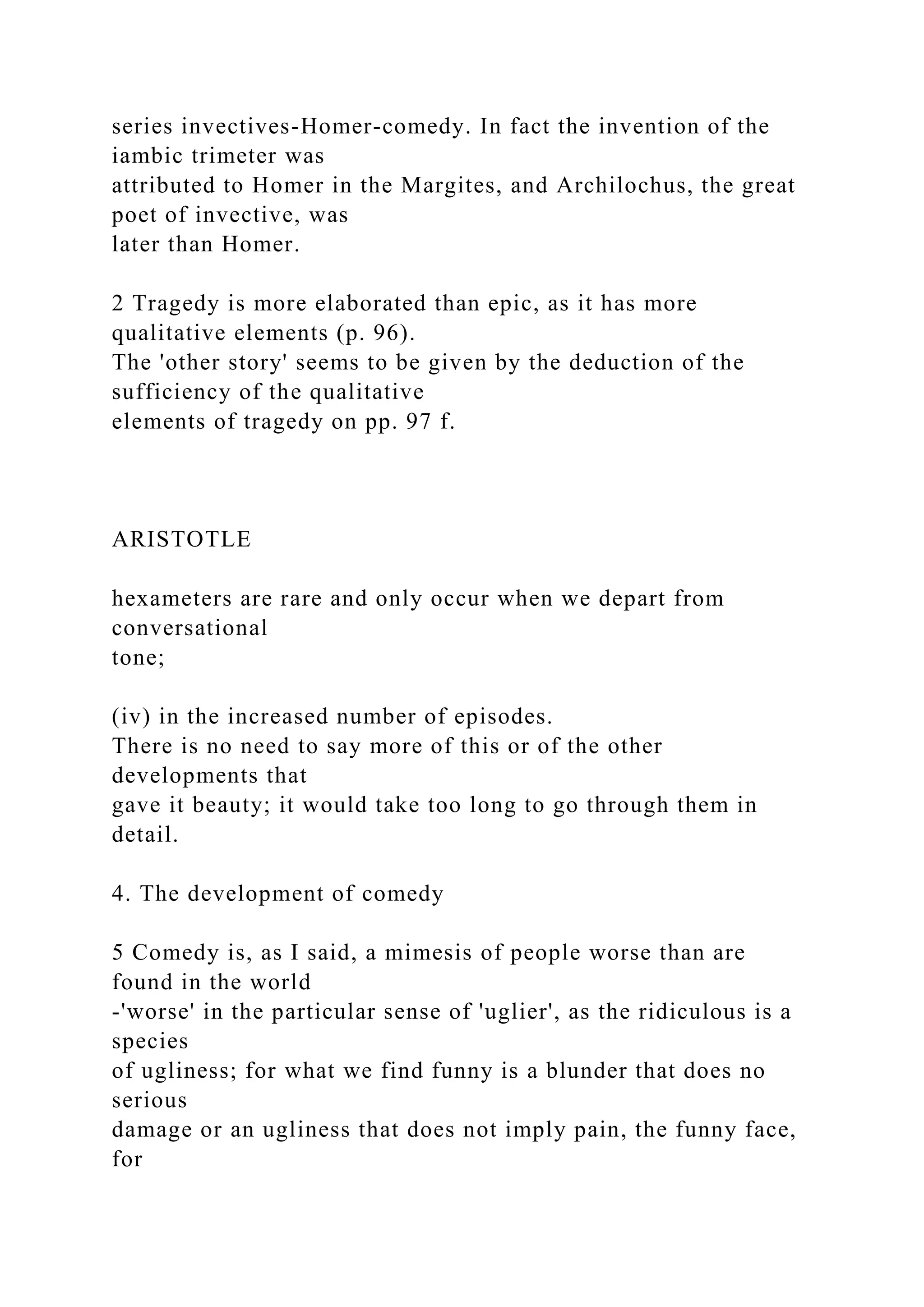
![instance, being one that is ugly and distorted, but not with pain.
While
the changes and the authors of the changes in tragedy are
known, the
I449b development of comedy is obscure because it was not at
first taken
seriously; the chorus, for instance, were for a long time
volunteers, and
not provided officially by the archon. The form was already
partly fixed
before the first recorded comic poets, and so we do not know
who intro-
duced masks, prologues, numerous actors, and so on; the
making of
plots, however, certainly came first from Sicily, Crates being
the first
Athenian to drop the lampoon form and construct generalized
stories or
plots.
SECTION C. APOLOGY FOR POSTPONING THE
TREATMENT OF EPIC,
IN DEFIANCE OF CHRONOLOGY
Epic, in so far as it is a sizeable! mimesis in verse of noble
personages,
goes along with tragedy, but differs from it in using metre alone
[without
music] and in being in narrative form; it also differs in length,
tragedy
attempting so far as possible to keep to the limit of one
revolution of
the sun or not much more or less, while epic is unfixed in time.
This](https://image.slidesharecdn.com/onlyprojectmanagementexpertineedtheanswers-221204163350-5fd2686e/75/Only-Project-Management-Expert-I-need-the-answers-docx-153-2048.jpg)
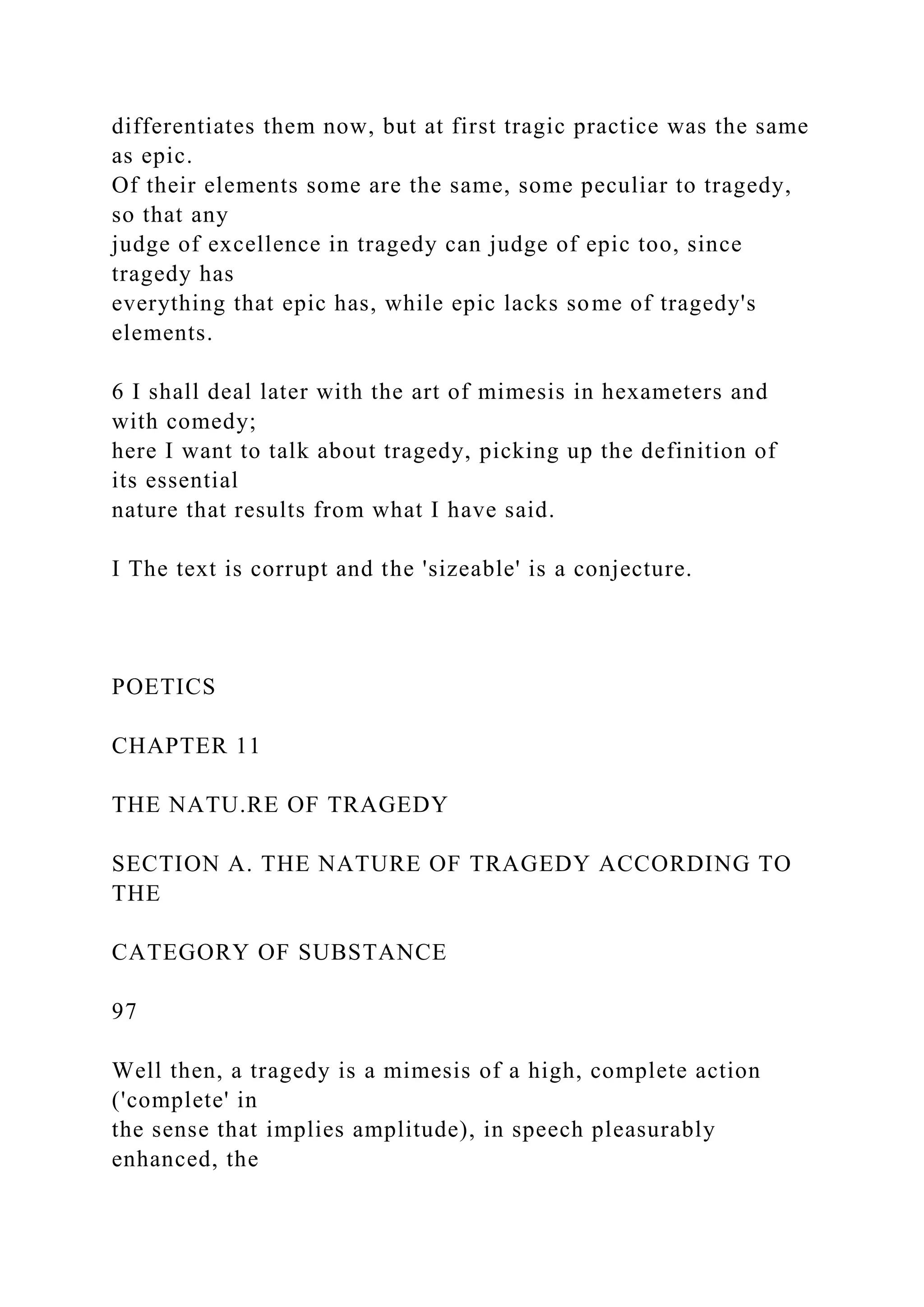
![different kinds [of enhancement] occurring in separate sections,
in
dramatic, not narrative form, effecting through pity and fear the
catharsis'
of such emotions. By 'speech pleasurably enhanced' I mean that
involving
rhythm and harmony or song, by 'the different kinds separately'
that
some parts are in verse alone and others in song.
SECTION B. THE NATURE OF TRAGEDY ACCORDING TO
THE
CATEGORY OF QUALITY
1. The deduction of the qualitative elements of tragedy
One can deduce as necessary elements of tragedy Ca) [from the
mode] the
designing of the spectacle, since the mimesis is produced by
people doing
things; (b) [from the media] song-writing and verbal expression,
the
media of tragic mimesis; by 'verbal expression' I mean the
composition of
the verse-parts, 2 while the meaning of 'song-writing' is obvious
to any-
body. [Others can be inferred from (c) the objects of the
mimesis:] A
tragedy is a mimesis of an action; action implies people
engaged in it;
these people must have some definite moral and intellectual
qualities,
since it is through a man's qualities that we characterize his
actions,3 1450'
and it is of course with reference to their actions that men are](https://image.slidesharecdn.com/onlyprojectmanagementexpertineedtheanswers-221204163350-5fd2686e/75/Only-Project-Management-Expert-I-need-the-answers-docx-155-2048.jpg)
![said to
succeed or fail. We therefore have (i) the mimesis of the action,
the plot,
by which I mean the ordering of the particular actions; (ii) [the
mimesis of]
the moral characters of the personages, namely that [in the play]
which
makes us say that the agents have certain moral qualities; (iii)
[the
mimesis of] their intellect, namely those parts [of the play] in
which they
demonstrate something in speech or deliver themselves of some
general
maxim. 4
I Cf. below, pp. 132 ff. 2 i.e. of the dialogue parts.
3 The manuscripts add 'to explain actions we refer to the moral
character and
intellect of the person doing them'; this is sensible enough in
itself, but it disrupts the
sentence and is clearly an intrusive gloss to explain the
preceding clause.
• Throughout the rest of the treatise 'mimesis of character' and
'mimesis of intellect'
are used without square brackets to translate ethos and dianoia
in this technical sense.
8143591 H
ARISTOTLE
So tragedy as a whole will necessarily have six elements, the](https://image.slidesharecdn.com/onlyprojectmanagementexpertineedtheanswers-221204163350-5fd2686e/75/Only-Project-Management-Expert-I-need-the-answers-docx-156-2048.jpg)
![possession
of which makes tragedy qualitatively distinct [from other
literary kinds]:
they are plot, the mimesis of character, verbal expression, the
mimesis of
intellect, spectacle, and song-writing. The media of mimesis are
two, the
mode one, the objects three, and there are no others. Not a few
tragedians
do in fact use these as qualitative elements; indeed virtually I
every play
has spectacle, the mimesis of character, plot, verbal expression,
song, and
the mimesis of intellect.
2. The qualitattve elements ranged in order of importance
(a) THE ARGUMENTS FOR THE PRE-EMINENCE OF PLOT
The most important of these elements is the arrangement of the
particular
actions [as the following arguments show]:
(a) A tragedy is [by definition] a mimesis not of people but of
their
actions and life. Both success and ill success are success and ill
success
in action-in other words the end and aim of human life2 is doing
some-
thing, not just being a certain sort of person; and though we
consider
people's characters in deciding what sort of persons they are, we
call
them successful or unsuccessful only with reference to their
actions. 3
So far therefore from the persons in a play acting as they do in](https://image.slidesharecdn.com/onlyprojectmanagementexpertineedtheanswers-221204163350-5fd2686e/75/Only-Project-Management-Expert-I-need-the-answers-docx-157-2048.jpg)
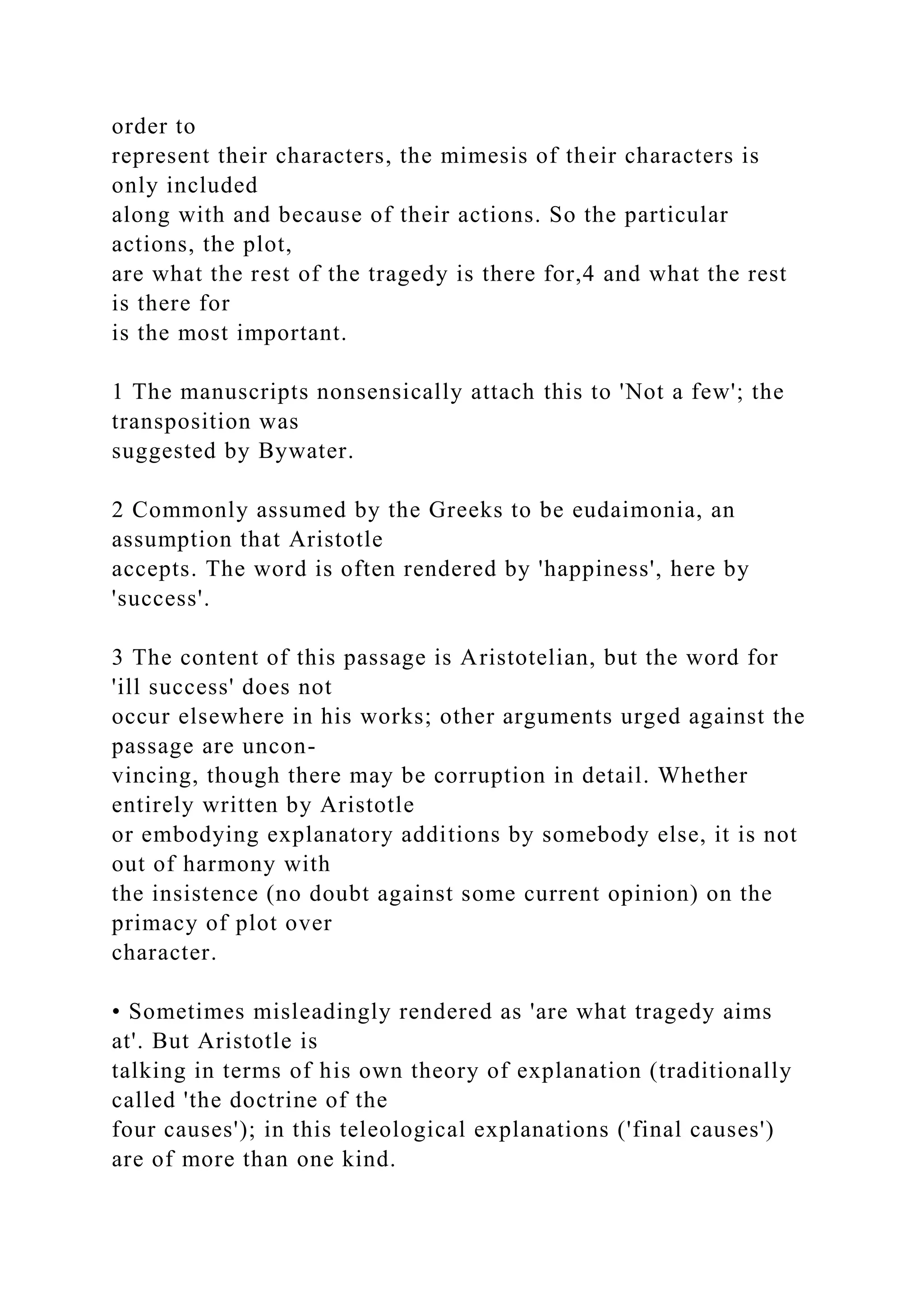
![Though one sort of 'final cause' is the answer to the question
'''Vhat is the purpose of
x 1', another is the answer to the question 'For the sake of what
in x is the rest of x
there?'; to take a simple example, one 'final cause' of a knife is
cutting, and another is
the cutting edge. The argument here plainly shows that plot is
the 'final cause' of tragedy
in the second sense, not in the first. The purpose of tragedy is
stated on p. 108, 'the
poet's job is to produce the pleasure springing from pity and
fear via mimesis'.
POETICS 99
Cb) [By definition] a work could not be a tragedy if there were
no
action. But there could be a tragedy without mimesis of
character,
and the tragedies of most of the modems are in fact deficient in
it; the
same is true of many other poets, and of painters for that matter,
of
Zeuxis, for instance, in comparison with Polygnotus: the latter
is good
at depicting character, while Zeuxis' painting has no mimesis of
character
to speak of.
(c) If you put down one after another speeches that depicted
character,
finely expressed and brilliant in the mImesis of intellect, that
would not
do the job that, by definition, tragedy does do, while a tragedy](https://image.slidesharecdn.com/onlyprojectmanagementexpertineedtheanswers-221204163350-5fd2686e/75/Only-Project-Management-Expert-I-need-the-answers-docx-159-2048.jpg)
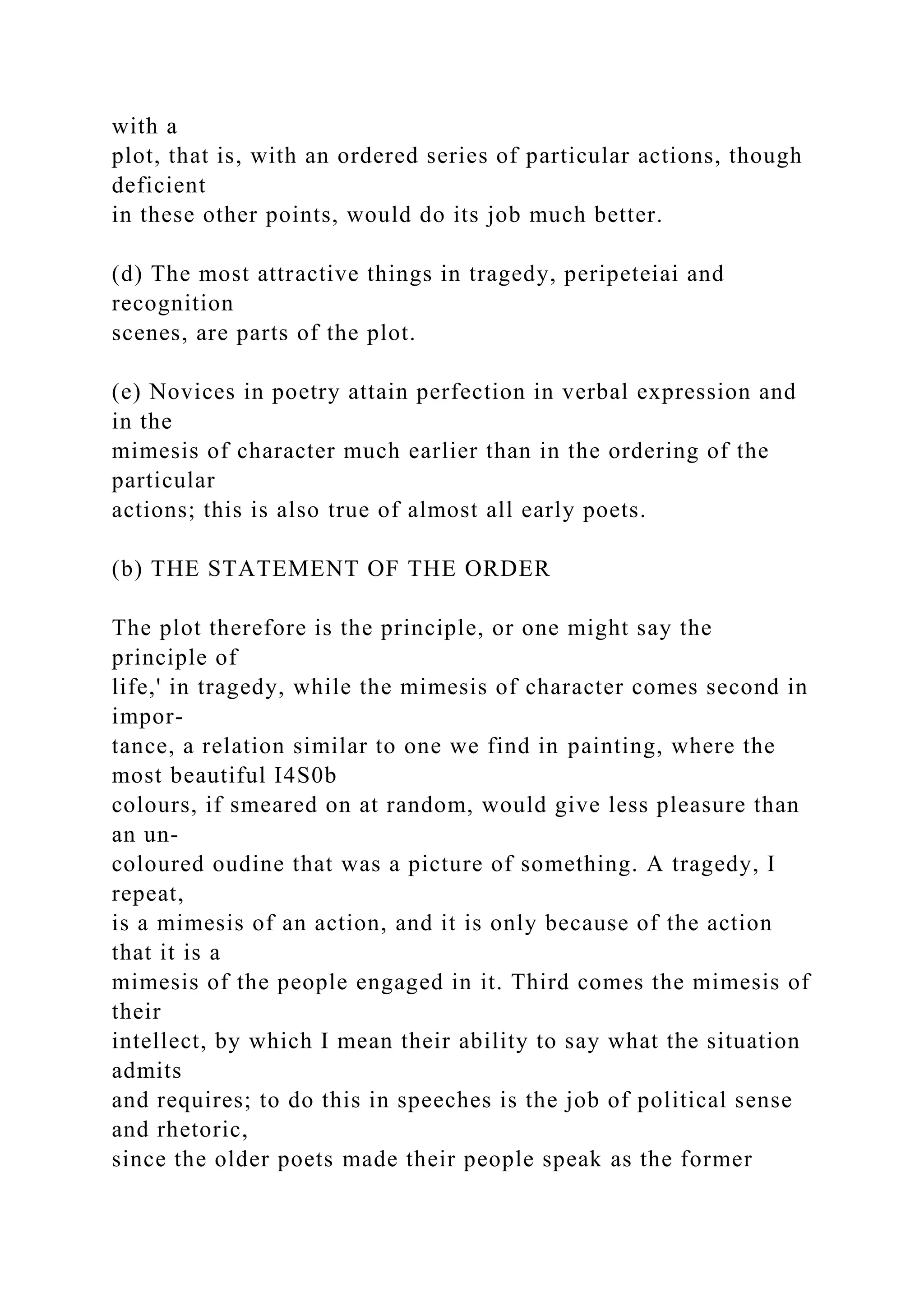
![directs, while
the modems make them observe the rules of rhetoric. Of these
two, the
mimesis of character is that [in the play] which makes plain the
nature of
the moral choices the personages make,2 so that those speeches
in which
there is absolutely nothing that the speaker chooses and avoids
involve
no mimesis of character. By 'mimesis of intellect' I mean those
passages in
which they prove that something is or is not the case or deliver
themselves
I The 'principle of life' renders psyche ('sou!'), which stands to
the living body in the
same relation as plot to tragedy; it is 'what the rest is there for'
as in argument (a), and
it is what the living body essentially is as in argument (b). In
traditional language it is
both a 'final cause' and the 'formal cause'. a. De Anima 4ISbSff.
2 After this the manuscripts add 'in cases in which it is not clear
whether (?) he chooses
or avoids', a corrupt anticipation of the following clause.
100 ARISTOTLE
of some general statement.' Fourth comes the expression of the
spoken
parts, by which I mean, as I said before, the expression of
thought in
words; the meaning is the same whether verse or prose is in
question.](https://image.slidesharecdn.com/onlyprojectmanagementexpertineedtheanswers-221204163350-5fd2686e/75/Only-Project-Management-Expert-I-need-the-answers-docx-161-2048.jpg)
![Of the others, which are there to give pleasure, song-writing is
the most
important, while spectacle, though attractive, has least to do
with art,
with the art of poetry, that is; for a work is potentially a
tragedy2 even
without public performance and players, and the art of the
stage-designer
contributes more to the perfection of spectacle than the poet's
does.
3. Closer analysis of plop
(a) THE ESSENTIAL CHARACTERISTICS OF A PLOT, WITH
REFERENCE
TO ITS DEFINITION AS THE MIMESIS OF A WHOLE
ACTION4
(i) The first implication of wholeness: order
7 Now that these definitions are out of the way, I want to
consider what the
arrangement of the particular actions should be like, since that
is the
prime and most important element of tragedy.
Now, we have settled that a tragedy is a mimesis of a complete,
that is,
of a whole action, 'whole' here implying some amplitude (there
can be a
whole without amplitude).
By 'whole' I mean 'with a beginning, a middle, and an end'. By
'beginning' [in this context] I mean 'that which is not
necessarily the
consequent of something else, but has some state or happening](https://image.slidesharecdn.com/onlyprojectmanagementexpertineedtheanswers-221204163350-5fd2686e/75/Only-Project-Management-Expert-I-need-the-answers-docx-162-2048.jpg)
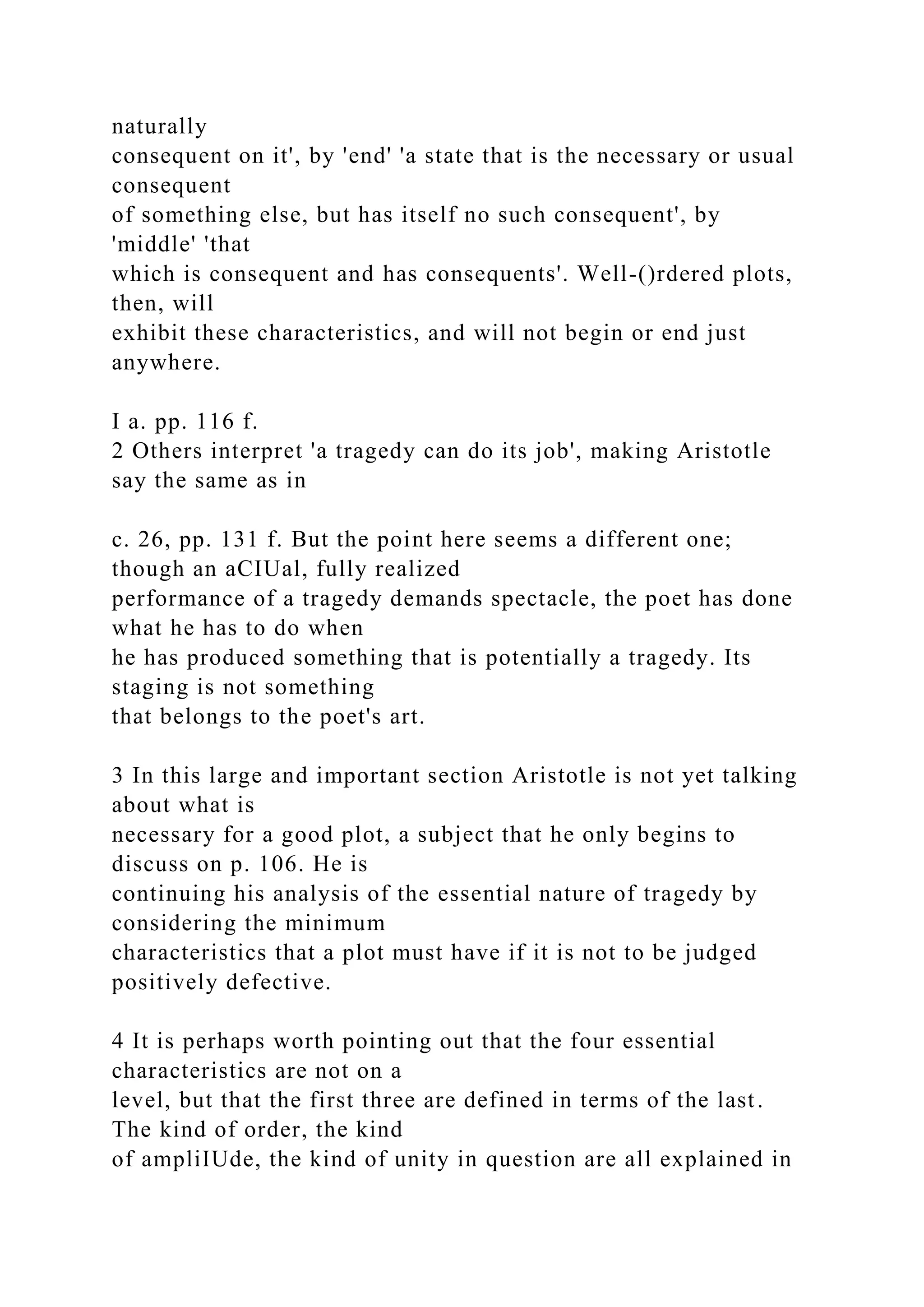
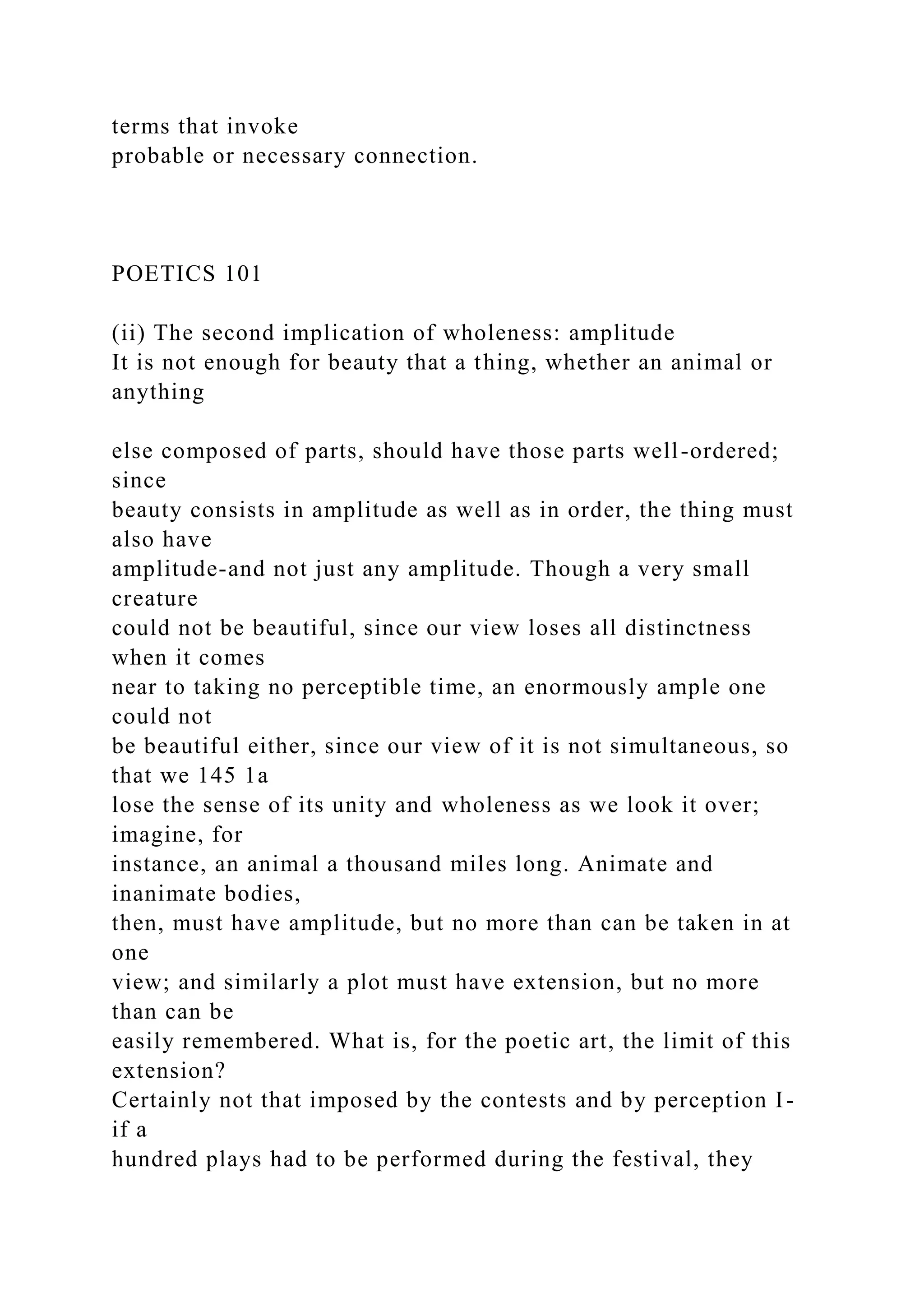
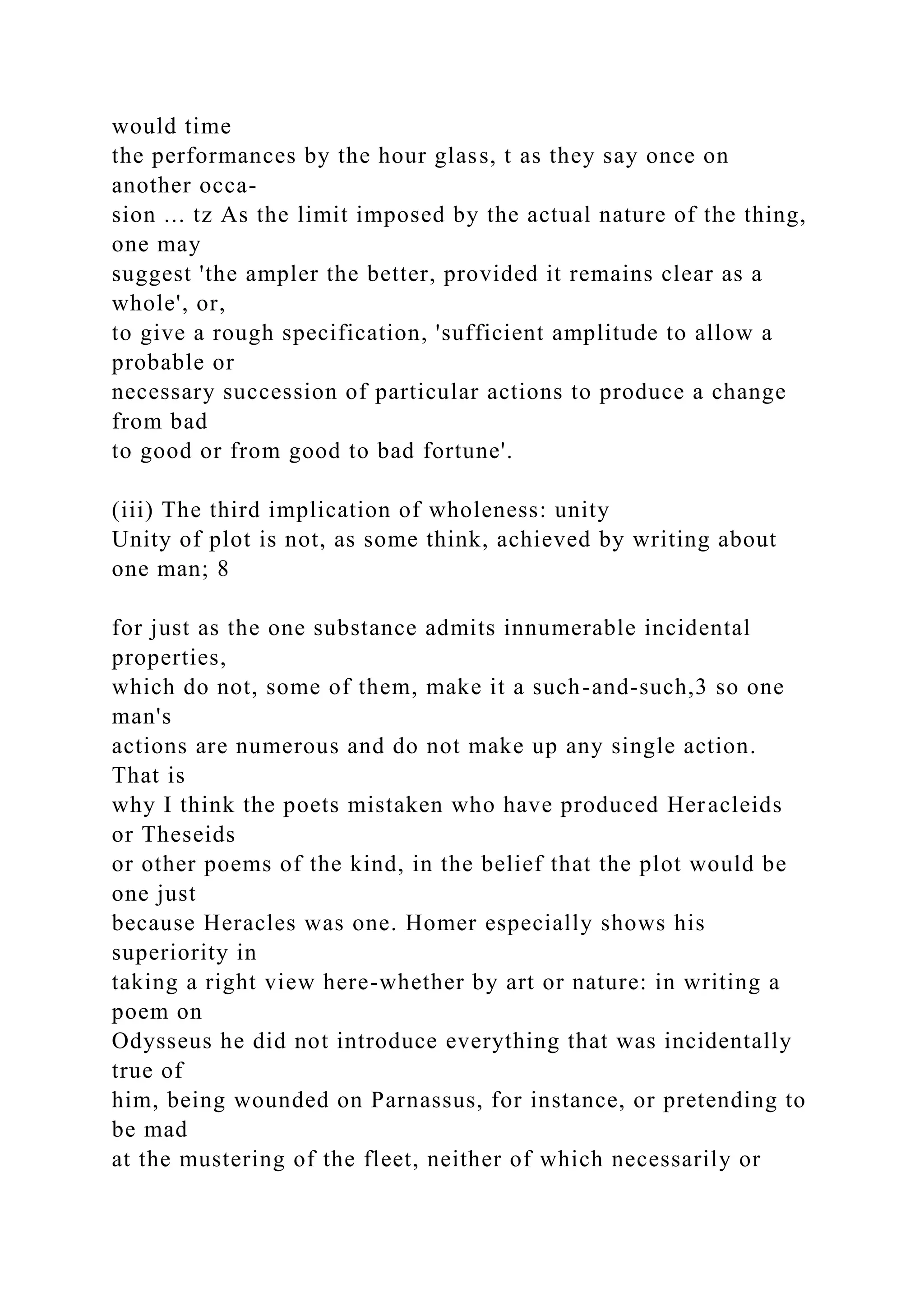
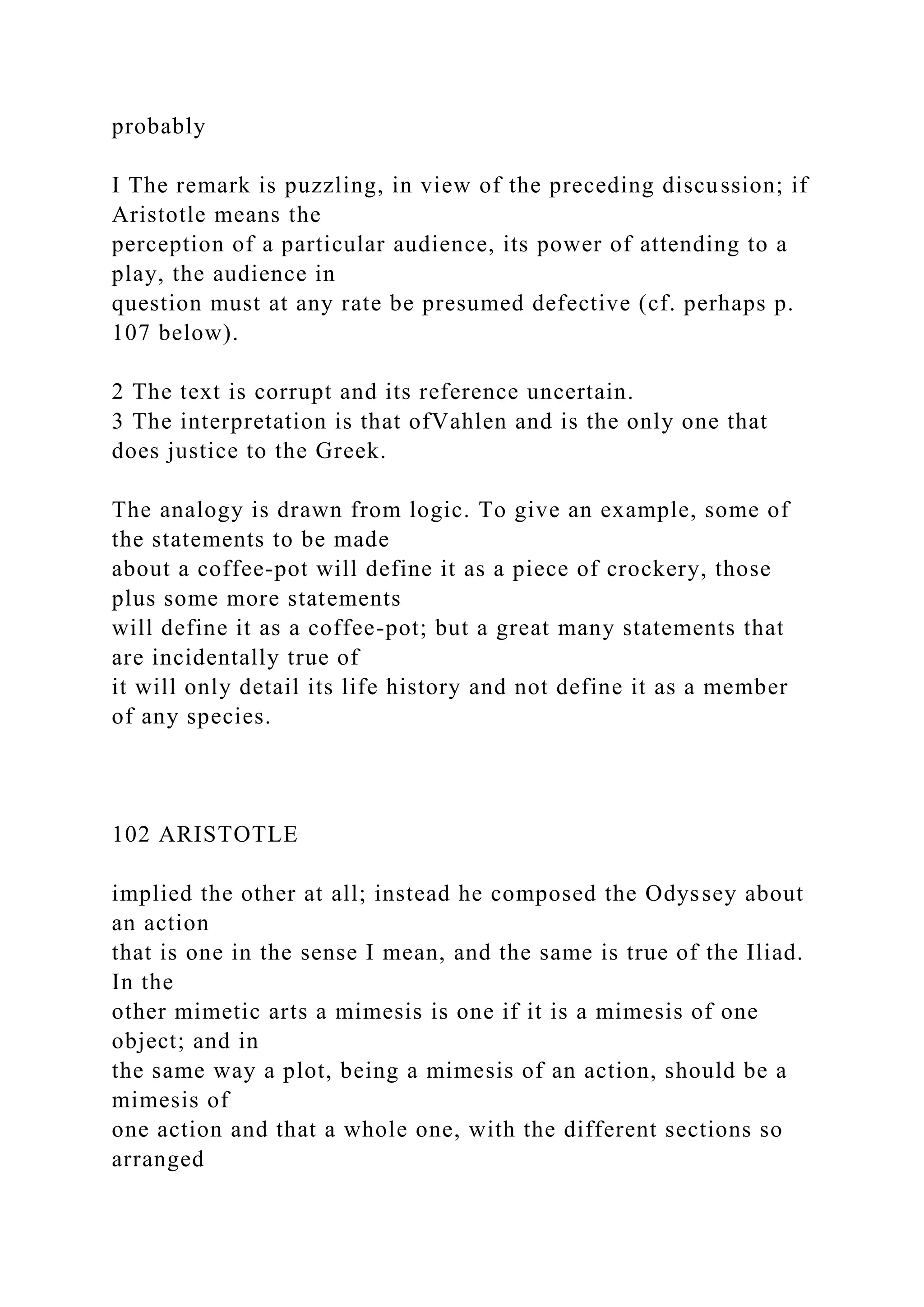
![that the whole is disturbed by the transposition and destroyed
by the
removal of anyone of them; for if it makes no visible difference
whether
a thing is there or not, that thing is no part of the whole.
(iv) The fourth implication of wholeness: probable and
necessary connection
9 What I have said also makes plain that the poet's job is saying
not what
did happen but the sort of thing that would happen, that is, what
can
happen in a strictly probable or necessary sequence. The
difference
145Ib between the historian and the poet is not merely that one
writes verse
and the other prose-one could turn Herodotus' work into verse
and it
would be just as much history as before; the essential difference
is that
the one tells us what happened and the other the sort of thing
that would
happen. That is why poetry is at once more like philosophy and
more
worth while than history, since poetry tends to make general
statements,
while those of history are particular. A 'general statement'
means [in this
context] one that tells us what sort of man would, probably or
necessarily,
say or do what sort of thing, and this is what poetry aims at,
though it
attaches proper names; a particular statement on the other hand
tells us](https://image.slidesharecdn.com/onlyprojectmanagementexpertineedtheanswers-221204163350-5fd2686e/75/Only-Project-Management-Expert-I-need-the-answers-docx-167-2048.jpg)
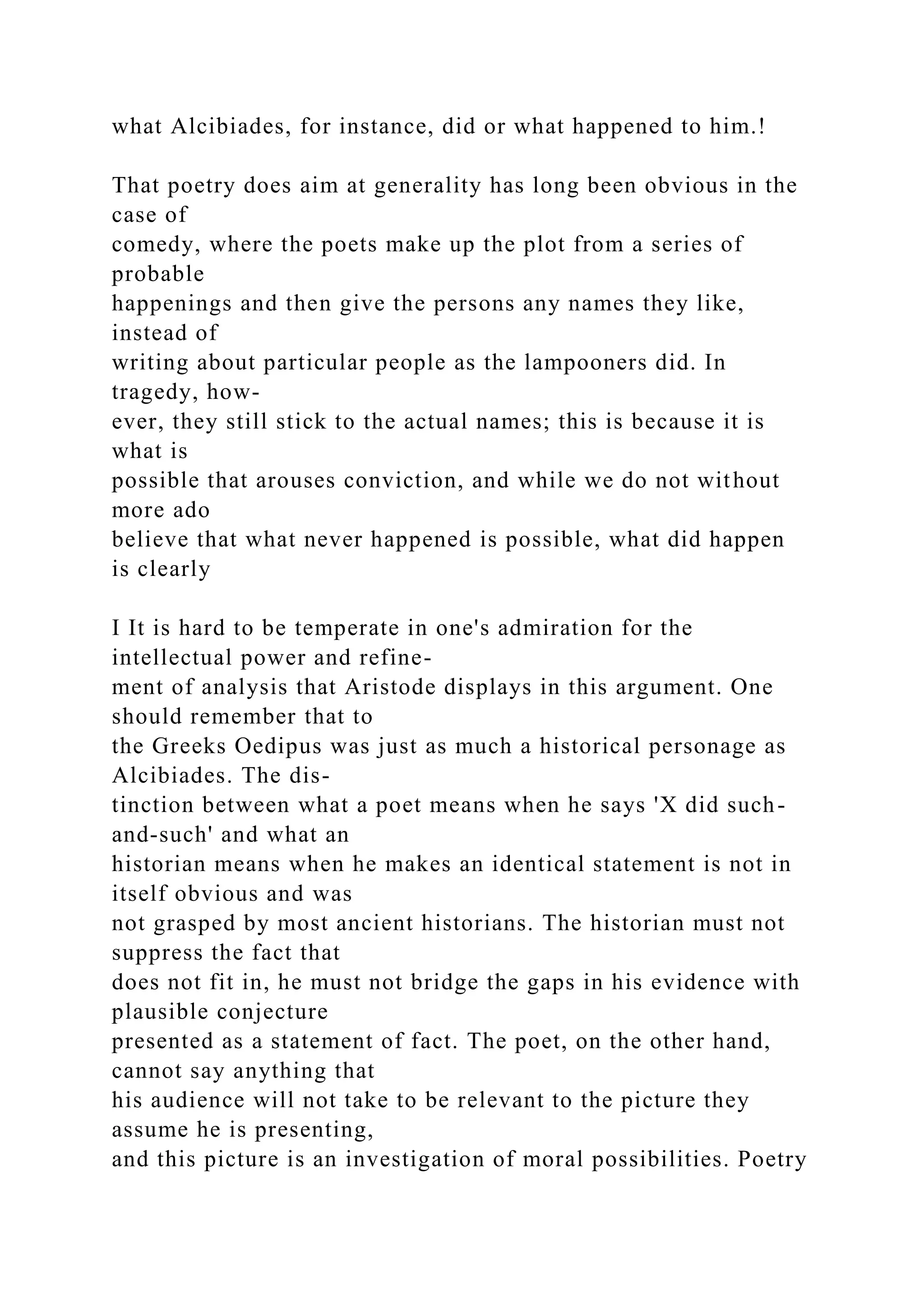
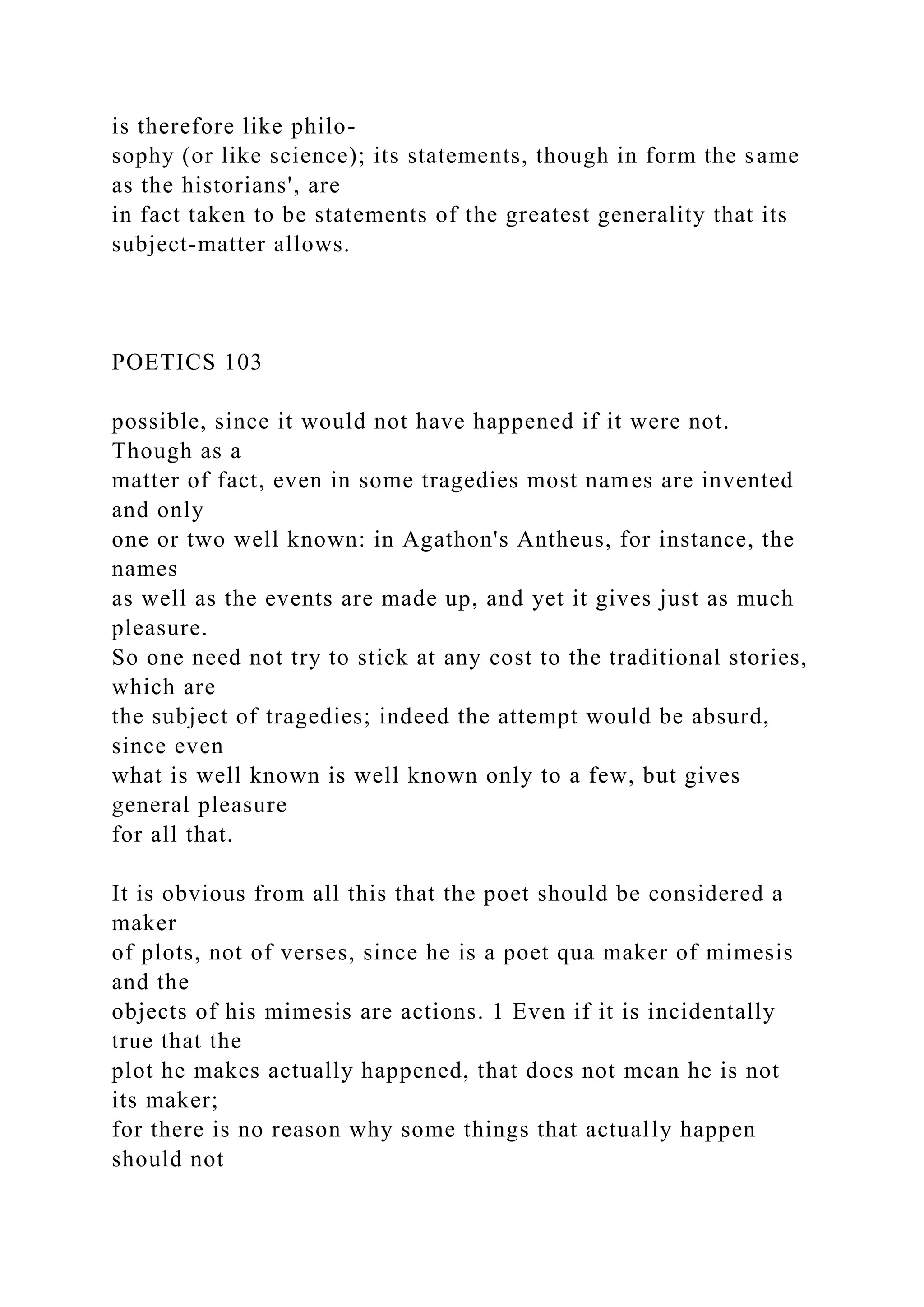
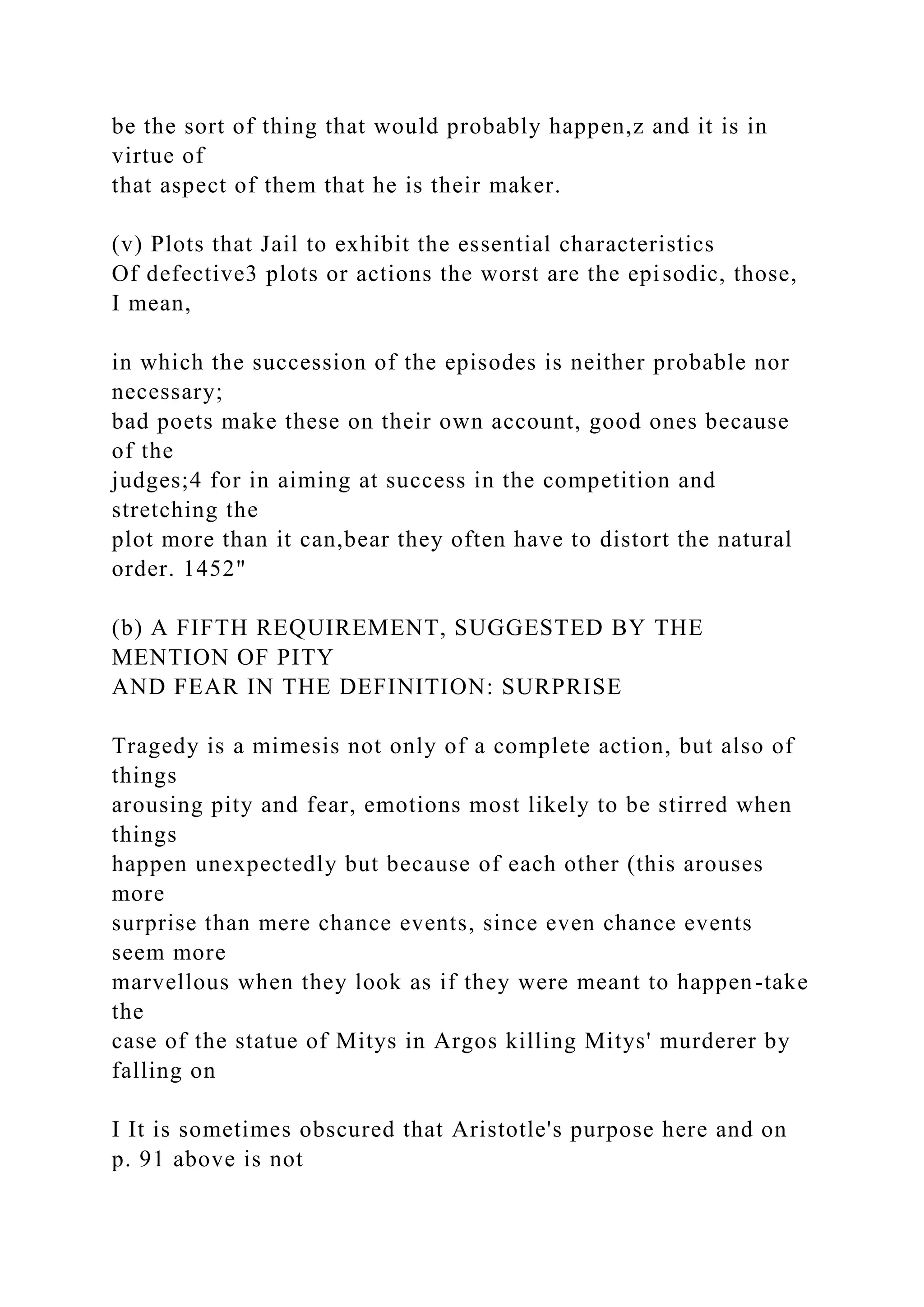
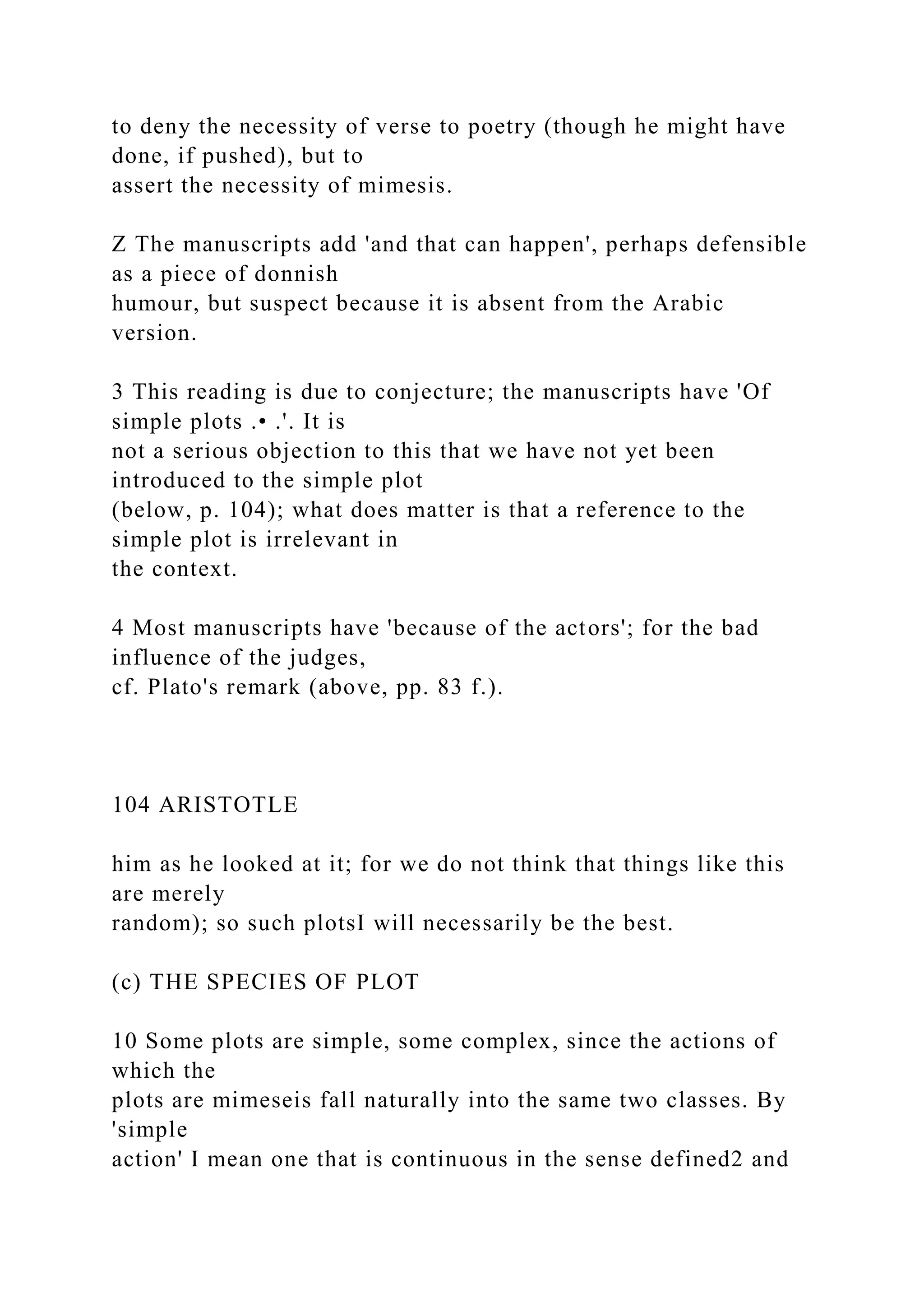
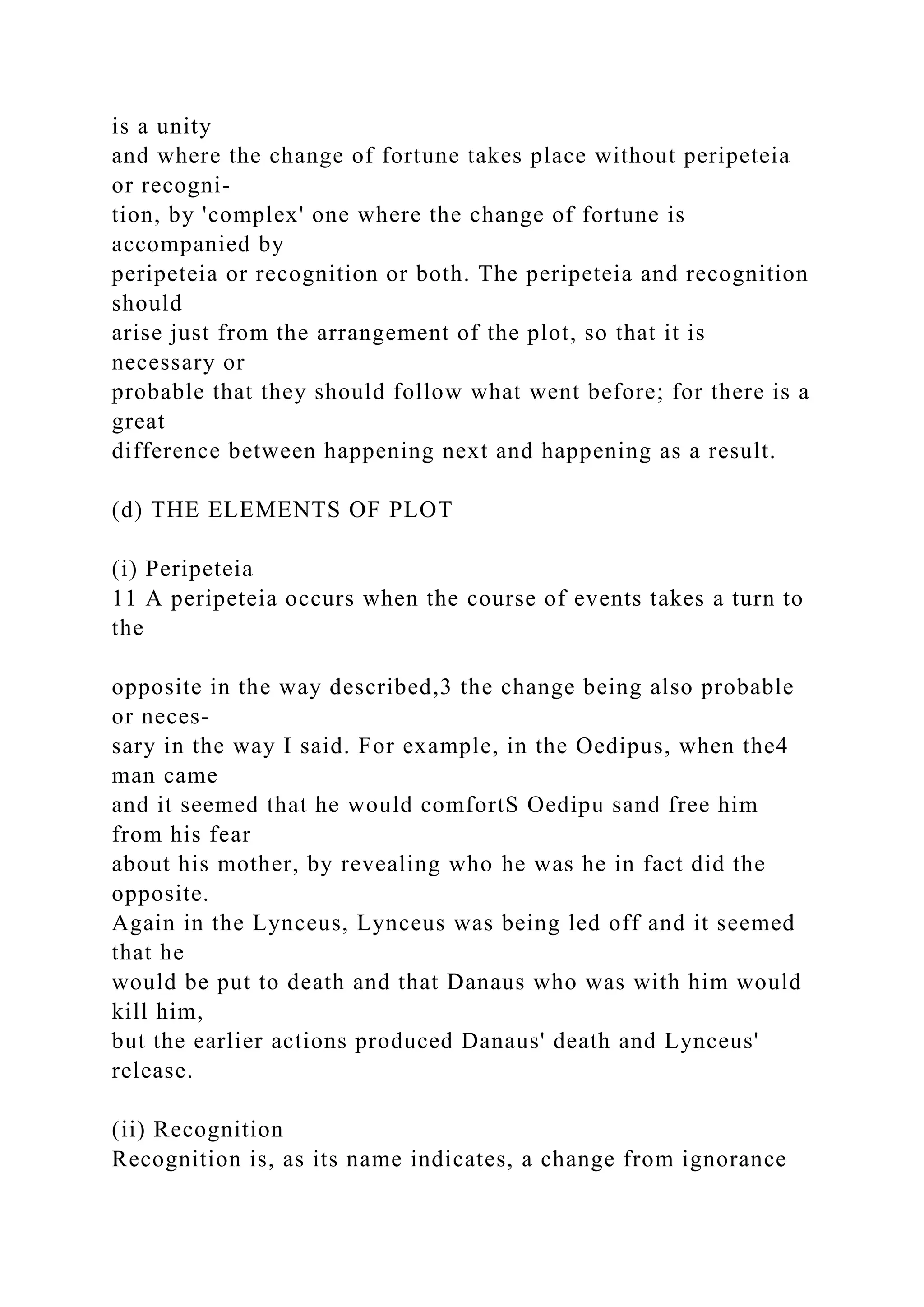
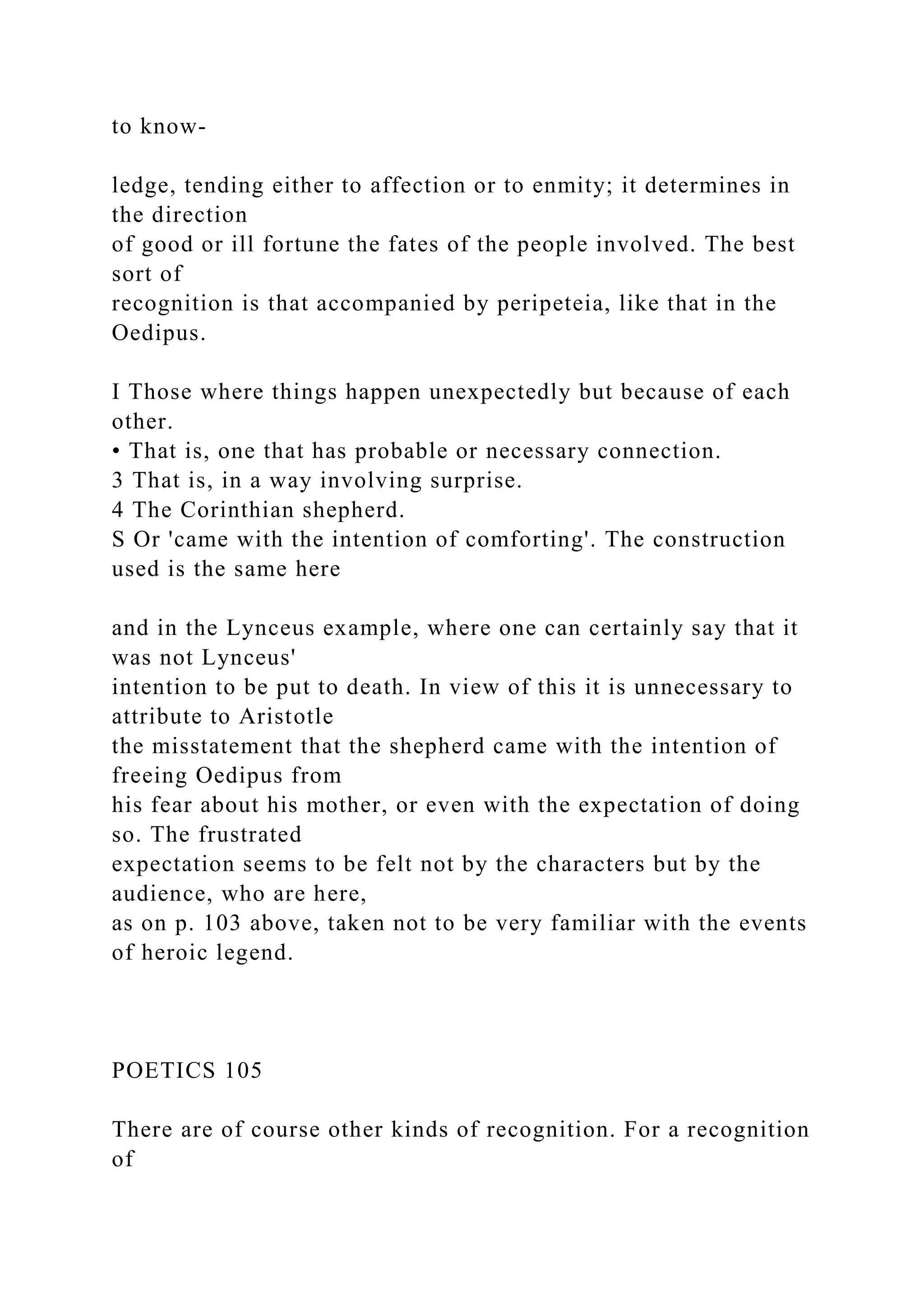
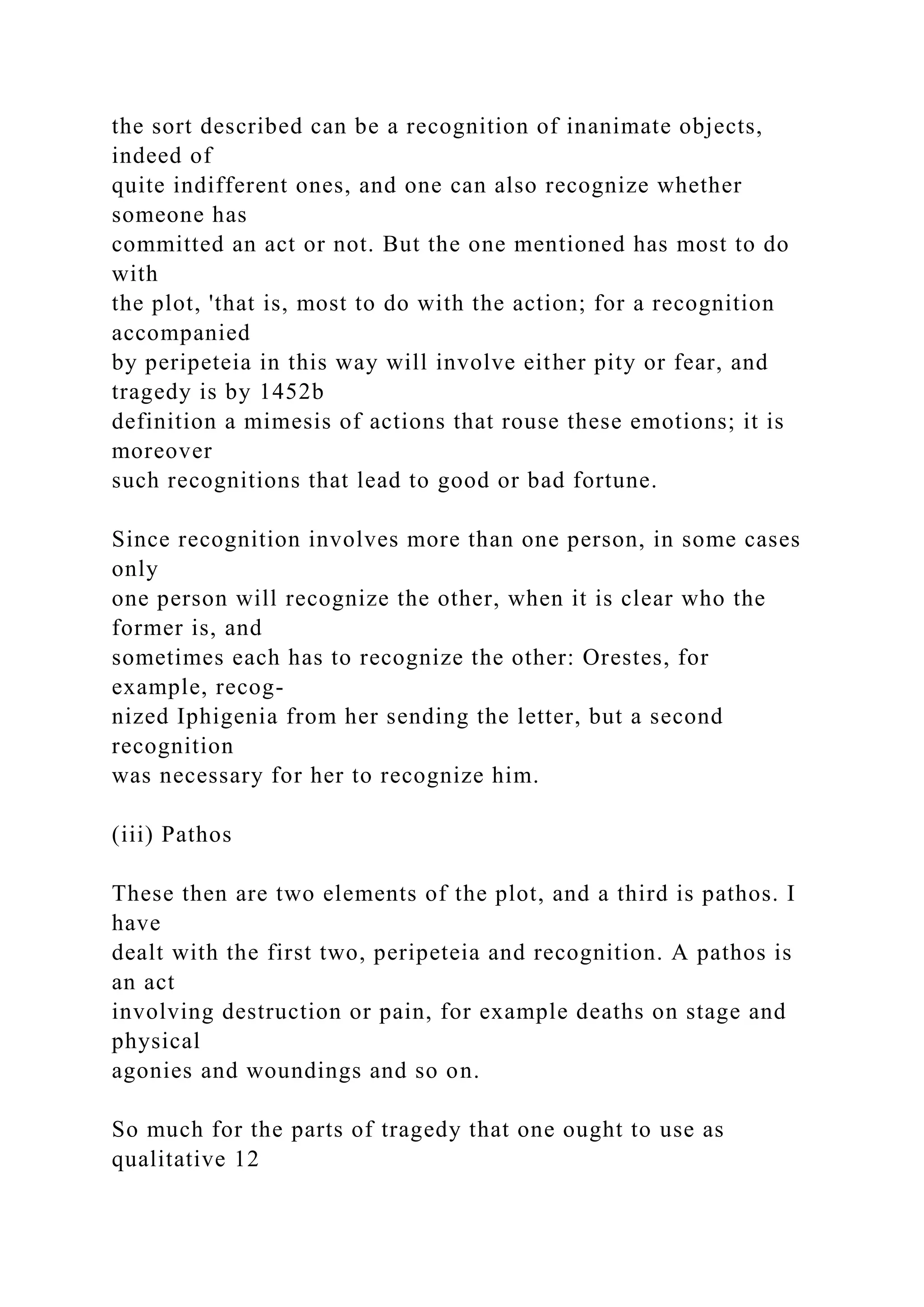
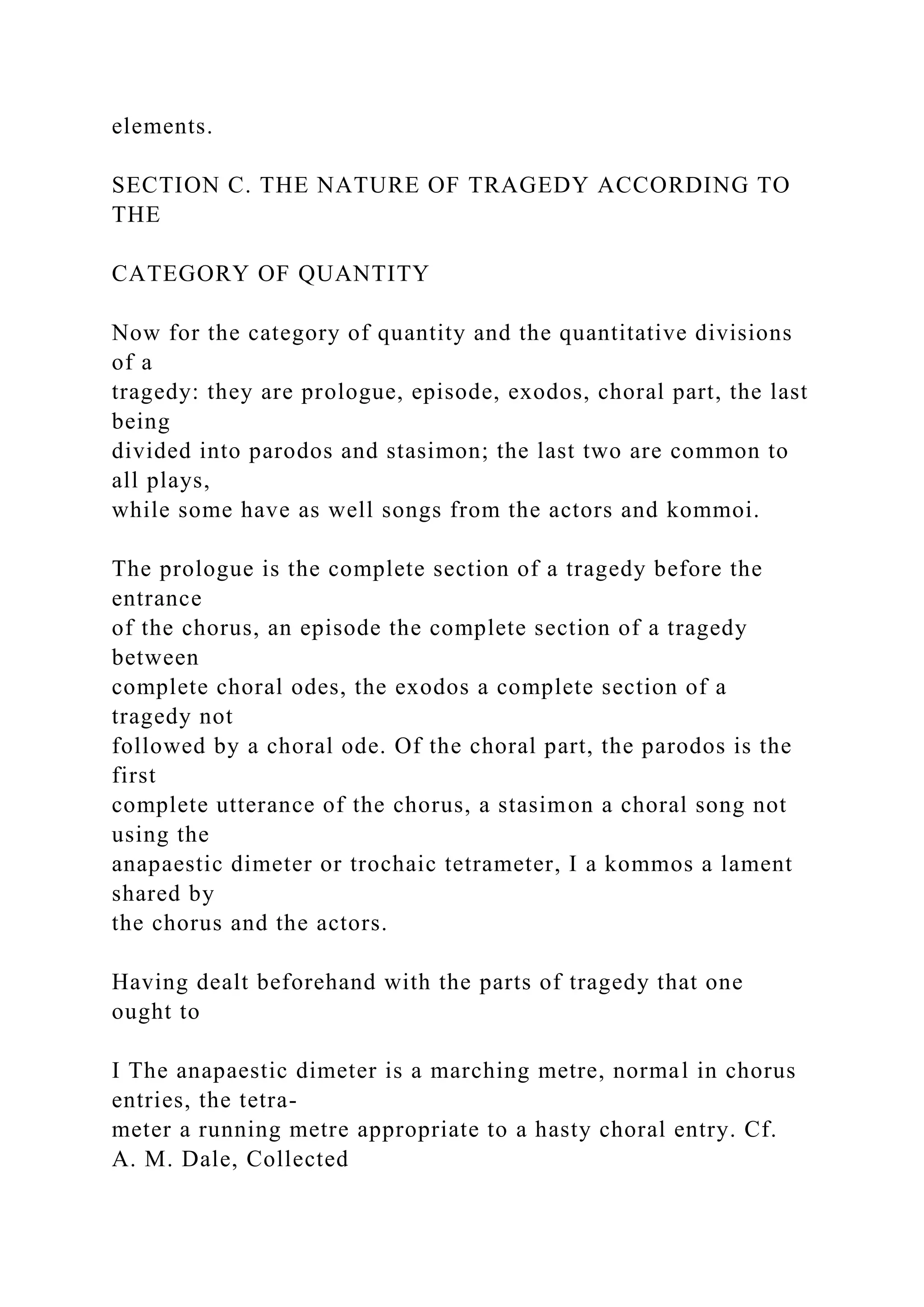
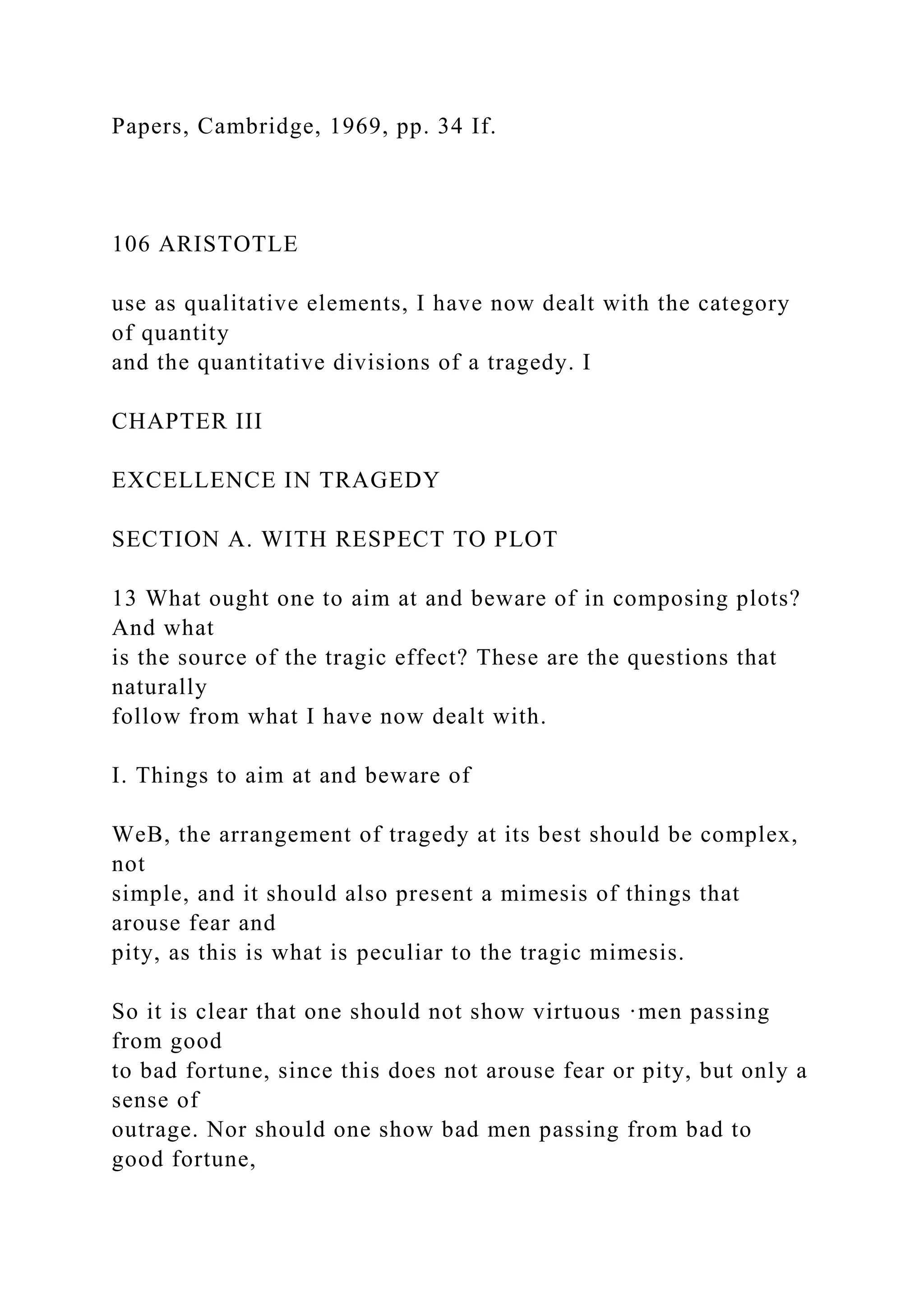
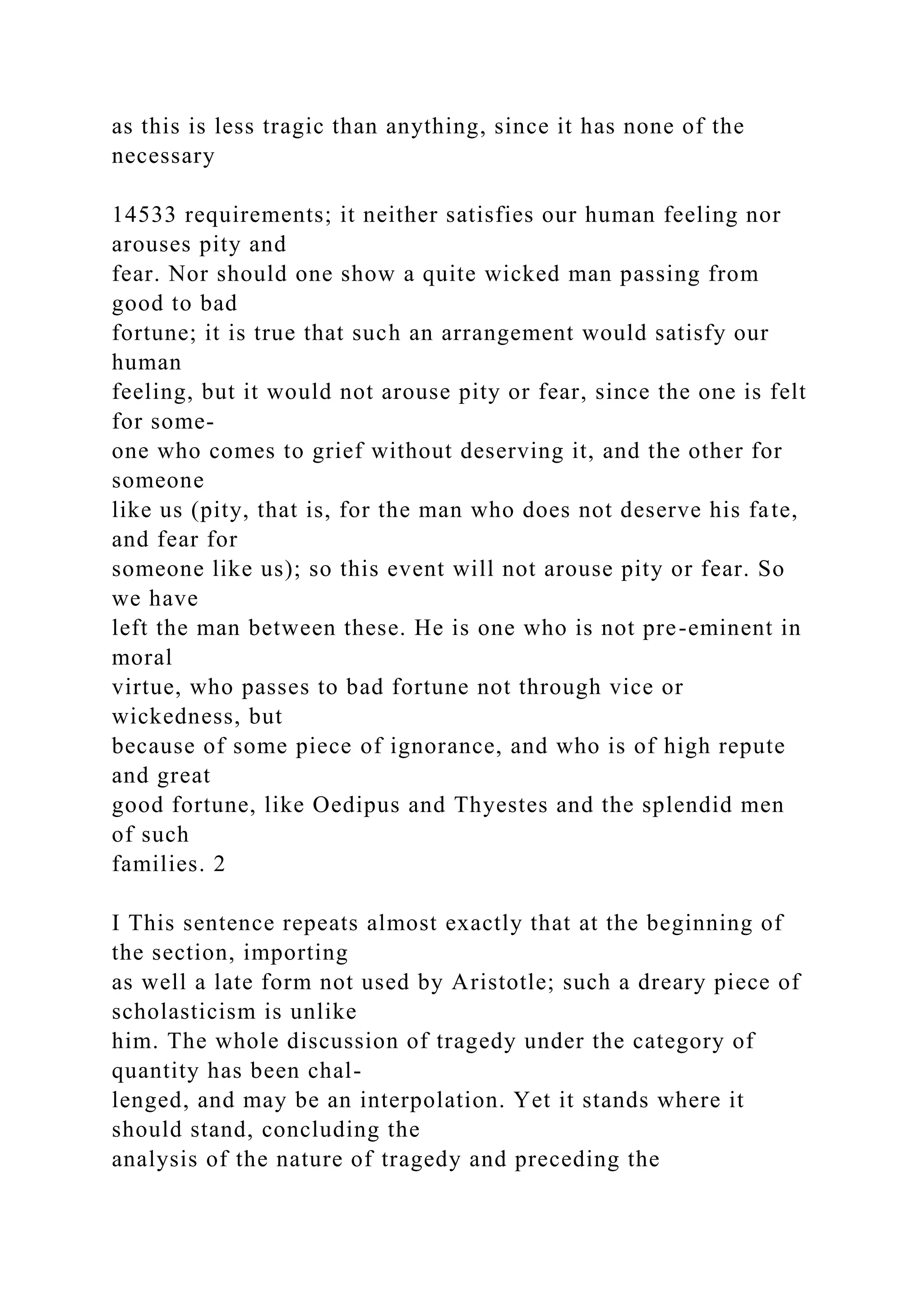
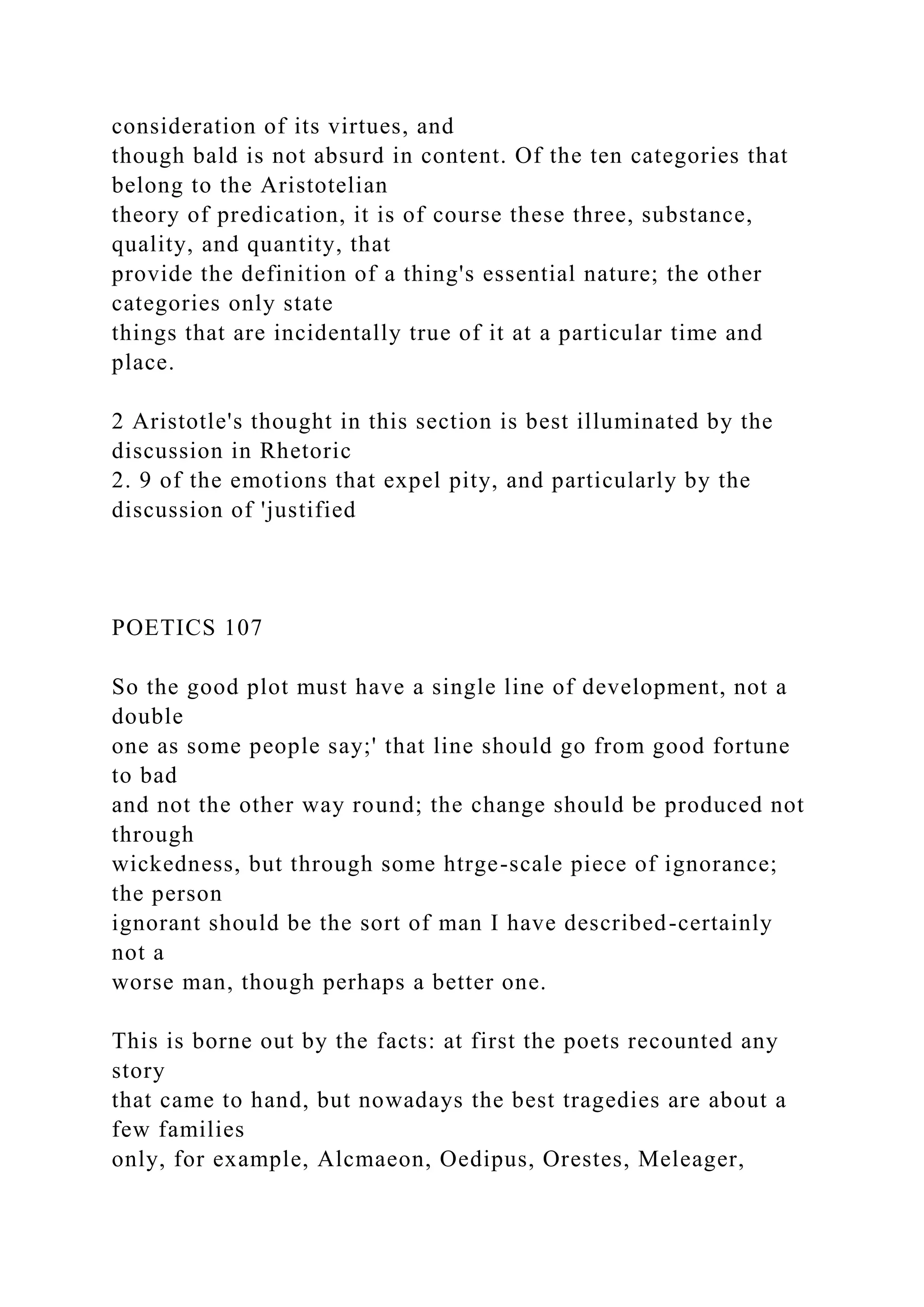
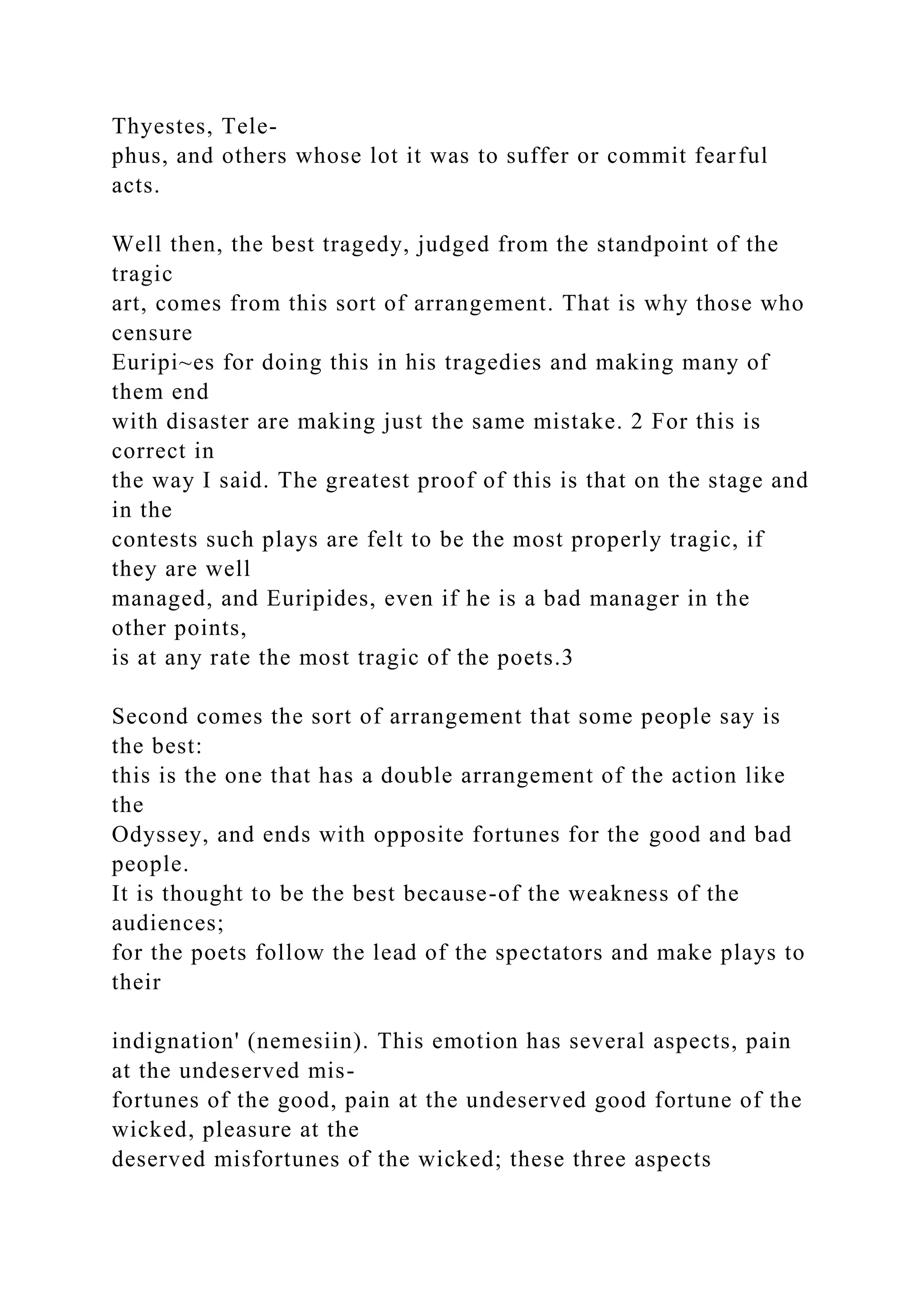
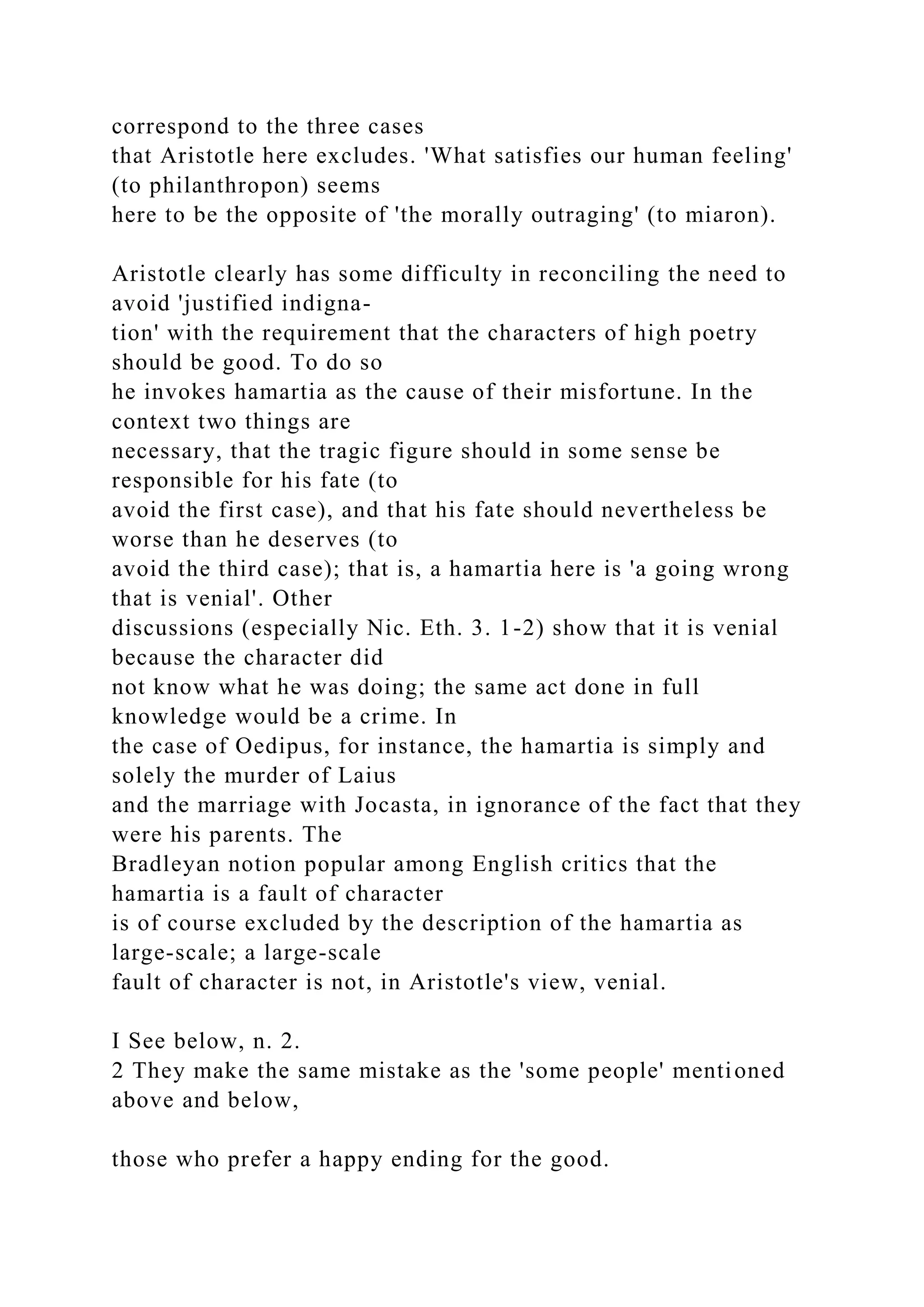
![3 'Most tragic' must mean 'best at arousing pity and fear'.
108 ARISTOTLE
specifications. But this is not the pleasure proper to tragedy, but
rather
belongs to comedy; for in comedy those who are most bitter
enemies
throughout the plot, as it might be Orestes and Aegisthus, I are
reconciled
at the end and go off and nobody is killed by anybody.
2. The source of the tragic effect
1453b Now though pity and fear can be elicited by the
spectacle, they can also
14 be elicited just by the arrangement of the particular actions
[that make
up the plot], and this is a prior consideration2 and the sign of a
better
poet. For the plot ought to be so composed that even without
seeing the
action, a man who just hears what is going on shudders and
feels pity
because of what happens; this one would feel on hearing the
plot of the
Oedipus, for instance. But to produce this effect via the
spectacle has
less to do with the art of tragedy and needs external aids. To go
further
and use the spectacle to produce something that is merely
monstrous,
instead of something that rouses fear, is to depart entirely from](https://image.slidesharecdn.com/onlyprojectmanagementexpertineedtheanswers-221204163350-5fd2686e/75/Only-Project-Management-Expert-I-need-the-answers-docx-181-2048.jpg)
![tragedy.
For one should look to tragedy for its own pleasure, not just any
pleasure;
and since the poet's job is to produce the pleasure springing
from pity
and fear via mimesis, this clearly ought to be present in the
elements of
the action.
What sort of events, then, do seem apt to rouse fear, or [rather]
pity?
This is my next subject. In such actions, people must do
something to
those closely connected with them, or to enemies, or to people
to whom
they are indifferent. Now, if it is a case of two enemies, this
arouses no
particular pity, whether the one damages the other or only
intends to;
or at least, pity is felt only at the pathos3 considered in itself.
The same
is true in the case when people are indifferent to each other. The
cases
we must look for are those where the pathos involves people
closely
connected, for instance where brother kills brother, son father,
mother
son, or son mother---or if not kills, then means to kill, or does
some other
act of the kind.
Well, one cannot interfere with the traditional stories, cannot,
for
instance, say that Clytaemestra was not killed by Orestes or
Eriphyle by
Alcmaeon; what one should do is invent for oneself and use the](https://image.slidesharecdn.com/onlyprojectmanagementexpertineedtheanswers-221204163350-5fd2686e/75/Only-Project-Management-Expert-I-need-the-answers-docx-182-2048.jpg)
![traditional
material well. Let me explain more clearly what I mean by
'well'. One
can make the act be committed as the ancient poets did, that is,
with the
I In tragedy, naturally. Aristotle is denied his joke by those who
either hunt solemnly
for a comedy on the topic of Orestes and Aegisthus or take this
to be a reference to a
hypothetical third form of tragedy, with a happy ending for
everybody.
• Prior both in time and in importance, as it belongs to the
poetic art proper; the
point is the same as that made about spectacle on p. 100 above.
3 Cf. above, p. 105.
POETICS log
agents knowing and aware [whom they are damaging]; even
Euripides has
the example of Medea killing her children with full knowledge.
[And
they can have knowledge and not act].' Or they can commit the
deed that
rouses terror without knowing to whom they are doing it, and
later
recognize the connection, like Sophocles' Oedipus; this indeed
happens
outside the play, but we have examples in the tragedy itself, for
example,
Astydamas' Alcmaeon and Telegonus in the Wounded Odysseus.](https://image.slidesharecdn.com/onlyprojectmanagementexpertineedtheanswers-221204163350-5fd2686e/75/Only-Project-Management-Expert-I-need-the-answers-docx-183-2048.jpg)
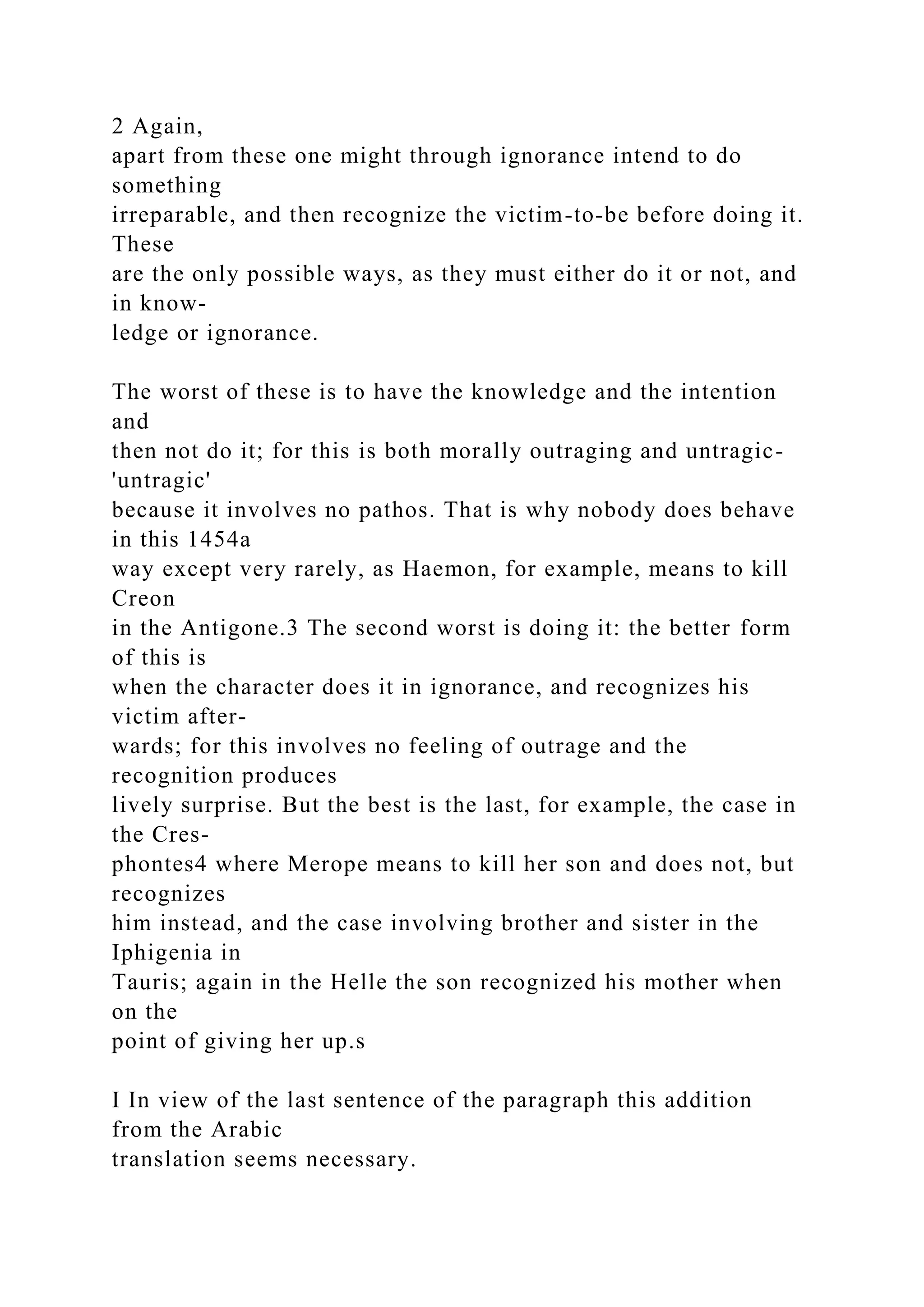
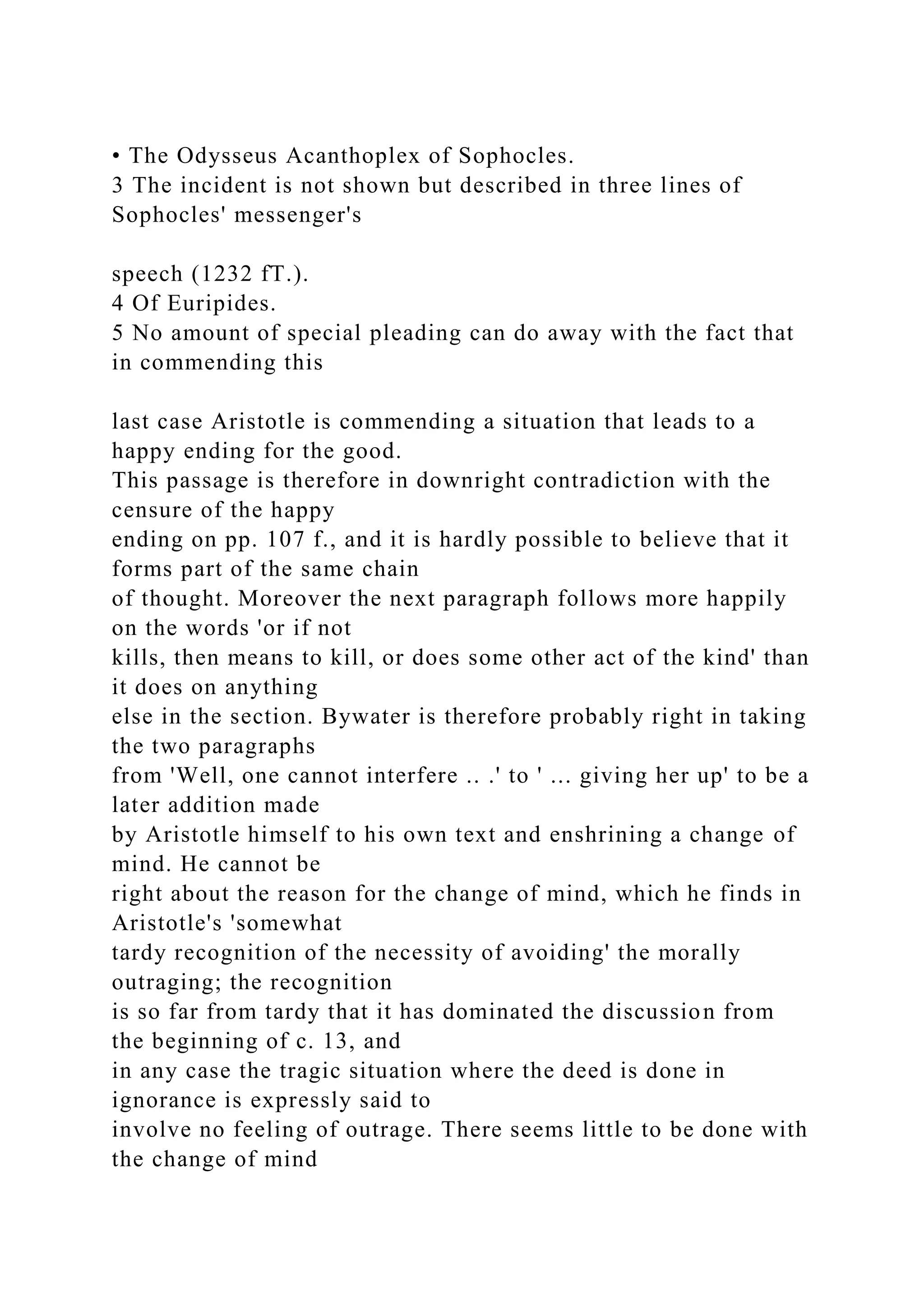
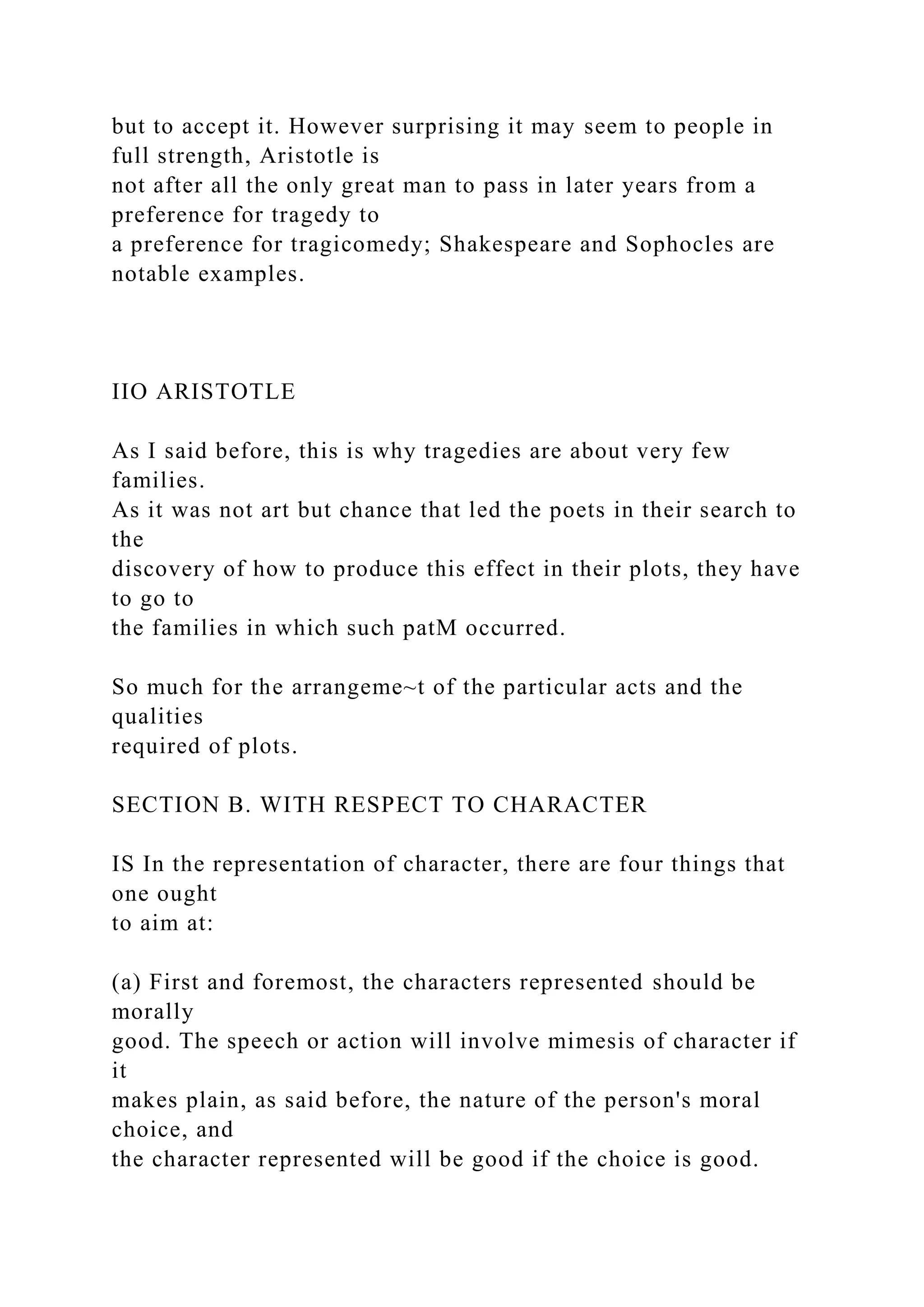
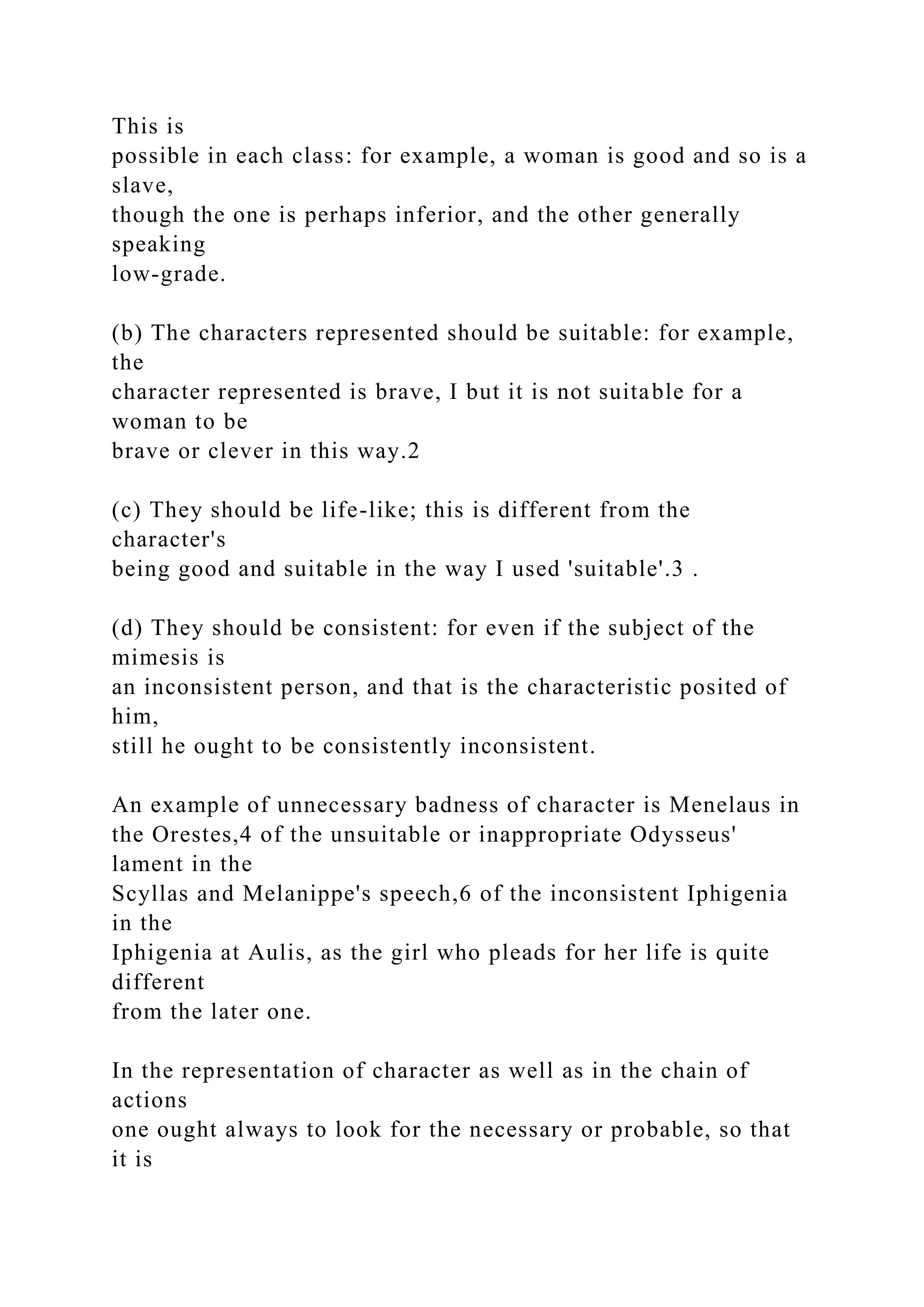
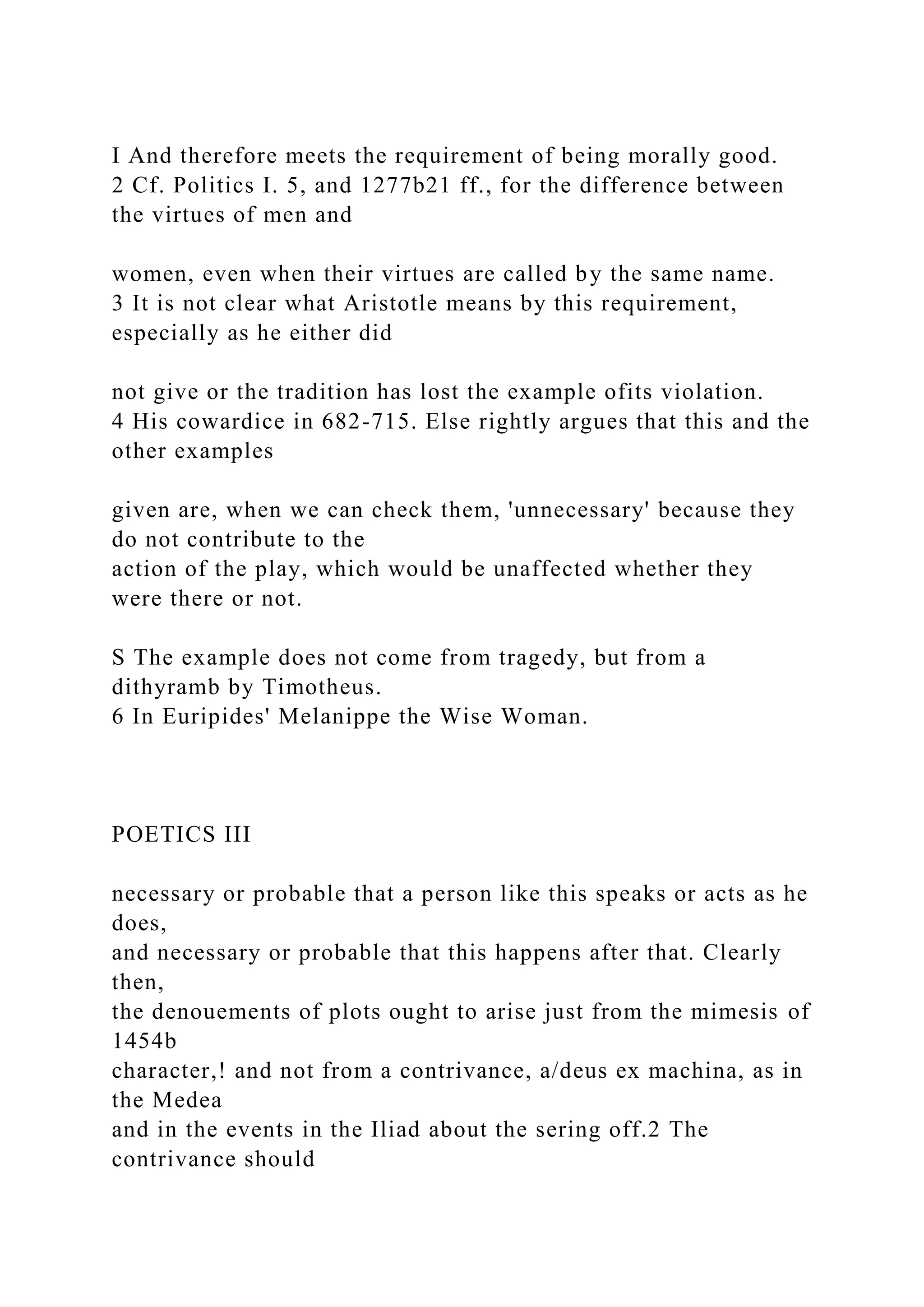
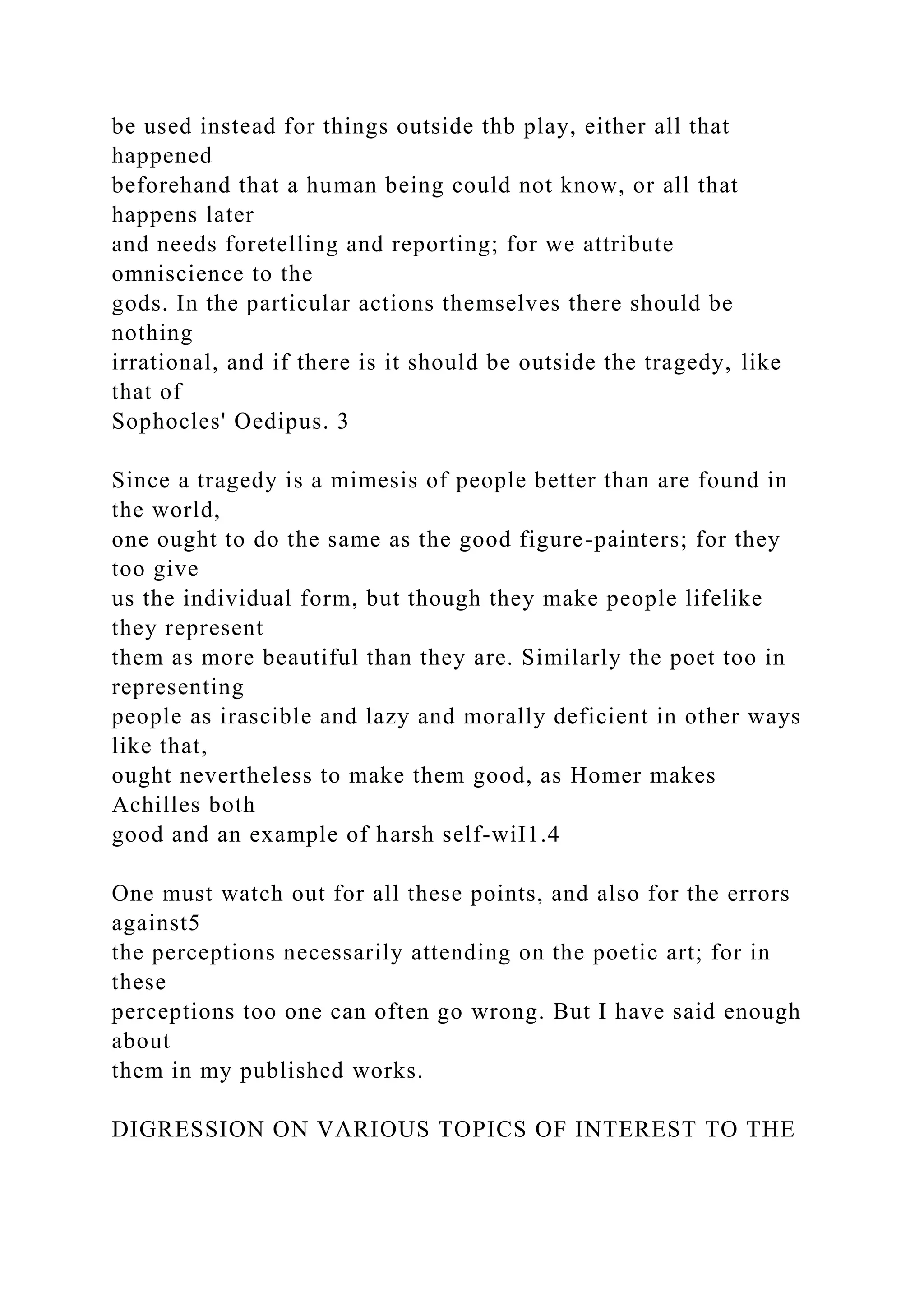
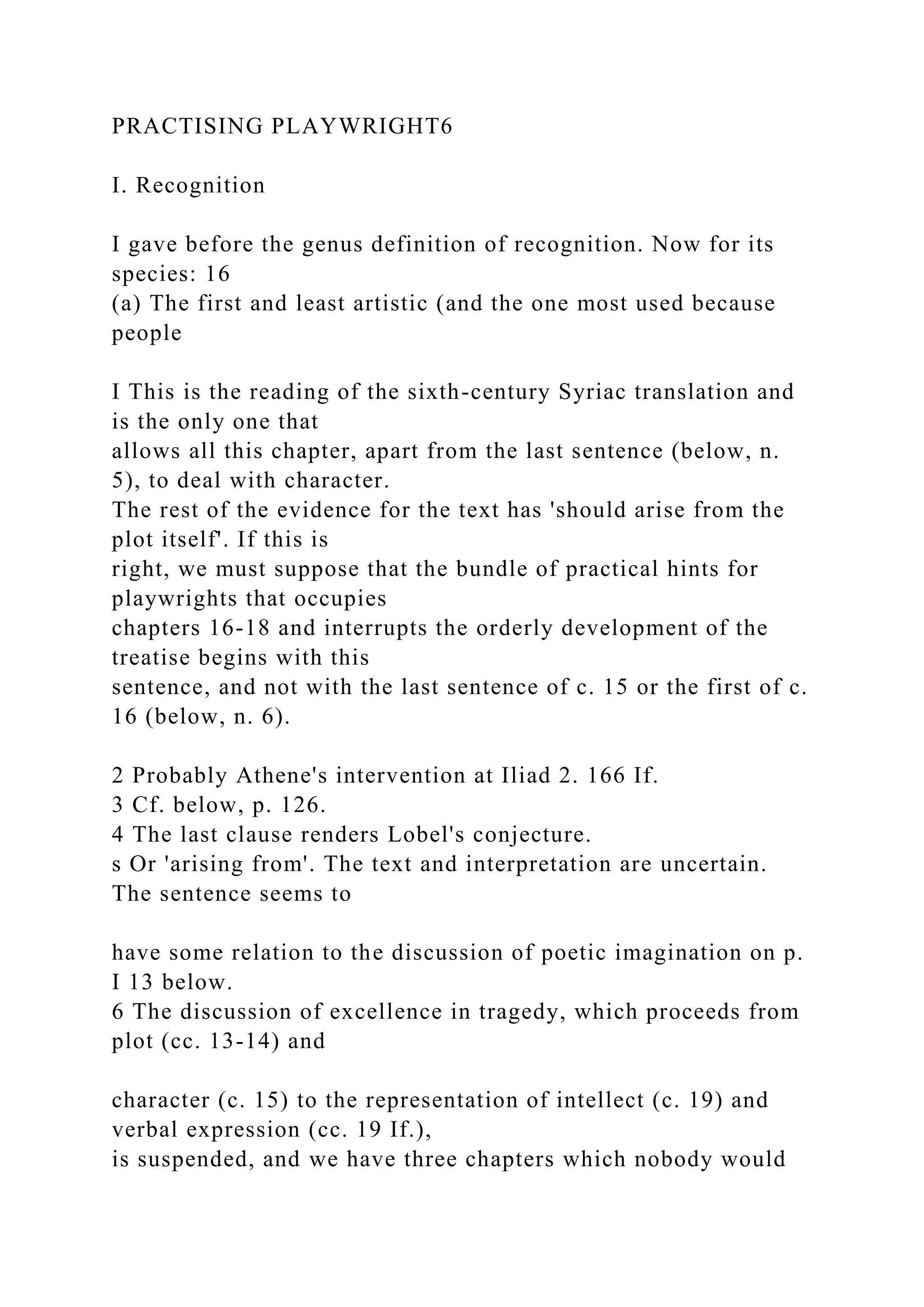
![have planned to put
where we find them, though they are indubitably Aristotelian.
II2 ARISTOTLE
can think of nothing better) is recognition by visible signs.
These signs
may be birthmarks, like 'the spear the earth-born bear' or stars
like those
Carcinus supposed in his Thyestes, or acquired after birth; there
are two
kinds of the latter, bodily onesJike scars, or external ones, like
necklaces
and the recognition by means of the cradle in Sophocles' Tyro.
Even
such signs can be well or badly handled: for example, Odysseus'
scar
leads to his being recognized in one way by his nurse and in
another by
the swineherds; recognitions like the latter, which are just
meant to
convince [the other characters in the poem], are less artistic,
and so are all
others similarly contrived; those that spring from a peripeteia,
like that
in the Bath episode, are better.!
(b) The next are those manufactured by the poet: this makes
them
inartistic. An example is Orestes' making himself known in the
Iphigenia
in Tauris; for she herself was recognized by means of her letter,
but
Orestes says without more ado what the poet wants him to say,](https://image.slidesharecdn.com/onlyprojectmanagementexpertineedtheanswers-221204163350-5fd2686e/75/Only-Project-Management-Expert-I-need-the-answers-docx-191-2048.jpg)
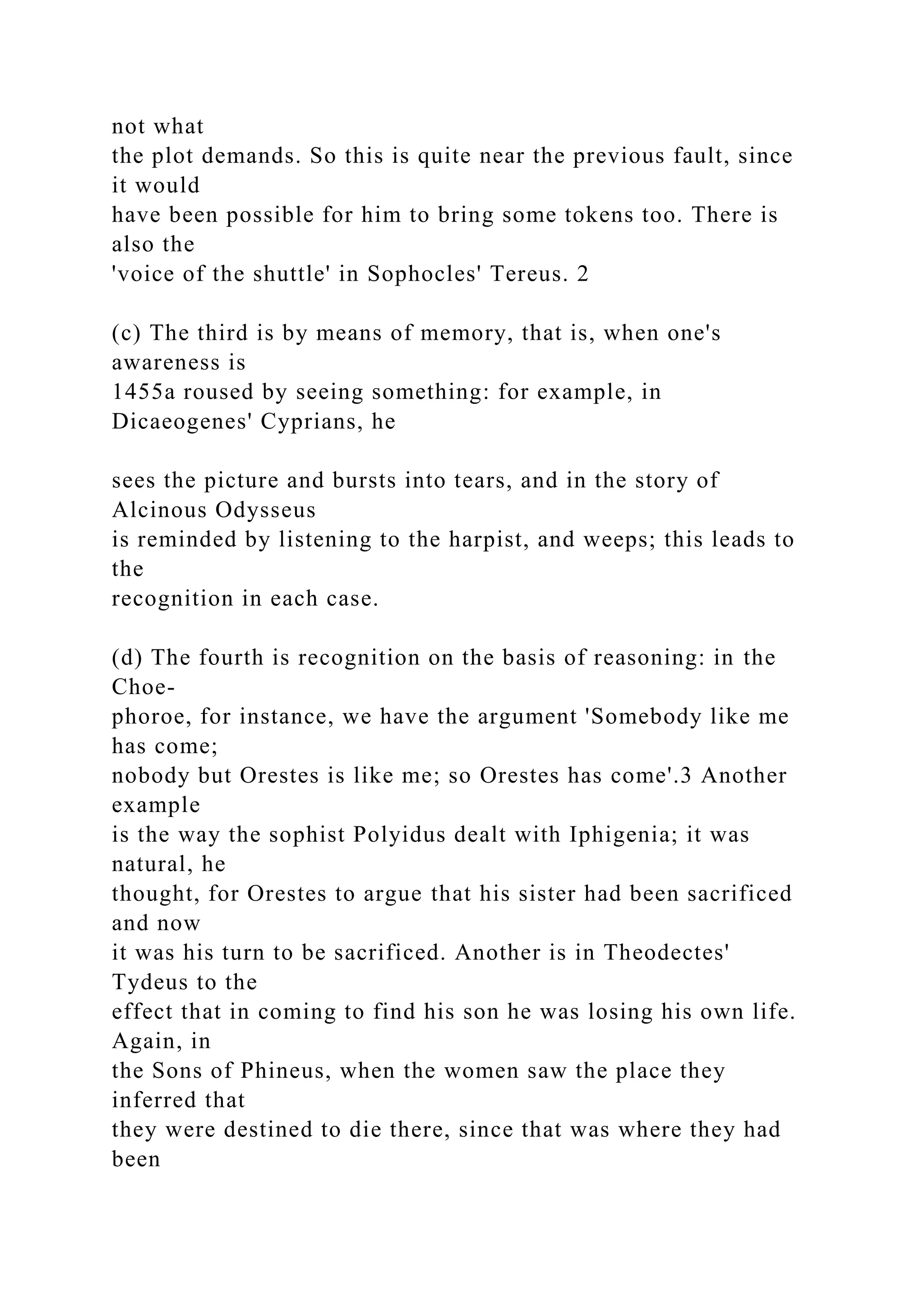
![exposed.
There is also a composite kind involving a false inference on
the part
of the other character. An example of this is in Odysseus the
False Mes-
senger. For that Odysseus and only he can string the bow is
something
I The Bath episode is the recognition by Eurycleia in Odyssey
19.
2 Philomela told her story by weaving it, as her tongue had been
cut out.
3 Electra does not use this dubious bit of reasoning to help her
recognize Orestes; he
recognizes her because he hears her producing it in lines 164 if.
Her recognition of him
is 'manufactured by the poet', i.e. he simply declares who he is
(219) and also produces
tokens (225 if.: the lock fits the place on his head from which it
was cut and he has a
robe that Electra embroidered). Editors have failed to see this.
POETICS II3
manufactured by the poet, and there is a hypothesis 'If he said
that he
would know the bow that he has not seen', I but to construct the
plot so
that it looks as if he will recognize him through this [false
inference] is
[the case of] paralogism [being described].z](https://image.slidesharecdn.com/onlyprojectmanagementexpertineedtheanswers-221204163350-5fd2686e/75/Only-Project-Management-Expert-I-need-the-answers-docx-193-2048.jpg)
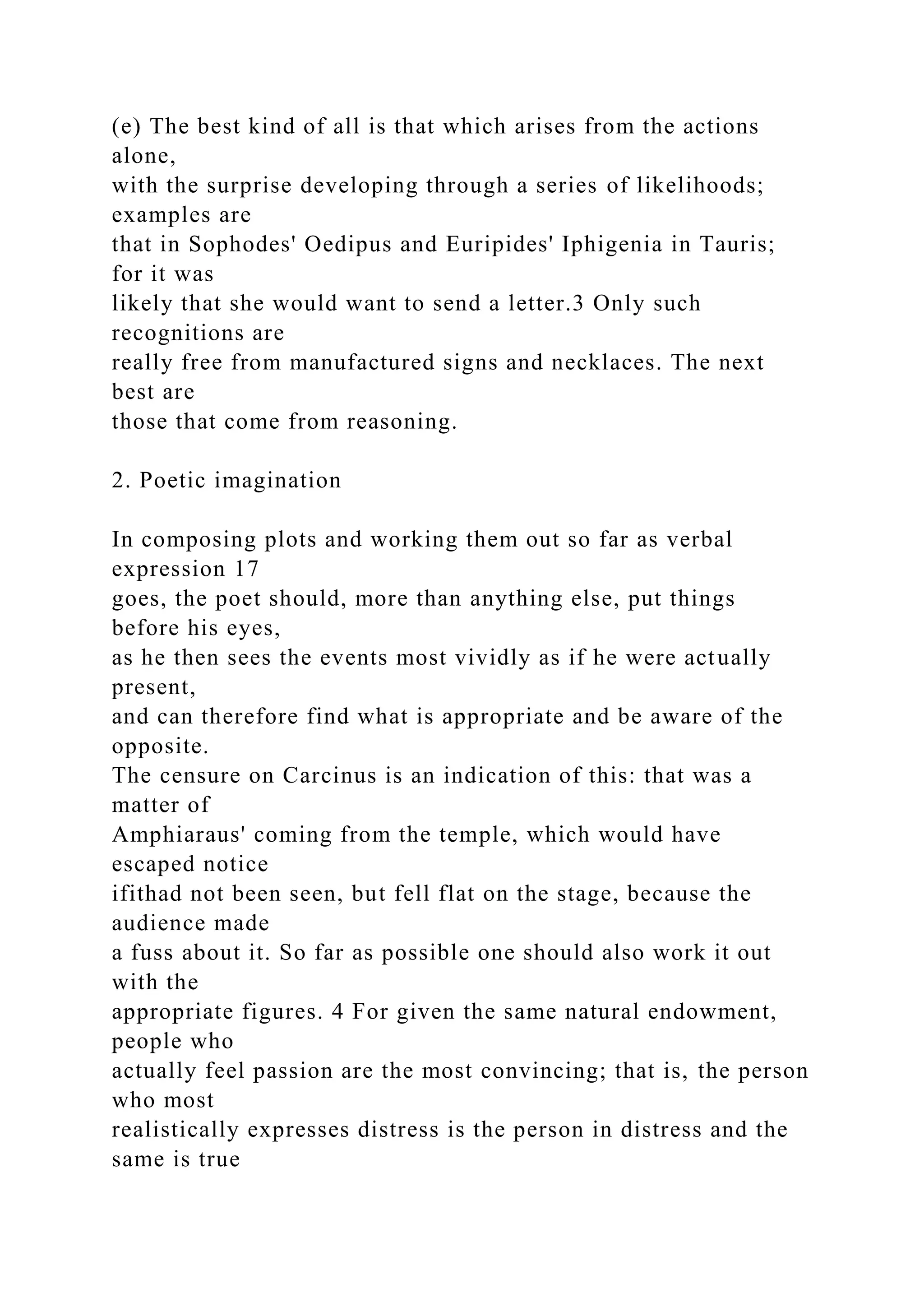
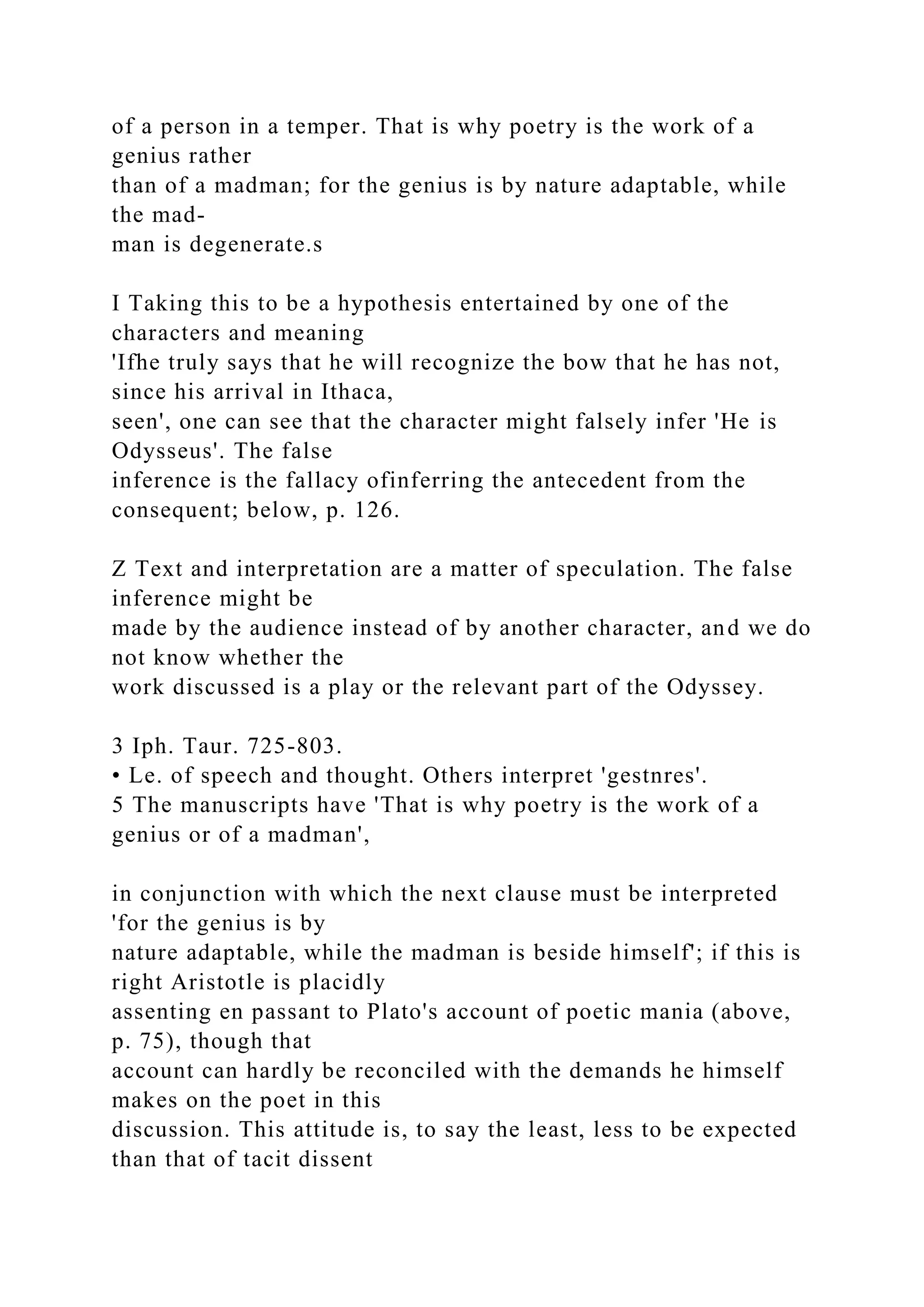
![from a Platonic paradox. The pseudo-Aristotelian Problems
(954) implies that both
madmen and geniuses share the temperament later called
'melancholy adust', but that in
8143591 I
ARISTOTLE
Whether the argument of a play is pre-existent or whether one is
I455b inventing it oneself, one should set it out in general
terms, and only
then make it into episodes and extend it. By 'setting it out in
general
terms' I mean, to take the case of the Iphigenia in Tauris:
[before the
action proper begins] a girl was sacrificed and disappeared
without the
sacrificers knowing what had happened to her, and she was
settled in
another country where there was a law that ont,! sacrificed
strangers to
the goddess; she was installed as priestess of this rite ; [then in
the action
proper] it came about later that the priestess's brother arrived
(that he
came because of an oracle and his purpose in coming are things
outside
the action); anyway he came and was captured and when on the
point
of being sacrificed disclosed himself, either as in Euripides'
poem or
as in Polyidus,I saying, that is, as was natural, that it turned out](https://image.slidesharecdn.com/onlyprojectmanagementexpertineedtheanswers-221204163350-5fd2686e/75/Only-Project-Management-Expert-I-need-the-answers-docx-196-2048.jpg)
![that he
was destined to be sacrificed as well as his sister; and this
recognition
produced his rescue. After this one should come to adding the
names
and making the episodes. Take care that the episodes are
relevant; for
example, in the case of Orestes in the Iphigenia such episodes
are the fit
of madness that led to his capture, and his escape through being
purified.
In plays episodes are brief, but epic uses them to increase its
length.
The Odyssey, for instance, has a very brief argument: [as
preliminary to
the action] a man is away from home for many years and
jealously
watched by Poseidon and has lost his followers; moreover at
home his
affairs are such that his property is being wasted by suitors and
plots
laid against his· son; [and in the action proper] he comes home
in dire
distress and after disclosing himself makes an attack and
destroys his
enemies without being killed himself. This is what is proper to
the
action; the rest of the poem is episodes.
the genius 'the excessive heat has sunk to a moderate amount'; it
also contains the signi-
ficant remark that 'Maracus the Syracusan was even a better
poet when he was mad',
an example so remote from the main stream of poetry and so
cautious in expression that
it is clear that the author of the Problems, at any rate, did not](https://image.slidesharecdn.com/onlyprojectmanagementexpertineedtheanswers-221204163350-5fd2686e/75/Only-Project-Management-Expert-I-need-the-answers-docx-197-2048.jpg)
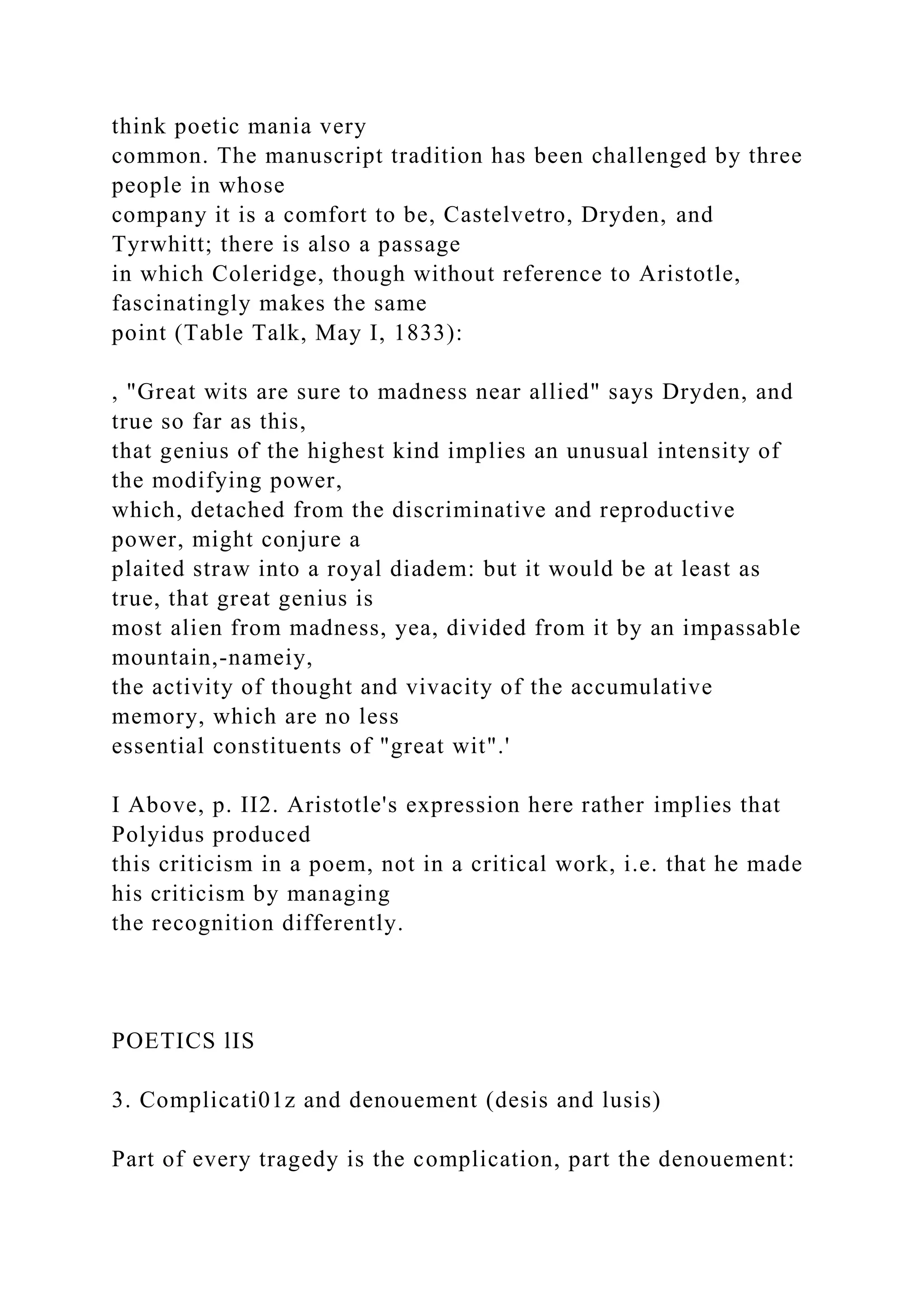
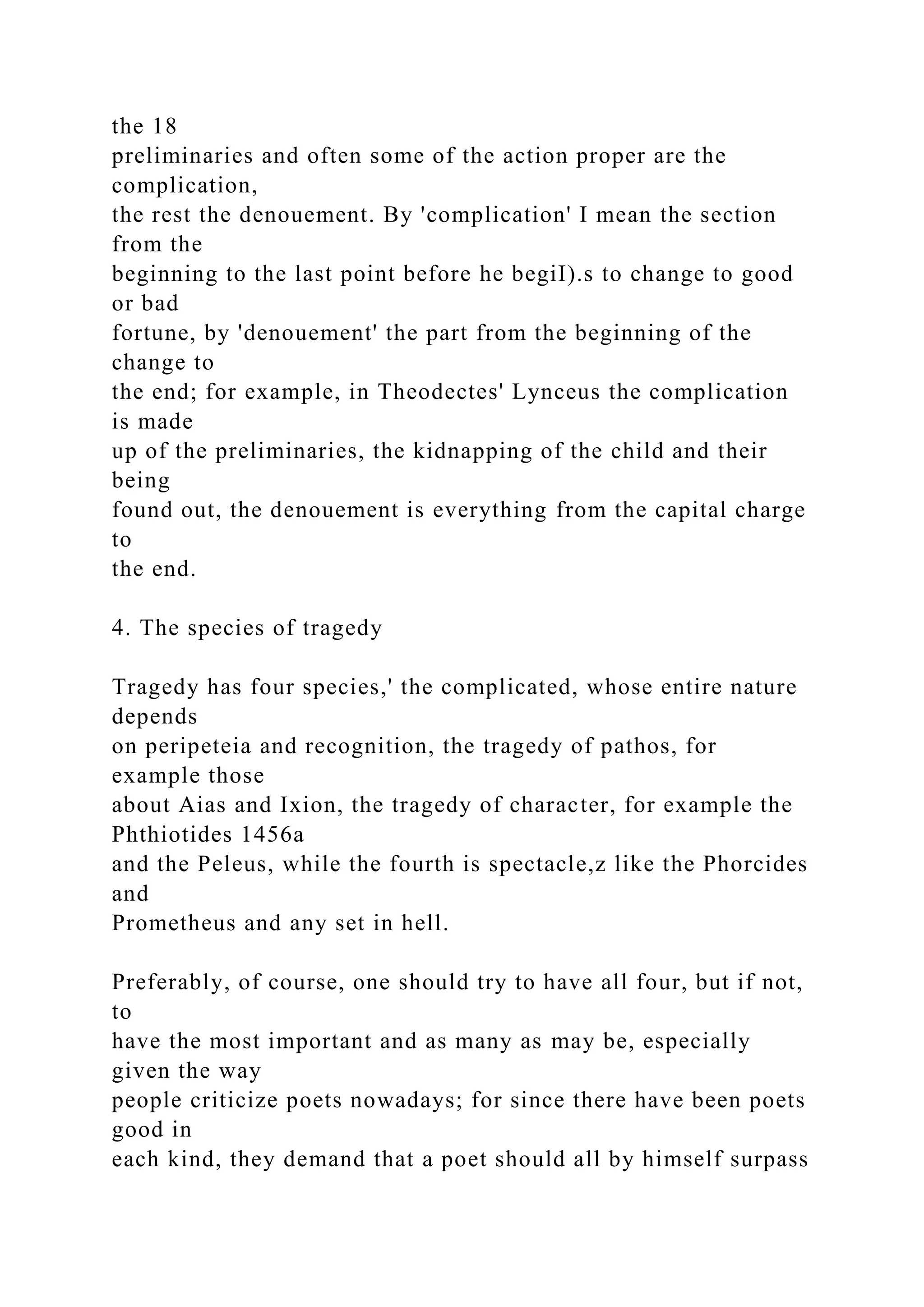
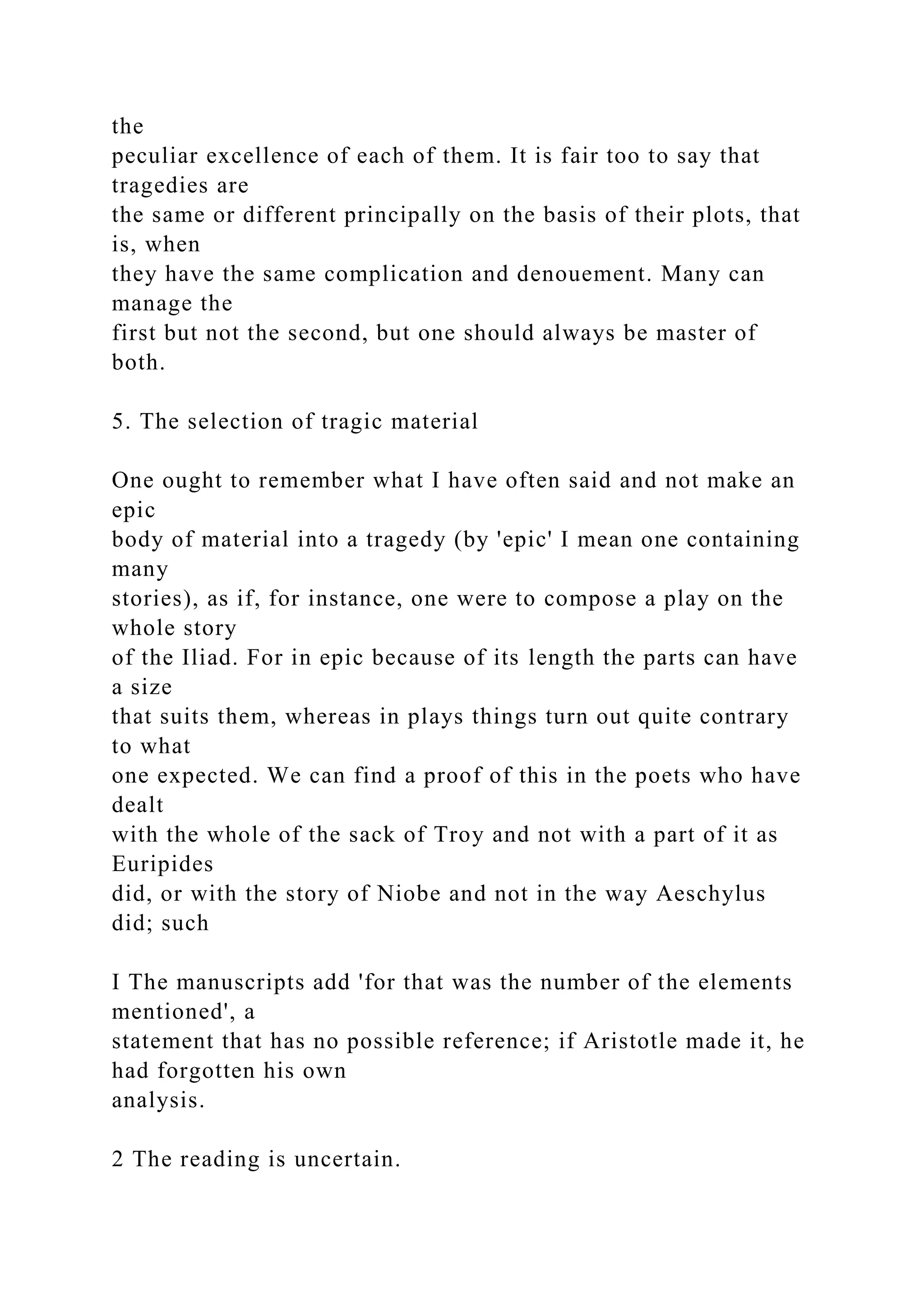
![II6 ARISTOTLE
poets are either hissed off the stage or do badly in the contest-
even
Agathon was hissed off just for this reason.
6. The element of surprise
In peripeteiai and also in simple plots poets aim at the effects
they want
by means of surprise, I as surprise is tragic and satisfies our
human feelin g. Z
This happens when a clever scoundrel is deceived, like
Sisyphus, and a
courageous wrongdoer worsted. For this is not only surprising
but likely
in the way described by Agathon, when he said it is likely that
many
things should happen contrary to likelihood.
7. The treatment of the chorus
One should regard the chorus too as one of the actors, and as a
part of the
whole and taking part in the action; that is, one should follow
Sophocles'
practice rather than Euripides'. In poets apart from these,3 the
songs
have no more to do with the plot than with some quite other
tragedy; this
is why they [nowadays] sing interpolated songs (the first who
began this
practice was Agathon). But it is absurd, for there is no](https://image.slidesharecdn.com/onlyprojectmanagementexpertineedtheanswers-221204163350-5fd2686e/75/Only-Project-Management-Expert-I-need-the-answers-docx-201-2048.jpg)
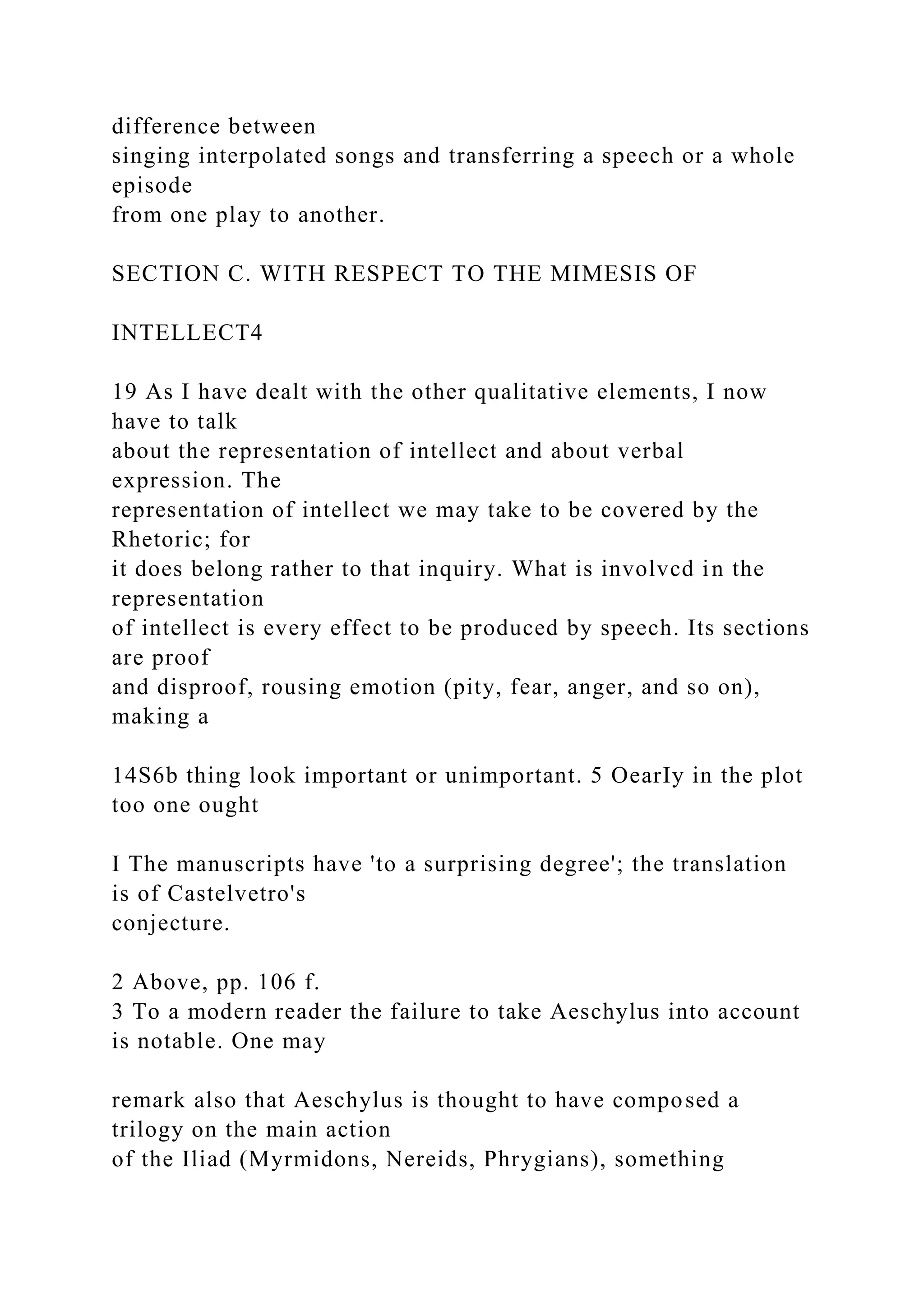
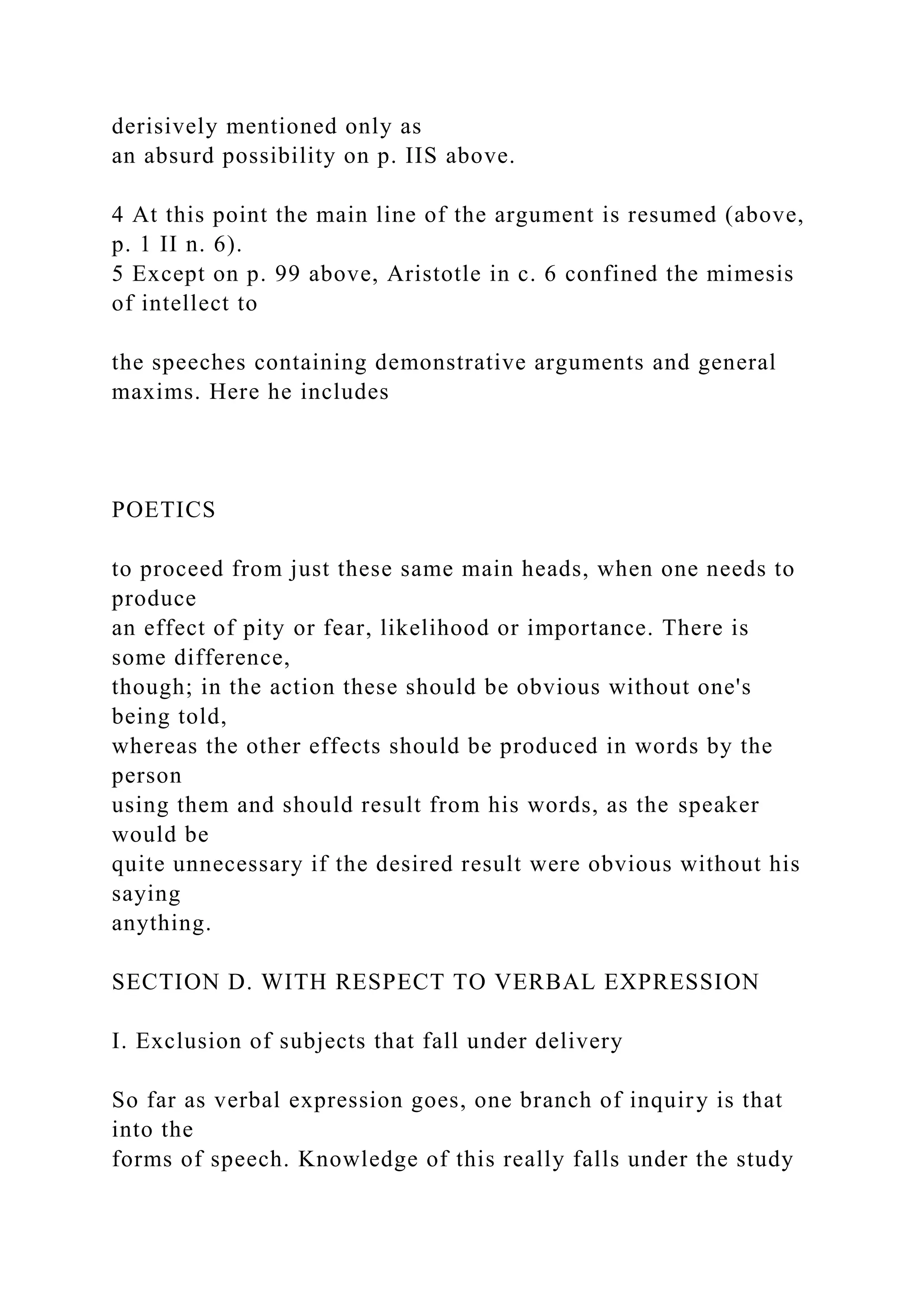
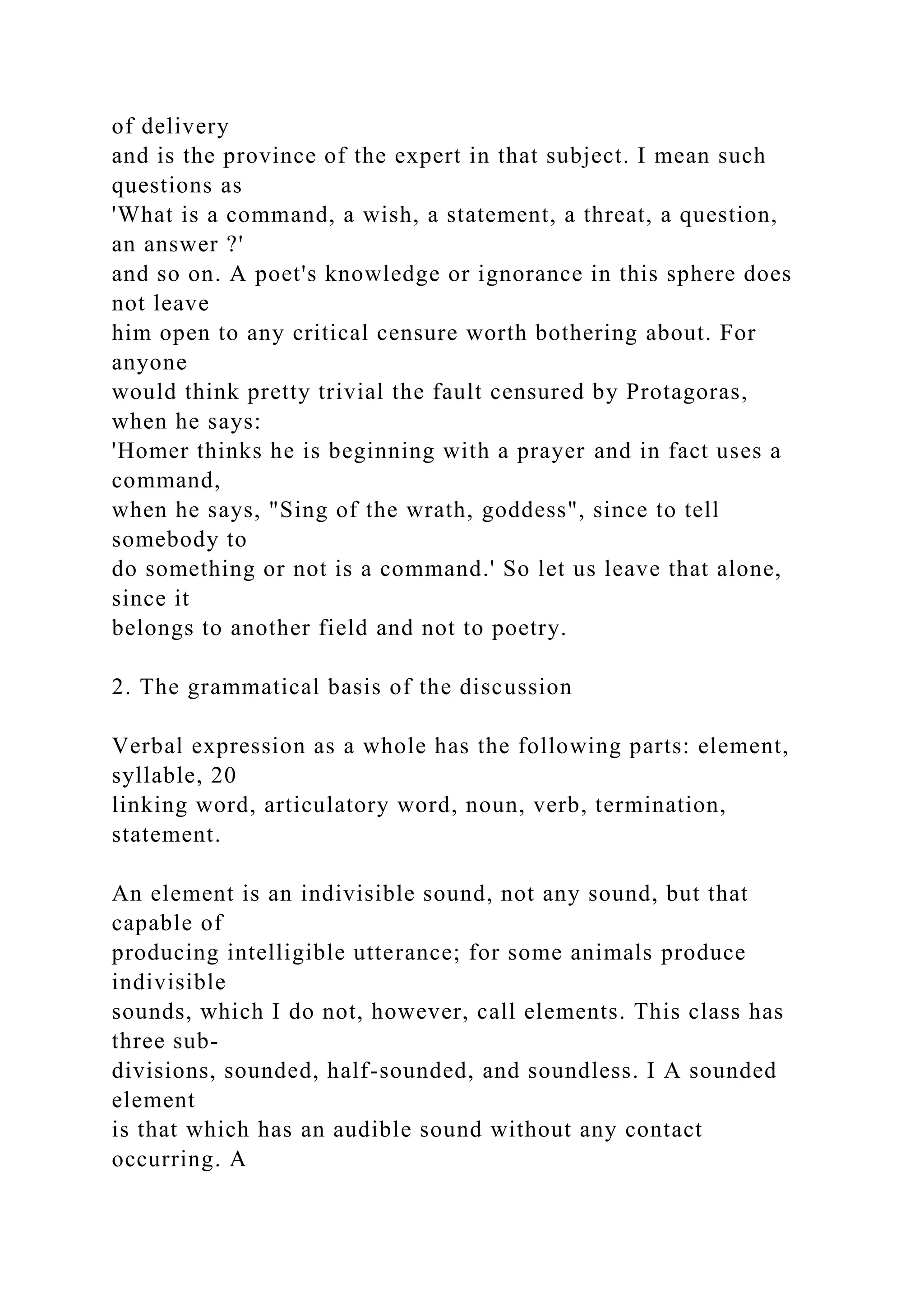
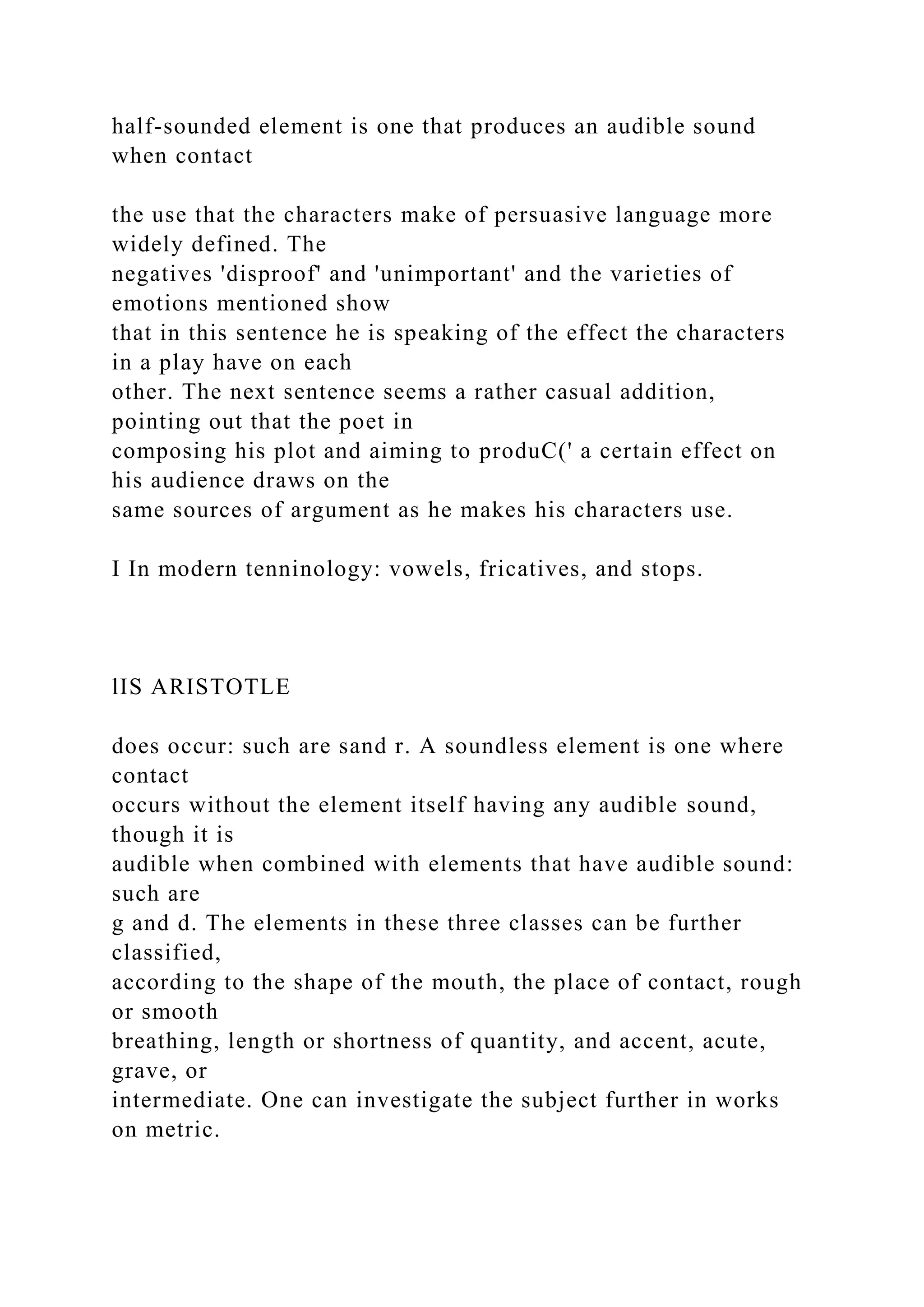
![A syllable is a composite non-significant sound made up of a
voiceless
element and one with voice: gr, for example, is a syllable by
itself without
a, and also if a is added to make gra. I But the investigation of
this too is a
matter of metric.
1457' A linking word is (a) a non-significant sound which
neither prevents
nor produces the formation from a number of sounds of one
significant
utterance; it ought not to stand alone at the beginning of a
statement:
examples are men, toi, de, de [the linking particles]; (b) a non-
significant
sound that naturally produces from a plurality of sounds that
nevertheless
signify one thing a single significant utterance: examples are
amphi, peri,
and the rest [of the prepositionsJ.2
An articulatory word (arthron) is a non-significant sound that
indicates
the beginning or end or dividing point of a statement; it is
naturally
put at either end (?) of a statement or in the middle. 3
A noun is a composite significant sound with no temporality,
and made
up of parts not in themselves significant. For in compound
words we
do not take the parts to be significant in themselves; in
Theodorus, for
example, the doron has no significance.](https://image.slidesharecdn.com/onlyprojectmanagementexpertineedtheanswers-221204163350-5fd2686e/75/Only-Project-Management-Expert-I-need-the-answers-docx-206-2048.jpg)
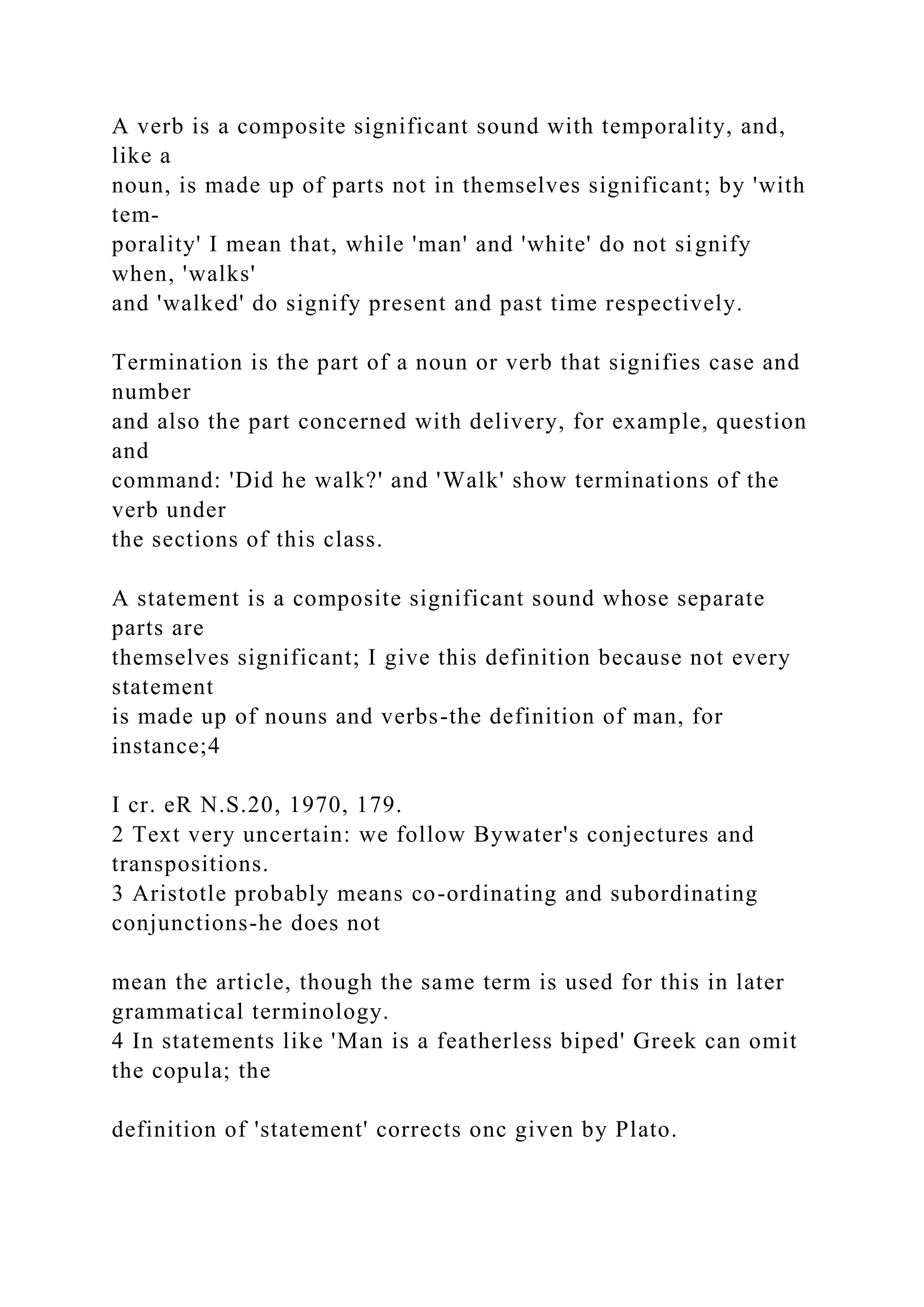
![POETICS
one can, that is, have a statement with no verb, but it will
always have a
significant part.! A statement is one statement in two senses: (a)
as signi-
fying one thing, (b) by being composed of a plurality of
statements: the
Iliad, for example, is one as being composite, and the definition
of man as
signifying one thing.
3. Different ways of classifying nouns2
The species of nouns are: (a) simple: by this I mean 'not
composed of 21
significant parts', for example, 'earth'; (b) double: this has two
varieties:
(i) composed of a significant element and a non-significant
element [e.g.
prepositional compounds]; one must qualify this by saying that
they are
not significant and non-significant in the word;3 (ii) composed
of signi-
ficant elements; (c) possible species are also triple, quadruple,
and indeed
multiple, like most aggrandized words,4 'Hermocaicoxanthus' . .
. 1457b
Nouns may also be divided into standard terms, dialect terms,
metaphorical terms, decorative terms,S neologisms, lengthened
words,
shortened words, altered words.](https://image.slidesharecdn.com/onlyprojectmanagementexpertineedtheanswers-221204163350-5fd2686e/75/Only-Project-Management-Expert-I-need-the-answers-docx-208-2048.jpg)
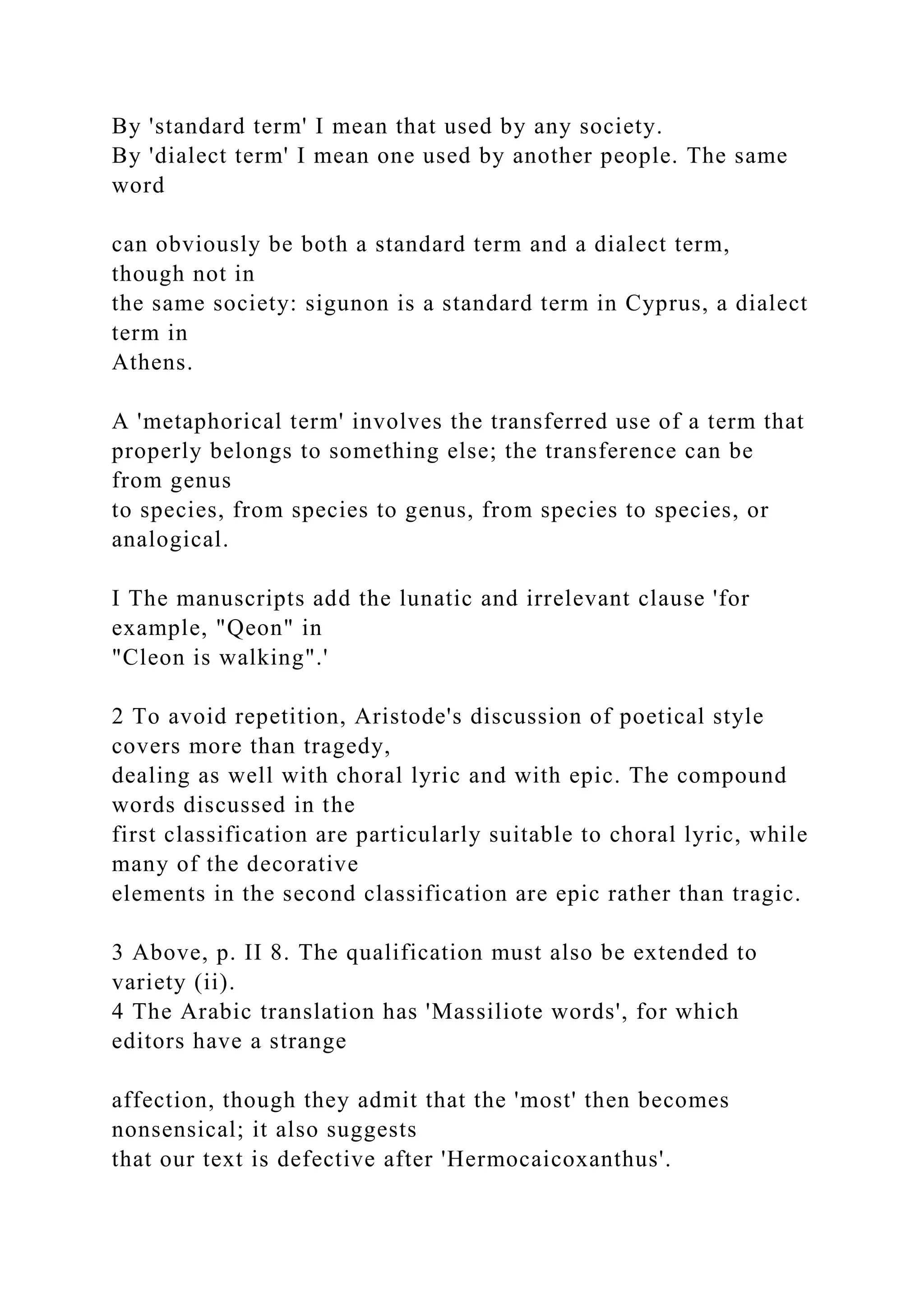
![5 Unlike the other terms in the list, this is not defined and
discussed below. A
papyrus fragment of a work perhaps written by Theophrastus
seems to deal with
ornamental epithets ('blazing steel', 'bright gold') after a
discussion of metaphor akin
to ours. Others have thought of synonymous terms and have
tried to provide the treat-
ment of 'decorative terms' from fr. 3: 'Aristode says in his
Poetics that things are
synonymous if they have more than one name but the same
definition, that is, things
that have several names, for example, topion and himation and
pharos (all words for
"cloak").'
120 ARISTOTLE
By 'from genus to species' I mean, for example, 'Here my ship is
still"I
as lying at anchor is a species of being still. By 'from species to
genus',
'Odysseus conferred ten thousand benefits',2 as 'ten thousand' is
a specific
example of plurality and he uses this instead of 'many'. By
'species to
species', 'drawing the life with the bronze' and 'cutting off [the
water]
with the unwearying bronze';3 in these examples 'drawing' is
used for
'cutting off' and 'cutting off' for 'drawing', and both are species
of the
genus 'removing'. By 'analogical' I mean where the second term](https://image.slidesharecdn.com/onlyprojectmanagementexpertineedtheanswers-221204163350-5fd2686e/75/Only-Project-Management-Expert-I-need-the-answers-docx-210-2048.jpg)
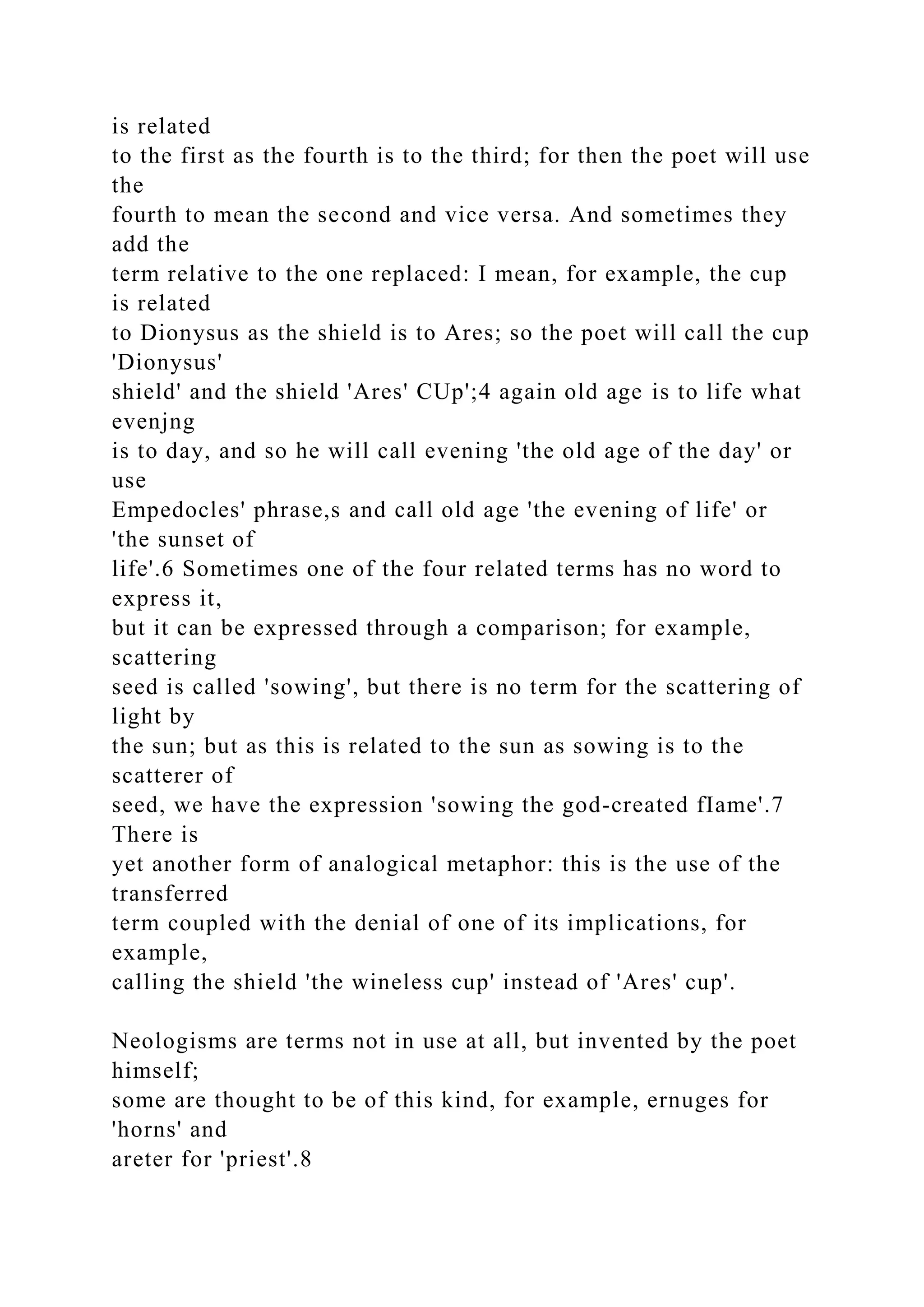
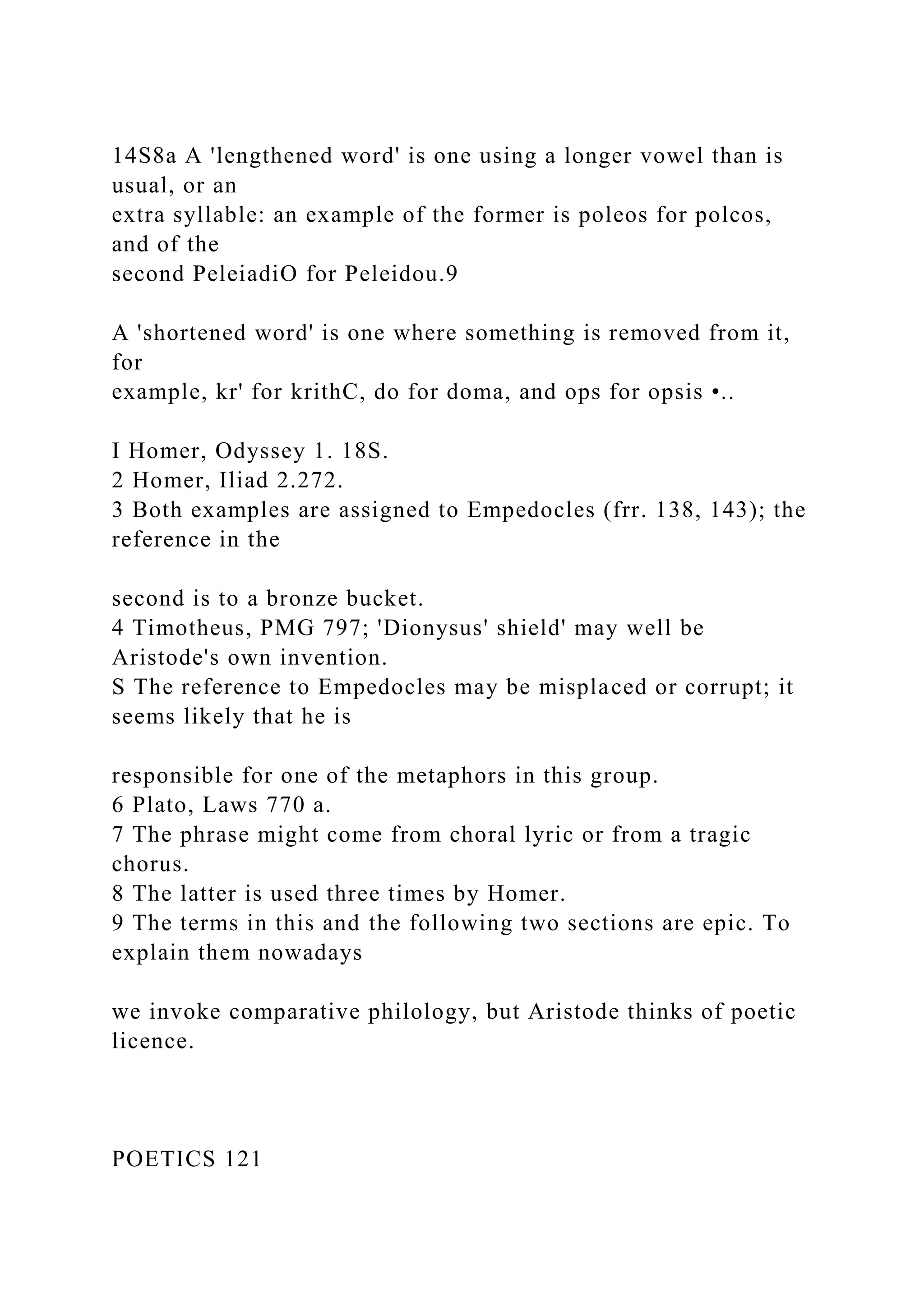
![An 'altered word' is one where part of the ordinary term is left,
and
something made up is added, like dexiteron for dexion ••• 1
4. Excellence in poetic style
[In poetry] verbal expression is good if it is clear without being
mean.z 22
The clearest is of course that made up of standard words, but it
is mean:
an example is the poetry of Oeophon and Sthenelus. The style
that uses
strange expressions is solemn and out of the ordinary; by
'strange
expressions' 1 mean dialect terms, metaphor, lengthening, and
everything
over and above standard words. But if anyone made an entire
poem like
this, it would be either a riddle or gibberish, a riddle if it were
entirely
metaphorical, gibberish if all composed of dialect terms. For it
is the
nature of a riddle that one states facts by linking impossibilities
together
(of course, one cannot do this by putting the actual words for
things
together, but one can if one uses metaphor), for example 'I saw
a man
welding bronze on a man with fire'3 and so on. And a poem
wholly made
up of dialect terms is gibberish. So there ought to be a sort of
admixture
of these, as the one element will prevent the style from being
ordinary
and mean, that is, dialect, metaphor, decorative terms, and the](https://image.slidesharecdn.com/onlyprojectmanagementexpertineedtheanswers-221204163350-5fd2686e/75/Only-Project-Management-Expert-I-need-the-answers-docx-213-2048.jpg)
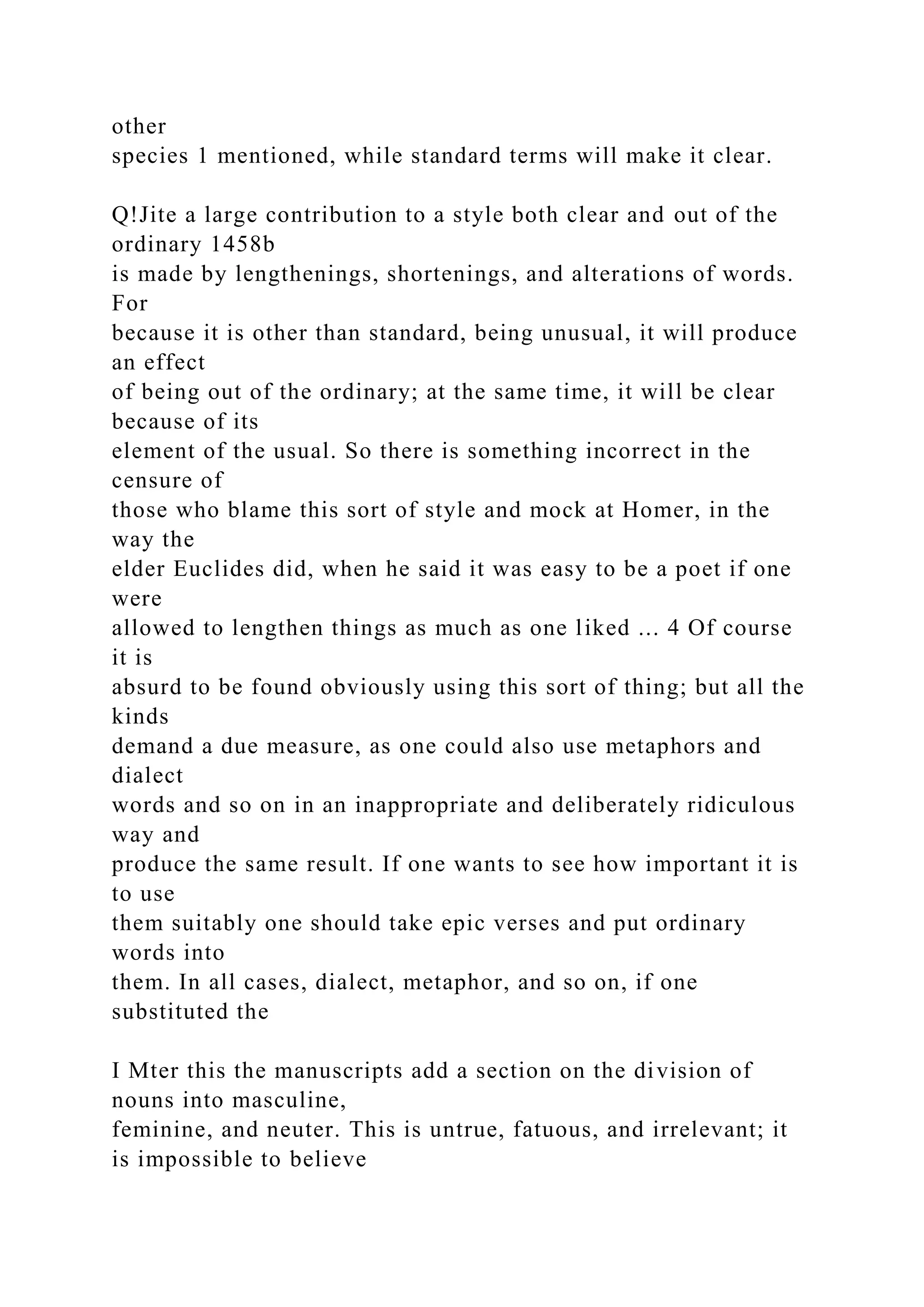
![that it is the work of the same man who produced the
penetrating linguistic analysis
of pp. 117 ff. above, and it is accordingly omitted here.
Z Contrast the definition of excellence in prose style, below, p.
137.
3 Cf. below, p. 139 .
.. Aristode here quotes two hexameters in which Euclides
parodied Homer's occa-
sional irrational lengthening of short syllables.
122 ARISTOTLE
standard word, one would easily see the truth of what I am
saying. For
example, Aeschylus and Euripides produced the same iambic
line,1 with
the change of a single word, as Euripides put a dialect term for
the stan-
dard word, and so produced a beautiful line instead of an
unimpressive
one; for Aeschylus in his Philoetetes said 'The canker that eats
the flesh
of my foot', while Euripides substituted thoiniitai for [the
standard verb]
esthiei. Again, take the line 'being little (oligos) and no worth
(outidanos)
and hideous (aeikes)' and substitute the standard words mikros,
asthenikos,
aeides;2 and for 'putting down a poor (aeikelion) chair and little
(oligen)
table'3 put mochtheron (poor) and mikran (little);4 and for
etones booosins](https://image.slidesharecdn.com/onlyprojectmanagementexpertineedtheanswers-221204163350-5fd2686e/75/Only-Project-Management-Expert-I-need-the-answers-docx-215-2048.jpg)
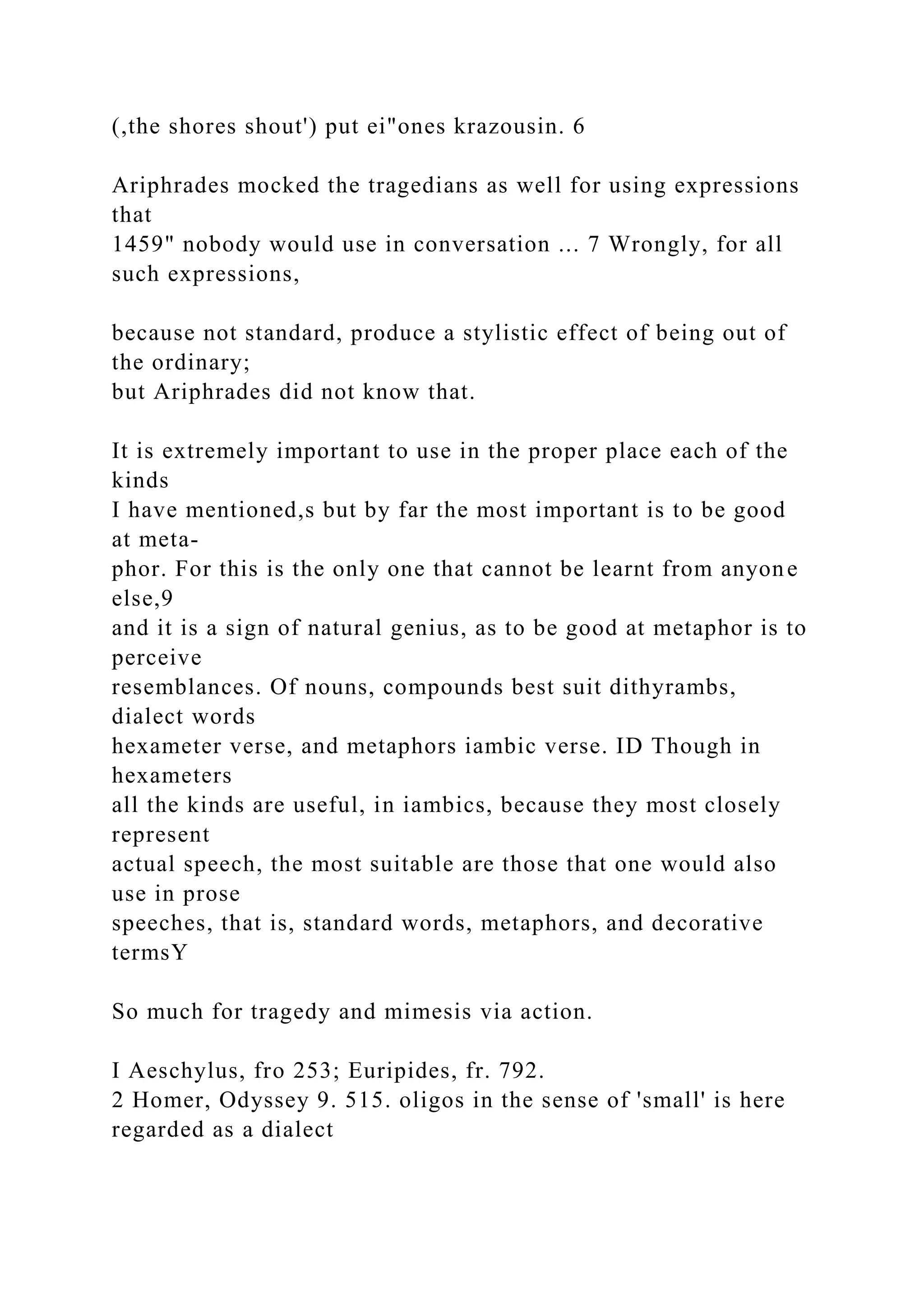
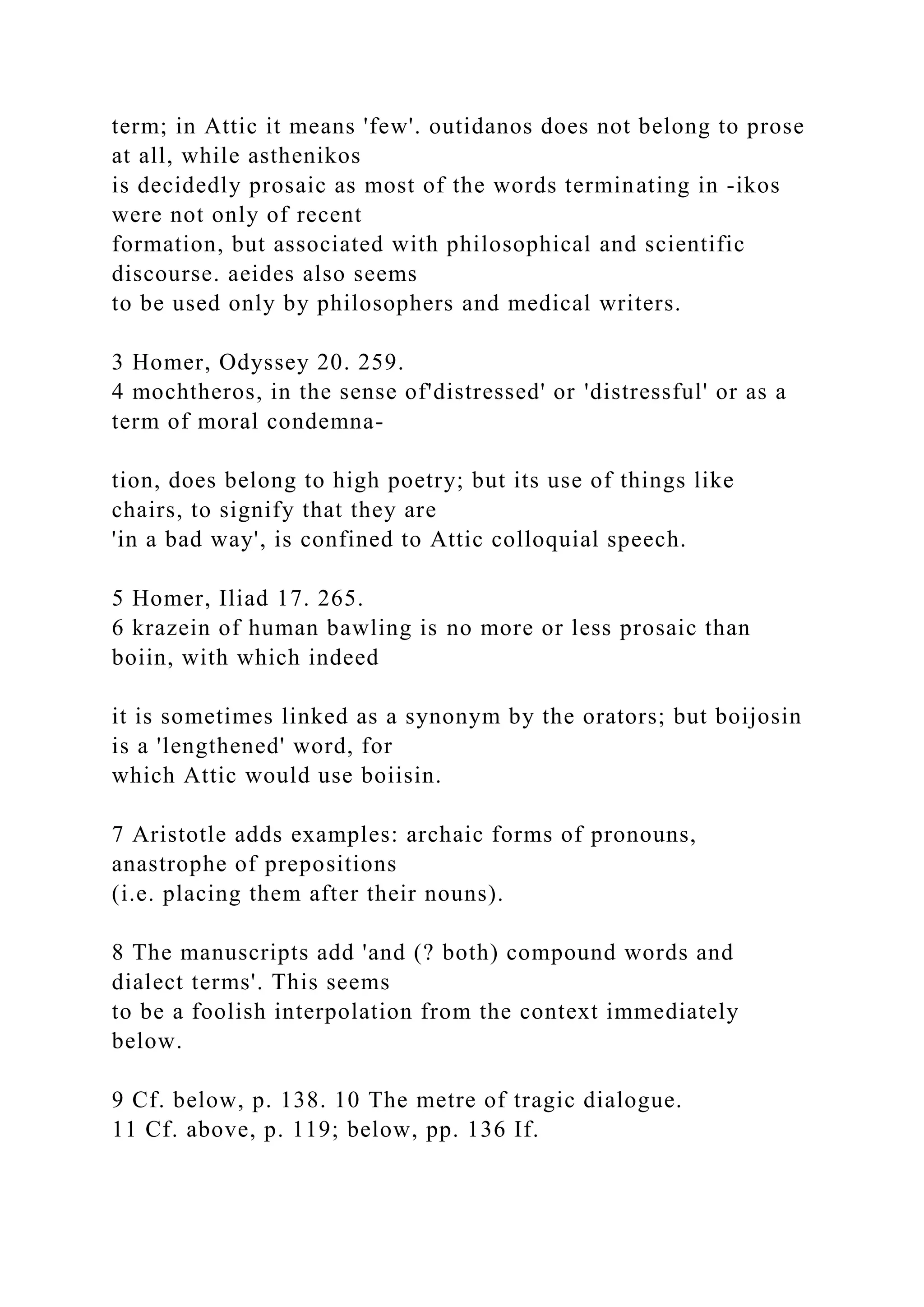
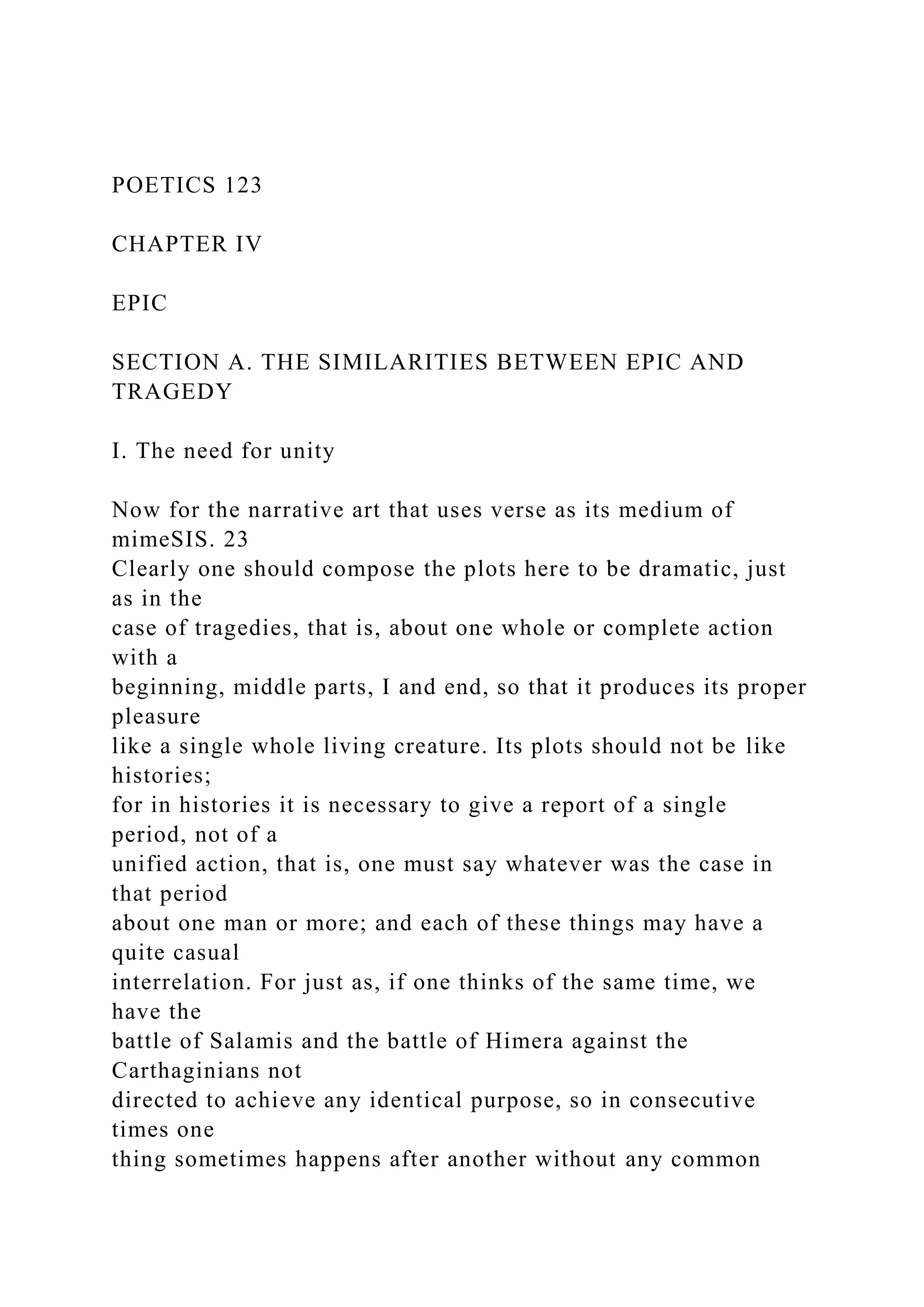
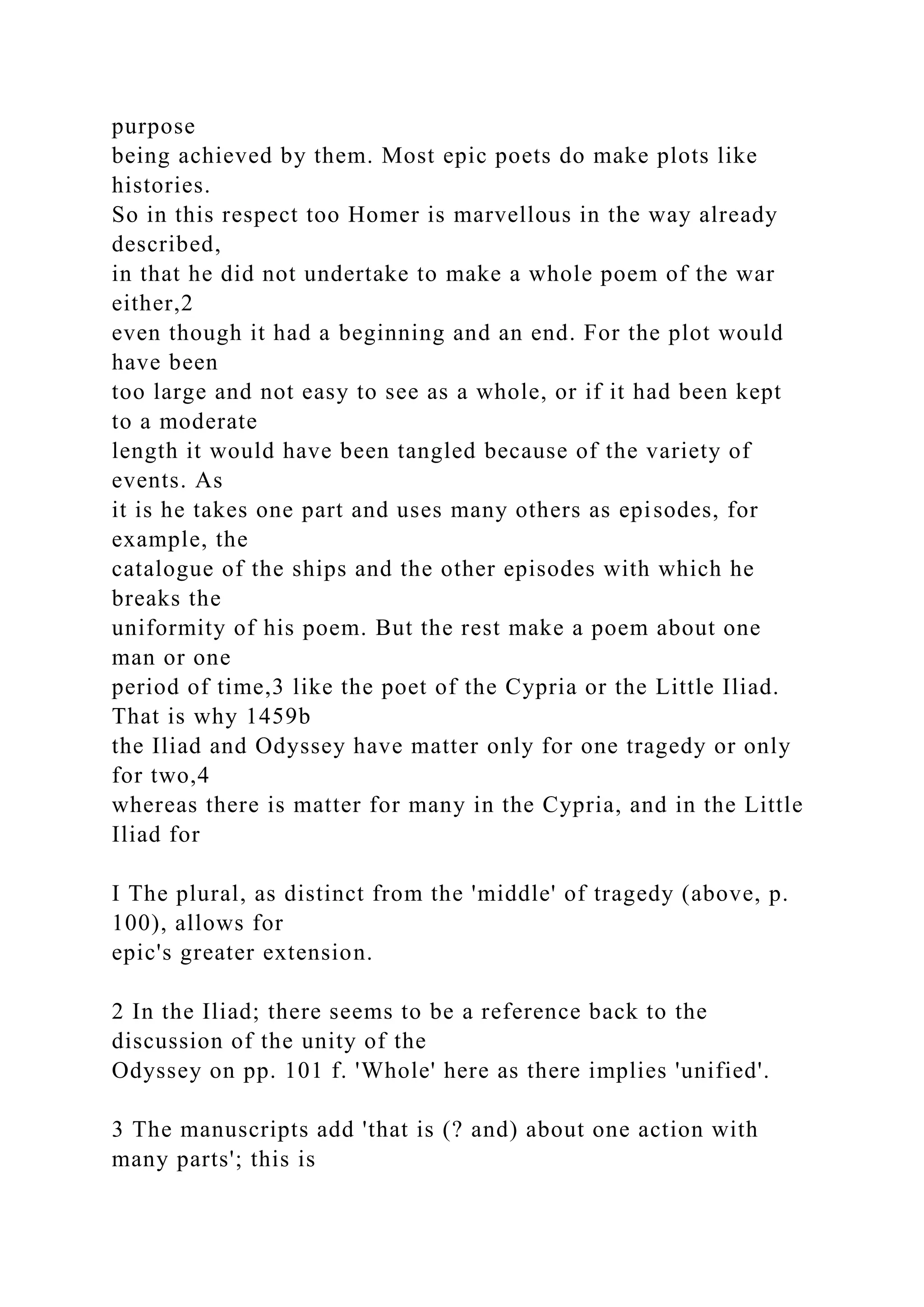
![very like the description of the Iliad and the Odyssey
themselves that Aristotle gives
below, p. 132. Moreover, if we believe that we know anything
at all about the poems of
the epic cycle, it is hard to credit that Aristotle ever allowed
that their ramshackle
structures dealt with 'one action', however polymerous.
4 The reference is to the principal action of the poems, not to
the episodes, like that
ofBellerophon, which provided material for more tragedies; for
the neglect of Aeschylus,
cf. above, p. 1I6 n. 3.
124 ARISTOTLE
more than eight, for example, The Adjudgement of the Arms,
Philoctetes,
Neoptolemus, Eurypylus, Odysseus as a Beggar, The Lacolliall
Women, The
Sack of Troy, The Departure, plus the Sinon and the Trojan
Women.!
2. The species of epic
24 Moreover, epic must have the same species as tragedy, that
is, must be
simplez or complex, a story of character or one of pathos. [And
the
elements are the same except for music and spectacle.] And it
needs
peripeteiai and recognitions and pathe. [Moreover its mimesis
of in-
tellect and its verbal expression should be good.] All of these](https://image.slidesharecdn.com/onlyprojectmanagementexpertineedtheanswers-221204163350-5fd2686e/75/Only-Project-Management-Expert-I-need-the-answers-docx-220-2048.jpg)
![Homer
was the first to use and his use of them is exemplary. For in the
case of
each of the poems, the composition of the Iliad is simple and
full of
pathos, that of the Odyssey complex, as there are recognitions
throughout,
and full of character. [And in addition he is pre-eminent in his
verbal
expression and mimesis of intellect.]3
SECTION B. THE DIFFERENCES BETWEEN EPIC
AND TRAGEDY
Epic differs from tragedy in the length of its plot and in its
metre.
I. Length
The above mentioned limit oflength4 is an adequate guide: that
is, one
should be able to get a synoptic view of the beginning and the
end. This
will be the case if the poems are shorter than those of the
ancients,S and
about as long as the number of tragedies offered at one sitting.
Epic has a peculiar characteristic in that its size can be
considerably
I Probably not everything in this list is due to Aristotle.
2 Cf. above, p. II5. 'Simple' here corresponds to what should
probably be 'spectacle'
there.](https://image.slidesharecdn.com/onlyprojectmanagementexpertineedtheanswers-221204163350-5fd2686e/75/Only-Project-Management-Expert-I-need-the-answers-docx-221-2048.jpg)
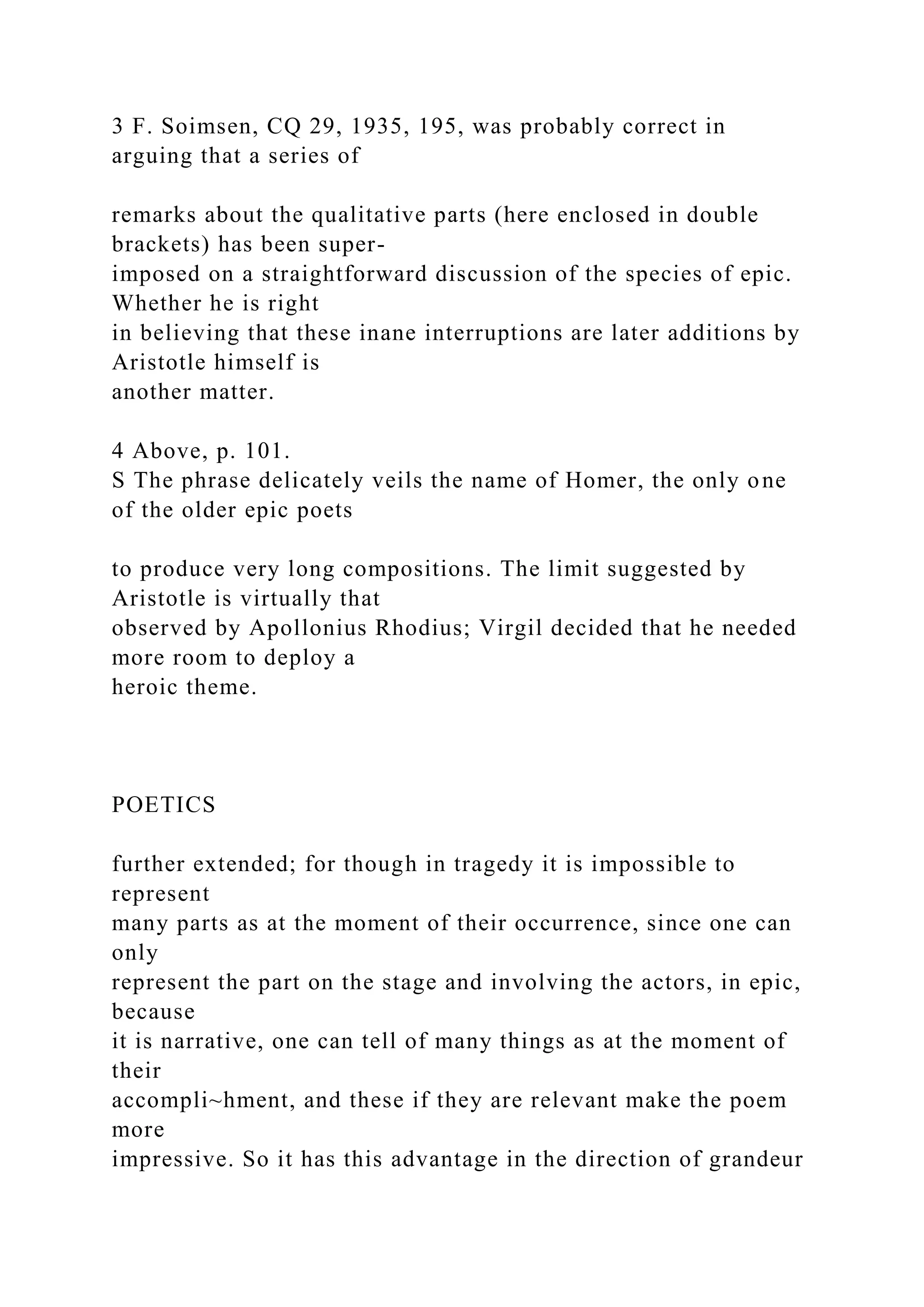
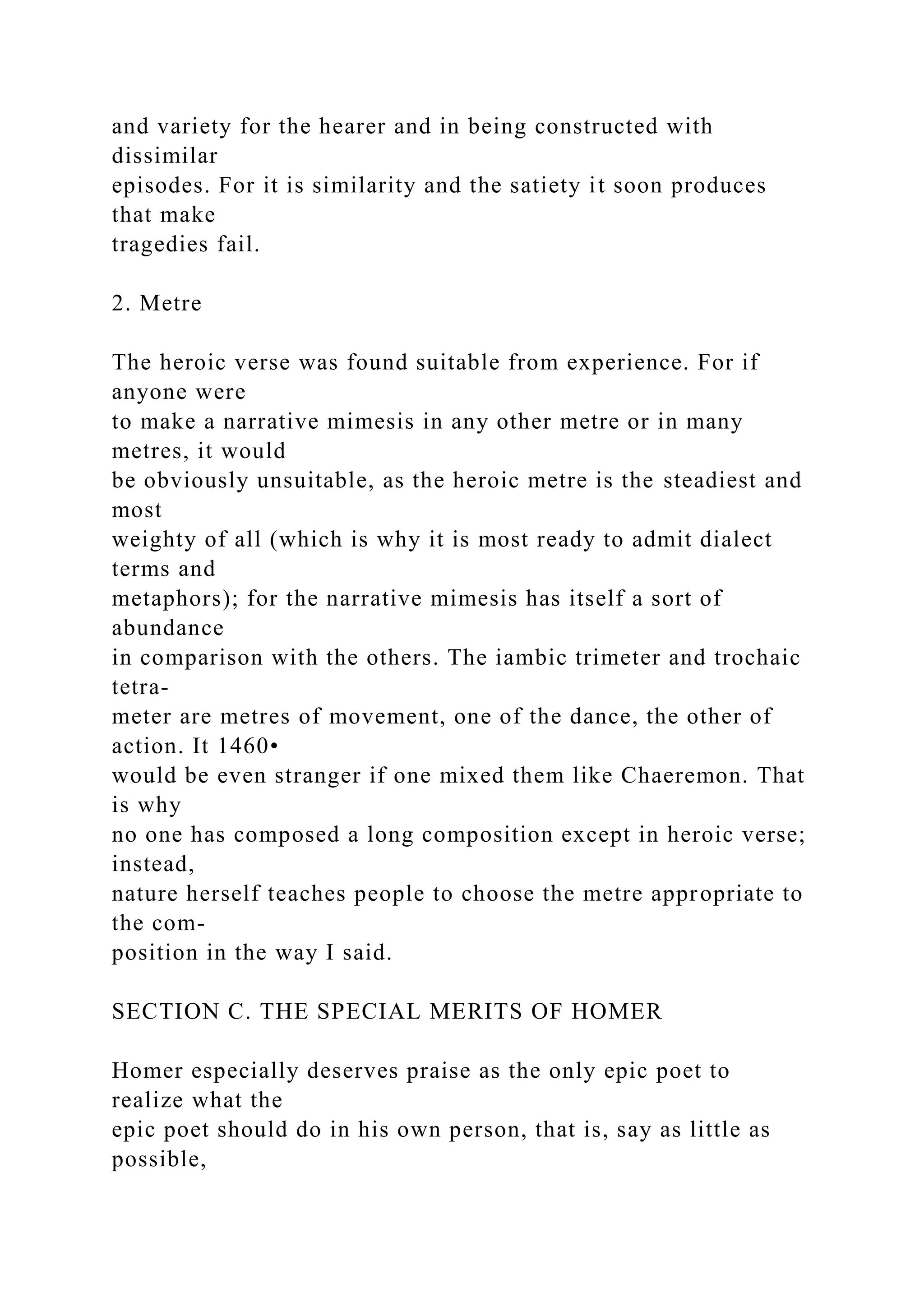
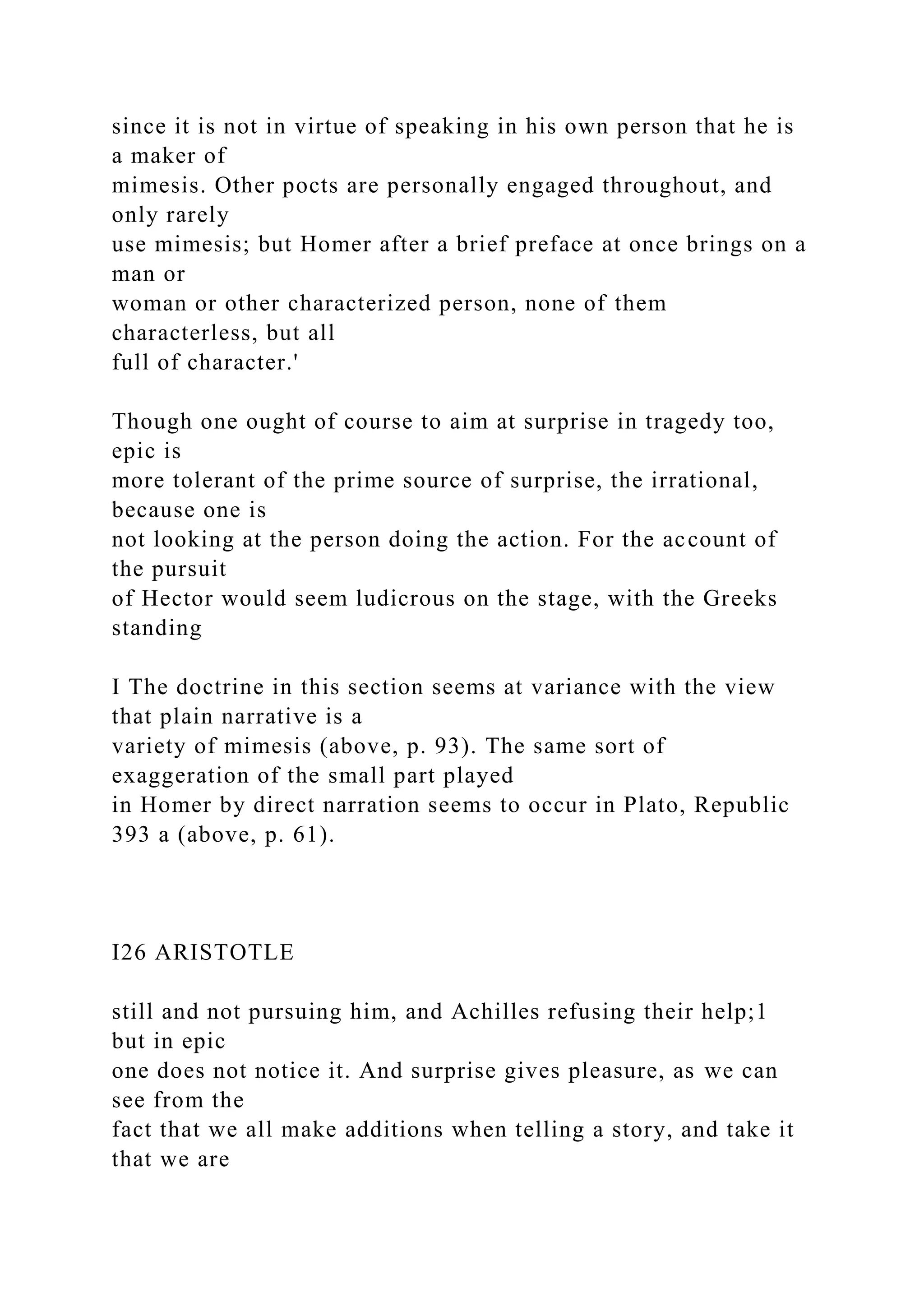
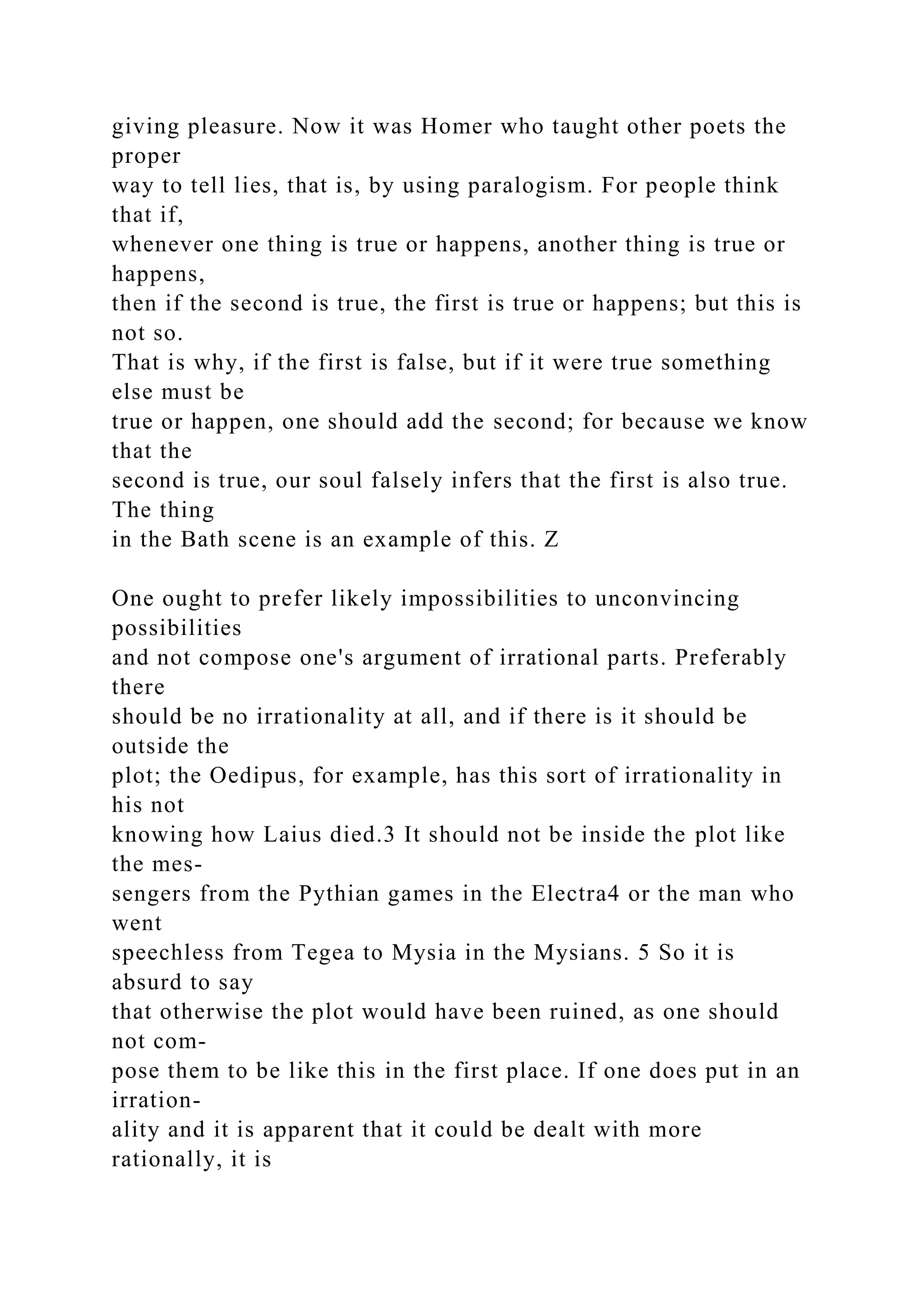
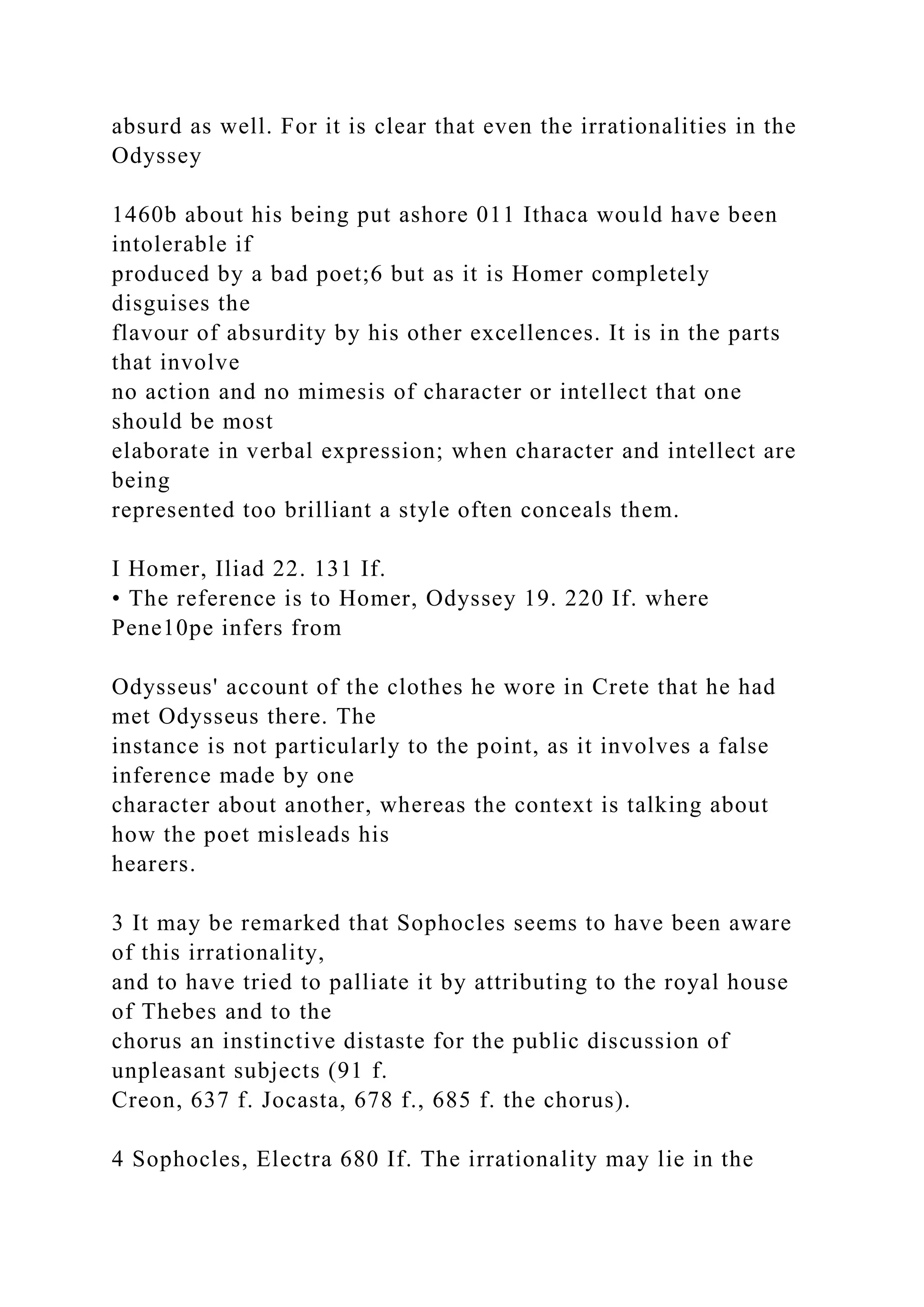
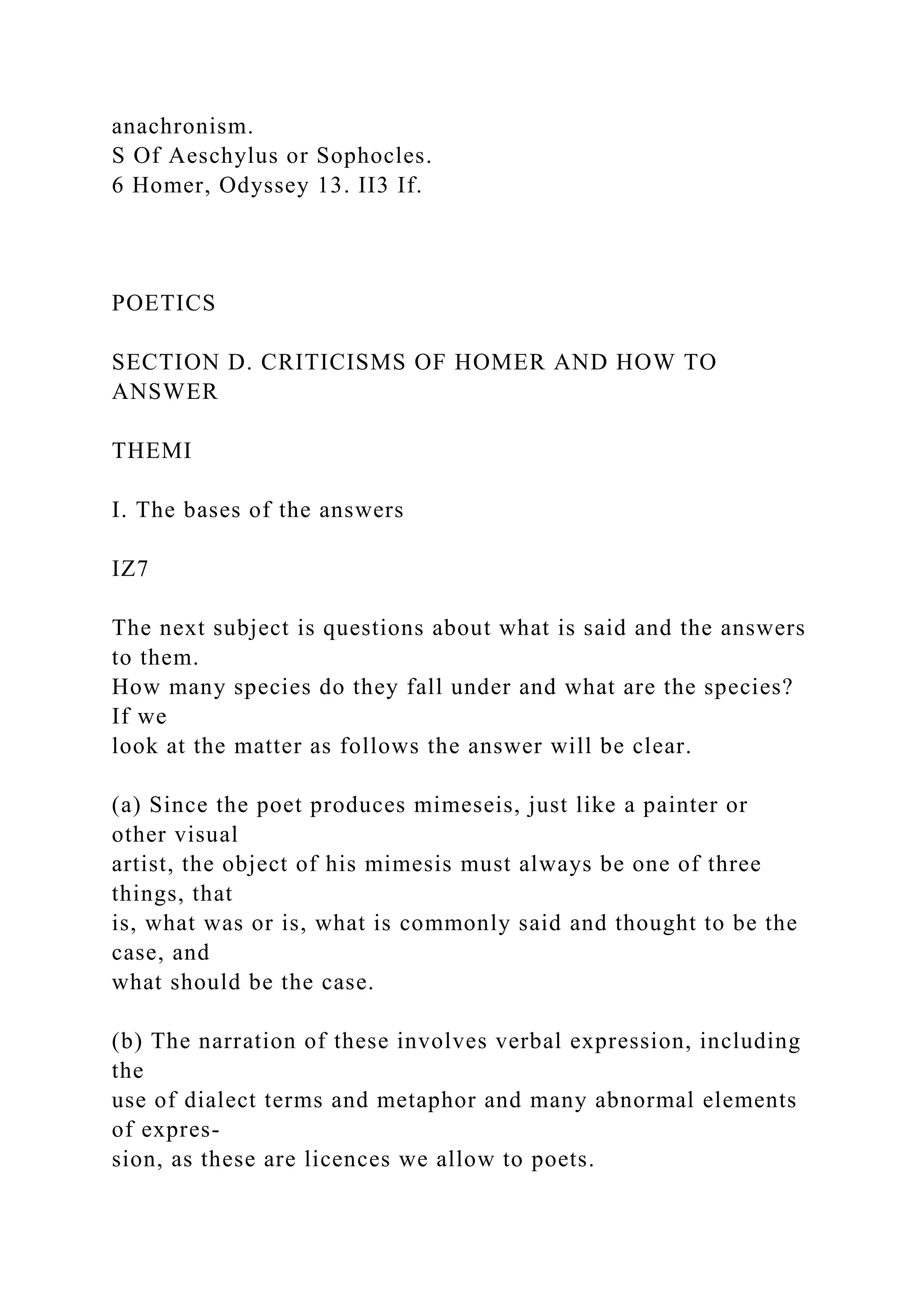
![(c) Further, correctness in poetry is not the same thing as
correctness
in morals,2 nor yet is it the same as correctness in any other art.
Faults
that are relevant to the art of poetry itself are of two kinds, one
involving
its essential nature, and the other incidental. If the poet is
incapable of
representing what he set out to represent, this is an error
involving the
essential nature of poetry. If the error arises through the poet's
setting
out to represent something incorrectly, for example,
representing a horse
with both its right legs forward,3 and this is the reason why we
find
in the poem either a mistake with reference to any particular art
(for
example, medicine or some other art) or, more generally, any
other im-
possibility, this does not involve the essential nature of poetry.4
So one should use these principles in examining and answering
the
questions raised.
2. The twelve sorts of answer
(a) ANSWERS DERIVED FROM BASIS (c)
Let us take first of all the errors that involve the art of poetry
itself:
1. If the poem contains[, for instance,] an impossibility,s that is
a](https://image.slidesharecdn.com/onlyprojectmanagementexpertineedtheanswers-221204163350-5fd2686e/75/Only-Project-Management-Expert-I-need-the-answers-docx-228-2048.jpg)
![fault; but it is all right if the poem thereby achieves what it
aims at (what
I This discussion is extremely difficult and compressed,
presumably because it is
an epitome of the four books that Aristotle wrote on Homeric
Problems.
2 This curt phrase is a very important part of Aristotle's answer
to Plato.
3 Photography has shown that horses do sometimes employ this
gait.
4 The English reader may recall the justified censure of Milton's
botany in Lycidas.
5 It is important to realize that though Aristotle takes an
impossibility as an example,
he could equally well have chosen something irrational, morally
damaging, or self-
contradictory (below, p. 131).
128 ARISTOTLE
it aims at I have already discussed), that is, if in this way the
surprise
produced either by that particular passage or by another is more
striking.
An example is the pursuit of Hector. However, if it was possible
for the
aim to be attained either more or no less without any error in
the art
[essentially] concerned, it is not all right; for, if possible, there
should be
no error at all.](https://image.slidesharecdn.com/onlyprojectmanagementexpertineedtheanswers-221204163350-5fd2686e/75/Only-Project-Management-Expert-I-need-the-answers-docx-229-2048.jpg)
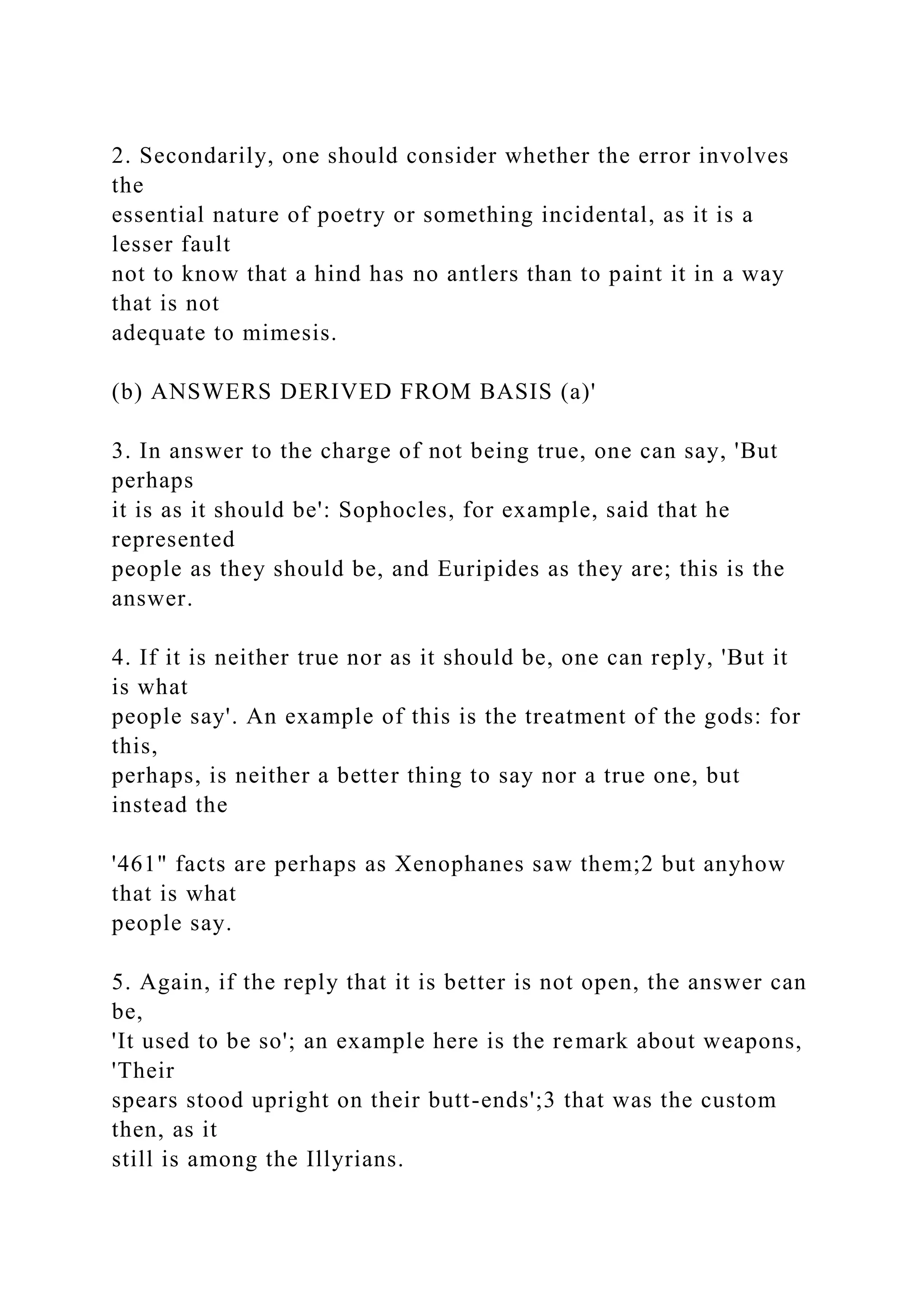
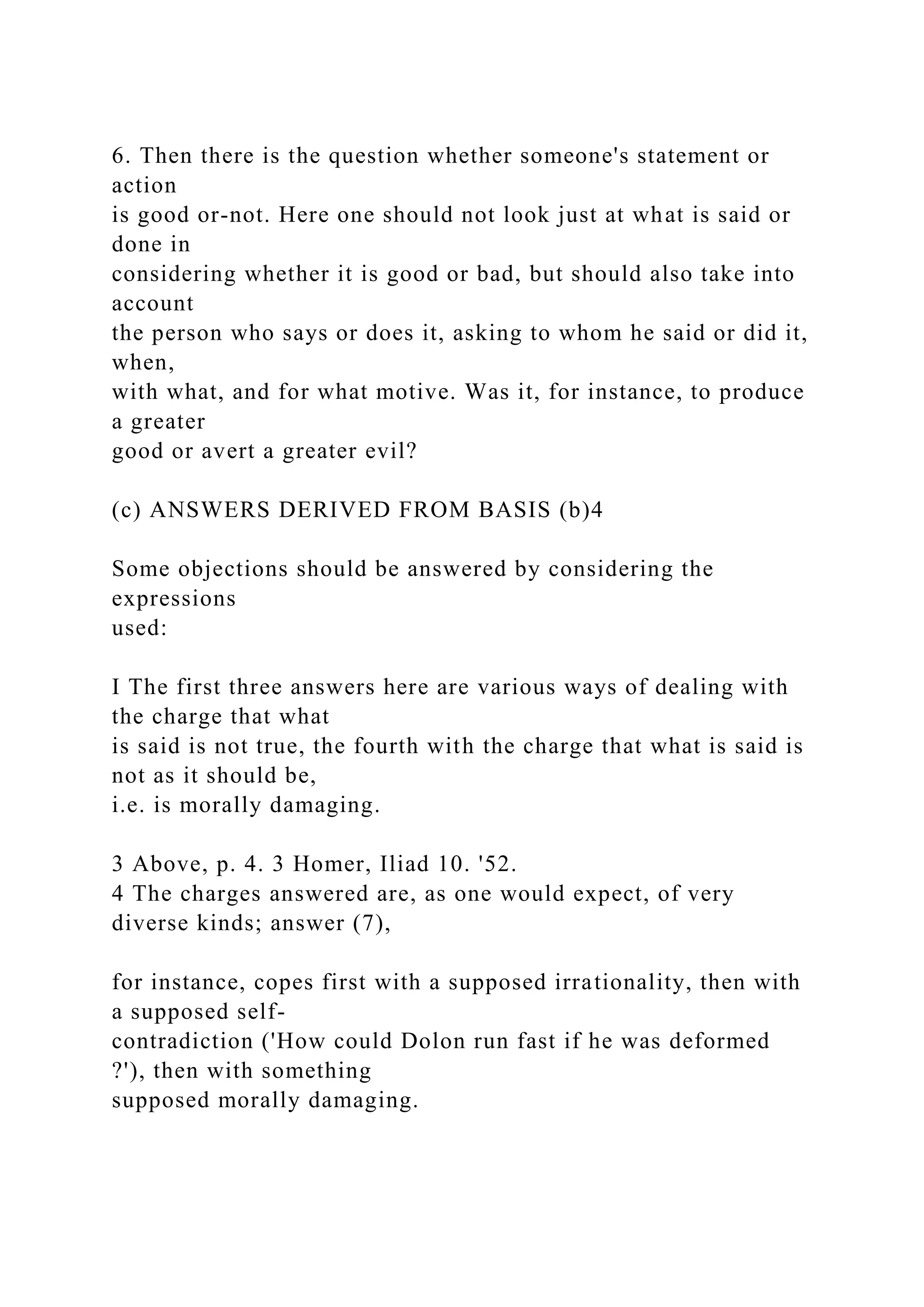
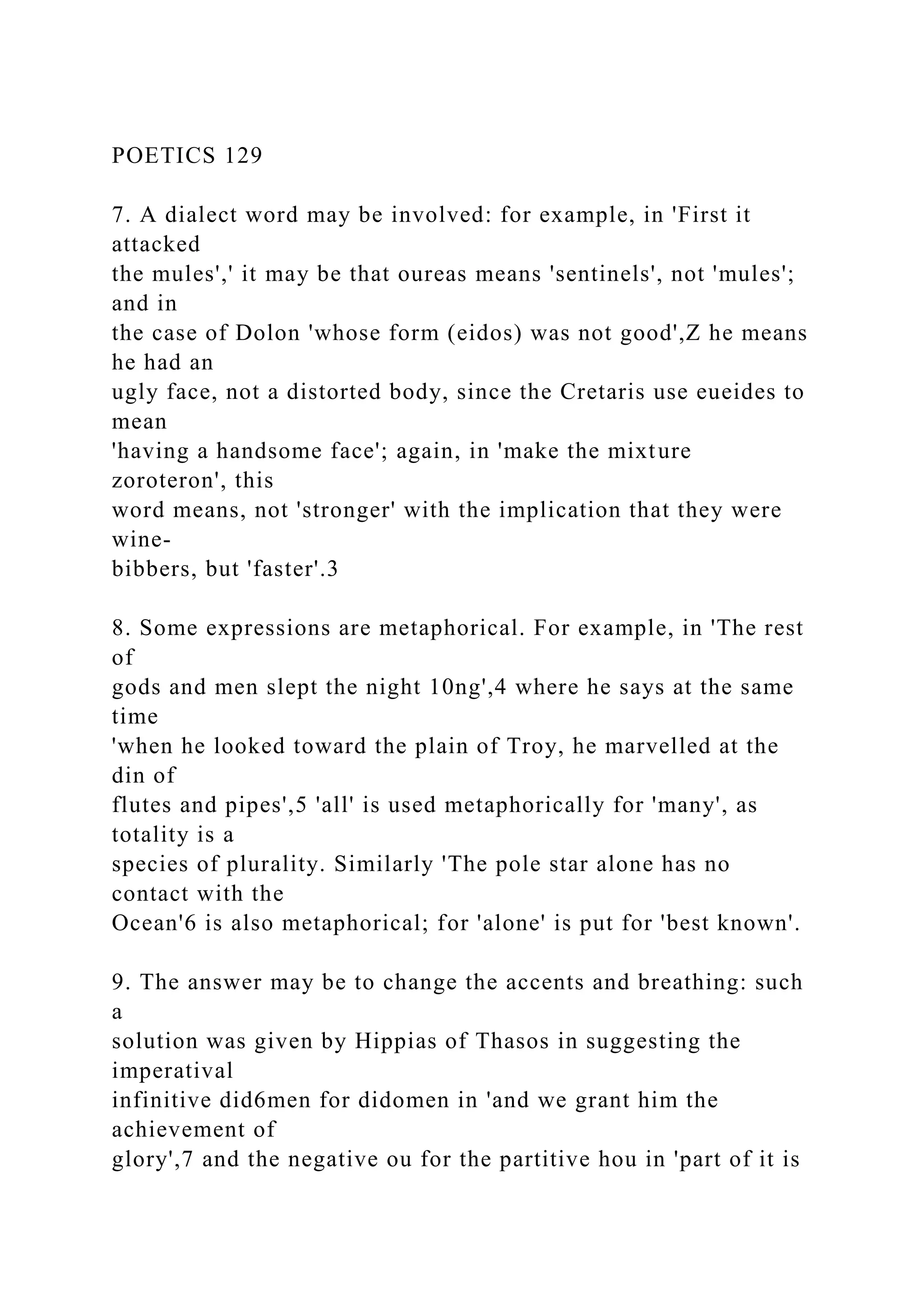
![rotted by
the rain'.8
10. Some may be answered by a change of punctuation, for
example,
Empedocles' 'at once things became mortal which had been used
to be
immortal, and things unmixed formerly mixed'.9
II. Another reply is that the expression is ambiguous, for
example, in
'more of the night was past than two thirds; the third was
left';1O here
pleo, 'more', is ambiguous [and may mean 'full'].
12. Some things are a matter of usage. We call wine and water
'wine',
and by analogy with this Homer says 'greaves of new.,forged
tin'.lI And
we call iron-workers 'bronze-smiths', and on the.analogy of this
Gany-
mede is said to pour wine for Zeus, IZ though gods do not drink
wine; this
could also be explained as an analogical metaphor.
I Homer, Iliad I. 50.
• Ibid. 10. 316.
3 Ibid. 9. 202.
4 Ibid. 10. I f., 2. I f.
5 Ibid. 10. 11-13.
6 Ibid. 18. 489, Odyssey 5. 275; Aristotle gives tlris and some
otlrer of tlre quotations
in this section in a much abbreviated form.
7 Homer, Iliad 21.297 and perhaps in Aristotle's text of Iliad 2.
IS.](https://image.slidesharecdn.com/onlyprojectmanagementexpertineedtheanswers-221204163350-5fd2686e/75/Only-Project-Management-Expert-I-need-the-answers-docx-233-2048.jpg)
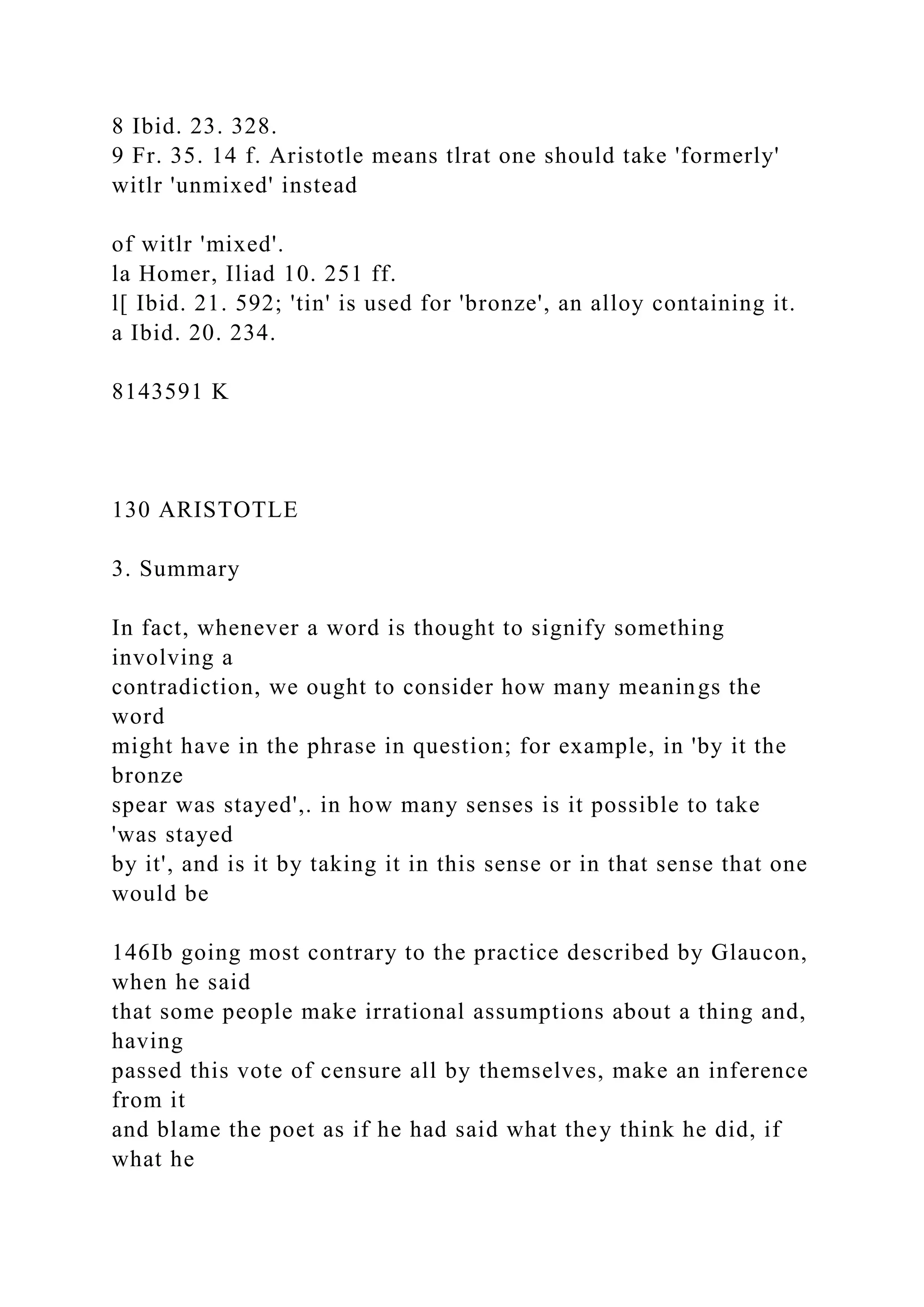
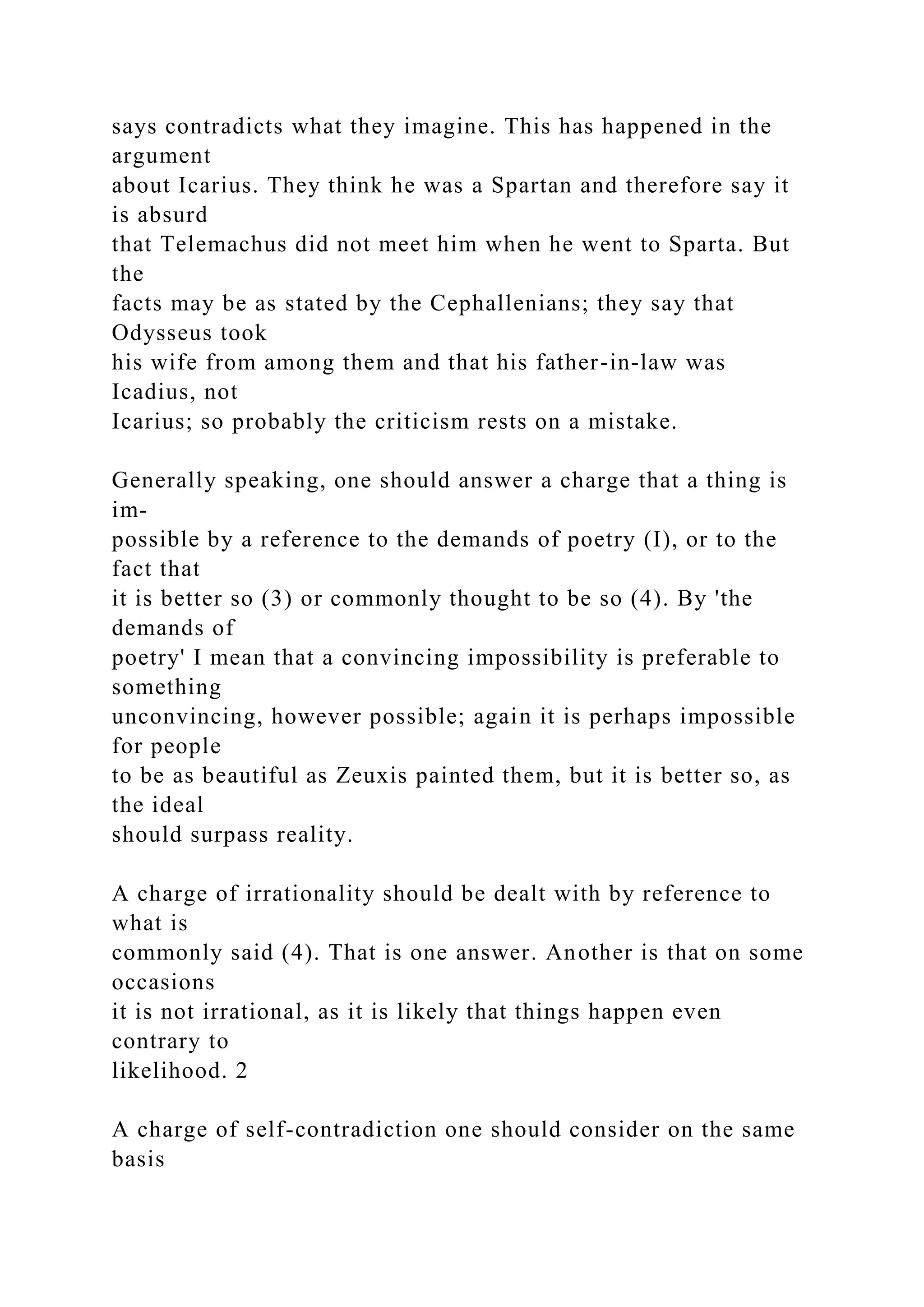
![as refutations in argument, asking, that is, whether it is itself
the same,
and related to the same thing, and used in the same sense, so
that it is the
poet himself who is contradicting either what he himself says or
what a
sensible man assumes.
A charge of irrationality or of representing wickedness is
justified if
there is no necessity for the irrationality or moral wickedness
and no
use is made of it. An example of the former is Euripides'
treatment of
Aegeus [in the Medea], of the latter his treatment of Menelaus
in the
Orestes.J
I Homer, Iliad 20. 272; the problem is how the layer of gold
stopped the spear when
it passed the layers of bronze.
2 Above, p. II6. The figures in round brackets in this and the
preceding paragraph
refer to the relevant 'answers'.
3 Above, p. IIO.
POETICS 13 1
Well then, people produce censures under five heads, claiming
that
things are impossible, irrational, morally dangerous, self-
contradictory,](https://image.slidesharecdn.com/onlyprojectmanagementexpertineedtheanswers-221204163350-5fd2686e/75/Only-Project-Management-Expert-I-need-the-answers-docx-236-2048.jpg)
